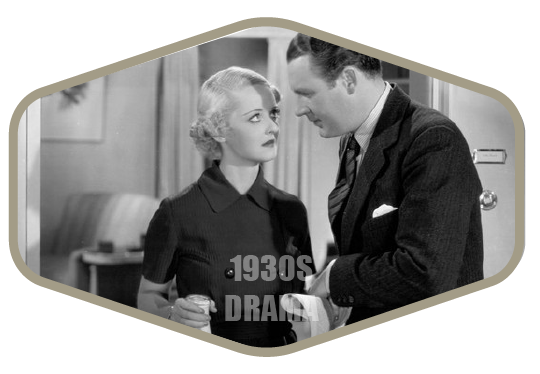Amid the somber time of the Great Depression, Americans began turning their attention to movies. The 1930s and 40s are fondly remembered as the "Golden Age of Hollywood" It was the era of glamorous women and dashingly handsome men.
Perhaps in no other era did Hollywood produce more famously beautiful or glamourous stars. The leading ladies include Katharine Hepburn, Bette Davis, Vivien Leigh, Barbara Stanwyck, Claudette Colbert, Rita Hayworth, and Myrna Loy. And lest we forget the leading men: Cary Grant, Henry Fonda, Clark Gable, Gary Cooper, Robert Taylor, and Errol Flynn.
Several iconic stars were launched in the 30's, these include: Katharine Hepburn making her screen debut in A Bill of Divorcement (1932), Jean Harlow got her start in Hell's Angels (1930), and Marlene Dietrich's first starring role was in Morocco (1930).
With the launch of so many new careers in the 30's, it was unfortunately the death knell for several stars of the silent era who could not make the transition to "talkies": Mary Pickford, Lillian Gish, Pola Negri, Douglas Fairbanks, and John Gilbert.
While these performers lost their footing in the 30's, there were however successful dramatic performers who started in the 20's and went on to thrive throughout the 30's: John Barrymore, Boris Karloff, Greta Garbo, Joan Crawford, and Carole Lombard.
This era of Hollywood, the transition from silent to talkies, provided the story backdrop to the beloved musical
Whenever one looks back on films of the 30's, whether comedy or drama, there is that bold delineation of films made prior to 1934 (pre-Hays Code). This was the brief era when sex, sin and other depictions of sordid behavior went pretty much unchecked during the relaxed censorship standards of the time.
Arguably, the drama genre best exemplifies this
DRAMA FILMS OF THE 1930s
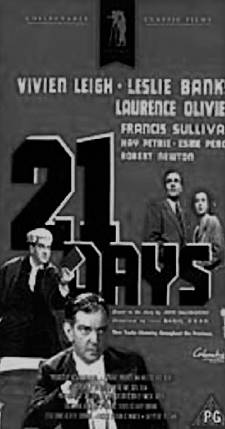 21 DAYS (1938)
21 DAYS (1938) (75 Min.) Genre: 1930 DRAMA, Transfer Quality: B
Laurence Olivier plays a young Londoner implicated in a brutal murder. According to the rules of British law, he is permitted 21 days of comparative freedom from the time of the first hearing to the time of trial — provided he does not leave London. As the three weeks pass, Olivier falls deeply in love with girlfriend Vivien Leigh, who at first believes in his innocence. But as the deadline approaches, Olivier's mood swings and erratic behavior shakes Leigh's faith in him. Scripted by British suspense expert Graham Greene, 21 Days Together was originally released under the simpler title 21 Days.
Starring: Vivien Leigh, Laurence Olivier, Leslie Banks, Francis L. Sullivan | Directed by: Basil Dean
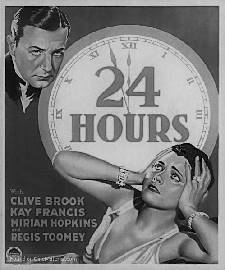 24 HOURS (1931)
24 HOURS (1931) (65 Min.) Genre: 1930 DRAMA, Transfer Quality: B
24 Hours is all it takes for tippling married man Clive Brook to go from social respectability to convict stripes. Upset that his wife has been unfaithful, the wealthy Brook weaves drunkenly from one night club to another. He falls for a cabaret performer (Miriam Hopkins) and begins an affair. The girl is killed by her gangster boyfriend (Regis Toomey), but Brook is arrested for the crime. Released from prison, the chastened Brook returns to his wife (Helen Twelvetrees), who has vowed to remain loyal to her husband. 24 Hours was based on a novel by Louis Bromfield.
Starring: Clive Brook, Kay Francis, Miriam Hopkins, Regis Toomey | Directed by: Marion Gering
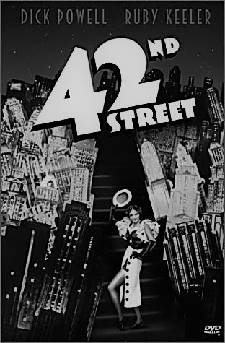 42ND STREET (1933)
42ND STREET (1933) (89 Min.) Genre: 1930 DRAMA, Transfer Quality: A
The quintessential "backstage" musical, 42nd Street traces the history of a Broadway musical comedy, from casting call to opening night. Warner Baxter plays famed director Julian Marsh, who despite failing health is determined to stage one last great production, "Pretty Lady." Others involved include "Pretty Lady" star Dorothy Brock (Bebe Daniels); Dorothy's "sugar daddy" (Guy Kibbee), who finances the show; her true love Pat (George Brent); leading man Billy Lawlor (Dick Powell); and starry-eyed chorus girl Peggy Sawyer (Ruby Keeler). It practically goes without saying that Dorothy twists her ankle the night before the premiere, forcing Julian Marsh is to put chorine Peggy into the lead: "You're going out there a youngster, but you've got to come back a star!" Delightfully corny, with hilarious wisecracking support from the likes of Ginger Rogers, Una Merkel, and George E. Stone, 42nd Street is perhaps the most famous of Warners' early-1930s Busby Berkeley musicals. Based on the novel by Bradford Ropes (which was a lot steamier than the movie censors would allow), 42nd Street is highlighted by such grandiose musical setpieces as "Shuffle Off to Buffalo," "Young and Healthy," and of course the title song. Nearly fifty years after its premiere, it was successfully revived as a Broadway musical with Tammy Grimes and Jerry Orbach. — Hal Erickson
Starring: Warner Baxter, Ruby Keeler, George Brent, Bebe Daniels, Dick Powell, Guy Kibbee, Una Merkel, Ginger Rogers | Directed by: Lloyd Bacon
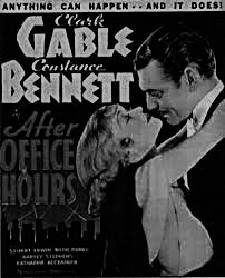 AFTER OFFICE HOURS (1935)
AFTER OFFICE HOURS (1935) (73 Min.) Genre: 1930 DRAMA, Transfer Quality: A
Society girl Constance Bennett goes to work as a reporter for a big-city newspaper. Harried editor Clark Gable fires the flighty socialite, but rehires her when Bennett starts dating the co-respondent (Harvey Stephens) in a major divorce case. Things get sticky when the wife in the case is murdered and Bennett's beau is accused of the crime. More interested in the well-being of Bennett than in making headlines, Gable tracks down the killer and springs the boy friend. The freed man sizes up the situation and courteously steps out of the picture, allowing Gable and Bennett—who of course have been in love all along—to head for the altar. — Hal Erickson
Starring: Clark Gable, Constance Bennett, Stuart Erwin, Billie Burke | Directed by: Robert Z. Leonard
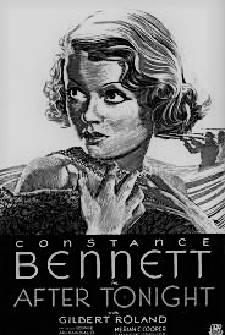 AFTER TONIGHT (1933)
AFTER TONIGHT (1933) (70 Min.) Genre: 1930 DRAMA, Transfer Quality: A
Released in Great Britain as Sealed Lips, this WWI melodrama stars Constance Bennett as Carla, aka Russian spy "K-14." Though there's no room for romance in her line of work, Carla falls in love all the same with Austrian captain Rudi (Gilbert Roland). When he discovers that she's working for the enemy, Rudi is forced to arrest Carla, a turn of events which she takes in stride as the fortunes of war. Though slated for a firing squad, Carla manages to escape and after the war is reunited with Rudi at the train station where they first met. One of the screenwriters was Worthington Miner, later a leading light of the TV anthology series Studio One. Coming at the tail end of the early-1930s "spy cycle," After Tonight lost $100,000 at the box office, forcing RKO Radio to rethink the studio's contract with Constance Bennett. — Hal Erickson
Starring: Constance Bennett, Gilbert Roland, Edward Ellis, Sam Godfrey | Directed by: George Archainbaud
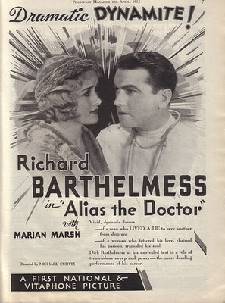 ALIAS THE DOCTOR (1932)
ALIAS THE DOCTOR (1932) (61 Min.) Genre: 1930 DRAMA, Transfer Quality: B
A Bavarian orphan, raised by a wealthy family, grows up to become a promising physician (Richard Barthelmess). Meanwhile, the privileged young man (Norman Foster) with whom Barthelmess has grown up fails to make the grade at medical school. When Foster bungles an operation, Barthelmess nobly accepts the blame, thereby ruining his own career. The truth comes out after several scenes in which self-sacrificing Barthelmess is pilloried by all those who'd once loved and trusted him. Alias the Doctor reportedly features Boris Karloff as an autopsy surgeon, though in most existing prints the role credited to Karloff is played by John St. Polis.
Starring: Richard Barthelmess, Marian Marsh, Lucille La Verne, Boris Karloff, Claire Dodd | Directed by: Lloyd Bacon, Michael Curtiz
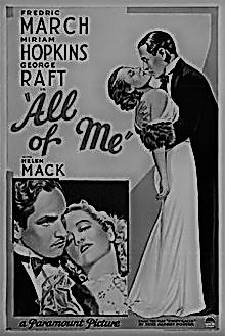 ALL OF ME (1934)
ALL OF ME (1934) (70 Min.) Genre: 1930 DRAMA, Transfer Quality: B
In this melodrama, an engineering professor longs to leave his ivory tower so he can be involved in a special project taking place near Boulder Dam. He decides to go and tries to convince his wealthy student/lover to go with him. They discuss this in a night club. She doesn't really want to go. While there, they encounter another couple, a crook and his moll who offer their own unique take on the situation. The crooks offer the wealthy lovers insight into the realities of living on the lower rungs of the social ladder. At the end of the evening, the crook steals the wealthy girl's purse so he can help his pregnant girl. He gets arrested. Fortunately, the kindly professor helps him break out so he can be with his moll who needs him. Unfortunately, during the escape, the crook kills a cop and takes the professor and his girl hostage. The police surround the joint and the rich girl hides in a corner during a shoot out. The situation gets desperate and the crook and his lover vow that they will never again be parted and hand in hand leap from the window to certain death. The girl suddenly realizes the true meaning of love and decides to accompany her lover out west and start all over again.
Starring: Fredric March, Miriam Hopkins, George Raft, Helen Mack | Directed by: James Flood
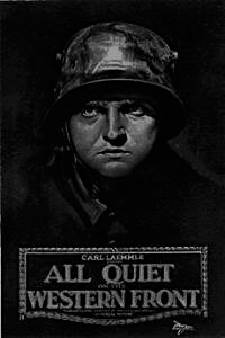 ALL QUIET ON THE WESTERN FRONT (1930)
ALL QUIET ON THE WESTERN FRONT (1930) (131 Min.) Genre: 1930 DRAMA, Transfer Quality: A
One of the most powerful anti-war statements ever put on film, this gut-wrenching story concerns a group of friends who join the Army during World War I and are assigned to the Western Front, where their fiery patriotism is quickly turned to horror and misery by the harsh realities of combat. Director Lewis Milestone pioneered the use of the sweeping crane shot to capture a ghastly battlefield panorama of death and mud, and the cast, led by Lew Ayres, is terrific. It's hard to pick a favorite scene, but the finale, as Ayres stretches from his trench to catch a butterfly, is one of the most devastating sequences of the decade. The film won Oscars for Best Picture and for Milestone's direction — and trivia buffs should note that the actors were coached by future luminary George Cukor, while Ayres became a conscientious objector in World War II. The Road Back (1937) followed, and the film was remade for television in 1979. — Robert Firsching
Starring: Lew Ayres, Louis Wolheim, John Wray, Raymond Griffith | Directed by: Lewis Milestone
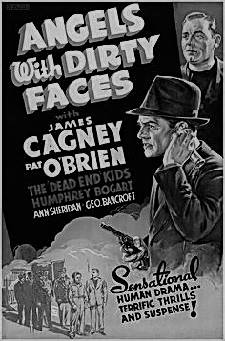 ANGELS WITH DIRTY FACES (1938)
ANGELS WITH DIRTY FACES (1938) (97 Min.) Genre: 1930 DRAMA, Transfer Quality: A
Childhood chums Rocky Sullivan (James Cagney) and Jerry Connelly (Pat O'Brien) grow up on opposite sides of the fence: Rocky matures into a prominent gangster, while Jerry becomes a priest, tending to the needs of his old tenement neighborhood. Rocky becomes a hero to a gang of teenaged boys (played by Dead End Kids Billy Halop, Leo Gorcey, Huntz Hall, Gabriel Dell, Bobby Jordan and Bernard Punsley). Father Jerry despairs at this, asking Rocky to lay off so he can keep the kids on the straight and narrow. When Rocky's crooked business associates George Bancroft and Humphrey Bogart attempt to end Father Jerry's radio campaign against the rackets by killing the priest. Rocky (whose cynical outlook on life has been softened by his romance with true-blue Anne Sheridan) shoots them down and takes it on the lam. Arrested and convicted of murder, Rocky sits smugly on death row, fully intending to go to the chair with a smile on his face. A few moments before the execution, Father Jerry pleads with Rocky to "turn yellow" so that the tenement kids will despise his memory. — Hal Erickson
Starring: James Cagney, Pat O'Brien, Humphrey Bogart, Ann Sheridan | Directed by: Michael Curtiz
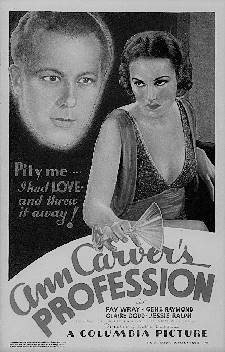 ANN CARVER'S PROFESSION (1933)
ANN CARVER'S PROFESSION (1933) (71 Min.) Genre: 1930 DRAMA, Transfer Quality: B
In this melodrama a superb female lawyer finds that her success has emasculated her husband, a rather average architect, who runs away from home and career to become a nightclub singer and save some shred of manly dignity. While working at the club, he falls in love with an alcoholic, self-destructive patron. When she dies during a binge, he ends up accused of killing her. Fortunately, the court-appointed defense is a superb female lawyer, and in a corny, histrionic speech she manages to convince the jury that he is really innocent.
Starring: Fay Wray, Gene Raymond, Claire Dodd, Arthur Pierson | Directed by: Edward N. Buzzell
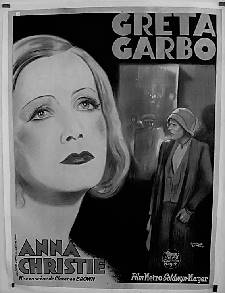 ANNA CHRISTIE (1930)
ANNA CHRISTIE (1930) (90 Min.) Genre: 1930 DRAMA, Transfer Quality: A
Accompanied by one of the most successful advertising campaigns in Hollywood history, Greta Garbo made her "talking picture" debut in this carefully chosen vehicle, the second screen version of Eugene O'Neill's 1922 play about the Minnesota-raised Swedish girl who desperately attempts to keep her unsavory past from her long-lost father, Kris (George F. Marion). But when she falls for a charming Irish sailor, Matt Burke (Charles Bickford), Anna can keep her secret no longer. Learning that the girl used to be a prostitute, Matt is at first repulsed, but quickly realizes that he cannot live without her. Working overtime, Garbo filmed both Swedish and German versions under the direction of Belgian Jacques Feyder. — Hans J. Wollstein
Starring: Greta Garbo, Charles Bickford, Marie Dressler, George F. Marion | Directed by: Clarence Brown
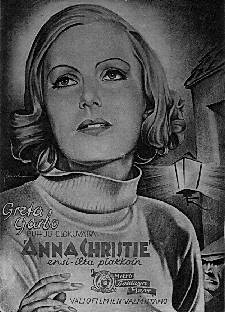 ANNA CHRISTIE (German Version) (1930)
ANNA CHRISTIE (German Version) (1930) (85 Min.) Genre: 1930 DRAMA, Transfer Quality: A
Filmed simultaneously with the English version, this German-language film is considered by many to be technically superior. Greta Garbo, who was discovered by Louis B. Mayer in Berlin, spoke German well and her performance was highly praised. As the old lush Marthy, actress-writer Salka Steuermann (later Viertel) was perhaps not as striking as Marie Dressler, but her performance was highly praised. Veteran German star Hans Junkermann, in his only Hollywood film, took over from George F. Marion as Chris Christofferson, Anna's sailor father, and Theo Shall replaced Charles Bickford as the virile Matt Burke. The latter became famous in his native Germany as "the man who kissed Garbo." Completing the small cast, Herman Bing appeared unbilled as Larry, the bartender who serves Garbo her "viskey." The star herself often admitted to favoring this film over the English-language version and felt a great kinship with Belgian director Jacques Feyder. — Hans J. Wollstein
Starring: Greta Garbo, Hans Junkermann, Theo Shall, Salka Viertel | Directed by: Jacques Feyder
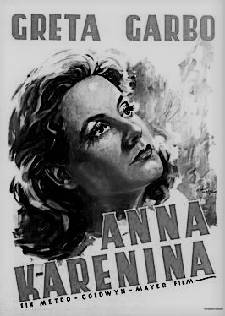 ANNA KARENINA (1935)
ANNA KARENINA (1935) (96 Min.) Genre: 1930 DRAMA, Transfer Quality: A
This second filmization of Leo Tolstoy's novel is widely regarded as the best version. Greta Garbo plays the title character, the sheltered wife of Czarist official Rathbone. Intending to dissuade Rathbone's brother (Reginald Owen) from a life of debauchery, Garbo is sidetracked by her own fascination with dashing military officer Fredric March. This indiscreet liaison ruins Garbo's marriage and position in 19th century Russian society; she is even prohibited from seeing her own son (Freddie Bartholomew). In keeping with the censorial strictures of 1935 Hollywood, Anna Karenina is extremely careful in the staging of its final suicide sequence, allowing the audience to determine for itself whether or not Garbo's desperate act of throwing herself under wheels of a train is intentional. Outside of the expected superb performances of Garbo and March, the film's most fascinating characterization is offered by Basil Rathbone, whose cold cruelty in banishing his wife is shown to be the by-product of his own broken heart (though Rathbone never allows himself to descend into cheap sentiment). The first film version of Anna Karenina was the 1927 silent feature Love, also starring Garbo, which substituted an imbecilic happy ending for Tolstoy's bleak denouement (there would be an acceptable third version in 1948, starring Vivien Leigh. The 1935 Anna Karenina is arguably the finest accomplishment of the felicitous 1930s alliance between star Greta Garbo, director Clarence Brown and cinematographer William Daniels. — Hal Erickson
Starring: Greta Garbo, Fredric March, Basil Rathbone, Freddie Bartholomew, Maureen O'Sullivan | Directed by: Clarence Brown
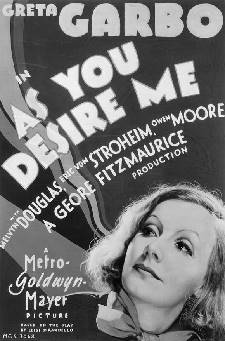 AS YOU DESIRE ME (1932)
AS YOU DESIRE ME (1932) (71 Min.) Genre: 1930 DRAMA, Transfer Quality: A
This complex '30s film is based upon a play by Pirandello which involved a hapless amnesiac. In As You Desire Me, the legendary Greta Garbo plays a down-in-the-dumps amnesiac (she can't recall who her husband is) who ends up singing in a low-life nightclub and putting up with the advances of a cruel and crude novelist (Eric von Stroheim). She'd have remained in this miserable state were it not for the fact that she's recognized and returned to her true husband, who's a nobleman loyally in love with her. Her former suitor von Stroheim shows up trying to expose her as a fraud and regain her as his captive. — All Movie Guide
Starring: Greta Garbo, Melvyn Douglas, Erich von Stroheim, Hedda Hopper | Directed by: George Fitzmaurice
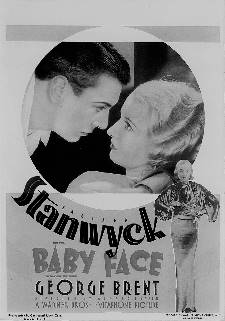 BABY FACE (1933)
BABY FACE (1933) (71 Min.) Genre: 1930 DRAMA, Transfer Quality: A
Baby Face is a good example of the kind of spitfire lead female characters that appeared in the cinema of pre-code Hollywood. Lily Powers (Barbara Stanwyck) works as a barmaid in her father's factory-town saloon where she learns to deal with the unwanted advances of male customers. When her father dies, she moves to New York City with her maid, Chico (Theresa Harris), to become a ruthless gold digger. First she meets office boy Jimmy McCoy (a young John Wayne in an uncharacteristically clean-cut role) who helps her get a job at the Gotham Trust Company. From there, she seduces and discards various men (George Brent, Donald Cook, Henry Kolker) as she sleeps her way to the top of the company. Jealously between the men causes a murder scene, so Lily takes her furs and jewels and moves to Paris with Chico. The production code censors tacked on an ending that featured Lily giving away her money and returning to her home town with Brent. — Andrea LeVasseur
Starring: Barbara Stanwyck, George Brent, Donald Cook, Arthur Hohl | Directed by: Alfred E. Green
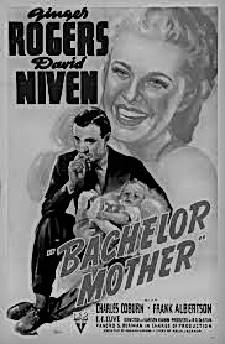 BACHELOR MOTHER (1939)
BACHELOR MOTHER (1939) (82 Min.) Genre: 1930 DRAMA, Transfer Quality: A
Ginger Rogers slipped off her dancing shoes to play one of her best comic roles as Polly Parish, a salesgirl at a large department store. Single and with no steady beau, Polly leads a quiet life until she discovers a baby left at her doorstep. While puzzled by this development, Polly feels for the child and decides to adopt the baby. However, most of her co-workers raise their eyebrows at Polly's new status as a single mother, believing that she's actually the mother. The owner of the store where Polly works, J.B. Merlin (Charles Coburn), is taken aback, and his son David (David Niven), who has a reputation as a ladies' man, is dispatched to lead Polly back to the straight-and-narrow.
Starring: Ginger Rogers, David Niven, Charles Coburn, Frank Albertson | Directed by: Garson Kanin
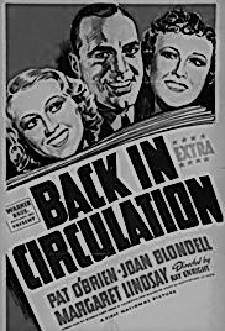 BACK IN CIRCULATION (1937)
BACK IN CIRCULATION (1937) (100 Min.) Genre: 1930 DRAMA, Transfer Quality: B
In this newsroom drama, a tabloid's ace reporter's investigations lead to a chorine's conviction for murdering her husband. The trouble begins when the reporter digs a little deeper and realizes that the showgirl is really innocent. Now, despite the objections of her editor, the reporter must hurry to keep the dancer off of death row.
Starring: Pat O'Brien, Joan Blondell, Margaret Lindsay, John Litel | Directed by: Ray Enright
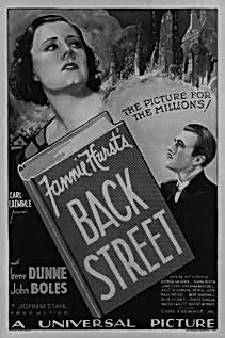 BACK STREET (1932)
BACK STREET (1932) (86 Min.) Genre: 1930 DRAMA, Transfer Quality: B
Based on a best-selling novel by Fannie Hurst, Back Street concerns an ill-starred couple, Rae (Irene Dunne) and Walter (John Boles). Rae meets Walter and falls hopelessly in love with him; Walter is also drawn to Rae, but he has already pledged to marry another woman and can't find a way out. They part, and for a while Rae takes up with someone else; Walter needs to leave the country and impulsively tries to arrange a marriage with Rae, but she is unable, due to her new beau, and he sails away without her. When Rae next encounters Walter, he has married a woman from a wealthy family. Even though he's wedded to another, a passion still burns between Walter and Rae, and they enter into an illicit affair. Over the course of nearly 30 years, Rae turns down opportunities to marry other men to live a shadowy life as Walter's mistress, until she accepts a proposal of marriage when she's convinced that Walter is finally through with her. This was the first of three film versions of Hurst's story; remakes were released in 1941 and 1961.
Starring: Irene Dunne, John Boles, June Clyde, George Meeker | Directed by: John M. Stahl
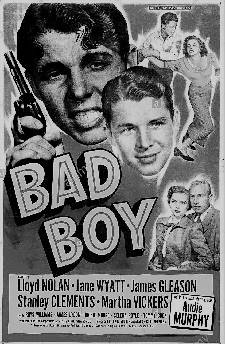 BAD BOY (1935)
BAD BOY (1935) (56 Min.) Genre: 1930 DRAMA, Transfer Quality: B
Bad Boy Eddie Nolan (James Dunn) spends more time in the poolroom than he does looking for work. Even so, Sally Larkin (Dorothy Wilson) is willing to marry Eddie, certain that he'll hunker down and seek employment once he acclimates himself to the responsibilities of marriage. But this doesn't happen, and soon the impecunious Eddie is shipping Sally back to her parents. Things take an upward turn when our hero manages to corral a gang of crooks, thereby earning himself a fat reward and unlimited job opportunities. Though running only 56 minutes, Bad Boy managed to secure top-of-the-bill bookings thanks to James Dunn's fan following.
Starring: James Dunn, Dorothy Wilson, Louise Fazenda, Victor Kilian | Directed by: John G. Blystone
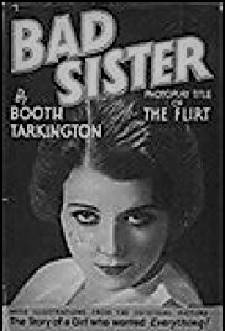 BAD SISTER, THE (1931)
BAD SISTER, THE (1931) (68 Min.) Genre: 1930 DRAMA, Transfer Quality: B
A naive, wealthy small-town girl, bored with her routine life, falls for a dashing con artist who has come looking for fresh marks to swindle. He soon charms her into faking her prominent father's name on a letter of endorsement, which he presents to the other local merchants. They willingly give him all sorts of goodies and he prepares his escape, but not before conning the girl into becoming his wife. After their wedding night in a sleazy hotel, he abandons her. Fortunately, by the story's end, she is able to reassemble her shattered life and find happiness.
Starring: Conrad Nagel, Bette Davis, ZaSu Pitts, Humphrey Bogart | Directed by: Hobart Henley
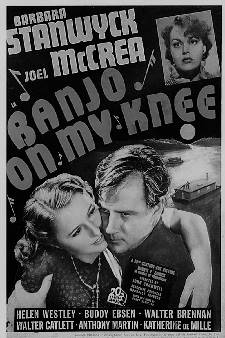 BANJO ON MY KNEE (1936)
BANJO ON MY KNEE (1936) (95 Min.) Genre: 1930 DRAMA, Transfer Quality: A
This lively riverboat musical shows off the vocal and terpsichorean talents of former Ziegfeld Follies star Barbara Stanwyck as it tells the tale of two newlyweds who must postpone their honeymoon when the groom gets in a fight with a villain, decks him and, believing he has killed him, flees upon a riverboat, leaving his bride to take up with a womanizing photographer. She and the cameraman head for New Orleans and this is where most of the action, music and romantic mayhem takes place. — Sandra Brennan
Starring: Barbara Stanwyck, Joel McCrea, Walter Brennan, Buddy Ebsen | Directed by: John Cromwell
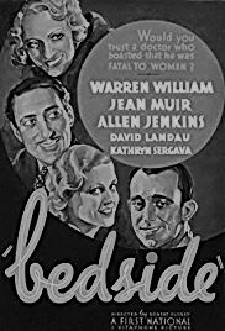 BEDSIDE (1934)
BEDSIDE (1934) (65 Min.) Genre: 1930 DRAMA, Transfer Quality: B
Having previously played dishonest politicians, lawyers, and businessmen, Warren William is cast as a fraudulent doctor in Warner Bros.' Bedside. Riding on the crest of a publicity wave, Dr. Louis (William) is able to move in the finest social circles with impunity. Only when he is unable to provide proper medical care for his own sweetheart Caroline (Jean Muir) does the truth come out: William "earned" his diploma by providing illegal drugs to a dope-fiend doctor (David Landau). Eventually, our "hero" comes to realize the gravity of his lies and rather belatedly vows to redeem himself. Reviewers in 1934 noted that the screenwriters worked so hard to make Warren William's character a heel that his last-minute reformation was thoroughly unconvincing; more to the point, William is more fun to watch when he's a louse.
Starring: Warren William, Jean Muir, Allen Jenkins, David Landau | Directed by: Robert Florey
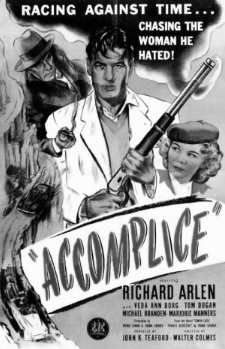 BIG CITY (1937)
BIG CITY (1937) (80 Min.) Genre: 1930 DRAMA, Transfer Quality: B
The Big City is an improbable urban melodrama which takes place during a "taxi war" between honest independent cabdrivers and graft-ridden taxi monopolies. Looking for a scapegoat for a recent gangland bombing, crooked city officials deport the foreign wife (Luise Rainer) of rabble-rousing cabbie Spencer Tracy. Desperately seeking a reprieve for his wife, Tracy goes to the mayor, who is in the process of addressing a banquet of retired boxers. The ex-pugilists take Tracy's side, head down to the wharf to pummel the gangsters responsible for the bombing, and rescue Tracy's wife from being shipped back to her homeland. To avoid confusion with a 1948 MGM film of the same name, the 1937 Big City has been retitled Skyscraper Wilderness for television.
Starring: Luise Rainer, Spencer Tracy, Charles Grapewin, Janet Beecher, Eddie Quillan, William Demarest, Guinn "Big Boy" Williams, Alice White | Directed by: Frank Borzage
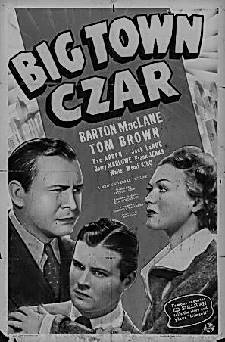 BIG TOWN CZAR (1939)
BIG TOWN CZAR (1939) (61 Min.) Genre: 1930 DRAMA, Transfer Quality: B
It was once said of actor Barton MacLane that he never spoke when shouting would do. Cast as the title character in Big Town Czar, MacLane is afforded plenty of opportunity for shouting, which he seizes with a vengeance. Working his way up from the tenements, Phil Carey (MacLane) is truly king of the the underworld. Not altogether evil, however, Carey uses a goodly portion of his ill-gotten gains to finance the college education of his beloved younger brother Danny (Tom Brown). But when Danny drops out of school to join the mob himself, Phil is aghast, having hoped to shield the kid from the exigencies of criminal life. It gets worse when Danny is killed during a gang war, which leads inexorably to Phil's own demise. According to the credits, Big Town Czar was based on a story by newspaper columnist Ed Sullivan, who appears in the film as himself (and he never once says "Rilly big shew").
Starring: Barton MacLane, Tom Brown, Eve Arden, Jack LaRue | Directed by: Arthur Lubin
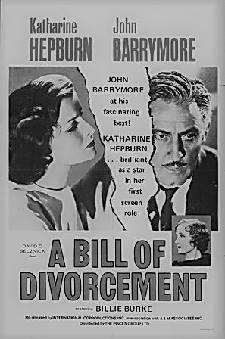 BILL OF DIVORCEMENT, A (1932)
BILL OF DIVORCEMENT, A (1932) (76 Min.) Genre: 1930 DRAMA, Transfer Quality: B
Katharine Hepburn made her auspicious film debut in the otherwise undistinguished A Bill of Divorcement. Based on a play by Clemence Dane, the film is set on the day that Hepburn's mother, Billie Burke, is to divorce her insane and long-institutionalized husband John Barrymore. But Barrymore escapes from the asylum and returns home, only vaguely aware of the passage of time (he was shell-shocked during WWI). His presence puts Burke in an uncomfortable spot, especially since she plans to wed Paul Cavanaugh. Pressured by her idiotically traditional family to renew her vows with her first husband, Burke is saved from a lifetime of misery by her spunky daughter Hepburn, who takes care of her child-like father. The film's attitude towards male-female relationships, not to mention its archaic approach to the problem of mental illness, make Bill of Divorcement a chore to sit through today. Its saving grace is the warm rapport between Katharine Hepburn and John Barrymore (contrary to Hollywood legend, they did not despise one another). Even given its dated quality, Bill of Divorcement is more palatable than its empty 1940 remake, which starred Maureen O'Hara and Adolphe Menjou.
Starring: John Barrymore, Billie Burke, Katharine Hepburn, David Manners, Bramwell Fletcher, Henry Stephenson | Directed by: George Cukor
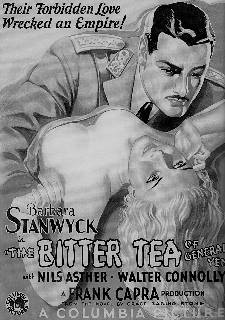 BITTER TEA OF GENERAL YEN, THE (1933)
BITTER TEA OF GENERAL YEN, THE (1933) (90 Min.) Genre: 1930 DRAMA, Transfer Quality: A
The Bitter Tea of General Yen is the oddest, least characteristic talkie effort of director Frank Capra. Barbara Stanwyck stars as the intended of an American missionary (Gavin Gordon) who is sent to spread the good word in China. During a military revolution, Stanwyck and her fiance inadvertently wander into forbidden territory while trying to help a group of orphans escape. The couple is forcibly detained by elegant warlord General Yen (played by Swedish actor Nils Ashter), who relies upon the financial advice of drunken American expatriate Walter Connolly. Yen is overcome with desire at the sight of Stanwyck; at first repulsed by his attentions, Stanwyck finds herself strangely drawn to the charismatic oriental. When everyone but Connolly deserts Yen when he needs them most, Stanwyck offers to stay behind with the General. Realizing she is doing this more to save her fiance than out of genuine affection for him, the honorable General Yen commits suicide by drinking poisoned tea. The one scene that everyone remembers takes place during one of Stanwyck's fevered dreams, in which she imagines Yen as a Fu Manchu-type rapist, who then melts into a gentle, courtly suitor. Directed with the exotic aplomb of a Josef von Sternberg by the usually down-to-earth Frank Capra, Bitter Tea of General Yen was unfortunately a box office failure, due in great part to its miscegenation theme (this was still 1933). Even so, the film was chosen as the first attraction at the new Radio City Music Hall. — Hal Erickson
Starring: Barbara Stanwyck, Nils Asther, Gavin Gordon, Toshia Mori | Directed by: Frank Capra
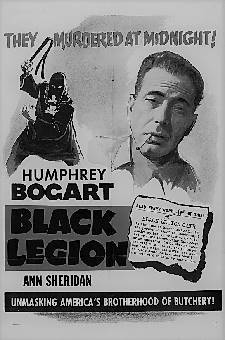 BLACK LEGION (1937)
BLACK LEGION (1937) (80 Min.) Genre: 1930 DRAMA, Transfer Quality: B
This hard-hitting, socially conscious drama, the sort of story that Warner Bros. made their hallmark in the 1930s, concerns a factory worker named Frank Taylor (Humphrey Bogart), who is convinced that a big promotion is right around the corner for him. However, the promotion goes to a harder-working Polish immigrant named Joe Dombrowski (Henry Brandon). Angry and upset, Frank is approached by members of a secret organization called the Black Legion, who believe in "America for Americans" and want to drive away immigrants and racial minorities through violent means. Wearing black robes, Frank and the other members of the Legion go on a torchlight raid, driving Dombrowski and his family from their home. With Dombrowski gone from the plant, Frank gets the job, which means more money and a higher standard of living for him and his family. But his outlaw activities with the Legion begin taking up more of his time (and his money, as they make a healthy profit selling robes, weapons, and racist geegaws to their membership), which drives a wedge between Frank and his wife Ruth (Erin O'Brien-Moore). Frank begins drinking and starts slapping Ruth around; she leaves him, and Frank takes up with a floozie named Pearl (Helen Flint). Ed (Dick Foran), a good friend of Frank's, sees that his buddy is drinking too much and ruining his life, so he tries to step in and express his concern. His tongue loosened by alcohol, Frank tells Ed about his secret life with the violent Legion; the next morning, Frank is afraid that Ed might inform on him to the police, so he tells the Legion leadership what has happened. They subsequently order Ed to be captured and executed. While Warner Bros. attempted to avoid the wrath of Black Legion and Ku Klux Klan members by stating that all characters and institutions were entirely fictional, Black Legion was still a brave attack on hate groups, given that lynchings were not uncommon in parts of the United States in the mid-1930s.
Starring: Humphrey Bogart, Dick Foran, Ann Sheridan, Robert H. Barrat | Directed by: Archie Mayo
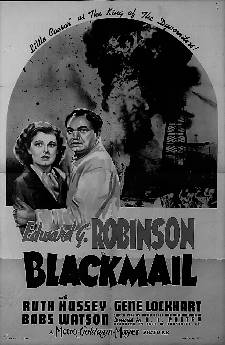 BLACKMAIL (1939)
BLACKMAIL (1939) (81 Min.) Genre: 1930 DRAMA, Transfer Quality: A
Through a miscarriage of justice, John Ingram (Edward G. Robinson) is convicted of a crime he did not commit and sentenced to a long stretch on a chain gang in the deep South. In time, Ingram flees to Oklahoma, where he makes a living fighting oil fires under an assumed name. Several years later, he has a successful business, a loving wife (Ruth Hussey), and a child. But he still lives in fear that his secret will be revealed, and one day he's visited by William Ramey (Gene Lockhart). Ramey admits that he committed the crime for which Ingram was convicted; he proposes that they meet with the authorities together, and Ramey will sign a confession that will clear Ingram's name. But Ramey instead double-crosses Ingram, putting him back on the chain gang while Ramey lays claim to his business. Before long, Ingram learns that his wife and child are nearly broke thanks to Ramey's gutting of his once-thriving business, and he decides that he must once again escape if he is to protect the safety of his family. Blackmail marked one of Edward G. Robinson's first "good guy" roles after making his name in a series of gangster epics; a year later, he would be starring in prestigious biopics, such as Dr. Ehrlich's Magic Bullet and A Dispatch From Reuters. — Mark Deming
Starring: Edward G.Robinson, Gene Lockhart, Ruth Hussey, Guinn "Big Boy" Williams | Directed by: H.C.Potter
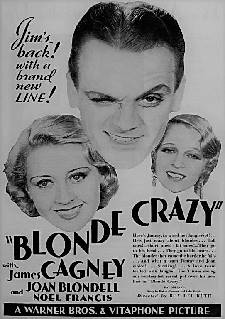 BLONDE CRAZY (1931)
BLONDE CRAZY (1931) (81 Min.) Genre: 1930 DRAMA, Transfer Quality: A
Blonde Crazy describes the perpetual mental state of James Cagney. A conniving bellhop, Cagney increases his bank account by using his blonde girlfriend Joan Blondell as a come-on to various "sugar daddies" whom he suckers out of their hard-earned cash. When the pair try their con game in New York, they fall victim to sharpster Louis Calhern. Angry that Cagney has lost their money, Blondell marries straight-arrow Ray Milland. Cagney tries to get back the dough by committing a holdup, and is promptly arrested. Blondell, realizing that Cagney has landed in jail because of her, throws over her husband and vows to wait for Cagney. As amoral as a bagful of alley cats, Blonde Crazy is good dirty fun from Hollywood's randy pre-code era. — Hal Erickson
Starring: James Cagney, Joan Blondell, Louis Calhern, Noel Francis | Directed by: Roy Del Ruth
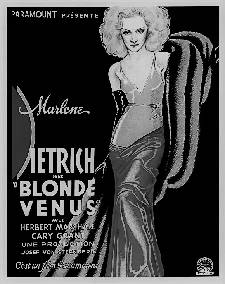 BLONDE VENUS (1932)
BLONDE VENUS (1932) (92 Min.) Genre: 1930 DRAMA, Transfer Quality: B
Marlene Dietrich stars as Helen Faraday, a German cabaret singer in the States whose husband, Ned, falls ill and his only hope is to receive expensive medical treatment at a clinic in Europe. Struggling to afford his care and to support their son Johnny, she works at a nightclub and succumbs to the advances of wealthy playboy Nick, whose gifts assist in her husband's recovery. Soon Ned recovers and returns, but when he discovers that Helen has been unfaithful, he divorces her, threatening to take their son. After running with little Johnny, she ends up a prostitute in New Orleans, where she is found by the detective hired by Ned. The boy is taken from her and Helen flees to Paris where she becomes a cabaret sensation. Upon witnessing a performance, Nick begins seeing her again and when the show moves to NYC, he secures a meeting between her and her ex — who is finally made aware of the motivation behind her affair years before. This is the feature containing the well-known scenes where Dietrich performs stage numbers in an ape-suit and a white tuxedo (complete with top hat). — Kristie Hassen
Starring: Marlene Dietrich, Herbert Marshall, Cary Grant, Dickie Moore | Directed by: Josef von Sternberg
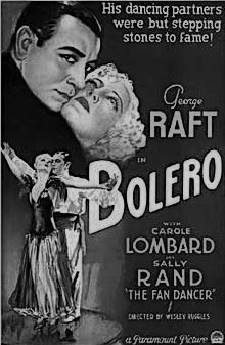 BOLERO (1934)
BOLERO (1934) (80 Min.) Genre: 1930 DRAMA, Transfer Quality: B
Bolero stars George Raft as Raoul de Barre, an arrogant dancer who rises to fame in the years prior to, during, and after WW I. Raoul is helped along the way by his promoter brother Mike (William Frawley) and scores of willing females, matriculating from two-bit gigolo to the greatest ballroom dancer in Paris. Determining that nothing will stand in his way to the top, he regularly fires any female dancing partner who has the misfortune to fall in love with him — until the last of his partners, the beautiful Helen (Carole Lombard) beats him to the punch by walking out on him. His heart weakened during the war, Raoul aspires to open his own nightclub, despite warnings that if he ever dances again the consequences will be fatal. On opening night of his new establishment, Raoul dances Maurice Ravel's "Bolero" with Helen, now the wife of a British nobleman. Having reached his emotional and professional pinnacle, Raoul collapses and dies in his dressing room — as the nightclub patrons, oblivious to his fate, loudly demand an encore. Surprisingly, George Raft and Carole Lombard's dancing is doubled by others, but the same cannot be said of the inimitable Sally Rand, whose famous fan dance is tastefully re-created here. Raft and Lombard later reteamed in 1935's Rumba.
Starring: George Raft, Carole Lombard, Sally Rand, Frances Drake, Ann Sheridan | Directed by: Wesley Ruggles
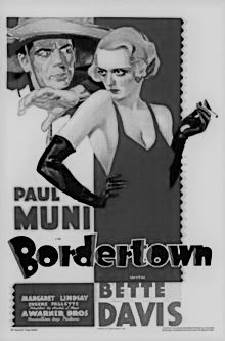 BORDERTOWN (1935)
BORDERTOWN (1935) (91 Min.) Genre: 1930 DRAMA, Transfer Quality: A
Paul Muni stars in this drama about a romantic triangle that leads to madness and murder. Overly enthusiastic Mexican attorney Johnny Ramirez (Muni) is disbarred after his first trial for his flagrant disregard of courtroom etiquette. In desperate need of work, he takes a job as a bouncer in a sleazy bordertown night club owned by Charlie Roark (Eugene Pallette). Charlie's wife Marie (Bette Davis) is immediately attracted to Johnny and makes a none-too-subtle play for him. But Johnny has his eye on Dale Elwell (Margaret Lindsay), a socialite who enjoys slumming in low-class dives and admiringly refers to Johnny as a "savage." Johnny tells Marie that it's against his principles to get involved with a married woman, so she decides to do something about that: she traps drunken Charlie in his car while it's locked in a garage, allowing the carbon monoxide to take Charlie out of the picture. When Marie explains that she killed her husband and is now available to him, Johnny wants no part of her; bitter that Johnny has snubbed her, Marie implicates him in Charlie's murder, leading to a dramatic and surprising trial. Paul Muni reportedly moved in with his Mexican chauffeur in order to study his accent and reproduce it accurately for this film. — Mark Deming
Starring: Paul Muni, Bette Davis, Margaret Lindsay, Eugene Pallette | Directed by: Archie Mayo
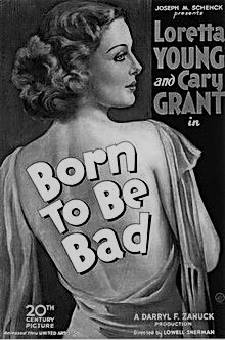 BORN TO BE BAD (1934)
BORN TO BE BAD (1934) (62 Min.) Genre: 1930 DRAMA, Transfer Quality: A
Sugary sweet Loretta Young does an uncharacteristic about-face in 20th Century Productions' Born to be Bad. Young is cast as Letty Strong, an unwed teenaged mother who tricks happily married dairy farmer Malcolm Traver (Cary Grant) into adopting her baby. She later uses all her feminine wiles to steal Traver away from his mousy little wife Alyce (Marion Burns). Bad though Letty is, however, she's still portrayed by Loretta Young, so a last-minute redemption is inevitable. Juvenile radio actor Jackie Kelk plays Letty's obnoxious child, who (somewhat amusingly) turns out to be a bastard in more ways than one. No relation to the 1950 Joan Fontaine vehicle of the same name, Born to be Bad was co-scripted by actor Ralph Graves. — Hal Erickson
Starring: Loretta Young, Cary Grant, Jackie Kelk, Henry Travers | Directed by: Lowell Sherman
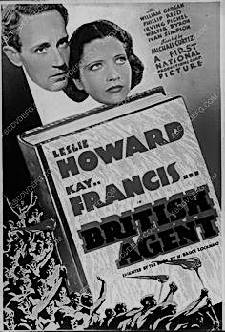 BRITISH AGENT (1934)
BRITISH AGENT (1934) (75 Min.) Genre: 1930 DRAMA, Transfer Quality: A
British Agent starred the Hungarian/British actor Leslie Howard in the title role, was directed by full-fledged Hungarian Michael Curtiz, and costarred American leading lady Kay Francis as a Russian spy. Based on the memoirs of R. H. Bruce Lockhart, who had been the unofficial British emissary to the Russian Revolutionary government in 1917, British Agent spends more time on its romantic subplot than in recreating the birth of Bolshevism. Leslie Howard's purpose in this film is to dissuade the Bolsheviks from signing a separate treaty with the World War I German regime. It is obvious to modern-day viewers that Howard is merely looking after Britain's interests and has no concern for the Russians; this was par for the course in a 1930s film, but does not play well with less jingoistic audiences of the 1990s. The most interesting aspect of British Agent is the performance of saturnine Irving Pichel as a young Josef Stalin. — Hal Erickson
Starring: Leslie Howard, Kay Francis, William Gargan, Phillip Reed, J. Carrol Naish | Directed by: Michael Curtiz
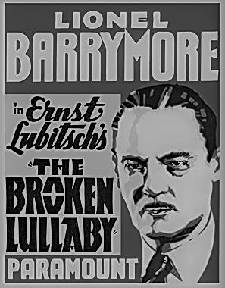 BROKEN LULLABY (1932)
BROKEN LULLABY (1932) (77 Min.) Genre: 1930 DRAMA, Transfer Quality: B
Director Ernst Lubitsch gained international acclaim for his sophisticated romantic comedies, but he also had a talent for more serious themes, as evidenced by this 1932 drama. French musician Paul (Phillips Holmes) joined the Army at the height of WWI. On the field of battle, Paul shot and killed his German friend Walter Holderlin (Tom Douglas), another musician enlisted in his country's army. One year after the Armistice, Paul is still haunted by the memory of Walter's death, and he travels to Germany to locate Walter's father, Dr. Holderlin (Lionel Barrymore). Holderlin, his wife (Louise Carter), and Walter's fiancee, Elsa (Nancy Carroll are still shattered by the death of their loved one. Paul informs them of his friendship with their son, but cannot bring himself to unveil his responsibility for Walter's death. The Holderlins welcome Paul in friendship, and gradually, he settles into the household, bringing to both parents a new lease on life. Because of his lingering guilt, he feels tempted to run away, but Elsa discovers the truth about Paul and refuses to let him leave. Meanwhile, the presence of a Frenchman drums up hostilities in the Holderlins' village and the local women gossip continually about the developing relationship between Paul and Elsa. Perhaps because moviegoers completely snubbed The Man I Killed (also released as Broken Lullaby) and turned it into a financial detriment for Paramount, Lubitsch returned to lighter themes after this anti-war drama, and it was the last "serious" picture he would make before his death in 1948.
Starring: Lionel Barrymore, Nancy Carroll, Phillips Holmes, Lucien Littlefield | Directed by: Ernst Lubitsch
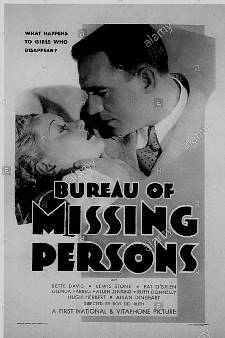 BUREAU OF MISSING PERSONS (1933)
BUREAU OF MISSING PERSONS (1933) (75 Min.) Genre: 1930 DRAMA, Transfer Quality: B
Although claiming to be based on actual cases, this mild crime drama appears to have been derived more from a screenwriter's manual than a police blotter. Newly transferred from robbery to missing persons, glib Butch Saunders (Pat O'Brien) is like the proverbial bull in a china shop at first, but quickly gets the hang of things. In walks pretty Norma Roberts (Bette Davis), claiming to be missing her new husband, whom she accuses of shipping out. Despite being married to nagging Belle (Glenda Farrell), Butch falls in love with the dame, until, that is, he learns the truth. Norma's last name isn't Roberts at all, but Williams, and she is wanted in Chicago for the murder of her boss, Therme Roberts. Begging Butch to cover for her — "just for a little while. I'll explain everything later" — Norma does a disappearing act herself and makes it look like suicide. But Butch refuses to buy the act and with the help of his boss, Captain Webb (Lewis Stone), the fast-talking cop arranges for a corpse to be lying in state at a local funeral parlor under the name of Norma Williams, hoping to flush out the real Norma. Norma walks right into the trap with another cockamamie story at the ready. But this time, it may just be the truth and Butch becomes determined to clear the lady of murder.
Starring: Bette Davis, Lewis Stone, Pat O'Brien, Glenda Farrell, Allen Jenkins, Ruth Donnelly, Noel Francis | Directed by: Roy Del Ruth
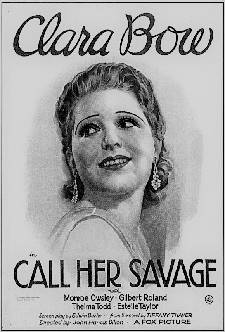 CALL HER SAVAGE (1932)
CALL HER SAVAGE (1932) (82 Min.) Genre: 1930 DRAMA, Transfer Quality: B
In this melodrama with strong racist overtones, Clara Bow attempts to revive her failing career by playing a free-spirited girl whose father is an American Indian and whose mother is Anglo Saxon. For some reason the girl doesn't know of her mixed heritage and constantly fights with her dad. The rebellious girl decides to show her dad who's boss by marrying a man he hates. Unfortunately it's a big mistake and soon after she gives birth to a sickly baby the marriage busts up. He leaves her impoverished and in desperation she turns to prostitution. Eventually, she returns to her homeland and learns the truth. Now at peace she meets a boy with similar heritage and they find marital bliss together.
Starring: Clara Bow, Monroe Owsley, Gilbert Roland, Thelma Todd | Directed by: John Francis Dillon
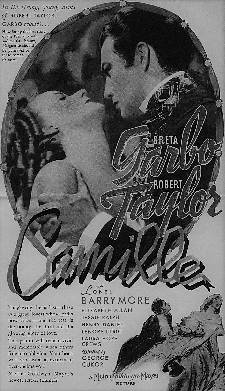 CAMILLE (1936)
CAMILLE (1936) (109 Min.) Genre: 1930 DRAMA, Transfer Quality: A
Greta Garbo enjoyed one of her greatest triumphs in this glossy adaptation of Alexandre Dumas' oft-filmed romantic tragedy. Here, Garbo stars as Marguerite Gauthier, who is born into humble circumstances but in time becomes Dame aux Camille, one of the most glamorous courtesans in Paris. Camille is kept by the wealthy and powerful Baron de Varville (Henry Daniell), but after many years of earning a good living from her beauty without finding true love, Camille's heart is stolen by Armand (Robert Taylor), a handsome but slightly naive young man who doesn't know how she came by her fortune. Armand is just as attracted to Camille as she is to him, and she's prepared to give up the Baron and his stipend to be with Armand. However, Armand's father (Lionel Barrymore) begs Camille to turn away from his son, knowing her scandalous past could ruin his future. Realizing the painful wisdom of this, Camille rejects Armand, who continues to pursue her even as Camille contracts a potentially fatal case of tuberculosis. Remarkably, even though this was one of Garbo's greatest commercial and critical successes, she would make only three more films before her retirement in 1941; Camille, however, would be filmed several more times following this version (most memorably by elegant sexploitation auteur Radley Metzger in 1969's Camille 2000). — Mark Deming
Starring: Greta Garbo, Robert Taylor, Lionel Barrymore, Elizabeth Allan | Directed by: George Cukor
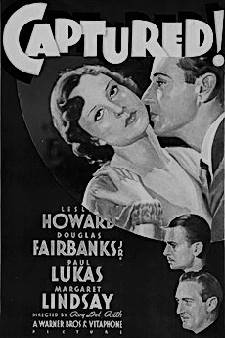 CAPTURED (1933)
CAPTURED (1933) (72 Min.) Genre: 1930 DRAMA, Transfer Quality: A
Adapted from a "drawn from life" novel by Sir Phillip Gibbs, Captured is the story of the men in a German POW camp during World War I. Amongst the allied prisoners are Leslie Howard and Douglas Fairbanks Jr. (British), and Paul Lukas (French). Adding to the dramatic intensity is the fact that both Howard and Fairbanks had been in love with the same aristocratic young woman before the war. Instead of serving up slam-bang action sequences, the film is more concerned with detailing the Hell of war and the despair of those who fight it. Not quite in the same league as La Grande Illusion or Stalag 17, Captured is nonetheless worth a second glance.
Starring: Leslie Howard, Douglas Fairbanks, Jr, Paul Lukas, Margaret Lindsay | Directed by: Roy Del Ruth
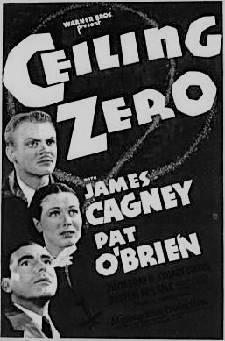 CEILING ZERO (1935)
CEILING ZERO (1935) (95 Min.) Genre: 1930 DRAMA, Transfer Quality: B
Ceiling Zero is an adaptation of the Broadway play by Frank "Spig" Wead. James Cagney and Pat O'Brien are supremely typecast as, respectively, Dizzy Davis, a cocky civil aviator and Jake Lee, a sober-sided ground commander. Dizzy ducks out of a dangerous mission in order to dally with pretty Tommy Thomas (June Travis). Texas Clark (Stuart Erwin) takes Dizzy's place, and the unpolished young pilot dies in a fiery wreck. Disgraced in the eyes of his co-workers after Clark's death, Dizzy redeems himself by taking a crucial test flight in fog-laden "ceiling zero." Dizzy dies a hero, leaving behind his pal Jake to deliver the eulogy. Isabel Jewell co-stars as Clark's wife, given yet another opportunity to shake the rafters with her emotionally supercharged acting. Ceiling Zero was remade in a wartime setting as International Squadron (1940).
Starring: James Cagney, Pat O'Brien, June Travis, Barton MacLane | Directed by: Howard Hawks
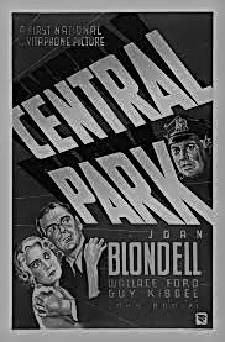 CENTRAL PARK (1932)
CENTRAL PARK (1932) (57 Min.) Genre: 1930 DRAMA, Transfer Quality: B
Two small-town youths head for the Big Apple and somehow get mixed up with mobsters during a visit to the title park in this episodic comedy drama filmed on location.
Starring: Willard Robertson, Rolfe Sedan, Guy Kibbee, Dennis O'Keefe | Directed by: John G. Adolphi
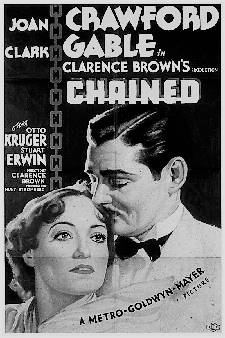 CHAINED (1934)
CHAINED (1934) (73 Min.) Genre: 1930 DRAMA, Transfer Quality: A
Joan Crawford is at her most glamorous (a different outfit and hairdo in each scene!) in the romantic melodrama Chained. Crawford plays Diane Lovering, the mistress of prominent Manhattan businessman Richard Field (Otto Kruger). Though she really isn't in love with him, she feels obligated to marry him when he divorces his wife (Margaret Gateson) for Diane's sake. By the time the divorce is final, Diane has fallen for wealthy South American rancher Mike Bradley (Clark Gable), but, out of loyalty to Field, she abruptly cuts off her relationship with Mike, who does his best to hide his pain. It looks as though both Diane and Mike will continue to suffer stoically until the plot is resolved by the understanding and remarkably generous Field. Clarence Brown's glossy direction helps to make this star vehicle seem more important than it really is. — Hal Erickson
Starring: Joan Crawford, Clark Gable, Otto Kruger, Una O'Connor | Directed by: Clarence Brown
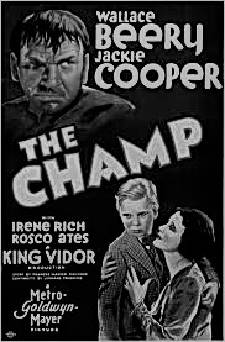 CHAMP, THE (1931)
CHAMP, THE (1931) (87 Min.) Genre: 1930 DRAMA, Transfer Quality: A
Wallace Beery won an Academy Award for his tour de force performance as a washed-up boxer. The bibulous Beery travels from one tank-town bout to another in the company of his faithful son Jackie Cooper and his stuttering manager Roscoe Ates. Hoping for a comeback in Tijuana, Beery is approached by his ex-wife Irene Rich, now married to wealthy Hale Hamilton. Rich convinces Beery that Cooper would be better off with her. Feigning brusqueness, Beery orders his son to get lost, hoping that the kid will be disillusioned enough to remain with his mother. But Cooper runs away from his new home and shows up back in Tijuana, just as Beery is in the middle of his comeback bout. Cheered on by his son, Beery knocks his opponent cold—and then collapses himself. Dying, Beery tells the tearful Cooper that everything will be all right if the boy returns to his mom. While Wallace Beery was capable of laying on pathos with a trowel, his final scene in The Champ can still move an audience to tears—far more so than the similar scene between Jon Voight and Rick Schroeder in the wearisome 1979 remake. In 1953, writer Frances Marion updated and revised her Champ script, changed the washed-up pug to a washed-up comedian, and came up with The Clown, one of Red Skelton's few dramatic vehicles. — Hal Erickson
Starring: Wallace Berry, Jackie Cooper, Irene Rich, Roscoe Ates, Edward Brophy | Directed by: King Vidor
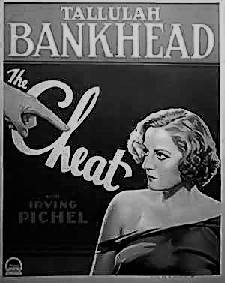 CHEAT, THE (1931)
CHEAT, THE (1931) (69 Min.) Genre: 1930 DRAMA, Transfer Quality: B
This Depression-era melodrama chronicles the travails of a wealthy family that is nearly destroyed by a wife's compulsive gambling. The trouble begins when the Long Island housewife loses 10-grand while gambling in a club. Trying hard to conceal this enormous loss from her hubby, she embezzles from a charity fund and tries to win back the fortune by playing the market. Unfortunately, it fails and she is forced to take money from a wealthy fellow who has just come back from Asia. When her husband finds out, he pays the money to the cad, but he wants the wife instead. When he insists, the wife shoots him dead. A trial ensues, and there, the devoted husband sacrifices himself by taking the rap until his wife bursts in and admits her wrongdoing.
Starring: Tallulah Bankhead, Irving Pichel, Harvey Stephens, Jay Fassett | Directed by: George Abbott
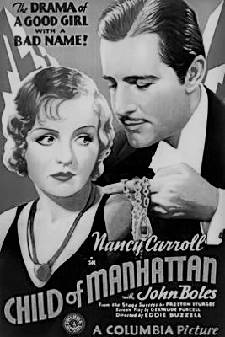 CHILD OF MANHATTAN (1933)
CHILD OF MANHATTAN (1933) (70 Min.) Genre: 1930 DRAMA, Transfer Quality: B
On the outs at Paramount, musical comedy star Nancy Carroll was "punished" by being sent to Columbia for the lachrymose Child of Manhattan. Carroll plays a dance-hall girl who falls hard for wealthy John Boles. Marriage is out of the question until she becomes pregnant. After losing her baby, Carroll divorces Boles and runs off with Charles Jones (better known as cowboy star Buck Jones). As the plot would have it, this convinces Boles that Carroll is not the golddigger she appears to be. Child of Manhattan was based on a Preston Sturges play, but most of the wittier and more pungent lines were lost in translation.
Starring: Nancy Carroll, John Boles, Warburton Gamble, Clara Blandick | Directed by: Edward N. Buzzell
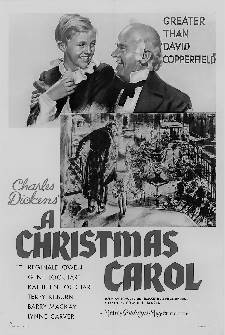 CHRISTMAS CAROL, A (1938)
CHRISTMAS CAROL, A (1938) (69 Min.) Genre: 1930 DRAMA, Transfer Quality: A
For a generation of radio fans, Lionel Barrymore was the definitive Ebeneezer Scrooge. Alas, Barrymore was crippled by arthritis by the time MGM got around to filming Charles Dickens' A Christmas Carol in 1938, so the Scrooge role went to contract player Reginald Owen - who, though hardly in the Barrymore league, does a splendid job. Hugo Butler's screenplay must make some adjustments from the source material. The Ghost of Christmas Past, for example, is played not by a robust middle-aged man but by a beautiful young woman (Ann Rutherford). Impeccably cast, the film includes such reliable character players as Leo G. Carroll (Marley's Ghost), Barry McKay (Scrooge's nephew Fred) and Gene and Kathleen Lockhart (Bob and Mrs. Cratchit). the Lockhart's teenaged daughter June makes her screen debut as one of the Cratchit children, while Terry Kilburn is a fine, non-sentimental Tiny Tim. Commenably short for a major production (69 minutes), MGM's Christmas Carol is one of the best adaptations of the oft-filmed Dickens Yuletide classic, and definitely on equal footing with the more famous 1951 Alastair Sim version. — Hal Erickson
Starring: Reginald Owen, Gene Lockhart, Kathleen Lockhart, Leo G. Carroll | Directed by: Edwin L. Marin
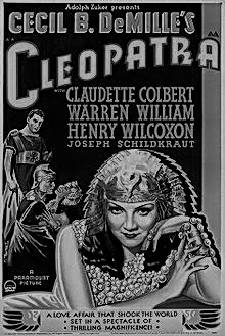 CLEOPATRA (1934)
CLEOPATRA (1934) (100 Min.) Genre: 1930 DRAMA, Transfer Quality: A
Film historian William K. Everson once observed that the secret to the success of Cecil B. DeMille's 1934 Cleopatra is that DeMille subtly reshaped the known historical events into a contemporary "gold-digger makes good" scenario. Exhibiting the same determination with which Barbara Stanwyck sleeps her way to the top in 1933's Baby Face, Queen Cleopatra (Claudette Colbert) uses her feminine wiles to become sole ruler of Egypt. By turns kittenish and cold-blooded, Cleopatra wraps such otherwise responsible Roman worthies as Julius Caesar (Warren William, who wittily plays his role like one of his standard ruthless business executives) and Marc Antony (Henry Wilcoxon) around her well-manicured little finger. To emphasize the "contemporary" nature of the film, DeMille adds little modernistic touches throughout: The architecture of Egypt and Rome has a distinctly art-deco look; a matron at a social gathering clucks "Poor Calpurnia...well, the wife is always the last to know"; and, after Caesar's funeral, Mark Anthony is chided by an associate for "all that 'Friends, Romans, Countrymen' business!" Cleopatra's barge scene and her suicide from the bite of a snake marked two of the most memorable sequences in DeMille's career. Remarkably, for all the enormous sets and elaborate costumes, Cleopatra came in at a budget of $750,000 — almost $40 million less than the 1963 Elizabeth Taylor remake. — Hal Erickson
Starring: Claudette Colbert, Warren William, Henry Wilcoxon, Gertrude Michael | Directed by: Cecil B. DeMille
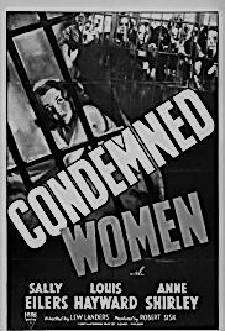 CONDEMNED WOMEN (1938)
CONDEMNED WOMEN (1938) (77 Min.) Genre: 1930 DRAMA, Transfer Quality: A
In this drama, a falsely convicted woman falls in love with the prison psychologist who tries to liberate her. She ended up in prison to protect her boyfriend who was just about to finish law school. The doctor and patient tryst in the prison furnace room. When he is not around, the woman must deal with the usual travails of a convict including a strict, domineering matron. A prison break occurs and violence erupts. — Sandra Brennan
Starring: Louis Hayward, Anne Shirley, Esther Dale, Lee Patrick | Directed by: Lew Landers
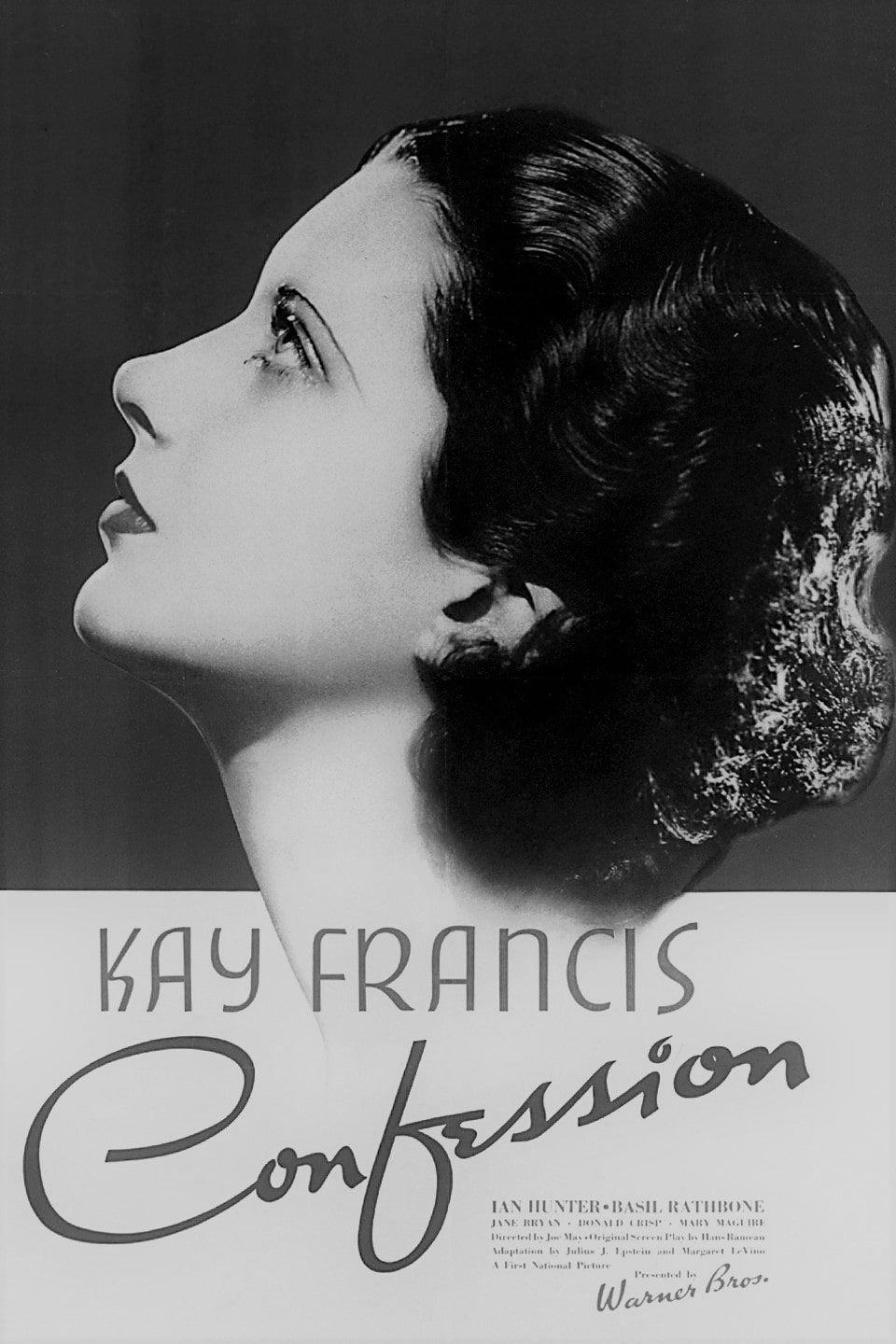 CONFESSION (1937)
CONFESSION (1937) (85 Min.) Genre: 1930 DRAMA, Transfer Quality: B
German director Joe May brought a decidedly Teutonic ambience to his American film Confession—no surprise, since the film was based on the 1935 German production Mazurka. Kay Francis plays a onetime singer who confesses to the murder of her pianist, Basil Rathbone. In flashback, we learn that Rathbone had been responsible for the breakup of Francis's marriage. Years later, Rathbone came back into her life, this time with the intention of seducing Ms. Francis' grown daughter (Jane Bryan). In a variation of Madame X, Francis was stuck with the dilemma of deflecting Rathbone from his "mission"—and of keeping her true identity secret from her daughter. Prior to Mazurka, the Hans Rameau story upon which Confession was based had been filmed as a silent picture starring Gloria Swanson. — Hal Erickson
Starring: Kay Francis, Basil Rathbone, Donald Crisp, Ian Hunter | Directed by: Joe May
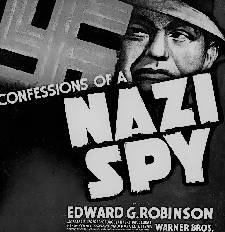 CONFESSIONS OF A NAZI SPY (1939)
CONFESSIONS OF A NAZI SPY (1939) (105 Min.) Genre: 1930 DRAMA, Transfer Quality: A
Bold for its time (just prior to World War II), Confessions of a Nazi Spy is an expose of a genuine Nazi espionage ring operating in the United States. Dedicated National Socialist Paul Lukas arrives in America to conduct Bund rallies and enlist German-Americans in the service of Hitler. His rabble-rousing speeches inspire a blue collar worker (Francis Lederer) to join a Bund, and then participate in spy activities. FBI agent Edward G. Robinson is assigned to investigate. Extracting a confession from the not-too-bright Lederer, Robinson traces the espionage activities to Lukas. The Nazi official's notoriety and his undesirability as a security risk compels the German secret police to kidnap Lukas and spirit him back to the Fatherland, presumably to face liquidation. The spy ring is rounded up, but Robinson realizes that this is only the beginning. Confessions of a Nazi Spy may seem dated today, but in 1939 it packed a real wallop, especially since most filmmakers of that era chose to ignore the Nazis lest they lose the valuable European market. — Hal Erickson
Starring: Edward G. Robinson, Francis Lederer, George Sanders, Paul Lukas | Directed by: Anatole Litvak
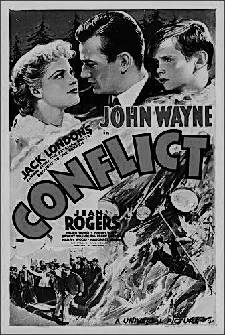 CONFLICT (1937)
CONFLICT (1937) (59 Min.) Genre: 1930 DRAMA, Transfer Quality: B
Another entry from John Wayne's non-western series at Universal, Conflict casts Wayne as Pat, a bare-knuckle boxer in turn-of-the-century New York. Not the most honest of pugilists, Pat reforms for the sake of an orphaned kid named Tommy (Tommy Bupp), whom he has saved from drowning. He sets out to redeem himself by finding legitimate work in a lumber camp, but his past catches up with him. Jean Rogers, Buster Crabbe's vis-a-vis in Flash Gordon, is the heroine, while the nominal villain is Ward Bond, making the first of several co-starring appearances with John Wayne. Conflict is based on Jack London's The Abysmal Brute, previously filmed under that title with Reginald Denny in 1923.
Starring: John Wayne, Jean Rogers, Tommy Bupp, Eddie Borden | Directed by: David Howard
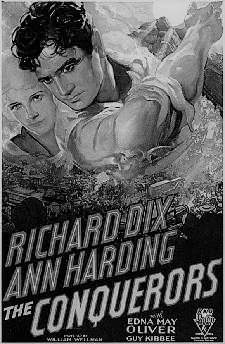 CONQUERORS, THE (1932)
CONQUERORS, THE (1932) (84 Min.) Genre: 1930 DRAMA, Transfer Quality: B
This Depression-era morale-booster looks at the ups and downs of a banking family from the 1870s to the 1930s (and borrows plentifully from the previous year's hit Cimarron, another empire-building saga that also starred Dix). Following the financial collapse of 1873, Roger Standish (Richard Dix) starts a bank that he guides through various panics. Despite the adversities, he and his wife Caroline (Ann Harding) ultimately establish an American banking dynasty. Note Richard Dix in a dual role, also appearing as Roger's grandson when he joins the Lafayette Escadrille during World War One. (Director Wellman was a former member of the Lafayette Flying Corps.)
Starring: Richard Dix, Ann Harding, Edna May Oliver, Guy Kibbee | Directed by: William Wellman
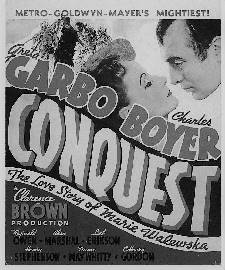 CONQUEST (1937)
CONQUEST (1937) (112 Min.) Genre: 1930 DRAMA, Transfer Quality: A
Conquest was released in England as Marie Waleska, the name of the real-life historical personage portrayed by Greta Garbo. The film begins in 1807, when Marie, a Polish countess, is dispatched by her country to meet with Emperor Napoleon Bonaparte (Charles Boyer). Marie has been encouraged to press for Polish independence by whatever means possible—and though no one comes out and says as much, it is understood that she will offer herself sexually to the promiscuous Napoleon. She dutifully becomes Bonaparte's mistress, bears his child, and—almost as an afterthought—falls in love with him. Thanks to the political chicanery of Talleyrand (Reginald Owen), Napoleon is obliged to marry Hapsburg princess Marie Louise, and Marie is cast aside, her usefulness at an end. Only after Napoleon has been exiled to Elba in 1815 is he reunited with Marie and their son (Scotty Beckett). Though it stands up pretty well today, Conquest was a flop in 1937, and the beginning of the end of Garbo's screen career
Starring: Greta Garbo, Charles Boyer, Reginald Owen, Leif Erickson, Maria Ouspenskaya, George Zucco | Directed by: Clarence Brown
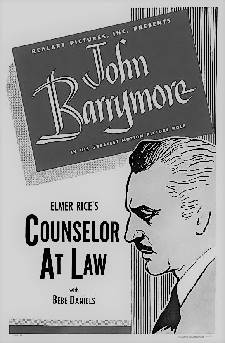 COUNSELLOR AT LAW (1933)
COUNSELLOR AT LAW (1933) (82 Min.) Genre: 1930 DRAMA, Transfer Quality: A
Adapted from the play by Elmer Rice, Counsellor-at-Law is the story of a successful Jewish lawyer George Simon (John Barrymore) who finds it's lonely at the top. Simon's wife (Doris Kenyon) and children look down upon him because of his humble upbringings, while his mother reprimands him for turning his back on his heritage. Simon is threatened with disbarment when a rival digs up a big wormy can of legal wrongdoing in Simon's past, but this is only the beginning of the end. When the beleaguered lawyer discovers that his wife has been unfaithful, he looks out the window of his Empire State Building office and contemplates suicide. Simon is brought to his senses by his faithful secretary (Bebe Daniels), who has loved him all along. Filled with vivid character vignettes and blessed with energetic direction by William Wyler, Counsellor-at-Law is one of the best "lawyer" films of the 1930s. — Hal Erickson
Starring: John Barrymore, Bebe Daniels, Doris Kenyon, Onslow Stevens | Directed by: William Wyler
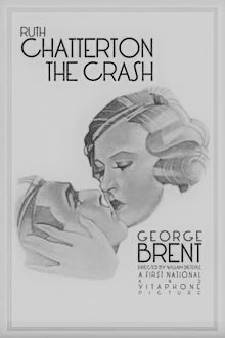 CRASH, THE (1932)
CRASH, THE (1932) (58 Min.) Genre: 1930 DRAMA, Transfer Quality: B
In this drama, set in 1929 when the stock market crashed, a selfish, money-grubbing wife ruins her husband, an accountant after she feeds him a fake stock market tip. Prior to that, she had been having an affair with a wealthy fellow. She destroys her husband because she is bored with her lover and wants to start fresh in Bermuda. On the island, she meets a wealthy Australian who wants to get married. Her husband wants his fortune back. To get it, he blackmail's his wife's former lover. The capricious woman soon tires of the Australian and returns to her spouse. She then tears up the blackmail check.
Starring: Ruth Chatterton, George Brent, Paul Cavanagh, Helen Vinson | Directed by: William Dieterle
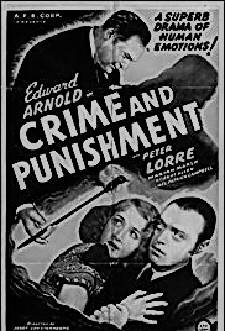 CRIME AND PUNISHMENT (1935)
CRIME AND PUNISHMENT (1935) (88 Min.) Genre: 1930 DRAMA, Transfer Quality: B
The story goes that Peter Lorre wanted to star in a film version of Dostoyevsky's Crime and Punishment, but was certain that Columbia Pictures chieftain Harry Cohn would turn the project down flat. So Lorre hired a secretary to type up a synopsis of the story in words of one syllable then submitted this simplified resume to Cohn. Enthusiastic over the project, Cohn gave Lorre the go-ahead — but first he asked "Tell me — has this book got a publisher?" Apocryphal story or no, the fact is that Lorre did star in Columbia's Crime and Punishment and in the bargain was directed by the ultra-stylish Josef Von Sternberg. As the arrogant sociopath Raskolnikov, who is convinced that he can get away with the murder of a nasty pawnbroker because he is "above" such intangibles as a conscience, Lorre is excellent, especially when his bravado is slowly eroded by the gentle but determined Inspector Porfiri (Edward Arnold). Like the aforementioned typed-up synopsis, the film oversimplifies the Dostoyevsky original, concentrating only on the crime, the pangs of guilt, the confession and the arrest: the punishment and its aftermath, so essential to the novel's overall impact, are dispensed with entirely. To make the film even more accessible to a mass audience, the story is subtly updated, though any distinctly "contemporary" touches such as automobiles, telephones and current slang are studiously avoided. The supporting cast is wildly inconsistent: Mrs. Patrick Campbell is fine in her brief scenes as the vitriolic pawnbroker, but Marian Marsh is all wrong as the streetwalker heroine Sonya. The principal strength of this Crime and Punishment is the film-long game of cat-and-mouse between the reckless Raskolnikov and the quietly methodical Porfiri.
Starring: Edward Arnold, Peter Lorre, Marian Marsh, Tala Birell, Gene Lockhart | Directed by: Josef von Sternberg
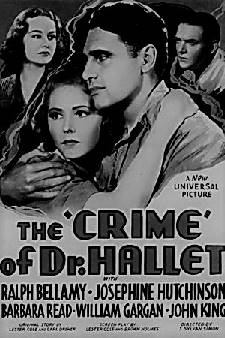 CRIME OF DOCTOR HALLET, THE (1938)
CRIME OF DOCTOR HALLET, THE (1938) (65 Min.) Genre: 1930 DRAMA, Transfer Quality: B
This medical melodrama, set in the moist Sumatran jungles, centers around bacteria research. To find a cure for red fever, a dreaded disease, a young doctor with a healthy Park Avenue clientele, leaves his practice and ventures into the jungle. The native doctors do not welcome his to Sumatra as they are already researching for a cure. The New York doctor is given only small, meaningless tasks. Still he continues his research independently in a small jungle clearing. He finally succeeds and finds a cure. Unfortunately, he himself is infected by the disease. The other doctors inject him with their cure which has no effect. The doctor dies. Afterwards his rivals find his notes. They feel badly about their treatment of him and they decide to continue his research. To pay for it, they forge $4,000 worth of his travelers checks. They hire a new assistant, and she falls in love with one of them. Later, the late doctor's wife appears. She is angry and accuses the researcher of fraud and murder. Then she gets sick. Using the new cure, they heal her. The new cure is a success.
Starring: Ralph Bellamy, William Gargan, Eleanor Hansen, Constance Moore | Directed by: S. Sylvan Simon
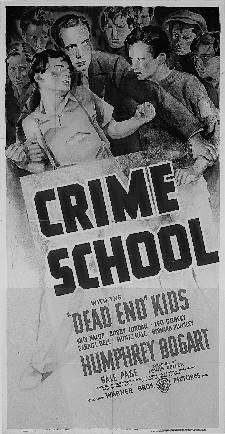 CRIME SCHOOL (1938)
CRIME SCHOOL (1938) (86 Min.) Genre: 1930 DRAMA, Transfer Quality: A
This entry in the Dead End Kids series of adventures makes critical comments about the failings of reform schools. The story begins as the boys are sent to the Gatesville Reformatory, a cruel institution where the discipline is often violent. They boys do their best, but it is difficult to cope. Things get a little better when the deputy commissioner of corrections makes a surprise visit to the institution. He is appalled and immediately fires the sadistic warden. He then begins instituting gentler ways of treating the inmates. The grateful youths save the new warden's life after he is machine gunned during a political double-cross. As a reward, the boys are paroled.
Starring: Humphrey Bogart, Gale Page, Billy Halop, Bobby Jordan, Huntz Hall, Leo Gorcey (Dead End Kids) | Directed by: Lewis Seiler
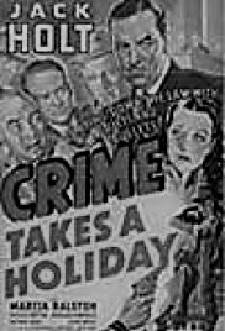 CRIME TAKES A HOLIDAY (1938)
CRIME TAKES A HOLIDAY (1938) (59 Min.) Genre: 1930 DRAMA, Transfer Quality: B
When this politically charged crime drama came out in 1938, many viewers saw that the themes therein echoed those of the ongoing New York gubernatorial race between Dewey and Lehman. The plot centers on a tough, driven district attorney with an excellent track record who is thrust into politics by supporters. Wanting to clean up what he sees as a corrupt race, he frames an innocent man and proceeds to prosecute him until the gangster behind it all finally confesses.
Starring: Jack Holt, Marcia Ralston, Russell Hopton, Douglas Dumbrille | Directed by: Lewis D. Collins
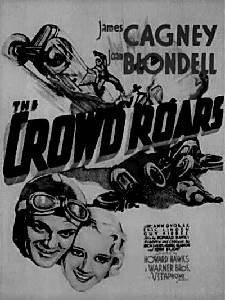 CROWD ROARS, THE (1932)
CROWD ROARS, THE (1932) (70 Min.) Genre: 1930 DRAMA, Transfer Quality: A
Howard Hawks directed this fast-paced auto racing drama. Joe Greer (James Cagney) is a top-ranked race car driver; his younger brother Eddie (Eric Linden) wants to follow in Joe's footsteps, but Joe knows his brother's reckless side and tries to keep him away from the racer's life. Eddie, however, can't be dissuaded from a career on the track, and he turns out to like his women as fast as his cars when he gets involved with Ann (Joan Blondell). Joe's best friend Spud (Frank McHugh) tries to keep the feuding brothers apart, but his attempts to do so in the midst of a race leads to Spud's death. Joe is despondent after Spud's passing and gives up his career in racing, while Eddie becomes eligible for the Indianapolis 500. Joe grudgingly comes to the race to see his kid brother in action, but he gets the chance to redeem himself when Eddie is hurt and needs a driver to complete the race in his car. Racing legend Billy Arnold, who won the Indy 500 in 1930, advised the production. — Mark Deming
Starring: James Cagney, Joan Blondell, Ann Dvorak, Eric Linden, Frank McHugh | Directed by: Howard Hawks
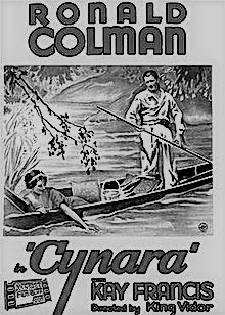 CYNARA (1932)
CYNARA (1932) (78 Min.) Genre: 1930 DRAMA, Transfer Quality: A
King Vidor directed this screen adaptation of the novel An Imperfect Lover by Robert Gore-Brown, which had also made the transition to the stage. Jim Warlock (Ronald Colman) is a successful British lawyer who has always displayed a solid and conservative nature in his business associations, his professional ethics, and his personal life. He has enjoyed a happy if unexciting marriage with his wife Clemency (Kay Francis) for seven years, but when she leaves town for several days, Jim meets Doris (Phyllis Barry), a young sales clerk. To his surprise, Jim finds himself infatuated with Doris, and what begins as an innocent flirtation quickly escalates into a passionate affair. Eventually, when Jim tries to break off the relationship, Doris becomes distraught and kills herself. The death leads to a criminal investigation which makes Jim the leading figure in a national scandal, but he accepts all responsibility and refuses to say anything that would cast Doris in a negative light. The publicity forces him to leave the country and puts the future of his marriage in serious question.
Starring: Ronald Colman, Kay Francis, Phyllis Barry, Henry Stephenson | Directed by: King Vidor
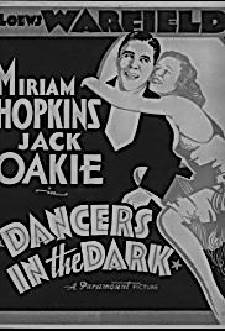 DANCERS IN THE DARK (1932)
DANCERS IN THE DARK (1932) (74 Min.) Genre: 1930 DRAMA, Transfer Quality: B
In this drama, a bandleader thinks that his young friend will be corrupted by his budding relationship with a taxi dancer. To protect the tender youth, the conductor sends him out of town.The bandleader soon finds himself wooing the lovely dancer. Unfortunately, a jealous gangster is also in love with her. When the gangster discovers that the bandleader presents competition, he targets him for a hit. Chaos ensues ending in a shoot-out. The gangster is killed, the bandleader shot, and the callow youth is finally reunited with his beloved dancer. Songs include: "St. Louis Blues."
Starring: Miriam Hopkins, Jack Oakie, William Collier, Jr, George Raft, Claire Dodd | Directed by: David Burton
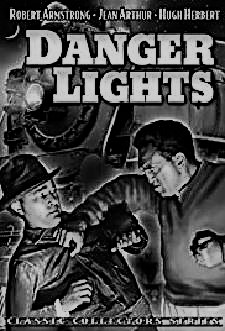 DANGER LIGHTS (1930)
DANGER LIGHTS (1930) (73 Min.) Genre: 1930 DRAMA, Transfer Quality: A
In this drama, an older railroad supervisor is engaged to a lovely young woman. Unfortunately, she falls in love with the handsome hobo her husband befriended and employed as an engineer. A rivalry ensues, but when a life is endangered the two team up and save the day. The film may be most interesting for its detailed look into the railroads of the past.
Starring: Louis Wolheim, Robert Armstrong, Frank Sheridan, Jean Arthur | Directed by: George B. Seitz
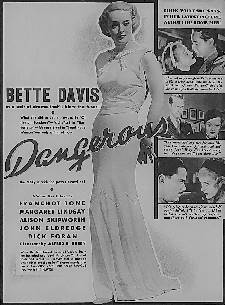 DANGEROUS (1935)
DANGEROUS (1935) (72 Min.) Genre: 1930 DRAMA, Transfer Quality: A
Not even considered a good film back in 1935, Dangerous is held together by the mesmerizing performance of Bette Davis. The star is cast as alcoholic, self-destructive stage actress Joyce Heath, a character obviously based on Jeanne Eagels. Wealthy architect Don Bellows (Franchot Tone) becomes convinced that Joyce can be rehabilitated with the "right" stage vehicle, and begins pulling strings to bring her back to the footlights. She rises to the occasion, falling in love with Don in the process. But Joyce becomes convinced that she's a jinx to any man who gets near her, as proven by her spineless, dissolute husband, Gordon Heath (John Eldredge), who refuses to give her a divorce. Deliberately hurting Don's feelings so he will escape her "curse," Joyce determines to rid the world of both herself and her husband. But things don't work out that way, and as a result Joyce is left in an inextricable Ethan Frome-like dilemma at film's end, while Don finds happiness with his socialite Gail Armitage (Margaret Lindsay). It is generally conceded that Bette Davis won her Academy Award for Dangerous because she was denied the Oscar for her performance in the previous season's Of Human Bondage. Dangerous was remade (and considerably reshaped) in 1941 as Singapore Woman. — Hal Erickson
Starring: Bette Davis, Franchot Tone, Margaret Lindsay, Alison Skipworth | Directed by: Alfred E. Green
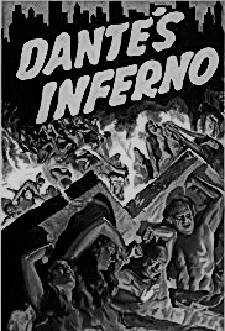 DANTE'S INFERNO (1935)
DANTE'S INFERNO (1935) (88 Min.) Genre: 1930 DRAMA, Transfer Quality: A
Carnival barker Spencer Tracy befriends elderly concessionaire Henry B. Walthall, who owns a picturesque but stodgy display depicting Dante's Inferno. Walthall is more interested in the spiritual aspects of Man's fascination with Hell, but Tracy uses hoopla and exaggeration to get the suckers into the Inferno. His interest isn't altruistic; Tracy is enamored of Walthall's niece, Claire Trevor. Through his publicity savvy, Tracy builds the Inferno into a major attraction, complete with full orchestra and scantily clad "devil girls". He also buys up the rest of the carnival, using cold-blooded tactics that result in the suicide of a fellow concessionaire. Within five years, Tracy is a millionaire tycoon of the Entertainment industry. While loved by his wife (Trevor) and son (Scotty Beckett), Tracy conducts his business ruthlessly, bribing a city official to look the other way regarding structural defects in his Inferno display. When this duplicity results in a disastrous accident at the exhibit, the bribed official kills himself. Tracy is exonerated thanks to legal chicanery, but his wife is fed up; she walks out on him, taking their son along. Injured in the accident, Inferno creator H. B. Walthall warns Tracy of the pitfalls of success, using an illustrated edition of Dante to make his point. For nearly ten minutes, the movie audience is treated to a lavish depiction of Hell, magnificently photographed by Rudolph Mate. When the plot resumes, Tracy is on hand for his latest venture, a sumptuous gambling ship. Thanks to the drunken negligence of the crew, the ship catches fire, and it is only upon learning that his son has sneaked aboard that Tracy realizes the consequences of his greed. Tracy labors heroically to rescue the passengers—and, incidentally, to atone for his past sins. — Hal Erickson
Starring: Spencer Tracy, Claire Trevor, Henry B. Walthall, Alan Dinehart | Directed by: Harry Lachman
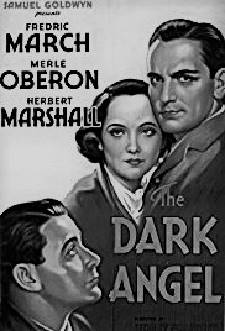 DARK ANGEL (1935)
DARK ANGEL (1935) (110 Min.) Genre: 1930 DRAMA, Transfer Quality: A
Samuel Goldwyn's The Dark Angel is a sumptuously produced soap opera with a poignant "Enoch Arden" style denouement. Fredric March, Merle Oberon and Herbert Marshall star respectively as Alan Trent, Kitty Vane and Gerald Shannon, friends since childhood. Though Gerald is deeply in love with Kitty, it is Alan who wins her hand in marriage. But before the wedding can take place, WW I intervenes, and both Alan and Gerald march off with their regiments. Blinded on the battlefield, Alan gallantly pretends to have been killed so that Kitty will not feel obligated to care for him. Eventually, however, she discovers that he's still alive, which leads to the film's most memorable scene, in which the proud Alan painstakingly arranges all the furniture and bric-and-brac in his room to make it seem as though he can still see. Though the film is set in the late teens and early '20s, Merle Oberon is garbed throughout in the latest 1935 fashions — an endearingly anachronistic Sam Goldwyn trademark. Oscar nominations went to star Oberon and art director Richard Day, with the latter taking home the gold statuette. Adapted by Lillian Hellman and Mordaunt Sharp from a stage play by Guy Bolton (written pseudonymously as H. B. Treveleyen), The Dark Angel was previously filmed by Goldwyn in 1925. — Hal Erickson
Starring: Fredric March, Merle Oberon, C. Montague Shaw, Charles Tannen | Directed by: Sidney A. Franklin
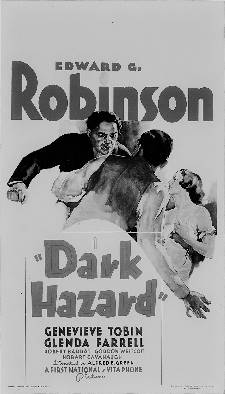 DARK HAZARD (1934)
DARK HAZARD (1934) (72 Min.) Genre: 1930 DRAMA, Transfer Quality: C
A weak-willed gambler's compulsion destroys his life in this dramatic character study. In the beginning, he is seen working as a cashier at a small-time Ohio track and then moving into a boardinghouse. There he falls in love with his disapproving landlady's daughter, who ignores her mother's advice and marries him. On their wedding day, he vows to never gamble again, and they move to Chicago where he begins working in a fleabag hotel. Later he is offered the chance to helm a dog track in California. They move and it doesn't take long before he is back to his old tricks. The wife is secretly distraught, but she tries to look the other way until her husband's sleazy ex-girl friend shows up and starts making trouble. Things go from bad to worse when he and the tart win big at a casino and the angry wife uses the cash to leave him. She tells him she has gone home to Ohio and will not take him back until he cleans up his act. He really tries, but it is to no avail and after more struggles, wins, and terrible losses, the story ends on a dark note.
Starring: Edward G. Robinson, Genevieve Tobin, Glenda Farrell, Robert H. Barrat | Directed by: Alfred E. Green
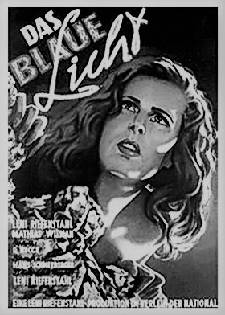 DAS BLAUE LICHT (1932)
DAS BLAUE LICHT (1932) (77 Min.) Genre: 1930 DRAMA, Transfer Quality: A
The Blue Light (Das Blaue Licht) is widely regarded as the best of the German "mountain" films of the early 1930s. Leni Riefenstahl both directed and starred in this film, playing a free-spirited gamine who dares to climb a precipitous mountain peak. Because she is the only member of her community to accomplish this, she is regarded as something of a witch. When she discovers a hidden crystal cave, the villagers change their tune and follow her up the mountain, stripping the cave of its riches. She responds to this symbolic rape by killing herself. It was The Blue Light which impressed Hitler and Goebbels enough to engage Leni Riefenstahl to direct the Nazi party's subsequent propaganda films. — Hal Erickson
Starring: Leni Riefenstahl, Beni Fuehrer, Max Holzboer, Mathias Wiemann | Directed by: Leni Riefenstahl
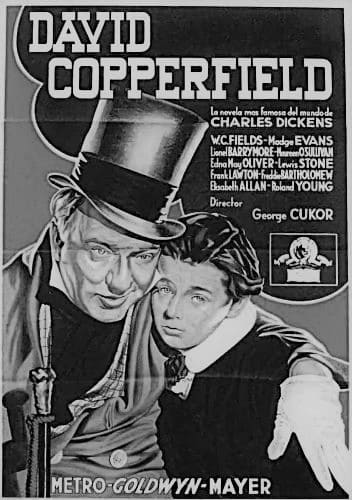 DAVID COPPERFIELD (1935)
DAVID COPPERFIELD (1935) (132 Min.) Genre: 1930 DRAMA, Transfer Quality: A
David Copperfield was MGM's major Christmas release for its 1934-1935 season and also the first of producer David O. Selznick's major "literary" films for that studio. While a great deal of editing and streamlining was necessary to distill Charles Dickens' massive novel into 133 minutes of screen time, the end result was so successful that only the nittiest of nitpickers complained about the excised characters and events. Freddie Bartholomew plays the young Copperfield, who, after the death of his mother (Elizabeth Allan), is cruelly mistreated by his stepfather, Mr. Murdstone (Basil Rathbone). David's life brightens when he meets the ever-in-debt Mr. Micawber (W.C. Fields), and he is sheltered by Micawber's large and loving family until Micawber is carted off to debtor's prison. Forced once more to seek a home, David makes his way to the Dover estate of his Aunt Betsey (Edna May Oliver), where he meets another colorful cast of characters, none more so than the childlike Mr. Dick (Lennox Pawle). When Murdstone arrives, insisting that David be returned to him, Aunt Betsey and Mr. Dick form a united front to protect the boy. Flash-forward several years: the grown David (now played by Frank Lawton) is attending school, where he meets the lovely Agnes Wickfield (Madge Evans). David discovers that Agnes' businessman father (Lewis Stone) is under the thumb of the "'umble" prevaricator Uriah Heep (Roland Young) and the equally disreputable Steerforth (Hugh Williams). With the help of Mr. Micawber-who in a weak moment has taken a job working side-by-side with Heep-David proves Heep's treachery and rescues the Wickfields. By rights, he should marry Agnes, but David impulsively weds the empty-headed Dora (Maureen O'Sullivan). Only after Dora's death does David come to his senses, realizing that Agnes is the true love of his life. Originally, Charles Laughton was slated to play Micawber, but he pulled out of the production, worried that he wouldn't be funny enough. The casting of W.C. Fields was an inspired choice: although he injects his own established screen personality at every opportunity, Fields was born to play Micawber. Likewise, second-billed Lionel Barrymore fits his portrayal of crusty old Dan Peggoty like a glove. In fact, there isn't a false bit of casting in the whole production, and this, as much as Selznick's sumptuous production values, is the key to David Copperfield's enormous success.
Starring: W.C. Fields, Lionel Barrymore, Freddie Bartholomew, Maureen O'Sullivan, Madge Evans, Basil Rathbone | Directed by: George Cukor
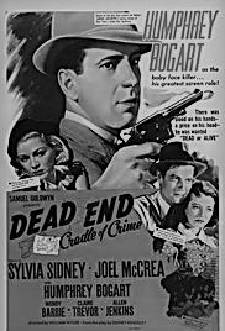 DEAD END (1937)
DEAD END (1937) (93 Min.) Genre: 1930 DRAMA, Transfer Quality: A
Adapted by Lillian Hellman from Sidney Kingsley's Broadway play, Dead End concerns itself with several denizens of New York's East River district. Here the elite and the slum-dwellers rub shoulders due to the close proximity of the riverfront tenements with the East Side luxury hotels. Slum girl Drina Gordon (Sylvia Sidney) tries to prevent her younger brother Tommy (Billy Halop) from wasting his life as a member of the local street gang. Tommy and the other kids idolize Baby Face Martin (Humphrey Bogart), a onetime East- sider who has hit the "big time" as a notorious gangster. Dodging the cops, Martin makes a sentimental journey to the neighborhood to visit his mother (Marjorie Main) and his old girlfriend Francie (Clare Trevor). But Martin's mother coldly tells him to get lost, while Francie reveals herself to be a consumptive prostitute. Despite his depressed state, Martin is still admired by the local kids; this displeases sign painter Dave Connell (Joel McCrea), who hopes to escape the slums via his romance with wealthy Kay Burton (Wendy Barrie). Attempting to kidnap a rich boy who'd earlier been beaten up by the street kids, Martin is prevented from making the snatch by Dave, who shoots Martin down. Receiving a large reward, Dave decides to give the money to Drina so that she can afford a lawyer to defend her brother Tommy, who has wrongfully been accused of masterminding the beating of the rich kid. His outlook on life altered by this unselfish act, Dave gives up his mercenary romance with Kay Burton, choosing instead the poverty-stricken Drina. The film introduces the Dead End Kids--Billy Halop, Leo Gorcey, Gabe Dell, Huntz Hall, Bernard Punsley and Bobby Jordan--all of whom were veterans of the Broadway version of Dead End and would be metamorphosed into the East Side Kids and The Bowery Boys.
Starring: Sylvia Sidney, Joel McCrea, Humphrey Bogart, Claire Trevor, Marjorie Main, Huntz Hall, Leo Gorcey, Billy Halop | Directed by: William Wyler
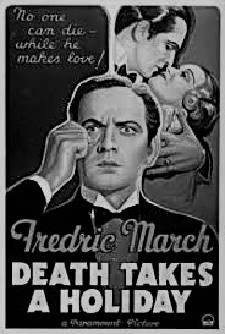 DEATH TAKES A HOLIDAY (1934)
DEATH TAKES A HOLIDAY (1934) (79 Min.) Genre: 1930 DRAMA, Transfer Quality: A
In this filmization of Alberto Casella's stage play, Death assumes human form in order to discover why men fear him. Posing as a Prince Sirki (and played by Fredric March), Death appears as a house guest at the villa of an Italian duke. While "Sirki" is present, Death takes his titular holiday, and no one on earth dies. Grazia (Evelyn Venable) the fiance of the duke's son, becomes attracted by the strangely ethereal Sirki. Against his better judgment, Sirki falls in love, and Death for the first time experiences Humanity. Disturbed by the sensation, he decides to shuffle off his mortal coil, but before leaving he tries to shun Grazia, who insists upon going with him. The Duke, who has been in on Sirki's secret all along, begs Death not to take away the girl. To scare her off, Death assumes his actual form, only to discover that this is how Grazia has always seen him. Determining that love is as strong as death, Death allows the willing Grazia to accompany him into the nether world. — Hal Erickson
Starring: Fredric March, Evelyn Venable, Guy Standing, Gail Patrick | Directed by: Mitchell Leisen
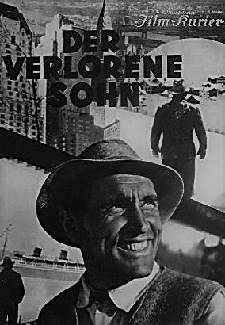 DER VERLORENE SOHN (1935)
DER VERLORENE SOHN (1935) (80 Min.) Genre: 1930 DRAMA, Transfer Quality: B
Mountain-film specialist Luis Trenker plies his trade with his usual expertise in the Austrian Velorene Sohn (Prodigal Son). Trenker himself plays the leading role of Tonia Feuersinger, a Tyrolean mountaineer bound and determined to scale the American Rockies. He also wants to journey to the States to court pretty American tourist Lillian Williams (played by pretty American actress Marian Marsh). Leaving his broken-hearted local girlfriend (Maria Andergast) behind, Tonio treks to New York, but never quite makes it to the Rockies; instead, he gets a welding job on a skyscraper, then achieves success as a prizefighter. In the end, however, he realizes that his heart is still in the Tyrol and thus returns to the arms of his hometown sweetheart. Though aimed at the German-speaking clientele, Verlorene Sohn was financed in Hollywood by Universal Pictures.
Starring: Luis Trenker, Maria Andergast, Berti Schultes, Marian Marsh | Directed by: Luis Trenker
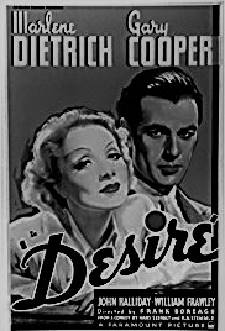 DESIRE (1936)
DESIRE (1936) (89 Min.) Genre: 1930 DRAMA, Transfer Quality: B
In this frothy romantic adventure, Marlene Dietrich plays Madeleine de Beaupre, a devious jewel thief. After sneaking a valuable string of pearls away from jeweler Aristide Duval (Ernest Cossart), Madeleine attempts to flee Paris, leaving a trail that will instead implicate psychiatrist Dr. Pauquet (Alan Mowbray). While headed for the Spanish border, she nearly runs into Tom Bradley (Gary Cooper), an American auto engineer vacationing in Europe. Madeleine spots Tom again as she waits to go through Spanish Customs; worried that the stolen pearls will be found in her handbag, she slips them into Tom's pocket. After they both make their way through inspection unscathed, Madeleine flirts with Tom in an attempt to get the valuables back; he's too shy to respond in kind, so she gets his attention by trying to "repair" the engine of her car with a hammer. Madeleine lures Tom to the San Sebastian estate of her partner in crime, Carlos Margoli (John Halliday). It doesn't take long for Tom to figure out what Madeleine and Carlos are up to; however, he also knows that he's fallen in love with her, and he is willing to play along if it allows him to be near her. Carlos was originally to have been played by John Gilbert; Halliday was a last-minute replacement after the one-time silent screen star died a week before shooting was to begin.
Starring: Marlene Dietrich, Gary Cooper, John Halliday, William Frawley | Directed by: Frank Borzage
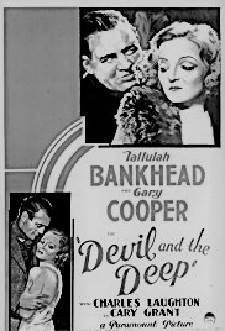 DEVIL AND THE DEEP (1932)
DEVIL AND THE DEEP (1932) (78 Min.) Genre: 1930 DRAMA, Transfer Quality: A
A mentally unstable naval officer goes mad with jealousy when his wife's recent lover shows up as a lieutenant on the submarine he commands. It is the smell of cheap perfume that arouses the husband's suspicions, and he plans to confront the lieutenant in the sub. The wife follows him there, knowing very well that while in a jealous rage her husband cannot be responsible for his actions. Her husband catches her and locks her in his cabin then deftly steers the sub towards a freighter. Just before the ships collide, he forces the lieutenant to take the controls. It is a terrible crash and the sub sinks, stone-like, towards the bottom. Even as they go down, the cuckoo commander insists the lieutenant is to blame for the tragedy. Meanwhile the woman successfully convinces the remaining crew members of her husband's lunacy, they accept the orders of their new commander, the lieutenant, and escape together just in the nick of time. — Sandra Brennan
Starring: Tallulah Bankhead, Gary Cooper, Charles Laughton, Cary Grant, Charles Bickford | Directed by: Marion Gering
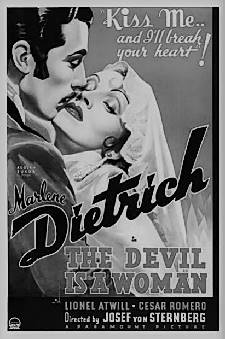 DEVIL IS A WOMAN, THE (1935)
DEVIL IS A WOMAN, THE (1935) (85 Min.) Genre: 1930 DRAMA, Transfer Quality: A
Director Josef Von Sternberg and his greatest discovery, Marlene Dietrich, worked together for the last time on this historical melodrama, which was a notorious and controversial box-office flop in its day. Antonio Galvan (Cesar Romero), a young military officer, meets a mysterious and alluring woman named Concha Perez (Dietrich) and soon falls under her seductive spell. Antonio excitedly confesses his love for Concha to his friend Don Pasqual (Lionel Atwill), an older and higher-ranking officer. Pasqual is horrified when he learns of Antonio's infatuation; years ago, he met Concha, and it was the start of a long and disastrous relationship in which the cold-hearted woman would repeatedly lure him into her romantic web, drain him of his wealth, and then leave him for wealthier prospects elsewhere. While he has learned the hard way, Pasqual has never been able to cure himself of his addiction to Concha's charms, and when he encounters Concha with Antonio at a boisterous street festival, Pasqual is overcome with jealousy and challenges Antonio to a duel for Concha's affections. Shortly after The Devil Is a Woman's unsuccessful initial release, the United States State Department and the Spanish government both tendered objections to Paramount Pictures about what they felt were insulting depictions of the Spanish people and their leadership. Paramount pulled the film from circulation, and it was thought to be lost for some time until Dietrich provided a print from her personal collection for a Sternberg retrospective in 1959; the movie has since been released on home video. John Dos Passos co-authored the screenplay, based on a novel by Pierre Louys which Luis Bunuel later adapted as That Obscure Object of Desire.
Starring: Marlene Dietrich, Cesar Romero, Lionel Atwill, Edward Everett Horton, Alison Skipworth | Directed by: Josef von Sternberg
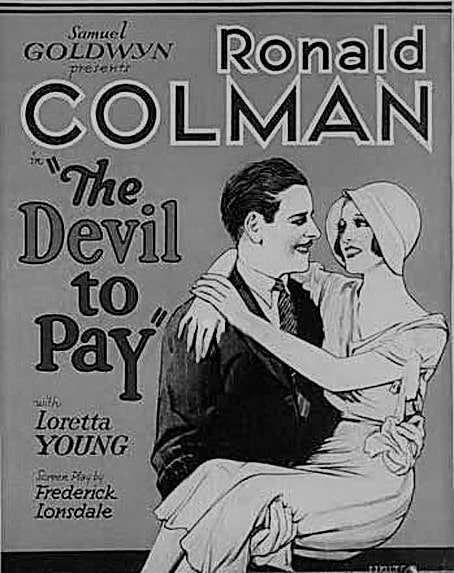 DEVIL TO PAY, THE (1930)
DEVIL TO PAY, THE (1930) (65 Min.) Genre: 1930 DRAMA, Transfer Quality: B
Ronald Colman plays the "black sheep" of a wealthy British family, sent to South Africa so that he'll be as far away from home as possible. Broke again, Colman auctions off his belongings and heads for London to the less-than-open arms of his father (Frederick Kerr). He begins to dally with a saucy actress (Myrna Loy), but soon his attentions shift to a young heiress (Loretta Young) engaged to a nobleman. The heiress manages to set Colman on the straight and narrow, so he renounces his wastrel ways and settles down—but not before breaking up the girl's upcoming wedding. Based on a play by Frederick Lonsdale, Devil to Pay is dated only in its subject matter; on a purely technical level, the film hardly betrays its age at all.
Starring: Ronald Colman, Loretta Young, Florence Britton, Frederick Kerr | Directed by: George Fitzmaurice
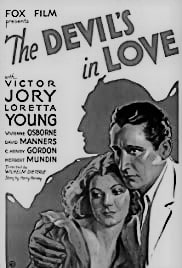 DEVIL'S IN LOVE, THE (1933)
DEVIL'S IN LOVE, THE (1933) (71 Min.) Genre: 1930 DRAMA, Transfer Quality: A
The French Foreign Legion is the setting for this episodic adventure yarn. Victor Jory plays a Legion doctor falsely accused of murdering his commander over the love of Loretta Young. Jory escapes prosecution by heading for parts unknown, but when a deadly illness strikes his old fort, he returns to aid his comrades. He is arrested, but clears himself of the murder charge and ends up with Young. Devil's in Love is distinguished by the surprise appearance of Bela Lugosi, who shows up unbilled as a relentless prosecuting attorney in the courtroom scenes. — Hal Erickson
Starring: Victor Jory, Loretta Young, Vivienne Osborne, David Manners, J. Carrol Naish | Directed by: William Dieterle
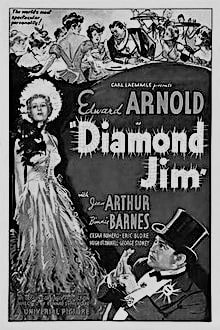 DIAMOND JIM (1935)
DIAMOND JIM (1935) (93 Min.) Genre: 1930 DRAMA, Transfer Quality: B
Screenwriter Preston Sturges never lets the facts get in the way of a good story in this colorful filmed biography of turn-of-the-century millionaire Diamond Jim Brady. The hearty Edward Arnold stars as Brady, who parlays a small-time railroad supply firm into a thriving financial empire. Once he's in the chips, Diamond Jim indulges in his every whim, lavishing his money on wine, women, song and food — lots and lots of food. Alas, for all his business acumen, he is never able to find true romance, striking out twice with coquettish Emma (Jean Arthur) and her more sedate look-alike Jane (also Jean Arthur). Along, the way, Diamond Jim also has a casual fling with the fabulous Lillian Russell (Binnie Barnes), but theirs is more a friendship than an affair. Having paid no attention to the truth throughout the film, writer Sturges felt no need to accurately portray Brady's ultimate demise, so he borrows a page from the old George Arliss vehicle Old English by having Diamond Jim deliberately eat himself to death. Edward Arnold would repeat his Diamond Jim Brady characterization opposite Alice Faye in 1940's Lillian Russell.
Starring: Edward Arnold, Jean Arthur, Binnie Barnes, Cesar Romero | Directed by: Edward Sutherland
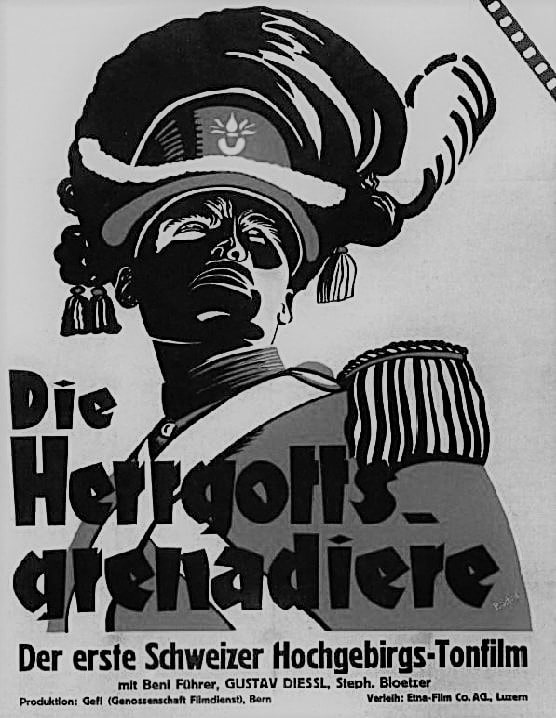 DIE HERRGOTTS-GRENADIERE (1932)
DIE HERRGOTTS-GRENADIERE (1932) (100 Min.) Genre: 1930 DRAMA, Transfer Quality: B
Goldfund im Wallis- dies ist das Thema des ersten Schweizer Tonfilms. Mit dem Goldfund hält auch die Zwietracht im Lötschental Einzug. Das im Winter durch Lawinenniedergänge von der Umwelt abgeschnittene Tal sollte nämlich durch eine neue Strasse erschlossen werden. Da aber gleichzeitig eine ausländische Minengesellschaft im Tal nach Gold zu schürfen beginnt, lassen viele einheimische Arbeiter den Strassenbau liegen und wandern zur Mine ab. Einige riskieren sogar ihren Sparbatzen, indem sie Aktien der Minengesellschaft kaufen. Zwei Männer stehen sich dabei als unversöhnliche Rivalen gegenüber: der Leiter des Strassenbaus und der Ingenieuer der Minengesellschaft. Am Berg führt sie das Schicksal schliesslich zusammen: Der Ingenieur stürzt in eine Gletscherspalte, und der einzige, der ihn retten kann, ist der Bauführer. Die gespaltene Bevölkerung wird durch das religiöse Brauchtum vereint, denn in der Fronleichnamsprozession ziehen die Burschen und Männer in ihrer Uniform als Herrgottsgrenadier durch die Dörfer des Lötschentals. Der spärliche Erfolg der Schürfarbeiten lässt im Tal die Vernunft wieder einkehren, und als ein Blitzschlag die Mine zerstört, findet der kurze Goldrausch im Walliser Bergtal ein dramatisches Ende. Alle Mängel eines über fünfzig Jahre alten Films lassen sich natürlich nicht beheben, doch das sollte den Reiz des Wiedersehens mit einer Rarität nicht schmälern. APPROX. ENGLISH TRANSLATION: Gold find in the Wallis this is the topic first Swiss of the tonfilms. With the gold find also the discord in the Loetschental introduction holds. In the winter the valley cut off by avalanche fall of the environment should be opened by a new road. Since a foreign mine company in the valley begins however at the same time after gold to schuerfen, many native workers discharge road construction to lie and move to the mine. Some risk even their savings lump, by buying shares of the mine company. Two men face each other thereby as irreconcilable rivals: the director/conductor of road construction and the Ingenieuer of the mine company. At the mountain it finally unites the fate: Engineer falls into a glacier column, and the only one, which it save can, is the building leader. The split population is united by the religious customs, because in the Fronleichnamsprozession pull Bur and men in their uniform as a gentleman God infantryman by the villages of the Loetschentals. The meager success of the schuerfarbeiten lets the reason in-turn in the valley again, and as a thunderbolt destroyed, short gold fever in the Walliser mountain valley a dramatic end finds the mine. All lack old over fifty of a film years cannot be repaired naturally, but that should not diminish the attraction of seeing again with a rare piece.
Starring: Franziska Bloetzer, Stefan Bloetzer, Willi Braune, Werner Düby | Directed by: Anton Kutter
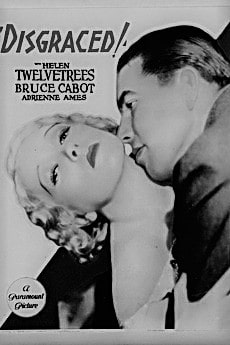 DISGRACED (1933)
DISGRACED (1933) (63 Min.) Genre: 1930 DRAMA, Transfer Quality: B
Long-suffering screen favorite Helen Twelvetrees is Disgraced again in this Paramount soap opera. Twelvetrees is cast as Gay Holliday, whose romance with Kirk Underwood Jr. (Bruce Cabot) turns sour when Kirk turns out to be a jerk. A murder inevitably follows, whereupon Gay gallantly takes the blame. The only person who knows the whole story is the heroine's father Captain Holloway (William Harrigan), who has been moved to dishonorable behavior by the most honorable of intentions. Comedian-impresario Ken Murray steals the show as a comedy-relief character who's smart enough to turn serious at the right time.
Starring: Helen Twelvetrees, Bruce Cabot, Adrienne Ames, William Harrigan | Directed by: Erle C. Kenton
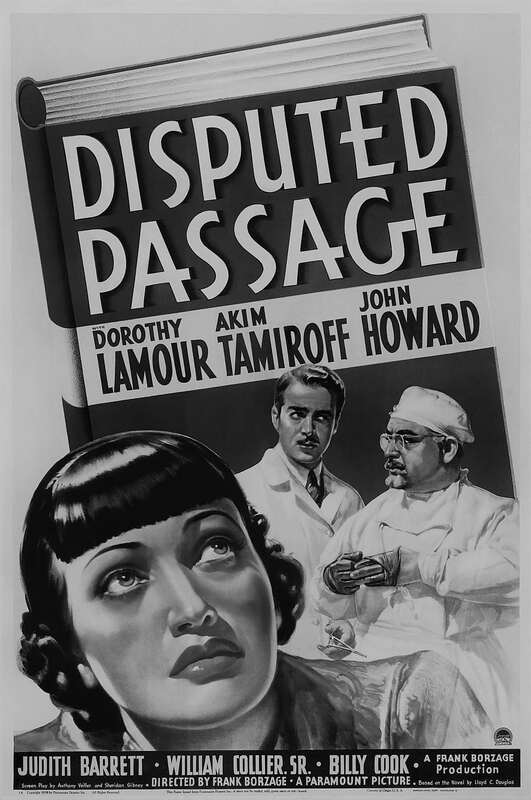 DISPUTED PASSAGE (1939)
DISPUTED PASSAGE (1939) (87 Min.) Genre: 1930 DRAMA, Transfer Quality: B
Idealism vs. Practicality is the Disputed Passage in this lavishly mounted soap opera. Based on a novel by Lloyd C. Douglas (The Robe, Magnificent Obsession) the film stars John Howard as young medical student John Wesley Beaven. In the course of his education, Beaven is torn between two philosophies: the cold pragmatism of Dr. Forster (Akim Tamiroff) and the humanistic attitudes of kindly Dr. Cunningham (William Collier Sr.), who of course is author Douglas' alter ego. The crisis within Beaven comes to a head when he must choose between his career and his impending marriage to Audrey Hilton (Dorothy Lamour). A literally explosive climax in war-torn China brings the story to a logical and satisfying solution. Kudos again to director Frank Borzage for bringing warmth and credibility to the most sloppily sentimental of storylines.
Starring: Dorothy Lamour, Akim Tamiroff, John Howard, Judith Barrett | Directed by: Frank Borzage
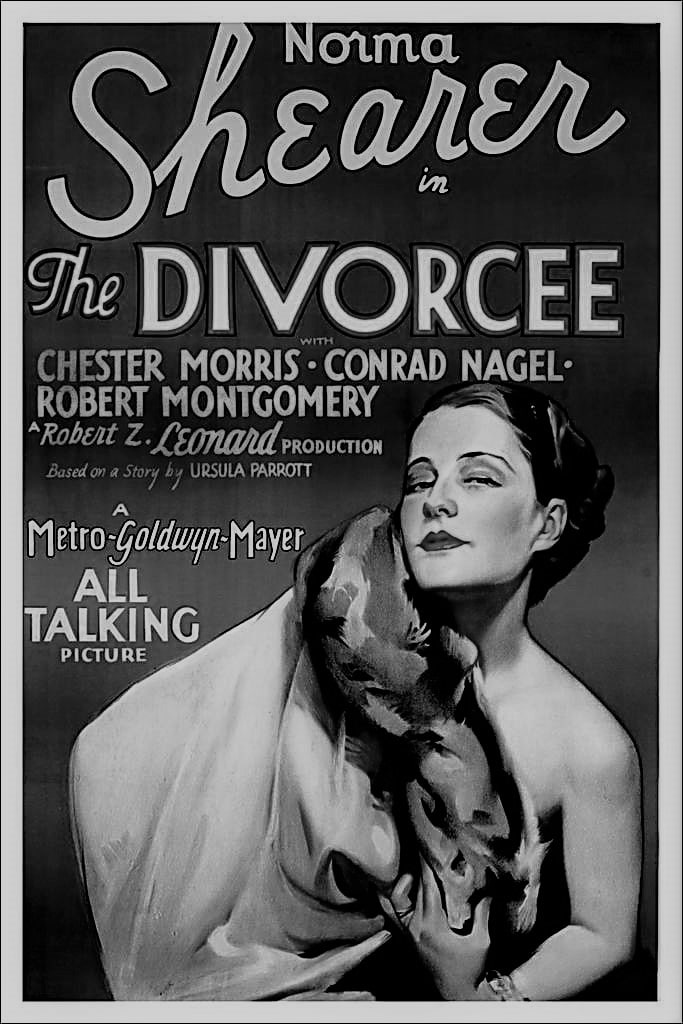 DIVORCEE, THE (1930)
DIVORCEE, THE (1930) (82 Min.) Genre: 1930 DRAMA, Transfer Quality: A
Norma Shearer won an Academy Award for her performance in The Divorcée, a fact generally attributed more to her marriage to MGM executive Irving Thalberg than to the quality of her acting. Shearer detractors point to Greta Garbo's far more memorable performance in the like-vintage Anna Christie as being far worthier of an Oscar. Based on the Ursula Parrott best-seller Ex-Wife, the film begins with Shearer having a happy affair with Conrad Nagel. When she decides to marry newspaperman Chester Morris, Nagel goes off on a drunken toot with mutual friend Judith Wood. An auto accident results, and Wood's face is hideously disfigured. Out of sympathy, Nagel married Wood, but still carries a torch for Shearer. Later on, Norma discovers that Morris has been cheating on her. Deciding that an "open marriage" works both ways, she has a fling with Robert Montgomery. Now comes the "double standard" which depressingly dates the film: while Norma never considers divorce despite Morris' philandering, Morris immediately files papers when Norma strays—and the audience is presumably expected to side with Morris! Everything is resolved after Norma, enmeshed in a return engagement with Conrad Nagel, comes to her senses when she sees the extent of Judith Wood's facial scars. Pretty hot stuff in its day, The Divorcée now seems like a model of decorum; as for Norma Shearer's performance, it is best left to the viewer to judge whether or not her award was the result of talent or favoritism. — Hal Erickson
Starring: Norma Shearer, Chester Morris, Conrad Nagel, Robert Montgomery | Directed by: Robert Z. Leonard
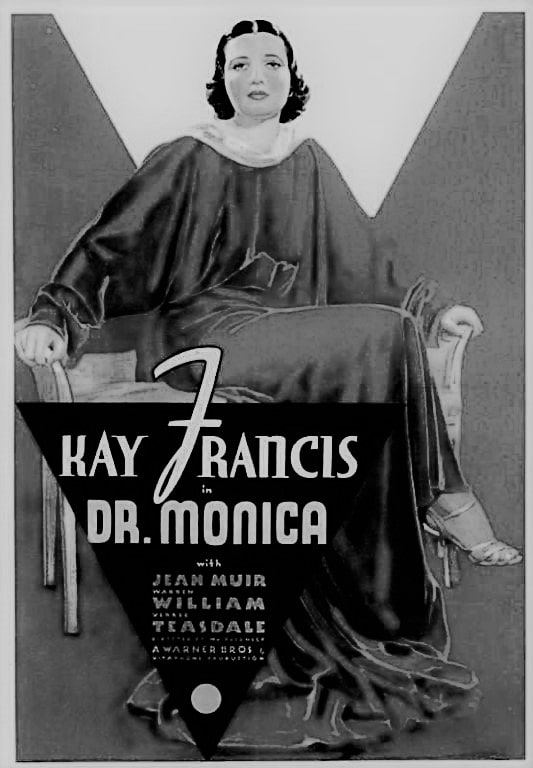 DOCTOR MONICA (1934)
DOCTOR MONICA (1934) (80 Min.) Genre: 1930 DRAMA, Transfer Quality: A
The second of three Kay Francis films in which the star was cast as a dedicated lady physician, Doctor Monica was adapted from a Polish play by Marja Morozowicz Szezepkowska. Francis plays obstetrician Dr. Monica, whose husband John (Warren William) cheats on her with young Mary (Jean Muir). When Mary becomes pregnant, the selfless Monica befriends her, provides her with advice, and delivers the baby. The good doctor even offers to give up John so that the child will have a father. But after giving birth, Mary calmly tells John to go back to Monica — even though there's every indication that he'll never give up his philandering ways! — Hal Erickson
Starring: Kay Francis, Warren William, Jean Muir, Veree Teasdale | Directed by: William Keighley
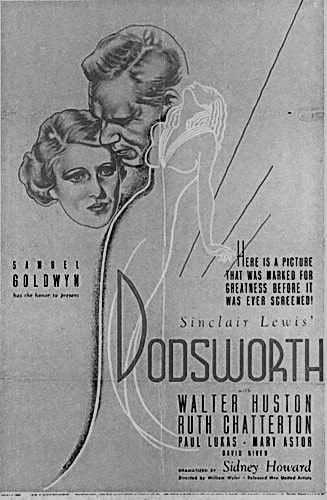 DODSWORTH (1936)
DODSWORTH (1936) (101 Min.) Genre: 1930 DRAMA, Transfer Quality: A
In this highly acclaimed adaptation of Sinclair Lewis' novel, Walter Huston plays Sam Dodsworth, a good-hearted, middle-aged man who runs an auto manufacturing firm. His wife Fran (Ruth Chatterton) is obsessed with the notion that she's growing old, and she eventually persuades Sam to sell his interest in the company and take her to Europe. He agrees for the sake of their marriage, but before long Fran has begun to think of herself as a cosmopolitan sophisticate and thinks of Sam as dull and unadventurous. Craving excitement, Fran begins spending her time with other men and eventually informs Sam that she's leaving him for a minor member of royalty. While in Italy, Sam runs into Edith Cortright (Mary Astor), an attractive widow whom he first met while sailing to Europe. Edith seems to understand Sam in a way his wife does not, and they fall in love. However, Sam impulsively breaks off their relationship, only to discover in her absence just how deeply he cares for her. Dodsworth was nominated for seven Academy Awards, including Best Picture, Best Actor (Walter Huston), and Best Supporting Actress (Maria Ouspenskaya), though only art director Richard Day walked away with an Oscar. — Mark Deming
Starring: Walter Huston, Ruth Chatterton, Paul Lukas, Mary Astor, David Niven | Directed by: William Wyler
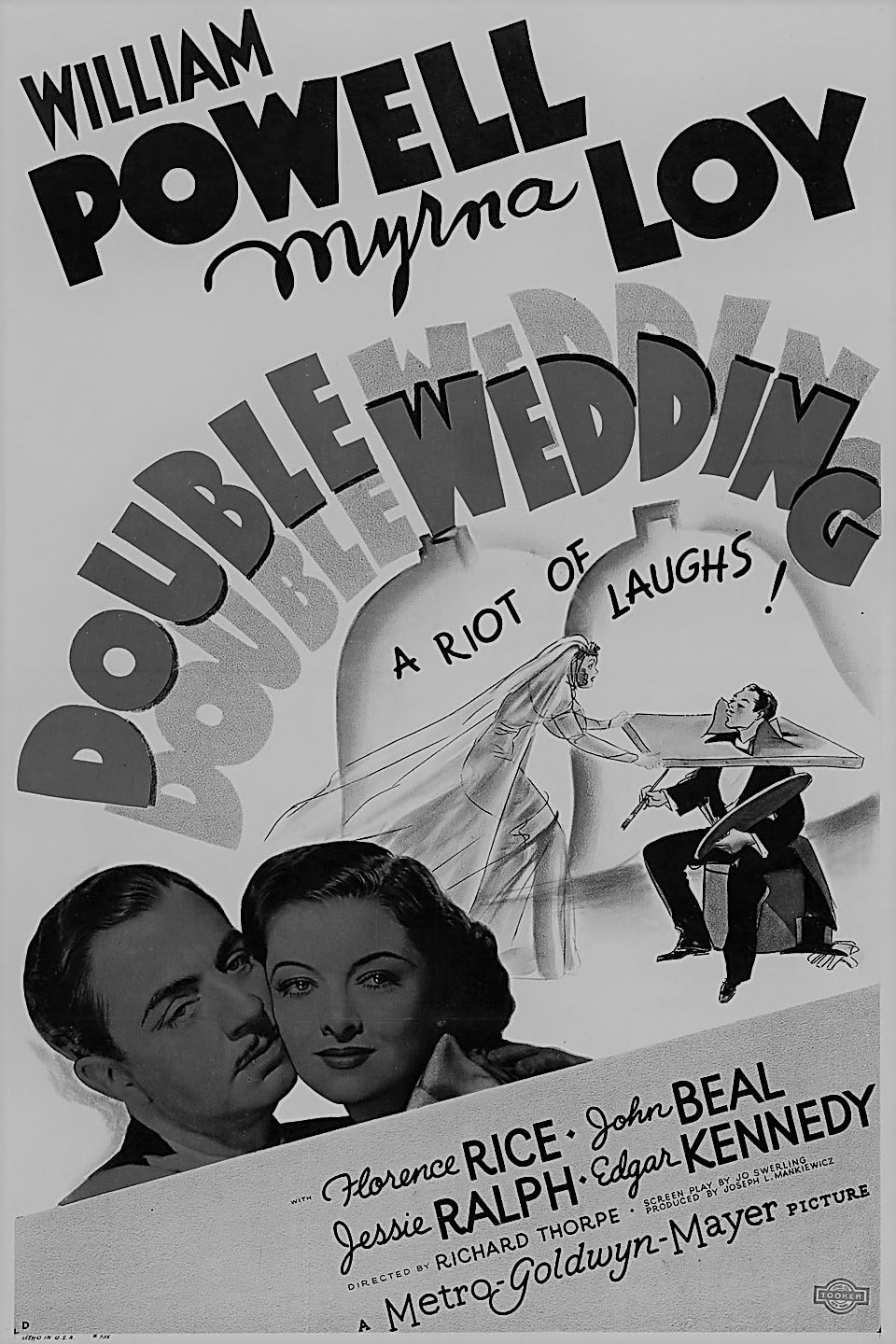 DOUBLE WEDDING (1937)
DOUBLE WEDDING (1937) (87 Min.) Genre: 1930 DRAMA, Transfer Quality: A
In their seventh film together, William Powell and Myrna Loy play, respectively, a bohemian artist and a stylish dress-shop proprietor. Loy's younger sister Florence Rice wants nothing to do with the stuffed shirt (John Beal) whom Loy has picked to be Rice's husband. Instead, the younger girl fancies herself in love with the improvident Powell. Loy intervenes by confronting Powell—and anyone who can't guess who's going to fall in love with whom at this point should be drummed out of the theater. This amusing by-the-numbers MGM comedy was based on a play by Ferenc Molnar. — Hal Erickson
Starring: William Powell, Myrna Loy, Florence Rice, Sidney Toler | Directed by: Richard Thorpe
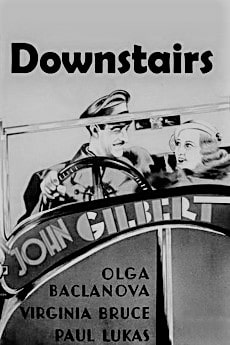 DOWNSTAIRS (1932)
DOWNSTAIRS (1932) (77 Min.) Genre: 1930 DRAMA, Transfer Quality: A
Crackling, adult drama about a heel who sleeps and cajoles his way from one wealthy household to another - using both the mistresses of the house upstairs, and the servants downstairs. Gilbert delivers an audacious performance that more than any other redeems his maligned reputation as a "talkie" actor; he also gets story credit for the film. Leading lady Bruce was then his wife. Karen Morley appears unbilled in final scene.
Starring: John Gilbert, Paul Lukas, Virginia Bruce, Hedda Hopper | Directed by: Monta Bell
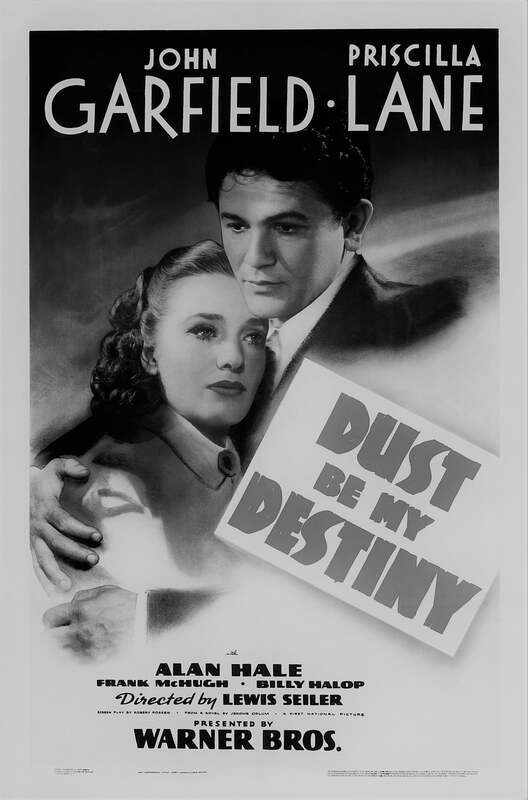 DUST BE MY DESTINY (1939)
DUST BE MY DESTINY (1939) (88 Min.) Genre: 1930 DRAMA, Transfer Quality: A
John Garfield once more plays a social outcast who's had nothing but lousy breaks. Released from prison for a crime he didn't commit, Garfield is promptly arrested as a vagrant and sent to a work farm. He falls in love with Priscilla Lane, stepdaughter of the farm's no-good foreman. Garfield marries Priscilla, but his happiness is short-lived when the foreman drunkenly goads him into a fight. Arrested again for killing the foreman, Garfield is defended by a compassionate attorney (Moroni Olsen), whose summation to the jury places the blame for Garfield's plight squarely on the shoulders of Society. — Hal Erickson
Starring: John Garfield, Priscilla Lane, Alan Hale, Frank McHugh, Billy Halop | Directed by: Lewis Seiler
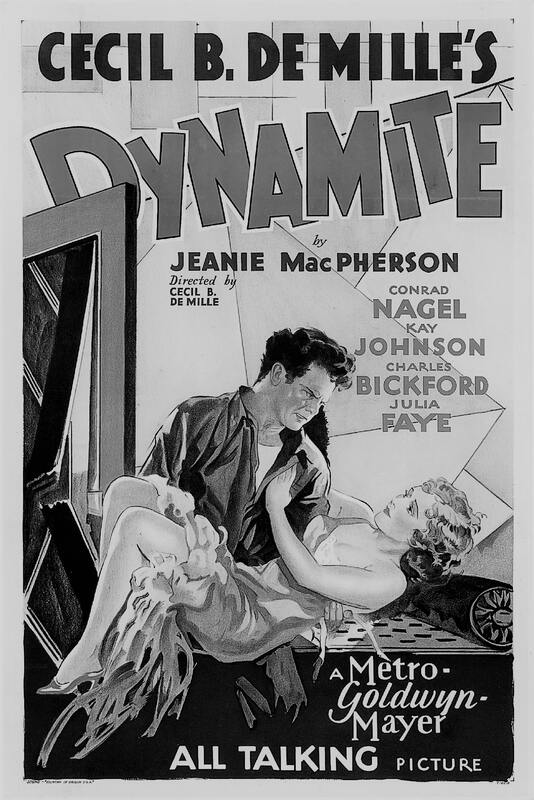 DYNAMITE (1930)
DYNAMITE (1930) (129 Min.) Genre: 1930 DRAMA, Transfer Quality: B
Filmed in 1929 and released early in 1930, Dynamite was Cecil B. DeMille's first all-talking feature. As one observer has noted, this 128-minute opus has enough plots for seven pictures. The basic storyline here involves spoiled heiress Cynthia Crothers (Kay Johnson) who will lose her fortune if she isn't married right away. Her love Roger Towne (Conrad Nagel) isn't interested in marriage, so Crothers decides to wed convicted murderer Hagon Derk (Charles Bickford). Her plan: Derk will die, then she'll be a millionaire, free to chase after Towne without benefit of clergy. Unfortunately for Crothers, Derk is pardoned at the last minute when the real killer (Leslie Fenton) confesses. Crothers tries to drive Derk out of her life by humiliating him at a fancy party, only to discover that the conditions of her inheritance require that she live with her husband for a set period of time. She swallows her pride and heads for Derk's home town, a grimy mining village. Touched by Crother's inept efforts to keep house and cook dinner, Derk eventually falls in love with her—though he makes it clear that he wants no part of her money. Crothers, in turn, falls genuinely in love with her brutish but basically decent husband. It must needs be that fortune-hunting Towne arrives in the mining village, leading to a powerful climax wherein Derk, Crothers and Towne are trapped in a mine cave-in. Though the dialogue is occasionally quite silly (after the killer commits suicide in a crowded restaurant, one of the patrons is heard to complain "It's ruined my dinner!") and the performances overripe at times, Dynamite actually holds up better than you'd expect. DeMilles' utilization of sound is both innovative and imaginative, especially during the noisy climactic sequences. The film was a success, paving the way for DeMilles' camp classic Madame Satan (1930).
Starring: Conrad Nagel, Kay Johnson, Charles Bickford, Julia Faye, Carole Lombard | Directed by: Cecil B. DeMille
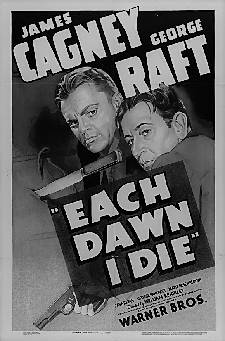 EACH DAWN I DIE (1939)
EACH DAWN I DIE (1939) (92 Min.) Genre: 1930 DRAMA, Transfer Quality: A
Otis Ferguson has said of Each Dawn I Die that "the story is of the kind you would have to see to disbelieve." And to be sure, the film is nothing more than a sampler of '30s prison-film conventions. But with the brilliant acting by James Cagney and the fast-paced and hard-edged direction of William Keighley, the film clatters past like an express train. Cagney plays Frank Ross, an innocent newspaperman who is railroaded into prison by a corrupt district attorney. In prison, he meets hardened-con Stacey (George Raft). Frank, at first, doesn't want to associate with Stacey and the other prisoners, but trapped in the hellhole prison, he more and more turns into a bitter con. Finally granted a hearing from the parole board, Frank pleads his innocence, but the parole board is headed by Grayce (Victor Jury), the man responsible for his imprisonment, and his parole is denied, and Frank becomes more hardened and embittered. By this point, Stacey has befriended him and agrees to help Frank prove his innocence. — Paul Brenner
Starring: James Cagney, George Raft, Jane Bryan, George Bancroft | Directed by: William Keighley
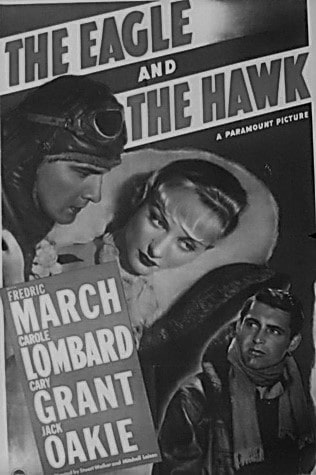 EAGLE AND THE HAWK, THE (1933)
EAGLE AND THE HAWK, THE (1933) (68 Min.) Genre: 1930 DRAMA, Transfer Quality: B
Eagle and the Hawk is a "war is hell" saga slightly reminiscent of All Quiet on the Western Front. Fredric March plays a British World War One flying ace suffering from emotional fatigue. March's happy-go-lucky pilot buddy (Cary Grant) tries to help his friend forget his problems by accompanying him on leave in London. March meets a beautiful young lady (Carole Lombard), to whom he pours out his problems and with whom he has an implicit affair (made even more discreet when this film was edited for reissue). Tortured by the memory of the his fallen comrades and by the men he's killed in battle, March finally breaks and commits suicide. To save his friend's reputation, Cary Grant props March's body up in the cockpit of his plane, flies the craft into the air, and makes it appear that March died while shooting it out with a German ace.
Starring: Fredric March, Cary Grant, Jack Oakie, Carole Lombard | Directed by: Stuart Walker
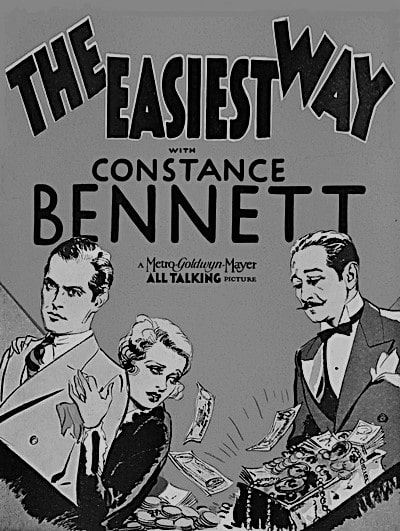 EASIEST WAY, THE (1931)
EASIEST WAY, THE (1931) (86 Min.) Genre: 1930 DRAMA, Transfer Quality: A
In this melodrama that was considered utterly scandalous in its day, an impoverished, beautiful young ghetto girl quickly learns that she can get to Easy Street on her back. Her indecent journey begins when a scout discovers her working in a department store. He gets her signed up to a modeling agency where she soon becomes the mistress of the owner. He gives her plenty of money and a nice place to live. She tries to share the money with her family, but they strongly disapprove of the means by which she is "earning" it. The young model later falls in love with an Argentine tycoon who proposes, but is unable to marry her because he must hastily return to Buenos Aires to attend to personal matters. He asks that she wait for him. She wants to, but finds herself seduced by the lure of her other lover's money and so moves in with him. When the tycoon finally returns and finds out, he is utterly devastated and tragedy ensues for the girl. There are two prints of the film around: one features a happy ending, while in the other, the tragedy continues. — Sandra Brennan
Starring: Constance Bennett, Adolphe Menjou, Robert Montgomery, Anita Page, Clark Gable | Directed by: Jack Conway
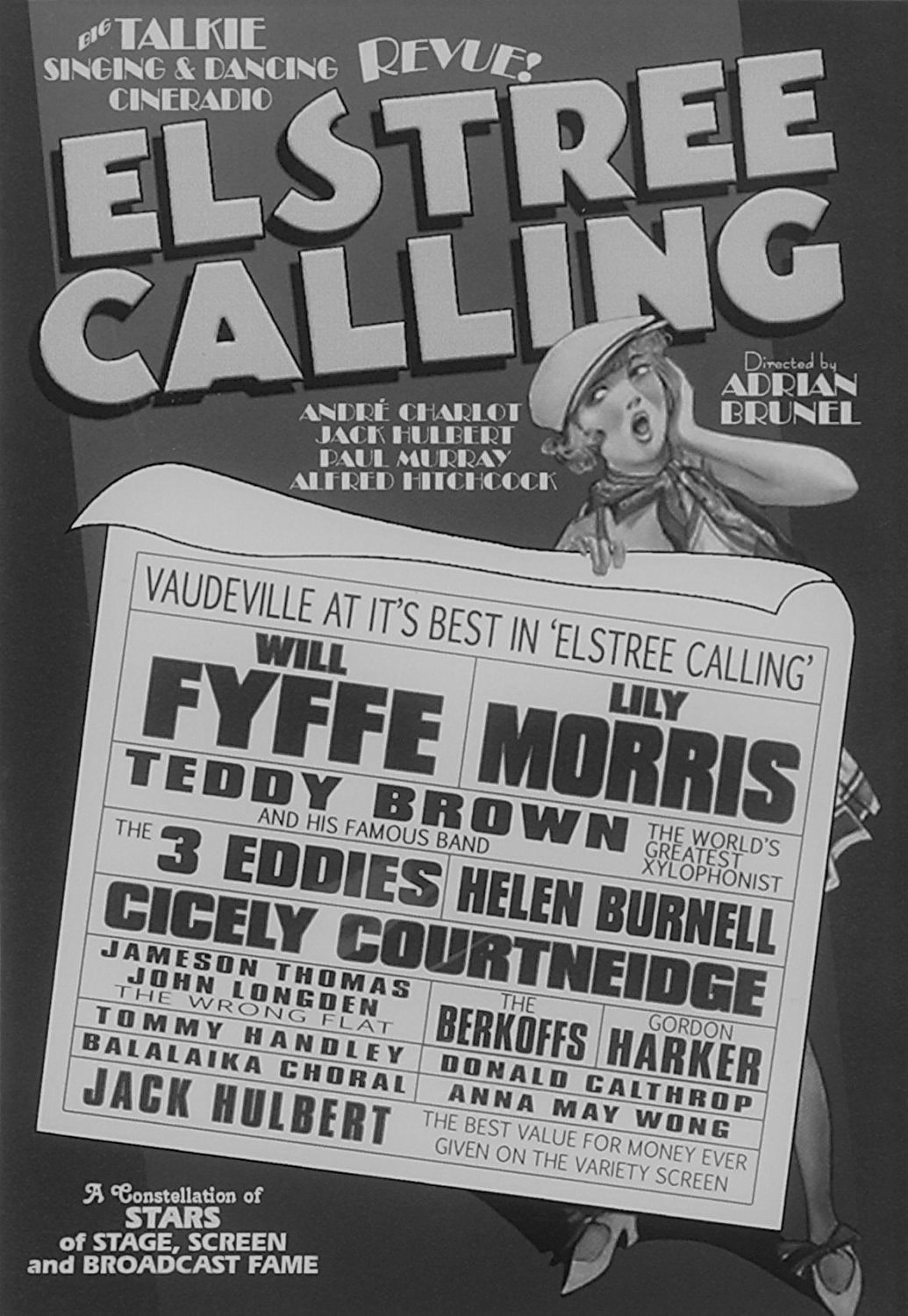 ELSTREE CALLING (1930)
ELSTREE CALLING (1930) (94 Min.) Genre: 1930 DRAMA, Transfer Quality: B
In emulation of such "all-talking, all-singing, all-star" Hollywood extravaganzas as The Show of Shows and Hollywood Revue of 1929, Britain's Elstree Studios served up its own big-budget revue, Elstree Calling, in early 1930. This plotless melange of musical numbers and "Heavens My Husband!" comedy sketches rises or falls on the merits of the individual stars. Among the Elstree contractees taking part herein are Will Fyffe, Tommy Handley, Jack Hulbert, Cicely Courtneidge, and Lily Morris, together with such British International Pictures "regulars" as Anna May Wong and Gordon Harker. The tenor of the production can be measured by the scene in which the exotically beautiful Ms. Wong participates in a Keystone-style pie-throwing sequence. According to the film's credits, Alfred Hitchcock was responsible for "sketches and other interpolated items," reportedly taking over direction of the film when Adrian Brunuel was fired; other sources adamantly deny that Hitchcock had anything at all to do with the film.
Starring: Paul Murray, Jack Hulbert, Anna May Wong, Donald Calthrop | Directed by: Adrian Brunel, Alfred Hitchcock
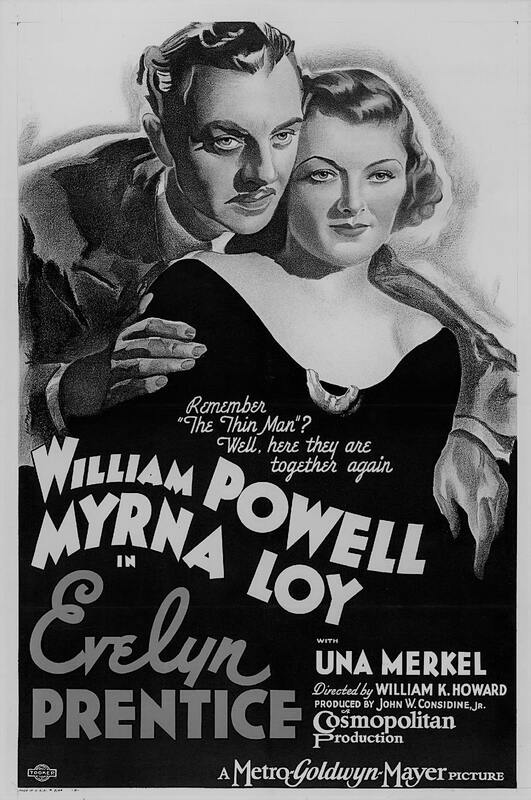 EVELYN PRENTICE (1934)
EVELYN PRENTICE (1934) (80 Min.) Genre: 1930 DRAMA, Transfer Quality: A
Filmed between the original Thin Man and the first of its sequels, Evelyn Prentice re-teamed William Powell and Myrna Loy as another husband-and-wife team knee deep in a murder mystery. In this one, Powell is John Prentice, a prominent lawyer with an eye for women other than his own wife. His latest interest is Nancy Harrison (Rosalind Russell, in her film debut), a client accused of manslaughter, whom Prentice successfully defended. Loy plays John's wife, Evelyn, who loves him but is hurt by his inattention and the loneliness that ensues. This leads her to engage in a flirtation of her own, with a charming writer (Harvey Stephens). The writer, however, is interested in Evelyn only for what he can get out of her and threatens to blackmail her. In a panic, she shoots him and runs away, discovering later that he has been found dead and that another woman, Judith Wilson, has been accused of his murder. Hoping that his expert legal skills will the innocent woman her acquittal, Evelyn convinces her husband to take on Wilson's defense. As the film progresses, Evelyn feels increasingly pressured to admit that she is responsible for the man's death. — Craig Butler
Starring: Myrna Loy, William Powell, Rosalind Russell, Una Merkel | Directed by: Willam K. Howard
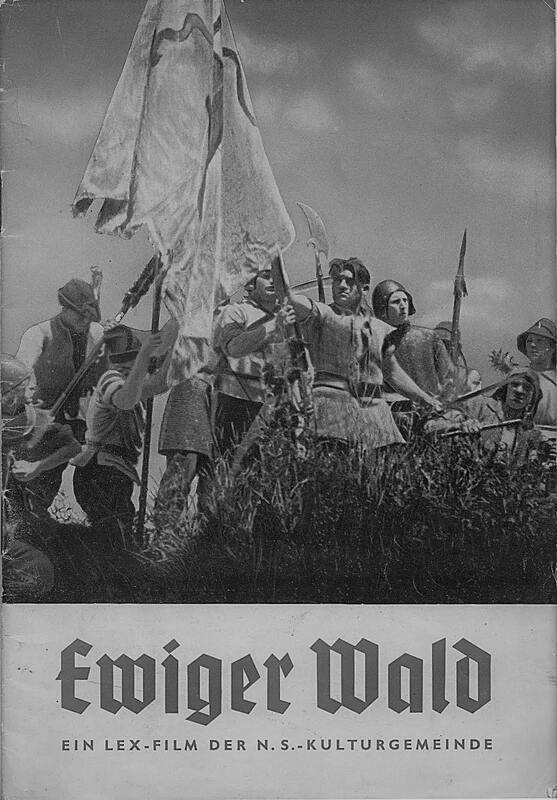 EWIGER WALD (1936)
EWIGER WALD (1936) (75 Min.) Genre: 1930 DRAMA, Transfer Quality: B
A Nazi propaganda film
Starring: Günther Hadank, Heinz Herkommer, Paul Klinger, Lothar Körner | Directed by: Hanns Springer, Rolf von Sonjevski-Jamrowski
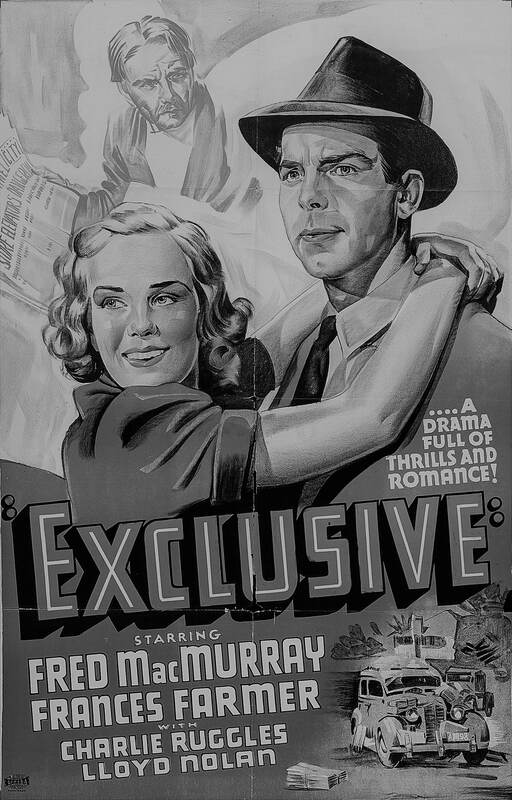 EXCLUSIVE (1937)
EXCLUSIVE (1937) (85 Min.) Genre: 1930 DRAMA, Transfer Quality: B
Frances Farmer plays the daughter of an honest and ethical newspaper publisher (Charlie Ruggles). She wants to become a reporter herself, but when her Dad refuses to give her an easy break, Frances goes to work for a rival "tell all" tabloid. Her irresponsible reporting causes a highly respected citizen to commit suicide, and also loses her the respect of her father. But when Frances gets "over her head" in tracking down a killer, her father comes to the rescue. Taking a bullet meant for his daughter, Ruggles dies in her arms, but not before advising her in how to report this late-breaking event: "Write it simply and clearly and keep the paragraphs short."
Starring: Fred MacMurray, Frances Farmer, Charlie Ruggles, Lloyd Nolan | Directed by: Alexander Hall
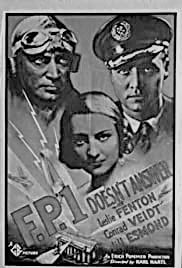 F.P. 1 (1933)
F.P. 1 (1933) (74 Min.) Genre: 1930 DRAMA, Transfer Quality: B
This drama is set upon a floating platform, used for oil drilling, located in the Atlantic. The owners of a rival platform are desperate to destroy it. The film was originally made in German and titled F.P.1 Antwortet Nicht.
Starring: Conrad Veidt, Leslie Fenton, Jill Esmond, George Merritt | Directed by: Karl Hartl
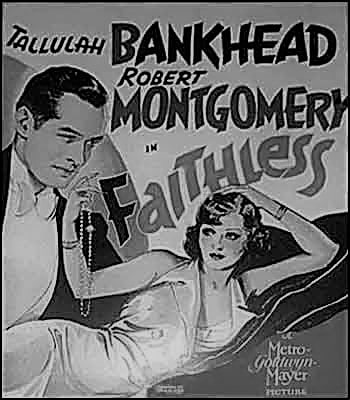 FAITHLESS (1932)
FAITHLESS (1932) (76 Min.) Genre: 1930 DRAMA, Transfer Quality: A
Tallulah Bankhead plays a giddy 1920s heiress who spurns the affections of executive Robert Montgomery because he makes a "mere" $20,000 per year. Tallulah is impoverished by the Depression, as is Montgomery. She refuses again to marry him now that they are equals, preferring to maintain her lifestyle by becoming the mistress of a clloddish millionaire (Hugh Herbert). Her new benefactor behaves atrociously, prompting Tallulah to run to the arms of Montgomery, who is now a blue-collar worker. Again stripped of her wealth, Tallulah marries Montgomery, who is promptly incapacitated in a violent labor dispute. Desperate to keep up her husband's medical bills, Tallulah takes to the streets. She is about to hit upon her first "John" when she is stopped by the kindly beat cop, who sends her back to her husband—and presumably a new lease on life. — Hal Erickson
Starring: Tallulah Bankhead, Robert Montgomery, Hugh Herbert, Maurice Murphy | Directed by: Harry Beaumont
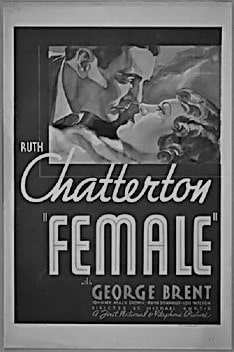 FEMALE (1933)
FEMALE (1933) (65 Min.) Genre: 1930 DRAMA, Transfer Quality: A
Ruth Chatterton tears up the screen in this fast-paced, lusty comedy. Alison Drake is an automobile magnate, a hard-nosed, hardboiled business woman making dozens of important decisions a day. In her private life, however, she is passionate and bold in her pursuit of male companionship, which she frequently finds among the ranks of her own employees and executives; the problem is that these men can't abide the fact that back at work, she's all business again; and she keeps having to get their long, mopey faces out of her presence by transferring them elsewhere. Then she meets Jim Thorne (George Brent), a gifted engineer who is attracted to Drake but isn't a callow, cowtowing yes-man, and isn't awed by her millions. After a few awkward encounters, they find a balance in their lives together, or so she thinks, until he proposes marriage — she rejects him and he leaves. Alison decides to sacrifice everything to get him back, which leads to a long-distance chase across the country (and a reminder of what it was like driving cross-country before the interstate highway system existed) and a reconciliation. — Bruce Eder
Starring: Ruth Chatterton, George Brent, Johnny Mack Brown, Philip Faversham | Directed by: Michael Curtiz
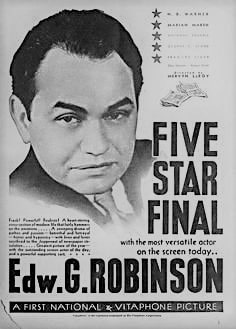 FIVE STAR FINAL (1931)
FIVE STAR FINAL (1931) (89 Min.) Genre: 1930 DRAMA, Transfer Quality: A
Adapted from the stage play by former newspaperman Louis Weitzenkorn, Five Star Final is an uncompromising look at the consequences of journalistic irresponsibility. Hounded by his publishers to pep up circulation with a sensational story, newspaper editor Edward G. Robinson decides to revive public interest in a long-ago murder case. He discovers that a woman (Sally Starr) who'd shot her lover nearly three decades earlier is now living under a new name and is married to a pillar of society (H.B. Warner). The woman's daughter (Marian Marsh) is just about to marry the son (Anthony Bushell) of another wealthy couple. Robinson sends one of his slimier reporters (Boris Karloff), a onetime divinical student who'd been expelled for sexual misconduct, to visit the woman and secure a photograph. The underhanded reporter disguises himself as the clergyman who will officiate at the wedding, worms his way into the family's confidence, and appropriates the photo. When the story hits the papers, the woman desperately tries to call Robinson and ask him to cease and desist, but Robinson is unmoved. The disgraced woman commits suicide, as does her husband a few moments later. The groom's parents snobbishly try to call off the wedding, but the groom stands by his fiancee's side and is disinherited. The grief-maddened daughter breaks into Robinson's office with a gun, threatening to kill him for ruining her mother. She is calmed down by her fiance, who warns Robinson that he himself will come back for revenge if the newspaper ever mentions the dead woman's name again. The conscience-stricken Robinson quits his job and sets out with his faithful secretary (Aline MacMahon) to start his life over "clean." Despite some stilted performances by the supporting cast, Five Star Final is as potent and powerful as it was in 1931, right up to Edward G. Robinson's climactic (and shockingly scatological) renunciation of his filthy profession. Five Star Final was remade in 1936 as Two Against the World, this time set in a radio station instead of a newspaper office. — Hal Erickson
Starring: Edward G. Robinson, H.B. Warner, Marian Marsh, Anthony Bushell | Directed by: Mervyn LeRoy
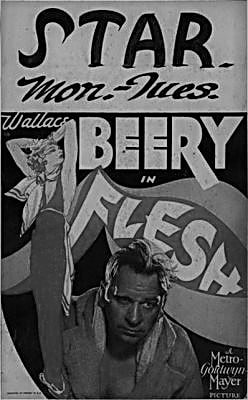 FLESH (1932)
FLESH (1932) (95 Min.) Genre: 1930 DRAMA, Transfer Quality: A
Flesh was one of the few big-studio films to deal with the subject of professional wrestling—at least until Hulk Hogan came along in the 1980s. Wallace Beery stars as a thickheaded waiter in a German beer garden who uses his muscles to clear out rowdy patrons. Beery channels his strength into a wrestling career, grappling his way up to the championship. His wife Karen Morley enjoys the creature comforts of Beery's success, but her heart belongs to her ex-lover Ricardo Cortez, and soon Karen is stepping out on her husband. Beery finds out and exacts a terrible revenge on Cortez—just minutes after Karen wises up and realizes she loves Beery after all. John Ford directed Flesh in a heavy Germanic fashion reminiscent of the Emil Jannings "cuckolded husband" melodramas of the 1920s.
Starring: Wallace Beery, Karen Morley, Ricardo Cortez, Jean Hersholt | Directed by: John Ford
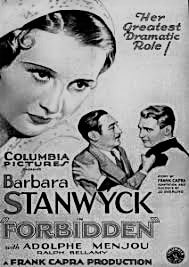 FORBIDDEN (1932)
FORBIDDEN (1932) (83 Min.) Genre: 1930 DRAMA, Transfer Quality: B
In this romance a school marm takes a cruise and falls for an unobtainable man, a district attorney married to a crippled woman.
Starring: Barbara Stanwyck, Adolphe Menjou, Ralph Bellamy, Dorothy Peterson | Directed by: Frank Capra
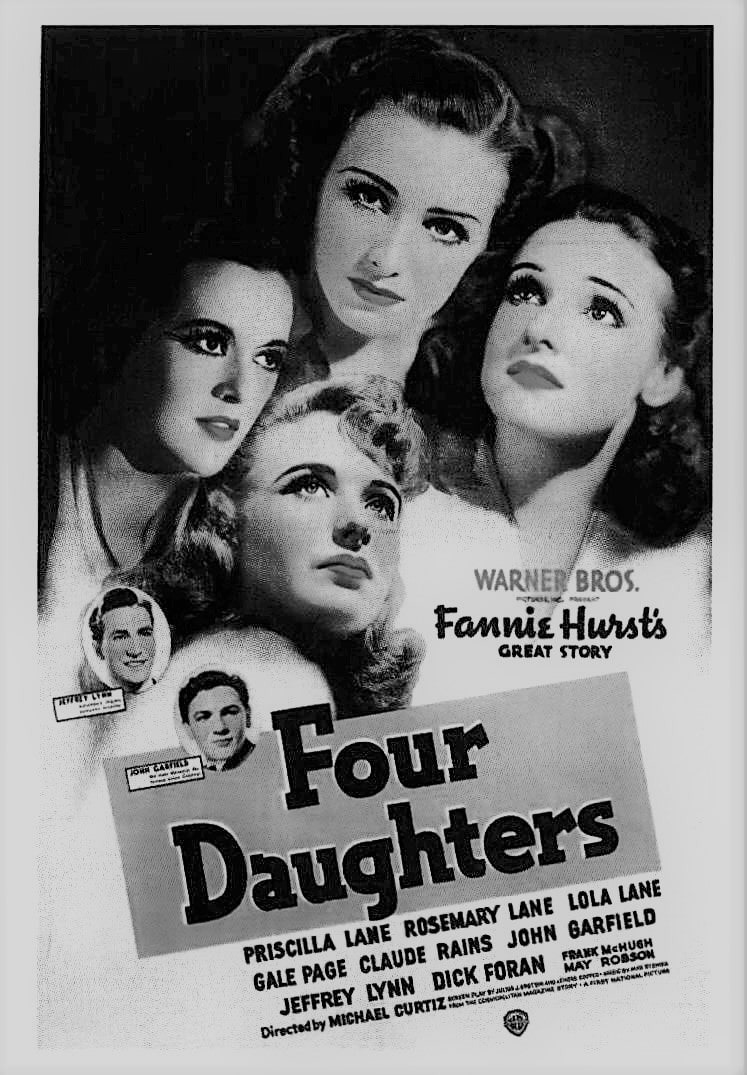 FOUR DAUGHTERS (1938)
FOUR DAUGHTERS (1938) (90 Min.) Genre: 1930 DRAMA, Transfer Quality: A
Fannie Hurst's Sister Act was the source for this money-making Warners weeper. The four daughters of the title are played by the Lane Sisters—Priscilla, Rosemary and Lola—and by Gale Page. All are musical prodigies, and all are daughters of master-musician Claude Rains. To help make ends meet, Rains rents several rooms of his home to boarders—most of whom, thanks to the dictates of the plot, seem to be marriageable men. We're supposed to care the most about the mutual attraction the daughters feel towards handsome Jeffrey Lynn, but the film really belongs to John Garfield, making his movie debut (no, he wasn't in 1933's Footlight Parade) as an embittered piano genius. Garfield has us in the palm of his scruffy hand the moment he begins philosophizing about "the fates:" "So they flipped a coin...heads he's poor, tails he's rich....they flipped a coin—with two heads." Aware that he can bring only unhappiness to Priscilla Lane, the daughter who cares most for him, Garfield obligingly drives into a heavy snowstorm and is killed in an auto accident (but it's not staged as a suicide, lest the Hays Office spank). John Garfield made so powerful an impression in Four Daughters that Warners was compelled to write him into the sequel Four Wives, first as a flashback and then as (implicitly) a ghost. Another film, Daughters Courageous, was hastily constructed using the same cast, but with different character names so as to accommodate a happier denouement for Garfield and Lane. Four Daughters was remade in 1954 as Young at Heart, with Frank Sinatra and Doris Day in the John Garfield and Priscilla Lane roles. — Hal Erickson
Starring: Claude Rains, John Garfield, Priscilla Lane, May Robson, Frank McHugh | Directed by: Michael Curtiz
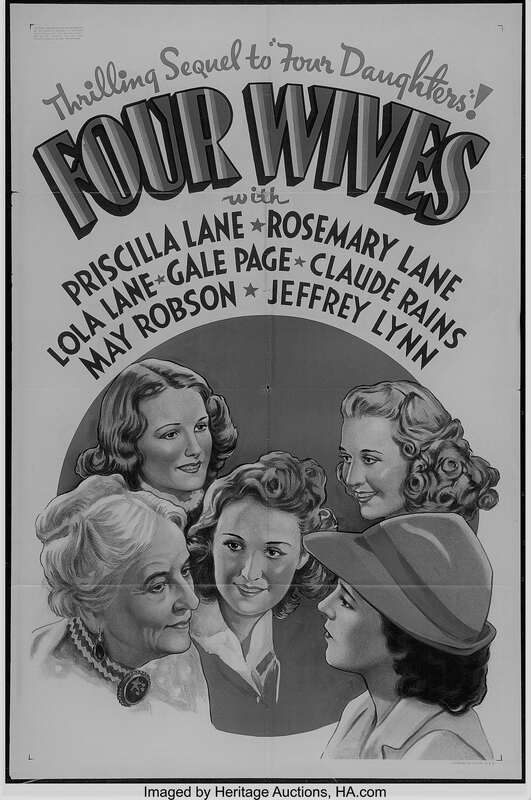 FOUR WIVES (1939)
FOUR WIVES (1939) (110 Min.) Genre: 1930 DRAMA, Transfer Quality: A
In this drama, the sequel to Four Daughters, the daughters are now adults. Three of the sisters rally together to find a new love for the fourth sister whose husband recently committed suicide. The widowed woman then discovers that she is pregnant with her deceased husband's child and this causes her to refuse a marriage proposal. At the same time, another sister learns that she is barren, one sister adopts and then finds herself carrying twins, and a different sister gets married. All are very happy except for the pregnant widow who bears her child prematurely. The baby is saved by a blood transfusion from her recently rejected suitor, and the grateful mother promptly elopes with the gallant chap. — Sandra Brennan
Starring: Claude Rains, John Garfield, Priscilla Lane, Eddie Albert, Frank McHugh | Directed by: Michael Curtiz
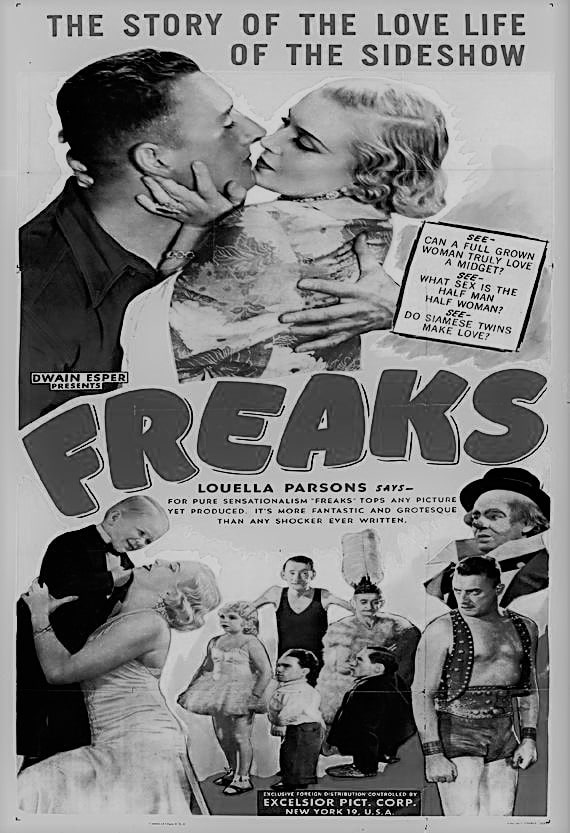 FREAKS (1932)
FREAKS (1932) (66 Min.) Genre: 1930 DRAMA, Transfer Quality: A
The genesis of MGM's Freaks was a magazine piece by Ted Robbins titled Spurs. The story involved a terrible revenge enacted by a mean-spirited circus midget upon his normal-sized wife. In adapting Spurs for the screen, writers Willis Goldbeck, Leon Gordon, Edgar Allen Wolf and Al Boasberg retained the circus setting and the little man-big woman wedding, all the while de-vilifying the midget and transforming the woman into the true "heavy" of the piece. German "little person" Harry Earles plays Hans, who falls in love with long-legged trapeze artist Cleopatra (Olga Baclanova). Discovering that Hans is heir to a fortune, Cleopatra inveigles him into a marriage, all the while planning to bump off her new husband and run away with brutish strongman Hercules (Henry Victor). What she doesn't reckon with is the code of honor among circus freaks: "offend one, offend them all." At the wedding reception, the freaks ritualistically accept Cleopatra as "one of us", but she drunkenly spurns this honor and goes out of her way to humiliate Hans. Things come to a head when it is discovered that Cleopatra is slowly poisoning Hans, and that Hercules has tried to rape "normal" seal trainer Venus (Leila Hyams), who has always treated the freaks with kindness. Banding together, the freaks drive Cleopatra and Hans into a blinding rainstorm. Cornering their prey, the freaks slowly advance toward the villains. What set this film apart from director Tod Browning's earlier efforts was the fact that genuine circus and carnival sideshow performers were cast as the freaks: Harry Earles and his equally diminutive sister Daisy, Siamese twins Violet and Daisy Hilton, torsoless Johnny Eck, armless-legless Randian (who rolls cigarettes with his teeth), androgynous Josephine-Joseph, "pinheads" Schlitzie, Elvira, Jennie Lee Snow, and so on. Upon its initial release, Freaks was greeted with such revulsion from moviehouse audiences that MGM spent the next thirty years distancing themselves as far from the project as possible. For many years available only in a truncated reissue version titled Nature's Mistakes, Freaks was eventually restored to its original release print. — Hal Erickson
Starring: Wallace Ford, Leila Hyams, Olga Baclanova, Harry Earles | Directed by: Tod Browning
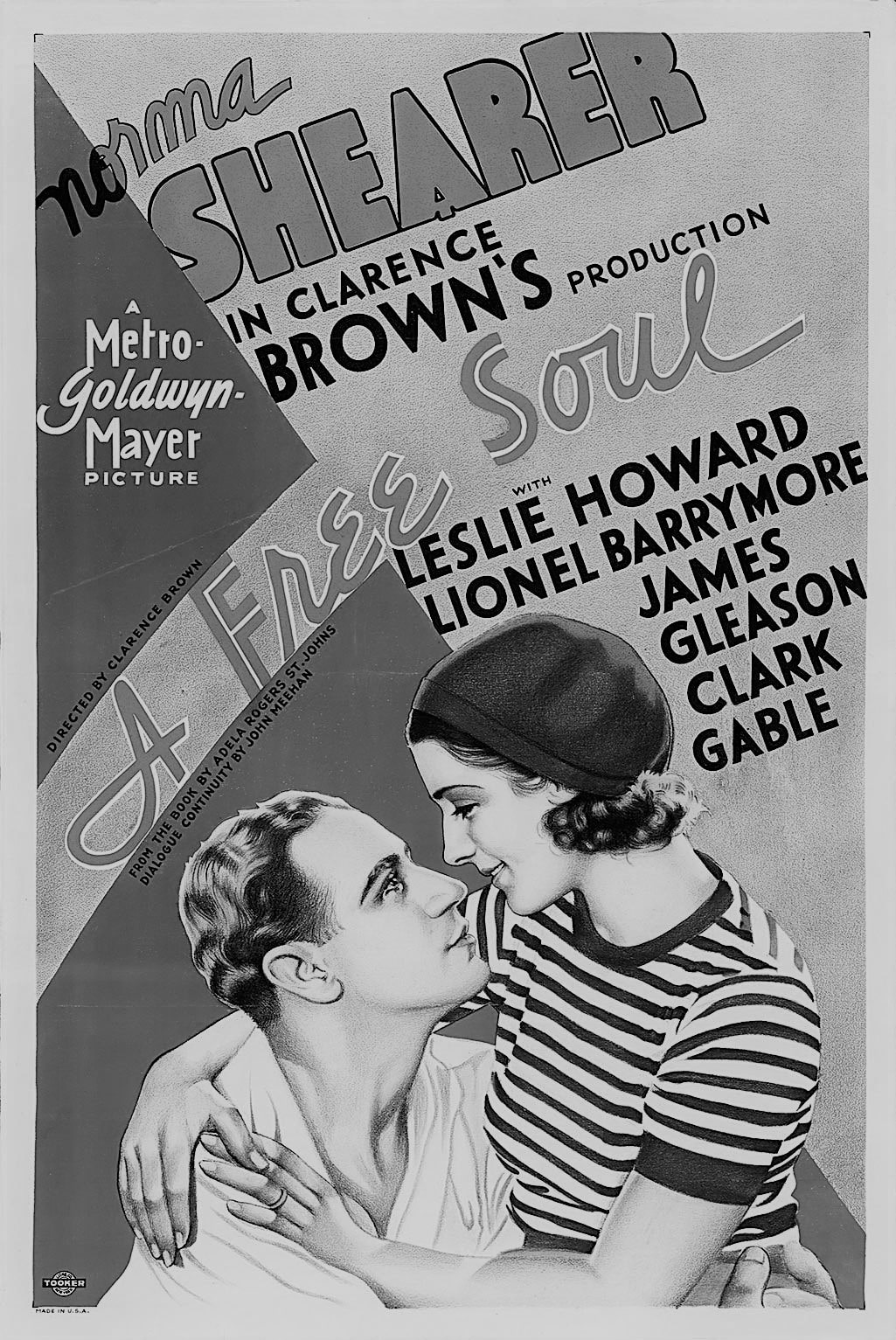 FREE SOUL, A (1931)
FREE SOUL, A (1931) (94 Min.) Genre: 1930 DRAMA, Transfer Quality: A
In this Academy Award-winning film, Stephen Ashe (Lionel Barrymore) is a hotshot Californian lawyer from a well-to-do family whose main failing is his indulgence in alcohol. After winning a case for mobster Ace Wilfong (Clark Gable), Stephen brings his client along to a party at his parents house for a little celebrating. However, when they arrive at their destination, Ace manages to steal the heart of Stephen's wild daughter, Jan (Norma Shearer), and the two run off together, much to the family's dismay. Stephen struggles to win his foolhardy daughter back from the clutches of her lowlife boyfriend, as she defies him at every turn. — Iotis Erlewine
Starring: Norma Shearer, Leslie Howard, Lionel Barrymore, Clark Gable | Directed by: Clarence Brown
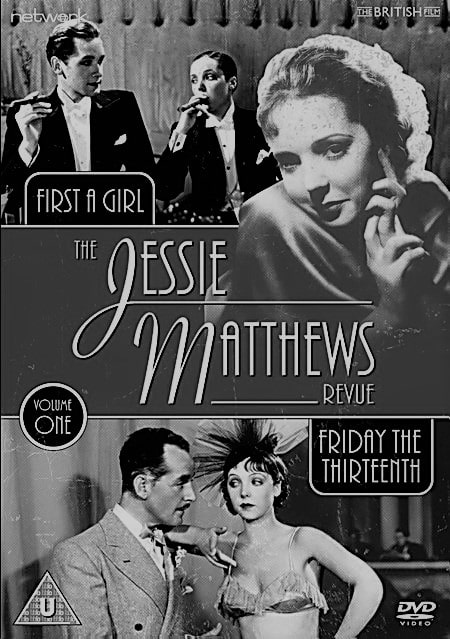 FRIDAY THE THIRTEENTH (1933)
FRIDAY THE THIRTEENTH (1933) (70 Min.) Genre: 1930 DRAMA, Transfer Quality: B
Definitely no relation to the horror-film series of the same name, the British Friday the 13th is a variation of the "Bridge on the San Luis Rey" theme, set in motion by a London bus accident. Two passengers are killed and two injured in the crash, but the screenplay (co-written by Hitchcock-contributor Sidney Gilliat) keeps the audience in suspense as to the identities of the victims. In a series of flashbacks, the viewer is introduced to the passengers and the various trials and tribulations they were dealing with before the accident. The characters include a chorus girl en route to a date with a man she doesn't love; a henpecked husband whose wife was cheating on him; a blackmailer who'd been bleeding an unfortunate young man dry; a wise-guy crook who was about to be caught by a nasty detective; and so on. Extraordinarily well cast for a mid-1930s British film, Friday the 13th affords excellent acting opportunities for the likes of Jessie Mathews, Ursula Jeans, Frank Lawton, Ralph Richardson, Max Miller, O.B. Clarence and Emlyn Williams, among many many others. While American critics were impressed by the film, British reviewers were less kind, commenting that the constant switch from one character to another only results in confusion (PS: It doesn't).
Starring: Sonnie Hale, Jessie Matthews, Ursula Jeans, Edmund Gwenn | Directed by: Victor Saville
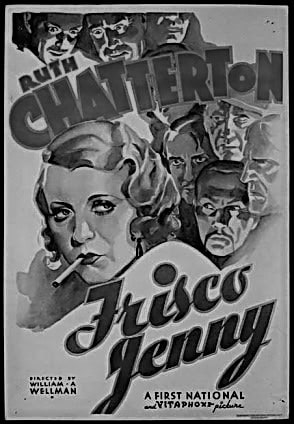 FRISCO JENNY (1933)
FRISCO JENNY (1933) (70 Min.) Genre: 1930 DRAMA, Transfer Quality: A
Ruth Chatterton stars in a retread of her earlier Madame X titled Frisco Jenny. In the prologue, Jenny becomes pregnant by a young man who is killed in the 1906 San Francisco earthquake. Bearing her child in secret, Jenny gives up custody to a wealthy couple. The years pass: Through the auspices of a crooked politician (Louis Calhern), Jenny becomes the Number One "Madame" of San Francisco, with interests in several other illicit activities. Crusading DA Donald Cook decides to rid the city of Jenny's operations—little suspecting that the notorious woman is actually his own mother! Calhern threatens to blackmail Cook with this information, but Frisco Jenny kills him before he's able to talk...and inevitably, the heart-of-gold prostitute, steadfastly keeping her secret to the last, is sentenced to death by her own flesh and blood. — Hal Erickson
Starring: Ruth Chatterton, Louis Calhern, Donald Cook, Hallam Cooley, J. Carrol Naish | Directed by: William Wellman
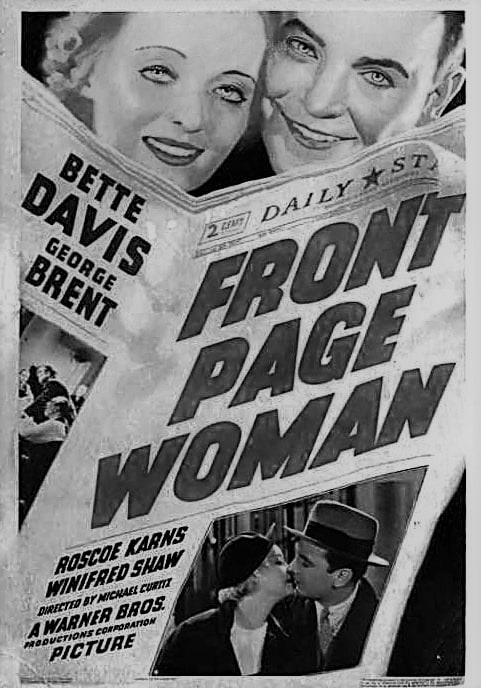 FRONT PAGE WOMAN (1935)
FRONT PAGE WOMAN (1935) (83 Min.) Genre: 1930 DRAMA, Transfer Quality: A
Front Page Woman was one of those bread-and-butter vehicles that forced Bette Davis to go on strike against Warner Bros., demanding more worthwhile scripts. On its own terms, the film is a briskly entertaining newspaper yarn about two warring reporters (Davis and George Brent). In their efforts to out-scoop each other, Bette and George frequently land in hot water, especially after phoning in contradictory information concerning a murder trial. In the climax, Davis and Brent are both sent to cover a spectacular fire. While competing over interviews and evidence, the two newshounds discover that they're in love with each other. Front Page Woman was remade nearly scene-for-scene as the "Torchy Blaine" B picture Blondes at Work (37). — Hal Erickson
Starring: Bette Davis, George Brent, June Martel, Roscoe Karns, J. Carrol Naish | Directed by: Michael Curtiz
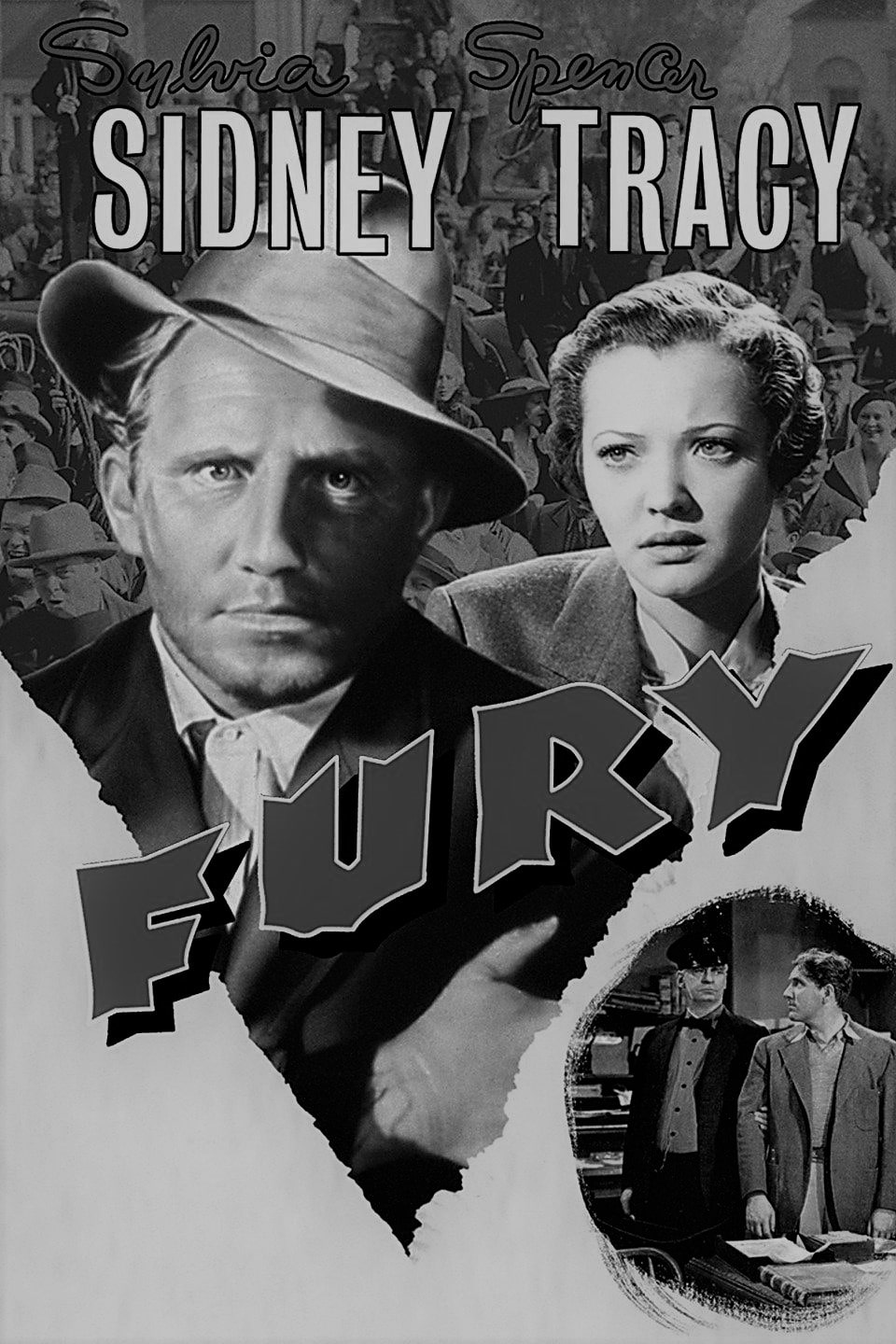 FURY (1936)
FURY (1936) (96 Min.) Genre: 1930 DRAMA, Transfer Quality: A
Fritz Lang's first American film is a vigorous and perceptive indictment of mob law, starring Spencer Tracy and Sylvia Sidney. Katherine (Sidney) leaves her boyfriend Joe Wilson (Tracy) behind in their Midwestern hometown when she takes a job in another city. Joe is a decent, hard-working soul, who wants to save up to buy a gas station and looks forward to the future when he and Katherine can get married. A year later, Joe is driving to meet Katherine so that they can be married. Driving through a small town, Joe is stopped by a deputy sheriff waving a shotgun. Apparently there has been a kidnapping, and the fact that Joe has peanuts in his pocket circumstantially incriminates him in the crime. Joe is arrested and jailed. As Joe sits in his jail cell, the local townspeople begin to talk and whisper and spread rumors. Finally, a lynch mob forms and heads toward the jail. The mob tries to storm the jail and frustrated over their inability to penetrate the prison walls, they set the jail on fire. Joe barely manages to escape ("I could smell myself burning"), but the mob thinks that Joe has been burned to death. Behind the scenes, and with the help of his brothers, Joe tries to rig the verdict in the impending trial of the twenty-two vigilantes. — Paul Brenner
Starring: Sylvia Sidney, Spencer Tracy, Walter Abel, Bruce Cabot | Directed by: Fritz Lang
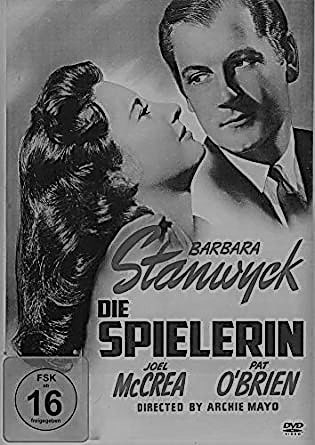 GAMBLING LADY (1934)
GAMBLING LADY (1934) (66 Min.) Genre: 1930 DRAMA, Transfer Quality: A
Born on the proverbial wrong side of the tracks, Lady Lee (Barbara Stanwyck) rises to prominence as a professional gambler. Though she works in a somewhat shady casino, our heroine enjoys a reputation for utter honesty, refusing all entreaties to turn crooked. Impressed by this quality, wealthy young Garry Madison (Joel McCrea) falls in love with Lady Lee and asks her to become his wife. Madison's friends and family assume that Lady Lee is merely a gold-digger, but she proves them irrefutably wrong when she saves him from a murder charge. According to some sources, Tyrone Power can be spotted in a bit role in this "A-minus" Warner Bros. programmer. Gambling Lady would make an interesting double feature with the later Stanwyck vehicle The Lady Gambles.
Starring: Barbara Stanwyck, Joel McCrea, Pat O'Brien, Claire Dodd Barbara Stanwyck , Joel McCrea, Pat O'Brien, Claire Dodd | Directed by: Archie Mayo
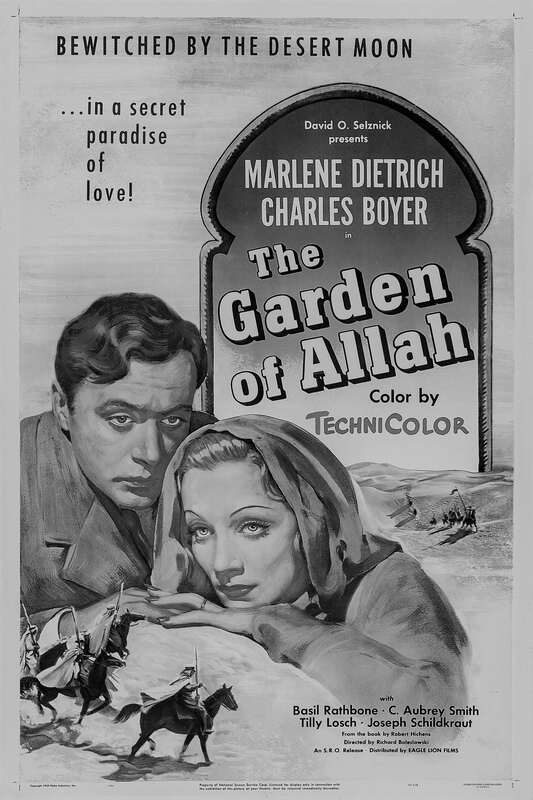 GARDEN OF ALLAH, THE (1936)
GARDEN OF ALLAH, THE (1936) (85 Min.) Genre: 1930 DRAMA, Transfer Quality: A
Marlene Dietrich stars as the noble Domini Enfilden in this third film version of Robert Hichens' 1904 novel. After caring for her dying father, Domini is told by her Mother Superior (Lucille Watson) that she should go to the Algerian desert to rest and seek sanctuary. On her way to the town of Beni-Mora, Domini meets the ill-tempered and mysterious Boris Androvsky (Charles Boyer), a Trappist monk who has forsaken his vows and also seeks the Algerian desert for salvation. Domini is attracted to this moody monk, but continues on. Her desert guide, Batouch (Joseph Schildkraut), takes Domini to a cabaret, where a riot breaks out during a production number. Boris re-appears to rescue her from the trashed club. Domini and Boris fall in love, marry, and travel to the desert for their honeymoon. There the newlyweds encounter a unit of the French Foreign Legion, whose commander, De Trevignac (Alan Marshal), holds a secret to Boris's past.
Starring: Marlene Dietrich, Charles Boyer, Basil Rathbone, C. Aubrey Smith | Directed by: Richard Boleslawski
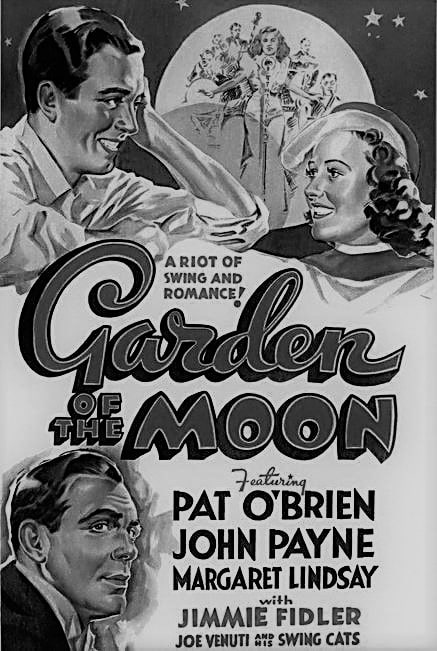 GARDEN OF THE MOON (1938)
GARDEN OF THE MOON (1938) (94 Min.) Genre: 1930 DRAMA, Transfer Quality: B
The Garden of the Moon is a fancy New York nightclub owned by Pat O'Brien. Margaret Lindsay (replacing a recalcitrant Bette Davis) is the girl who comes between O'Brien and his bandleader, John Payne. The duplicitous O'Brien spends most of his screen time figuring out various underhanded means to keep Payne from breaking his contract—and to keep Ms. Lindsay for himself. Though directed by Busby Berkeley, Garden of the Moon is surprisingly shy of dance numbers. Its musical highlight is that Looney Tunes standard "The Girlfriend of the Whirling Dervish," with vocal solos by John Payne, Johnnie "Scat" Davis, and Jerry Colonna.
Starring: Pat O'Brien, Margaret Lindsay, John Payne, Johnnie Davis | Directed by: Busby Berkeley
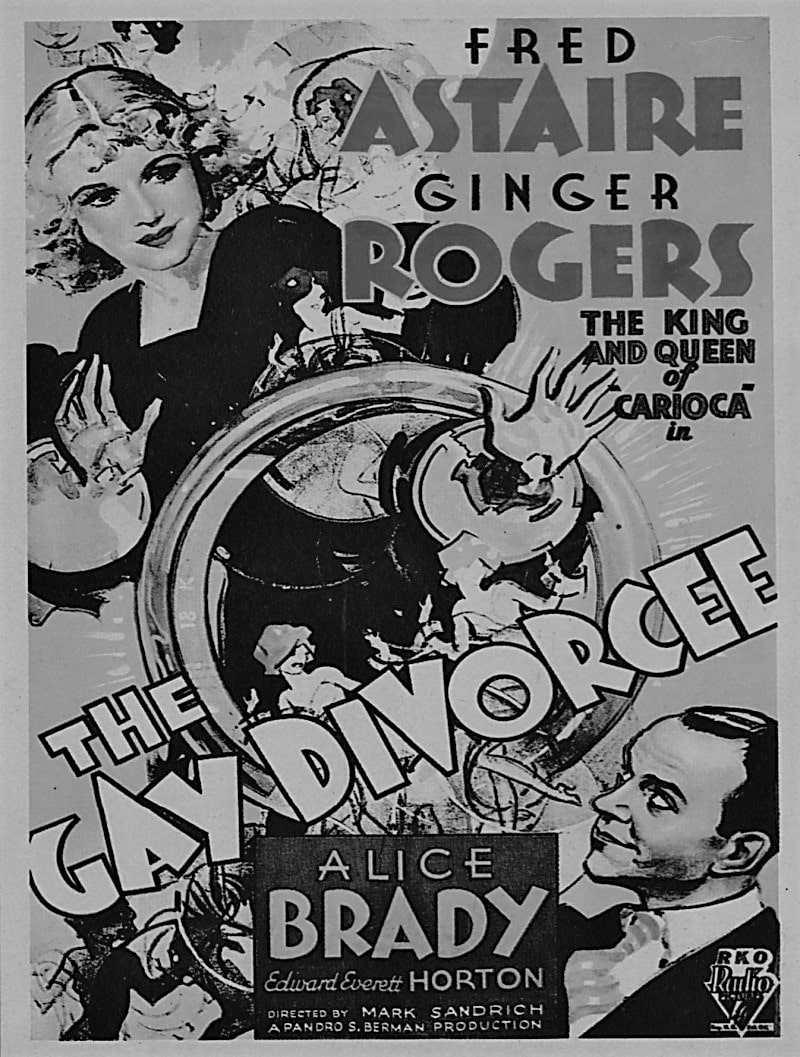 GAY DIVORCEE, THE (1934)
GAY DIVORCEE, THE (1934) (105 Min.) Genre: 1930 DRAMA, Transfer Quality: A
Based on Dwight Taylor and Cole Porter's play of the same name, The Gay Divorcee centers on Mimi (Ginger Rogers), a woman seeking a divorce from her husband. Mimi travels to an English seaside resort, pursued by the love-stricken Guy (Fred Astaire), whom she mistakes for the hired correspondent in her divorce case. Among the many musical numbers featured are "Night and Day," the only song from the original Broadway musical included in the film, and "The Continental," which won the first ever Academy Award for Best Song. Directed by Mark Sandrich, the film features supporting performances by Alice Brady and Edward Everett Horton. — Matthew Tobey
Starring: Fred Astaire, Ginger Rogers, Alice Brady, Edward Everett Horton | Directed by: Mark Sandrich
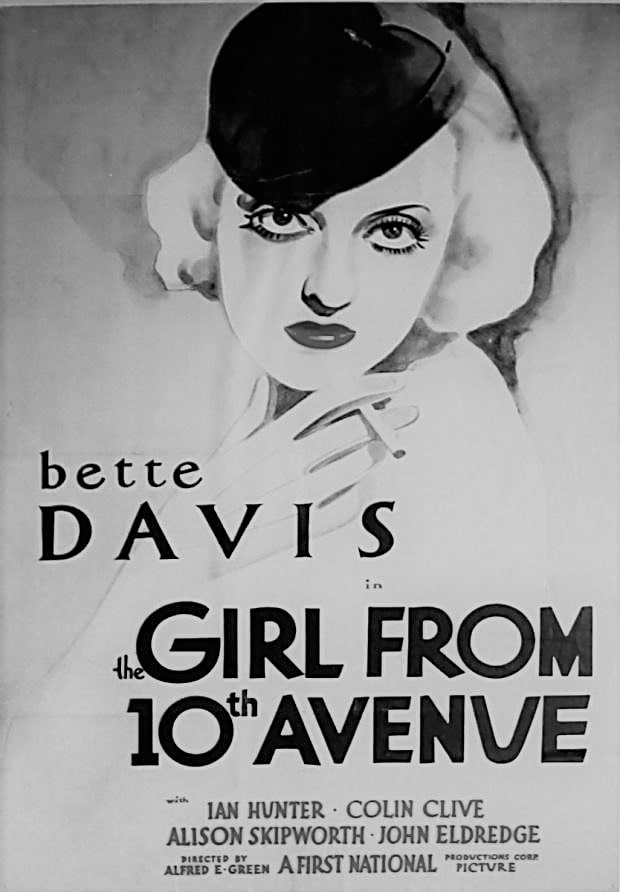 GIRL FROM 10TH AVENUE, THE (1935)
GIRL FROM 10TH AVENUE, THE (1935) (69 Min.) Genre: 1930 DRAMA, Transfer Quality: A
The fourth screen version of Hubert Henry Davies' 1914 play Outcast, this comedy-drama stars Bette Davis as Miriam Brady, a shop girl offered 100 dollars to keep drunken socialite Geoffrey Sherwood (Ian Hunter) out of trouble. The next morning, alas, Miriam discovers that she has become Mrs. Sherwood while under the influence. The couple move to an unfashionable neighborhood where Geoffrey starts his own business, but domestic bliss is soon rudely interrupted by Valentine French (Katherine Alexander), Geoffrey's former fiancée, who wants him back. According to some reports, Genevieve Tobin, originally cast as Valentine, left The Girl From Tenth Avenue in the last minute prior to production arguing that she was unsuited for the role. — Hans J. Wollstein
Starring: Bette Davis, Ian Hunter, Colin Clive, Alison Skipworth | Directed by: Alfred E. Green
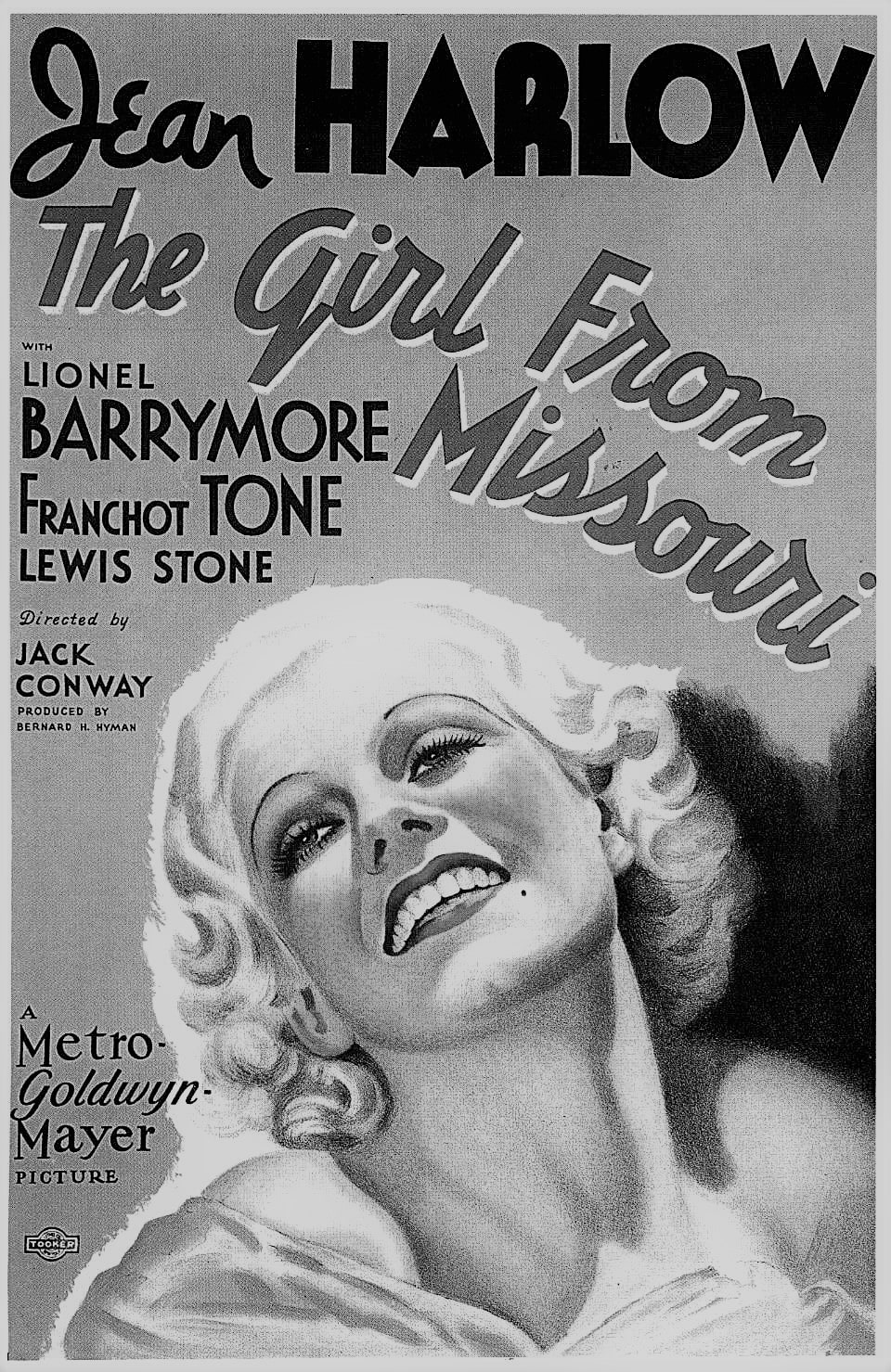 GIRL FROM MISSOURI, THE (1934)
GIRL FROM MISSOURI, THE (1934) (75 Min.) Genre: 1930 DRAMA, Transfer Quality: A
Originally titled Eadie was a Lady, this Jean Harlow vehicle was slated for release under the title Born to be Kissed, but the new Production Code vetoed this "suggestive" cognomen. After a brief and uncomfortable period as One Hundred Percent Pure, the film was finally shipped to theaters as The Girl From Missouri. Harlow plays Eadie, a sexy gold-digger who promises to remain chaste until she finds a wealthy husband. Travelling to New York in the company of her best friend Kitty (Patsy Kelly), Eadie manages to keep that promise, though for a while it looks as though she'll succumb to the charms of playboy T. R. Paige Jr. (Franchot Tone). Once Paige has proven that his intentions are basically honorable, Eadie must break down the resistance of T. R. Paige Sr. (Lionel Barrymore), who is dead-set against his son's romance and intends to frame the girl in a compromising position. She gets even with Paige Sr. by framing him, but there's still a couple of reels to go before the happy ending. Except for some provocative costuming, Jean Harlow's character is essentially decent, thereby "cleansing" some of the more risque elements of this enjoyable romantic comedy. The film's best line is delivered by Patsy Kelly who, when propositioned by an elderly roue, snarls "Look at this! Death takes a holiday!"
Starring: Jean Harlow, Lionel Barrymore, Franchot Tone, Lewis Stone, Alan Mowbray | Directed by: Jack Conway
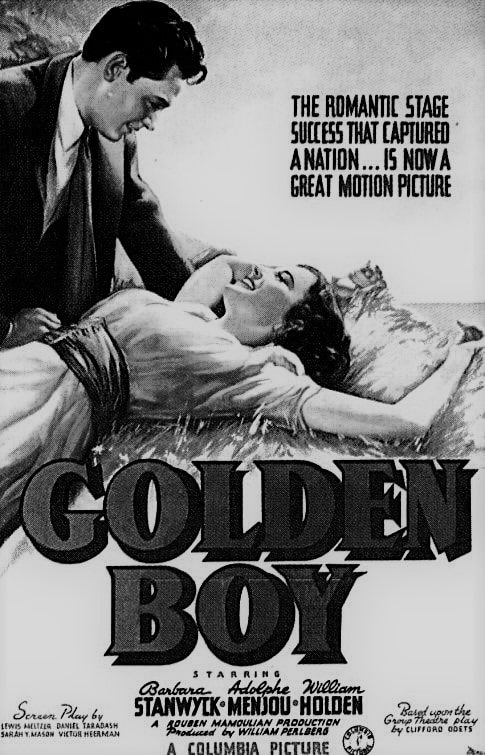 GOLDENBOY (1939)
GOLDENBOY (1939) (100 Min.) Genre: 1930 DRAMA, Transfer Quality: A
Director Rouben Mamoulian often claimed that he'd been inspired to make Golden Boy after reading a newspaper clipping about a recently deceased boxer. While Mamoulian may have genuinely believed that he was the true "auteur" of Golden Boy, he probably wouldn't have made the picture at all had not Clifford Odets started the ball rolling by writing the property for the stage in 1936. In his first starring role, William Holden plays Joe Bonaparte, a promising young boxer. While boxing promoter Tom Moody (Adolphe Menjou) and Menjou's mistress Lorna Moon (Barbara Stanwyck) urge Joe to pursue a ring career, Joe's Italian father (played with a surfeit of Chico Marx by 27-year-old Lee J. Cobb) wants his boy to become a famous violinist. Moody tells Lorna to romance the boy to get him into the ring. She does so, but regrets her callous actions when she genuinely falls in love with Joe. Having already broken his father's heart, Joe is further devastated when he accidentally kills a ring opponent. In the original play, both Joe and Lorna pay for their "sins" by dying in an auto accident. This would never do in Hollywood, so at fadeout time the chastened Joe returns to his forgiving father, with a tearful Lorna by his side. Clifford Odets' overrated purple prose seems to flow naturally from the actors, though it is obvious that William Holden had a long way to go. Still, Holden is pretty good in his first bonafide lead, a fact that he would ever after attribute to the patience and encouragement of his co-star Barbara Stanwyck; each year on the anniversary of Golden Boy's Hollywood premiere, Holden would send Stanwyck flowers as a sign of his eternal gratitude. While much of Golden Boy seems like a cliche-ridden museum piece when seen today, the film comes to life during the boxing sequences, helmed in exciting montage fashion by the always innovative Rouben Mamoulien. — Hal Erickson
Starring: Barbara Stanwyck, William Holden, Adolphe Menjou, Lee J. Cobb, Joseph Calleia | Directed by: Rouben Mamoulian
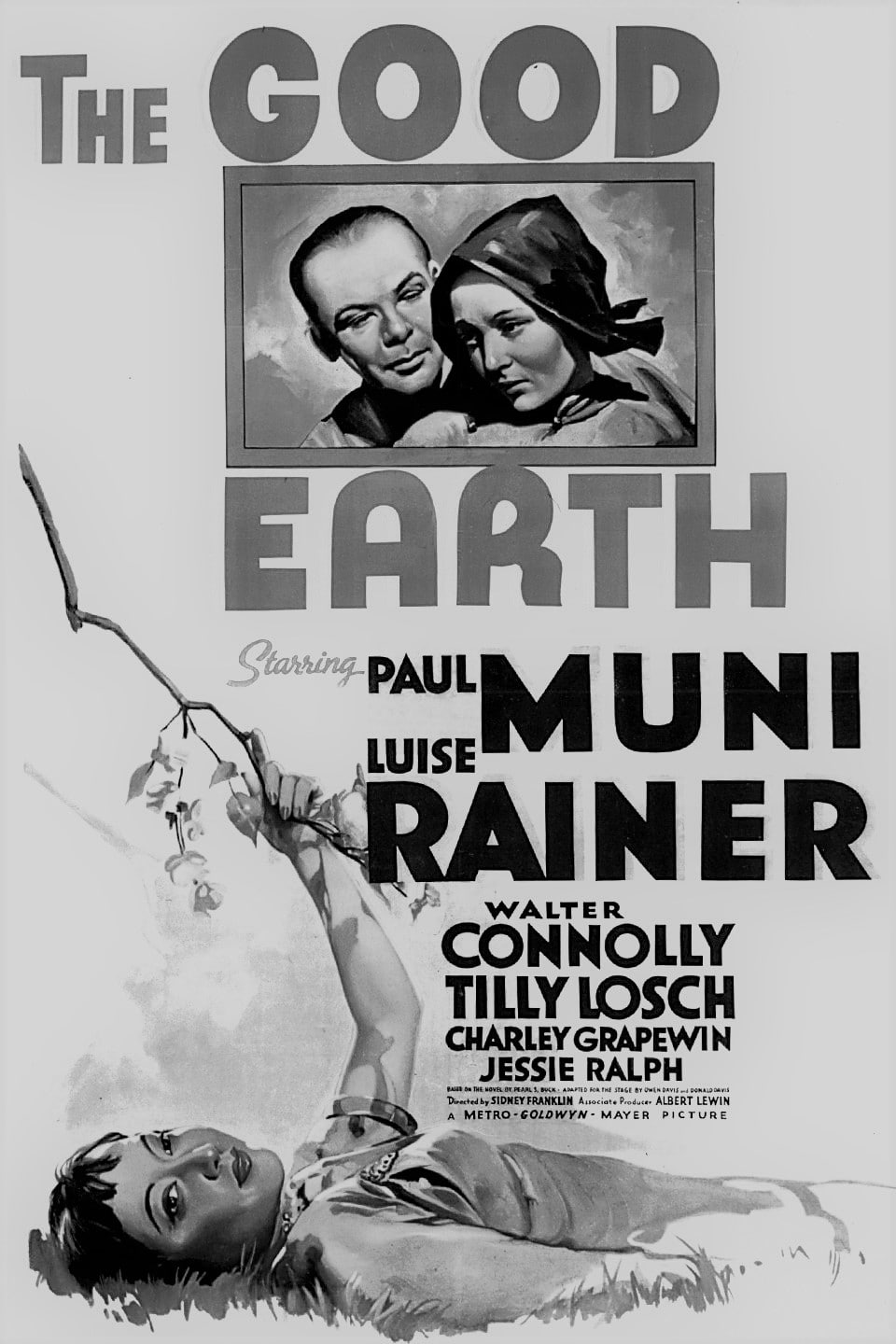 GOOD EARTH, THE (1937)
GOOD EARTH, THE (1937) (138 Min.) Genre: 1930 DRAMA, Transfer Quality: A
Based on Donald Davis and Owen Davis' stage-adaptation of Pearl S. Buck's sprawling novel, Sidney Franklin's The Good Earth is the story of a Chinese farming couple whose lives are torn apart by poverty, greed, and nature. Paul Muni stars as Wang Lung a hardworking, but poor, farmer who weds freed-slave O-Lan (Luise Rainer). They struggle to build a life together, but after finally finding success, a plague of locusts descends upon their land, bringing a true test of the couple's perseverance. For her performance, Luise Rainer won the second of back-to-back Best Actress Oscars, while cinematographer Karl Freund took home an Academy Award for his photography work. The Good Earth was the final film production of Irving Thalberg, who died before the film was completed. — Matthew Tobey
Starring: Paul Muni, Luise Rainer, Walter Connolly, Tilly Losch | Directed by: Victor Fleming, Sidney A. Franklin
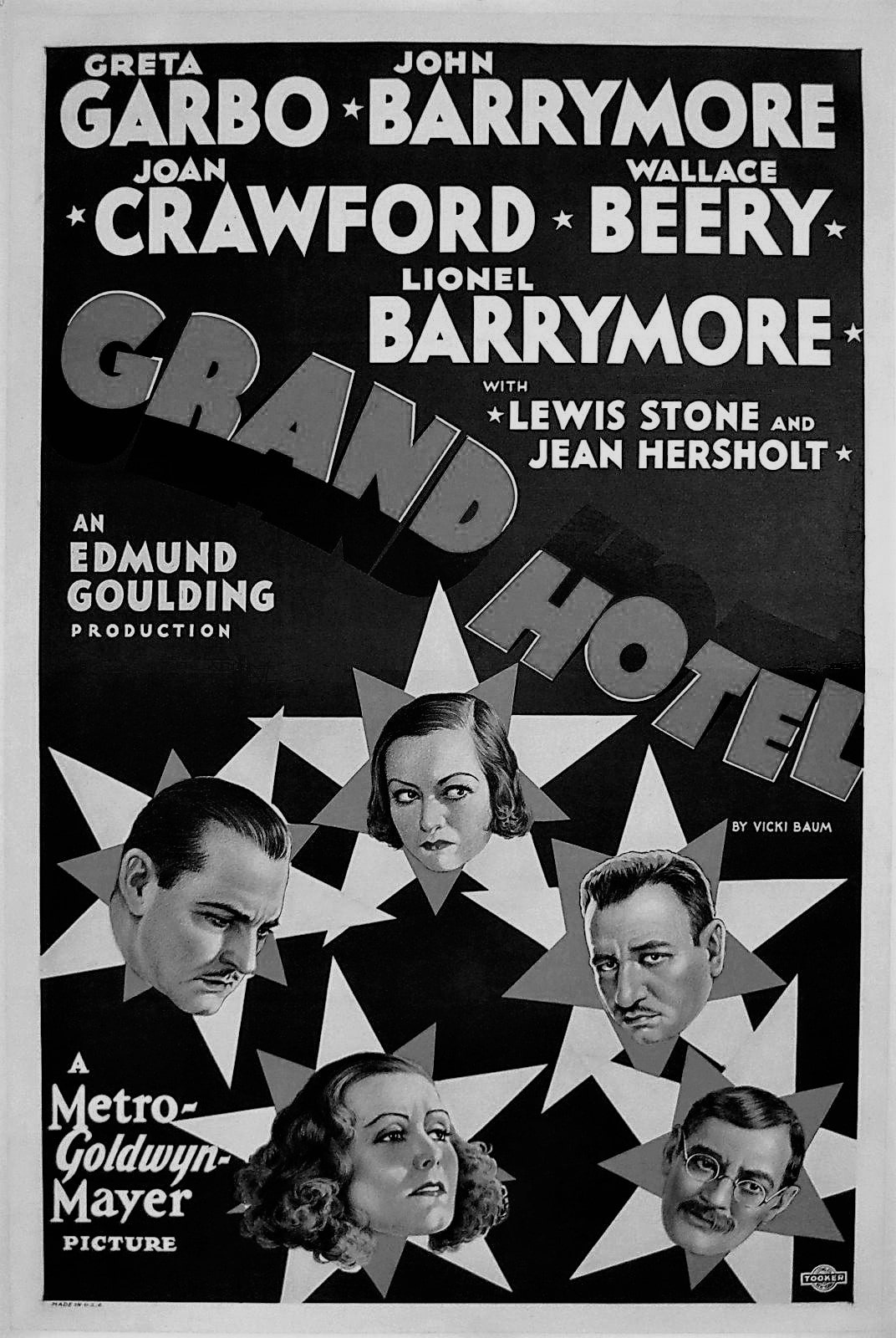 GRAND HOTEL (1932)
GRAND HOTEL (1932) (113 Min.) Genre: 1930 DRAMA, Transfer Quality: A
Based on Vicki Baum's novel and produced by Irving Thalberg, this film is about the lavish Grand Hotel in Berlin, a place where "nothing ever happens." That statement proves to be false, however, as the story follows an intertwining cast of characters over the course of one tumultuous day. Greta Garbo is Grusinskaya, a ballerina whose jewels are coveted by Baron von Geigern (John Barrymore), a thief who fancies Flaemmchen (Joan Crawford), a stenographer and the mistress of Preysing (Wallace Beery), businessman boss of Kringelein (Lionel Barrymore), a terminally ill bookkeeper who is under the care of alcoholic physician Dr. Otternschlag (Lewis Stone). Grand Hotel won Best Picture at the 1932 Academy Awards. — Matthew Tobey
Starring: Greta Garbo, John Barrymore, Joan Crawford, Wallace Beery | Directed by: Edmund Goulding
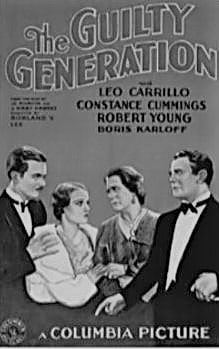 GUILTY GENERATION, THE (1931)
GUILTY GENERATION, THE (1931) (82 Min.) Genre: 1930 DRAMA, Transfer Quality: B
William Shakespeare's classic tragedy Romeo & Juliet is loosely adapted and modernized in director Rowland V. Lee's Guilty Generation. Set in 1930's New York, rival gangster families the Palmero's and the Ricca's play Lee's version of the infamous Montagues and Capulets. The two mobs had once co-existed peacefully, but split after a terrible argument, causing a long-standing and deadly rivalry. Maria Palmero (Constance Cummings), the daughter of gangster Mike Palmero (Leo Carillo), meets and falls in love with a young architect played by (Robert Young). Though Young's character goes by the name of John Smith, his true identity is none other than Marco Ricca--the son of Mike's (Carillo) rival. Due to the war waged by their families, Maria and Marco try to keep their affair and ultimate marriage to one another secret. Unfortunately, Maria's father realizes the two have married and vows to kill Marco, who had earlier killed Maria's brother. Tragically, the Palmero family patriarch is only stopped with a bullet from his own mother's (Emma Dunn) gun.
Starring: Leo Carrillo, Constance Cummings, Robert Young, Boris Karloff | Directed by: Rowland V. Lee
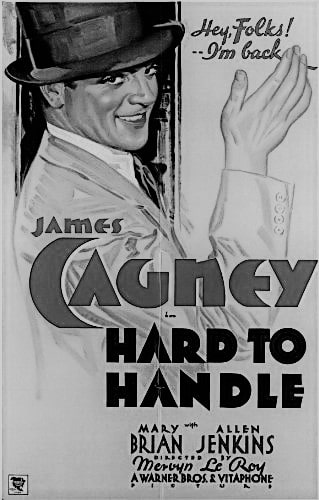 HARD TO HANDLE (1933)
HARD TO HANDLE (1933) (75 Min.) Genre: 1930 DRAMA, Transfer Quality: A
Hard to Handle stars James Cagney as a fast-talking promoter who pounces upon every current fad and foible to make a quick buck. He promotes marathon dances (where spectators feel cheated because no one drops dead), crash diets, reducing creams and treasure contests, finagling his way into the confidence of high rollers and money men. In a cute "inside" joke harking back to a choice Cagney moment in The Public Enemy, our hero at one point takes up the promotion of grapefruits! Like most conners, Cagney isn't aware when he is being conned himself, and he falls victim to his marathon-dance business partner, who absconds with the winnings. The contest winner is pretty Mary Brian, whose mother (Ruth Donnelly) tries to extract payment by forcing Cagney to marry her daughter. He does, but only after eight reels of high-pressure wheeling and dealing. In the tradition of Jimmy Cagney's other early-1930s, Hard to Handle is socked over by the energetic insouciance of its star.
Starring: James Cagney, Mary Brian, Ruth Donnelly, Allen Jenkins, Claire Dodd | Directed by: Mervyn LeRoy
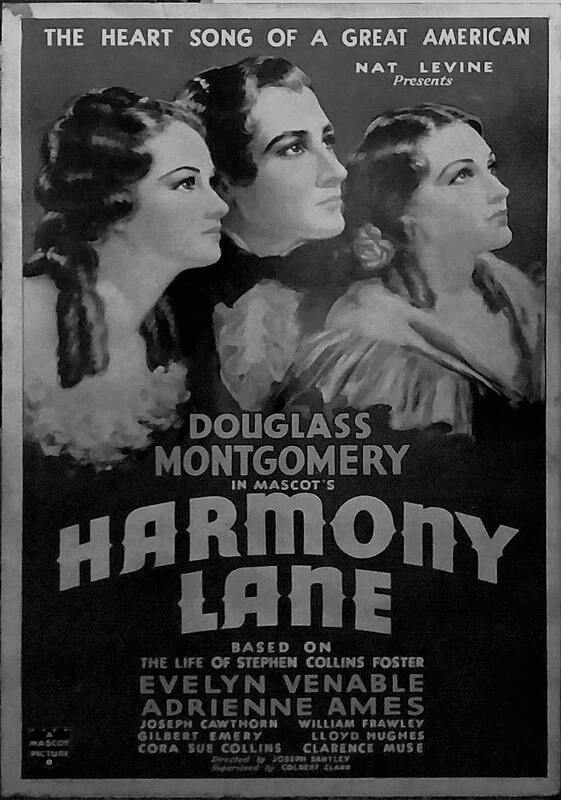 HARMONY LANE (1935)
HARMONY LANE (1935) (84 Min.) Genre: 1930 DRAMA, Transfer Quality: B
Produced on a reasonably lavish scale by the usually parsimonious Mascot Pictures, Harmony Lane was the first of three filmed biographies of 19th-century songwriter Stephen Foster (the others were Fox's Swanee River [1939] and 1952's I Dream of Jeannie, produced by Mascot's successor, Republic Pictures). Douglass Montgomery stars as Foster, with Evelyn Venable and Adrienne Ames as the women in his life and William Frawley as minstrel impresario E.P. Christy (the part played by Al Jolson in Swanee River). The film follows Foster from his early attempts to study for the ministry to his first flush of success in the years just prior to the Civil War, ending with his death in drunken poverty in New York. Just what was it that so attracted Hollywood to this melancholy tale? Perhaps it was the fact that Stephen Foster's songs were in the Public Domain, thereby allowing producers to sidestep expensive copyright and licensing fees. Harmony Lane was written and directed by Joseph Santley, a prolific if uninspired helmsman of early-talkie musicals.
Starring: Douglass Montgomery, Evelyn Venable, Adrienne Ames, Joseph Cawthorn | Directed by: Joseph Santley
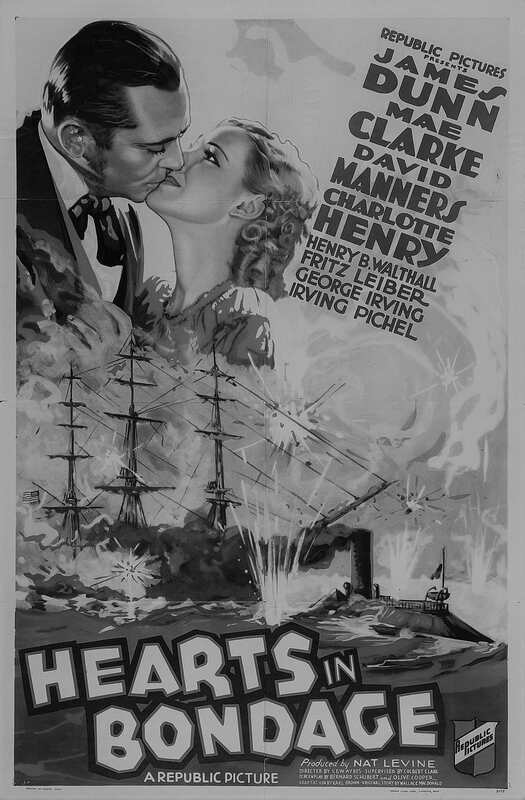 HEARTS IN BONDAGE (1936)
HEARTS IN BONDAGE (1936) (72 Min.) Genre: 1930 DRAMA, Transfer Quality: C
First-time director Lew Ayres performs miracles on a tiny budget in the Civil War drama Hearts in Bondage. The story offers a romanticized version of the events leading up to the battle between the "ironclads" Monitor and Merrimac. Northern naval officer Kenneth (James Dunn), the nephew of Monitor designer John Ericsson (Fritz Leiber) is dishonorably discharged when he sinks the Merrimac instead of burning it, as ordered. He is restored to duty as a crew member on the Monitor, and in the ensuing sea battle with the recommissioned Merrimac he kills Confederate officer Raymond (David Manners), the brother of Kenneth's fiancee Constance (Mae Clarke). The estranged sweethearts are ultimately reunited with the help of Abe Lincoln himself! Both James Dunn and Mae Clarke are miscast in their roles, but they do their best under the circumstances to make their material "work" — and often succeed. The real stars of Hearts in Bondage are Republic's special-effects mavens Howard and Theodore Lydecker, whose splendid utilization of scale models in the climactic Monitor-Merrimac confrontation is both exciting and convincing. — Hal Erickson
Starring: James Dunn, Mae Clarke, David Manners, Charlotte Henry | Directed by: Lew Ayres
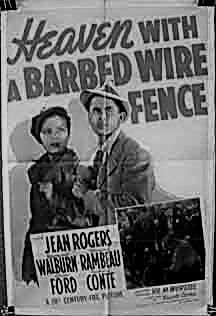 HEAVEN WITH A BARBED WIRE FENCE (1939)
HEAVEN WITH A BARBED WIRE FENCE (1939) (62 Min.) Genre: 1930 DRAMA, Transfer Quality: A
In his feature film debut, Glenn Ford plays a department-store clerk who saves up enough money to buy a small patch of land in Arizona. Unable to afford a car, Ford hitchhikes to his new home, and along the way teams up with a transient (Richard Conte) and an illegal alien (Jean Rogers). The girl is torn between both men, but ultimately opts for the clerk. To save the girl from deportation, the clerk marries her, and together they make a new life for themselves in his tiny Arizona homestead. Adapted from a story by Dalton Trumbo, Heaven with a Barbed Wire Fence was directed by former silent film star Ricardo Cortez.
Starring: Jean Rogers, Glenn Ford, Raymond Walburn, Nicholas Conte | Directed by: Ricardo Cortez
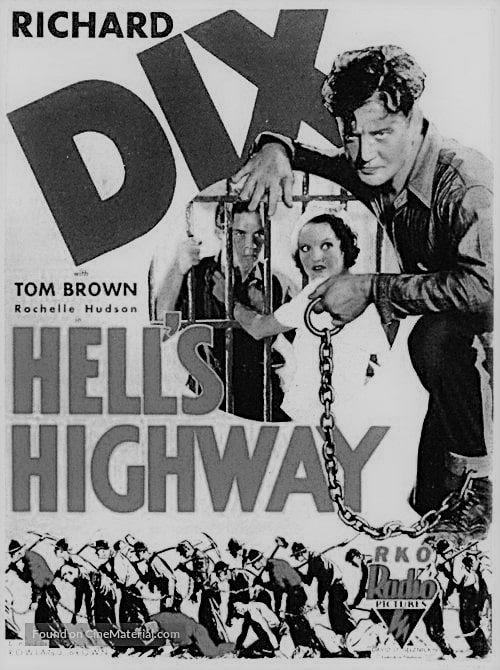 HELL'S HIGHWAY (1932)
HELL'S HIGHWAY (1932) (62 Min.) Genre: 1930 DRAMA, Transfer Quality: A
Often referred to as an imitation of Warner's legendary prison drama I Am a Fugitive From a Chain Gang (1932), RKO's stirring Hell's Highway was actually released a few months earlier. The two films were in production at the same time, but RKO was determined to beat the competition (which also included Universal's Laughter in Hell, 1933) and not a few corners were cut. All three films were set in a generic Southern state (read Georgia) and depicted a horrid penal system more akin to the Middle Ages than the supposedly enlightened 1930s. In Hell's Highway, the chain gang prisoners wear uniforms with a large target printed on the back and the torture instrument du jour is a so-called sweatbox, in constant operation so that unscrupulous contractor Billings (Oscar Apfel) may construct his "Liberty Highway" on time and under budget. When a prisoner dies from exposure in the dreaded contraption, Duke Ellis (Richard Dix) concocts a plan to escape. The escape comes to an abrupt halt with the sudden arrival of his kid brother, Johnny (Tom Brown). The latter ends up in the sweatbox, but Duke has the kid transferred to office duty by using a bit of blackmail. There is a climactic prison riot, during which Duke is killed after saving his brother once again. Or at least that was what a preview audience saw. The death of the film's hero proved so shocking that RKO hastily filmed an alternative ending and Hell's Highway, as it survives today, concludes with Billings being charged with murder (the sweatbox situation) and Duke asked to testify against him. Typical of pre-code Hollywood, Hell's Highway features an openly gay prisoner (who bats his eyes at the prison guards), several scenes of torture, an appearance of near equality between black and white inmates, a bible-quoting polygamist (Charles Middleton), a wife-murdering guard (Warner Richmond), and, for added verisimilitude, a handicapped character who, when mortally wounded during the riot, signs his farewell to this world. Hell's Highway may not have enjoyed the status of I Am a Fugitive From a Chain Gang, but it remains a powerful indictment of the Georgian penal system of 1931 and a fine, well-acted film in its own right. — Hans J. Wollstein
Starring: Richard Dix, Tom Brown, Louise Carter, Rochelle Hudson | Directed by: Rowland Brown
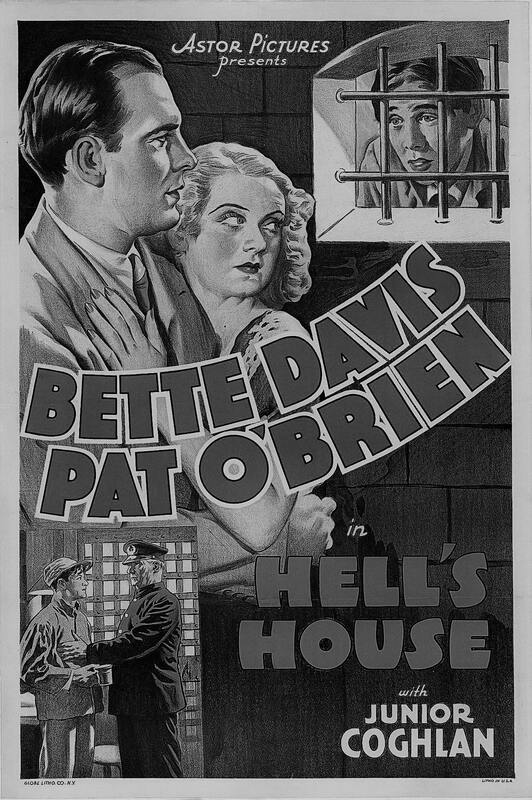 HELL'S HOUSE (1932)
HELL'S HOUSE (1932) (80 Min.) Genre: 1930 DRAMA, Transfer Quality: B
Bette Davis was on loan from Universal when she appeared in this little juvenile delinquent melodrama from independent producer B.F. Zeidman. Although Davis earned above-title billing (along with Pat O'Brien), Junior Durkin is the real star, a teenager who is sent to juvenile prison after being caught in a raid on a bootlegging establishment operated by Kelly (O'Brien). At juvenile hall, Jimmy befriends Shorty (Frank Coghlan Jr.), a sickly youth who is subsequently sent to solitary confinement. When it appears that Shorty will die without medical attention, Jimmy escapes and manages to contact Kelly's kindhearted girlfriend, Peggy Gardner (Davis). The latter goes to the newspapers and the resulting uproar helps change the inhuman conditions in the country's youth detentions. Unfortunately, the efforts come too late for Shorty, who has already died from the abuse.
Starring: Bette Davis, Pat O'Brien, Junior Durkin, Charles Grapewin, Junior Coughlan, Mary Alden | Directed by: Howard Higgin
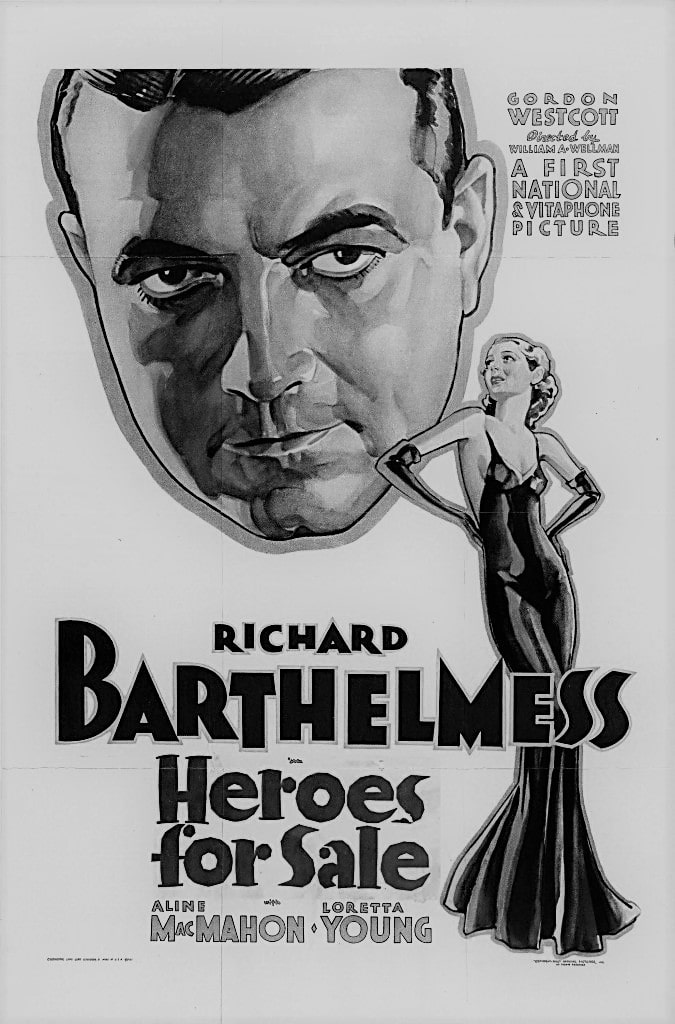 HEROES FOR SALE (1933)
HEROES FOR SALE (1933) (72 Min.) Genre: 1930 DRAMA, Transfer Quality: A
What isn't Heroes for Sale about? Within its 71-minute time frame, this film (co-written by "professional cynic" Wilson Mizner) tackles such issues as disenfranchised war veterans, misguided hero worship, drug addiction, the Depression, capitalism, labor relations and communism. Richard Barthelmess plays a wounded war hero whose hospital stay has turned him into a morphine junkie. He wanders from town to town looking for work during the Depression, only to be turned away with a "we've got our own to watch out for!" Eventually, Barthelmess befriends millionaire-in-the-making Robert H. Barrat, who has invented a revolutionary washing machine. Becoming Barrat's partner, Barthelmess attempts to quell a strike by workers who've been stirred up by Red agitators. With all this going on, Barthelmess still finds time to romance Loretta Young. Heroes for Sale is very much a product of its time, though its entertainment value has remained solid for well over six decades. — Hal Erickson
Starring: Richard Barthelmess, Loretta Young, Aline MacMahon, Gordon Westcott | Directed by: William Wellman
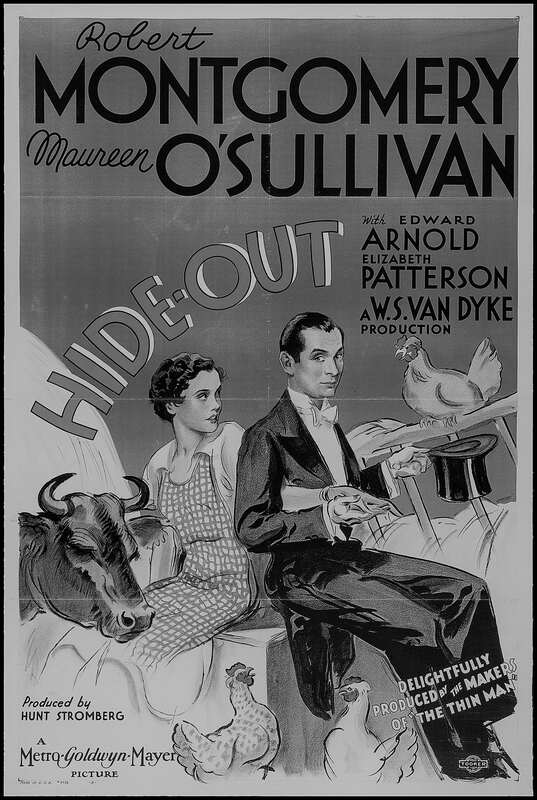 HIDE-OUT (1934)
HIDE-OUT (1934) (81 Min.) Genre: 1930 DRAMA, Transfer Quality: A
Wounded criminal Lucky Wilson (Robert Montgomery) takes refuge in a small Connecticut farm. He falls in love with Maureen O'Sullivan, who at first is unaware of his criminal record. Lucky is fully prepared to shoot his way out when the cops come calling, but he is softened by O'Sullivan's affections and finally agrees to turn himself in. Screenwriters Frances Goodrich and Albert Hackett leaven several potentially melodramatic sequences with some first-rate comic dialogue; many of the funniest scenes belong to nightclub owners Henry Armetta and Hermann Bing. Hide-Out was remade in 1941 as I'll Wait for You, a title which rather gave away the ending. — Hal Erickson
Starring: Robert Montgomery, Maureen O'Sullivan, Edward Arnold, Elizabeth Patterson | Directed by: W.S. Van Dyke
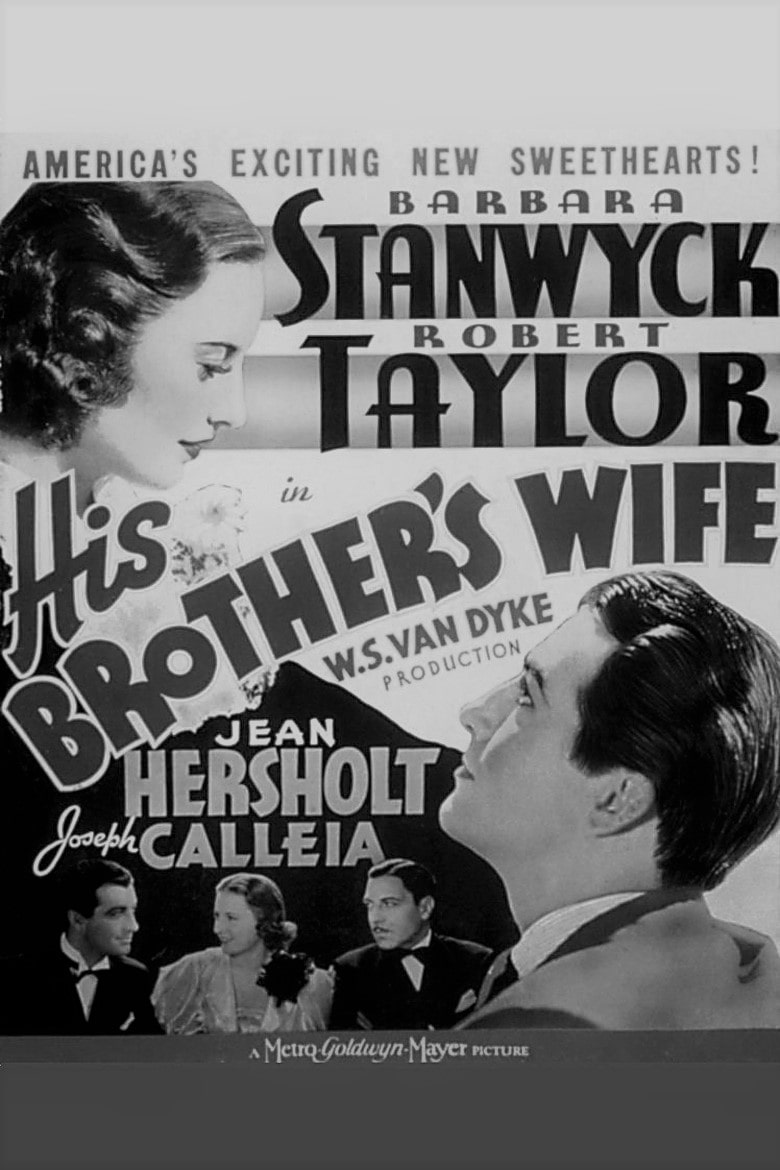 HIS BROTHER'S WIFE (1936)
HIS BROTHER'S WIFE (1936) (88 Min.) Genre: 1930 DRAMA, Transfer Quality: A
In this polished soap opera from MGM, Robert Taylor plays Chris Claybourne, a dedicated scientist researching a possible cure for spotted fever. However, Chris has a dark side; he has a weakness for gambling and has fallen into debt with a gangster named Fish Eye (Joseph Calleia). While visiting a casino, Chris meets Rita Wilson (Barbara Stanwyck), a gambler's shill who does some modeling on the side. Chris and Rita quickly fall in love, and when Chris is due to leave for South America on a research expedition, Rita begs him to stay with her. However, Fish Eye has been leaning on Chris for his money, and when he asks his brother Tom (John Eldridge) for a loan to pay off the debt, he agrees under one condition — that Chris leave for South America right away, and without Rita. When Chris ships out, Rita believes that he left her behind because he didn't care for her, and to hurt him, she marries Tom and takes Chris's IOU. However, by the time Chris returns, Rita's marriage with Tom is in tatters and she's desperate to win back Chris's affection. In real life, Robert Taylor and Barbara Stanwyck were an item while shooting His Brother's Wife, and they married three years later. — Mark Deming
Starring: Barbara Stanwyck, Robert Taylor, Jean Hersholt, Joseph Calleia | Directed by: W.S. Van Dyke
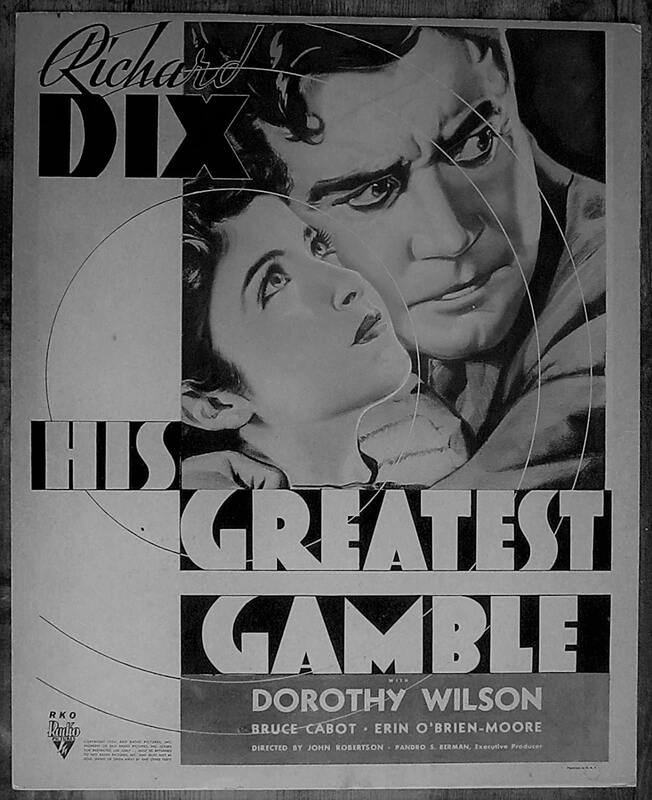 HIS GREATEST GAMBLE (1934)
HIS GREATEST GAMBLE (1934) (70 Min.) Genre: 1930 DRAMA, Transfer Quality: A
The "greatest gamble" in the life of Philip Eden (Richard Dix) is to restore his long-estranged daughter Alice's (Dorothy Wilson) will to live. Escaping from prison after serving 15 years for unintentional homicide, Eden discovers that Alice has been raised as a weak, vacillating neurotic by her vengeful mother Florence (Erin O'Brien-Moore). He promptly "kidnaps" the girl and builds up her health and spirit, finally turning her over to her sweetheart Stephen (Bruce Cabot) before voluntarily giving himself up to the Law. His Greatest Gamble allows Richard Dix to combine both his established screen personae: The misunderstood hero and the virile man of action. Not surprisingly, Dix's legions of fans ate it up like candy.
Starring: Richard Dix, Dorothy Wilson, Bruce Cabot, Erin O'Brien-Moore | Directed by: John S. Robertson
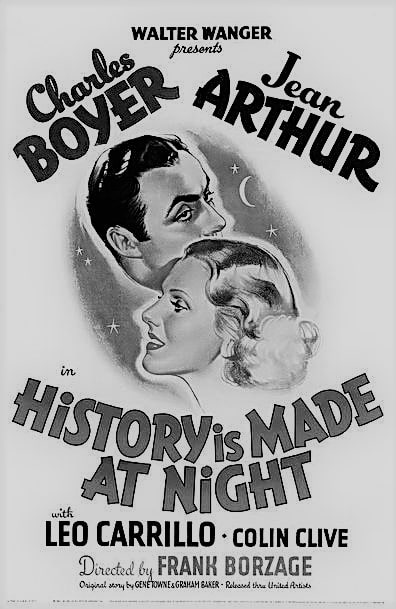 HISTORY IS MADE AT NIGHT (1937)
HISTORY IS MADE AT NIGHT (1937) (98 Min.) Genre: 1930 DRAMA, Transfer Quality: B
History is Made at Night has been described as a romantic tragedy, which it indeed is, up to a point. The film begins deceptively in screwball-comedy fashion with socialite Jean Arthur and handsome head waiter Charles Boyer "meeting cute." But there's nothing cute about Arthur's estranged husband, shipbuilder Colin Clive. Insanely jealous, Clive arranges for the ship on which his wife and her lover are travelling to hit an iceberg—then, aghast at what he has done, Clive commits suicide. As the ship lists dangerously close to sinking beneath the waves, the terrified passengers—Boyer and Arthur included—huddle on the deck. The fog-enshrouded scene in which Charles and Jean affirm their love in the face of death is among the most heartrending sequences ever filmed (the director was Frank Borzage, a past master at transforming potential maudlin material into high-gloss art). Even the happy ending of History is Made at Night does not diminish the power and poignancy of that shipboard scene.
Starring: Charles Boyer, Jean Arthur, Leo Carrillo, Colin Clive | Directed by: Frank Borzage
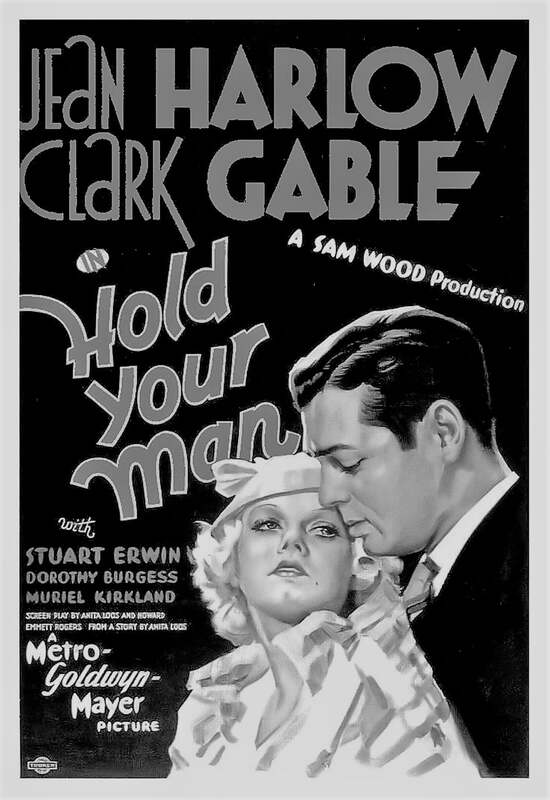 HOLD YOUR MAN (1933)
HOLD YOUR MAN (1933) (87 Min.) Genre: 1930 DRAMA, Transfer Quality: A
There's nothing wrong with Hold Your Man that a little editing wouldn't cure. Clark Gable plays a raffish young petty crook who hides out in hard-boiled Jean Harlow's apartment after he pulls off a robbery. Harlow enjoys Gable's company, and soon the two are living together. Gable puts his criminal career on hold for a while, but when Harlow, jealous of her boy friend's womanizing, fabricates a romance with "wealthy" laundry owner Paul Hurst, Gable decides to knock over Hurst's establishment. Hurst is accidentally killed, whereupon Gable runs off to parts unknown, leaving Harlow to take the rap. While in prison, Harlow discovers she's pregnant with Gable's baby. The conscience-stricken Gable tries to fix things by sneaking into prison and hastily marrying Harlow. By coming out of hiding, Gable allows himself to be arrested, but Harlow promises to wait for him. Hold Your Man starts out as an acerbic "sez you" comedy-drama, then bogs down into a big pile of sentimental goo (a common problem with MGM films of the early 1930). Still, the first few reels are infinitely entertaining, thanks to the chemistry between Clark Gable and Jean Harlow. — Hal Erickson
Starring: Jean Harlow, Clark Gable, Stuart Erwin, Dorothy Burgess | Directed by: Sam Wood
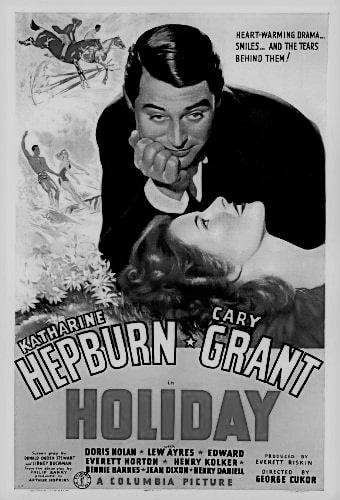 HOLIDAY (1938)
HOLIDAY (1938) (96 Min.) Genre: 1930 DRAMA, Transfer Quality: A
George Cukor was arguably the best and most consistent director of sophisticated romantic comedies in the golden age of the 1930s and 1940s. Literate, thoughtful, and refined, his efforts in the genre were blueprints for all who followed, and Holiday was no exception. Next to The Philadelphia Story, the film is perhaps his most-loved comedy. An enjoyable screen version of the same Philip Barry play had been produced just eight years earlier, starring Mary Astor and Robert Ames, but Cukor improved on it in just about every way. This is the second of three times that Cukor worked with Katharine Hepburn and Cary Grant. Hepburn was Cukor's favorite star, and he was instrumental in her success as an actress ever since her first leading role, in the director's 1932 film Bill of Divorcement. — Brendon Hanley
Starring: Katharine Hepburn, Cary Grant, Doris Nolan, Lew Ayres | Directed by: George Cukor
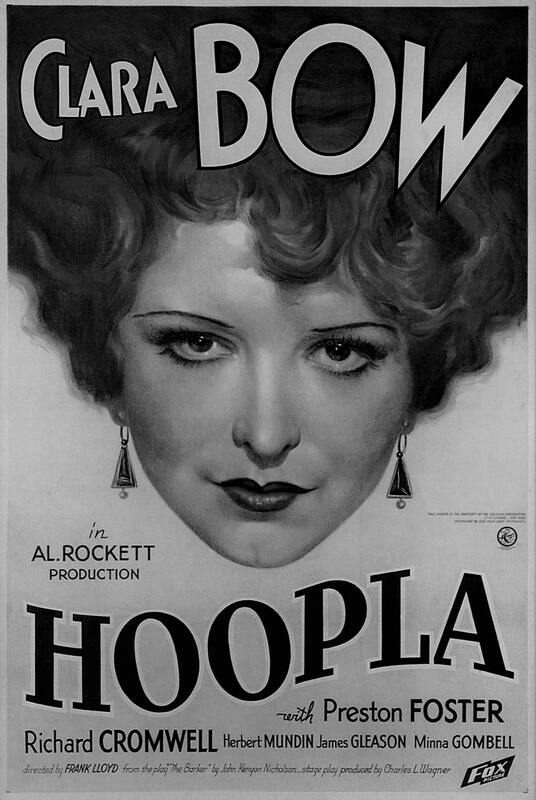 HOOPLA (1933)
HOOPLA (1933) (85 Min.) Genre: 1930 DRAMA, Transfer Quality: B
Clara Bow, the saucy "It" girl of the silent screen, made her film farewell in the ragged musical drama Hoopla. Based on the stage play The Barker (previously filmed in 1927), the story takes place during the Chicago World's Fair of 1933. Bow plays Lou, a hootchy-kootchy dancer who is catapulted into stardom by fast-talking barker Nifty (Preston S. Foster). Hoping to escape her tawdry existence, Lou makes a play for handsome young naif Chris (Richard Cromwell), but by film's end she has bowed to the inevitable and returns to the sort of work she knows best. Despite excellent production values and a big-time promotional campaign, Hoopla was a bomb, convincing the ever-insecure Clara Bow to retire to private life as the wife of cowboy star and future Nevada politician Rex Bell.
Starring: Clara Bow, Preston S. Foster, Richard Cromwell, Herbert Mundin | Directed by: Frank Lloyd
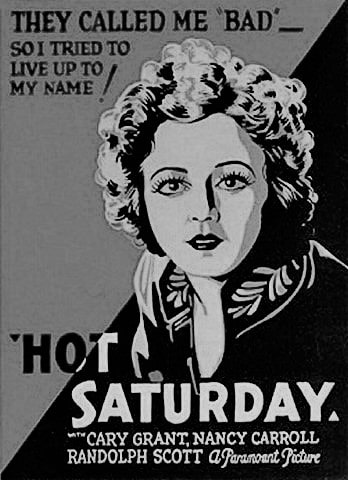 HOT SATURDAY (1932)
HOT SATURDAY (1932) (72 Min.) Genre: 1930 DRAMA, Transfer Quality: B
This comedy/drama (which is really more drama) tells the tale of Ruth Brock (Nancy Carroll), a young woman who is at odds with the pace and texture of life in her small town. On the one hand, she is a dutiful daughter and the sole supporter of her aging father (William Collier, Sr.), home-maker mother (Jane Darwell), and younger sister (Rose Coghlin); she works at the local bank in her small upstate town and, from the looks of the film's opening sequence at the bank, may be the most serious and diligent employee under the age of 50 that the bank has. But she's also got a fun-loving, flirtatious side, which comes out when she's in the company of young men, especially her boyfriend and co-worker Conny Billup (Edward Woods). Invited to a party at the local getaway at a nearby lake, she is sidetracked briefly by the attentions of Romer Sheffield (Cary Grant), the town's resident ne'er-do-well -- a playboy of independent means who takes pleasure in the gossip that he knows is stirred by his every move, Sheffield does as he likes, without a care about what anyone thinks. That's fine for him, but his flirtation with Ruth causes her all kinds of problems -- in a fit of jealousy, Conny abandons her at the lake in the middle of the night, and in the ensuing confusion the whole town soon thinks that Ruth was alone with Sheffield at his mansion for hours, till two in the morning, and immediately believes the worst of her. She is fired from her job and can't even speak any longer to anyone in town. Her own mother, who is mostly concerned with the loss of her salary, attacks her. And then a ray of hope arrives in the person of Bill Fadden (Randolph Scott), a one-time neighbor boy who left to become a geologist, and is passing through on his way to do a survey nearby. He's loved Ruth since he was a teenager, and hasn't seen her in years, and their chance meeting in her parents' house leads the to two to decide to marry. But Conny, still jealous and now angry, successfully poisons Bill's image of her. He rejects her, and Ruth's world seems to be collapsing around her once again, until she realizes that her one real chance for redemption lies with the man who started it all, Romer Sheffield.
Starring: Cary Grant, Nancy Carroll, Randolph Scott, Edward Woods, Lillian Bond, Rita La Roy | Directed by: William Seiter
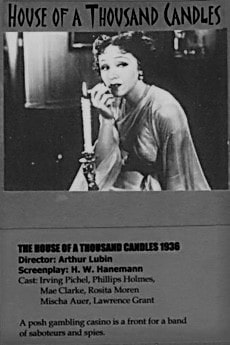 HOUSE OF A THOUSAND CANDLES (1936)
HOUSE OF A THOUSAND CANDLES (1936) (54 Min.) Genre: 1930 DRAMA, Transfer Quality: B
Based on a novel by Meredith Nicholson, The House of 1000 Candles is one of the slickest films ever to emerge from the Nat Levine unit at Republic. Phillips Holmes stars as diplomatic courier Tony Carleton, who's been entrusted with a secret message vital to the cause of International peace. En route to Geneva by train, Tony is drugged by sexy cabaret dancer Raquel (Rosita Moreno), who promptly steals the message — only to be murdered by sinister master spy Sebastian (Irving Pichel), owner of a posh gambling casino known as The House of a Thousand Candles. Realizing that Tony is the only person who can decipher the message, Sebastian kidnaps Tony's sweetheart Carol (Mae Clarke), threatening to kill her if our hero doesn't cooperate. Rescued by his faithful valet (Fred Walton), Tony and Carol make their escape then expose the secret behind Sebastian's insidiously complex espionage network. Many reviewers in 1936 compared House of 1000 Candles to the best that Alfred Hitchcock had to offer — quite a coup for director Arthur Lubin, a man best known for his Abbott & Costello and "Francis the Talking Mule" pictures!
Starring: Phillips Holmes, Mae Clarke, Irving Pichel, Rosita Moreno | Directed by: Arthur Lubin
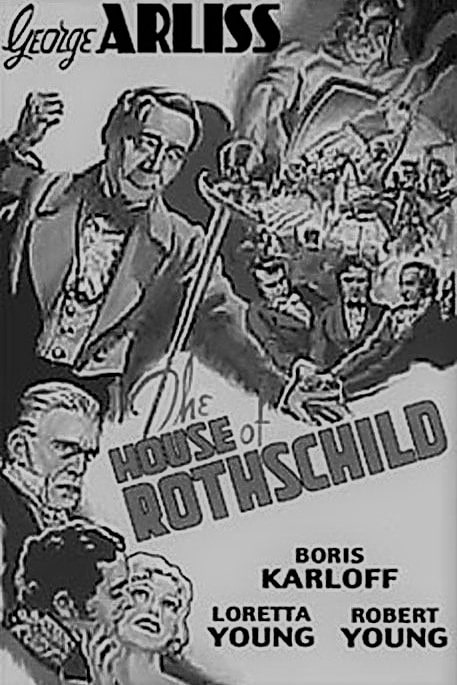 HOUSE OF ROTHSCHILD (1934)
HOUSE OF ROTHSCHILD (1934) (86 Min.) Genre: 1930 DRAMA, Transfer Quality: B
George Arliss plays Nathan Rothschild, the head of a family of celebrated 19th century Jewish bankers. Despite the anti-semitic efforts of a powerful politico (Boris Karloff), Rothschild moves in the best European social circles. He is ultimately knighted for his services to the English crown, which include the financing of the Duke of Wellington's battle against Napoleon at Waterloo. This being a Hollywood picture, the political and financial intrigues have to be offset by romance—in this case the love affair between Rothschild's daughter (Loretta Young) and a handsome military officer (Robert Young). The final scene was photographed in the newly perfected three-strip Technicolor process, though for many years the TV distributors either removed this sequence or reprinted it in black and white. Designed in part as an attack against the burgeoning anti-semitism movement in Hitler's Germany, House of Rothschild was ironically exploited by Nazi functionary Joseph Goebbels, who redubbed and re-edited the film to serve as anti-Jewish propaganda!
Starring: George Arliss, Boris Karloff, Loretta Young, Robert Young | Directed by: Alfred L. Werker
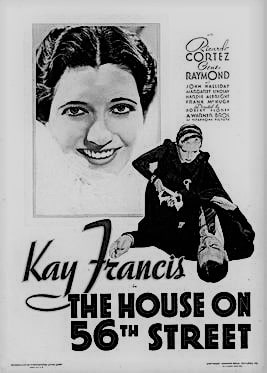 HOUSE ON 56TH STREET (1933)
HOUSE ON 56TH STREET (1933) (68 Min.) Genre: 1930 DRAMA, Transfer Quality: A
This melodrama chronicles three decades in the life of the New York located title house beginning at the turn of the century when a chorine falls in love with a wealthy young man. He loves her too and this inspires the lass to leave her sugar daddy, marry and move into the beautiful home that is located very close to Park Avenue. The pair are deliciously happy and even more so when a daughter is born. Unfortunately, unhappiness comes in the form of the jilted lover who returns and threatens to kill himself unless the former dancer comes back to him. Concerned, she visits his apartment to dissuade him from suicide. A struggle ensues with his gun and he dies leaving her to spend twenty years in jail for the alleged crime. Fortunately, her husband's belief in her innocence and his devotion never wavers. Unfortunately, he ends up killed on the front lines during WW I. It is 1925 when the hapless heroine is finally released from prison. She finds herself confused by the many dramatic changes that have turned refined New York into the wild Big Apple of the 1920s. She is also upset that her late husband's family refuses to let her see her grown daughter. They pay her a large sum to stay a stranger. On a subsequent ocean cruise she joins forces with a card sharp and becomes a wealthy con artist. They decide to work in a speakeasy on 56th Street. Surprise, it turns out to be her old home and in it is still the beautiful Florentine medallion that once symbolized the undying love between the woman and her husband. Still she opens the house for its disreputable business. One night her daughter, a compulsive gambler, who of course, doesn't recognize her own mother, shows up and loses a lot of money. She and the card sharp get in a terrible row and the young girl shoots him. Her mother then tries to take the rap but the speakeasy owner doesn't buy it and tells her he'll cover for her on the provision that she remain in the house forever. She accepts the dubious proposition and the story ends. — Sandra Brennan
Starring: Kay Francis, Ricardo Cortez, Gene Raymond, John Halliday, Frank McHugh | Directed by: Robert Florey
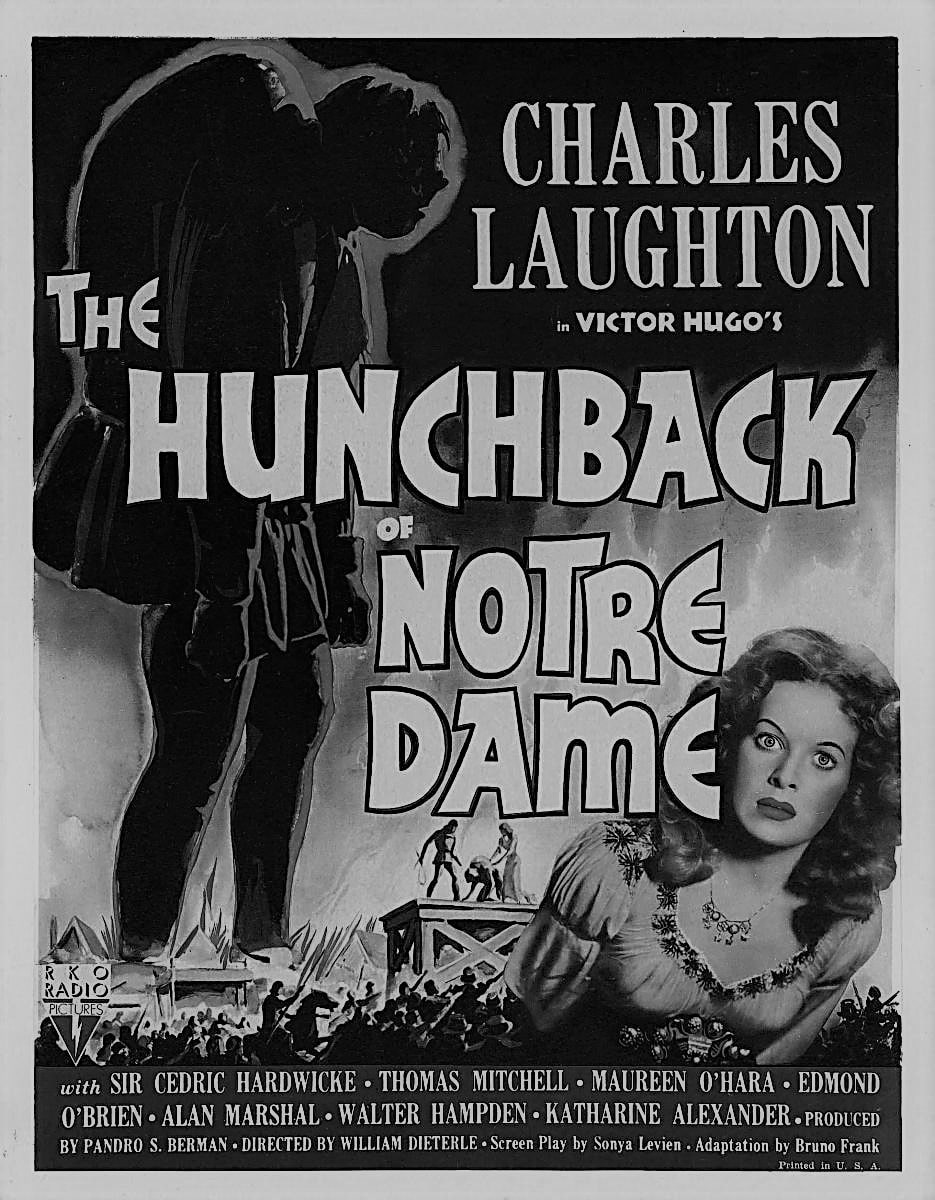 HUNCHBACK OF NOTRE DAME, THE (1939)
HUNCHBACK OF NOTRE DAME, THE (1939) (117 Min.) Genre: 1930 DRAMA, Transfer Quality: A
Few will argue with the contention that RKO Radio's 1939 adaptation of Victor Hugo's The Hunchback of Notre Dame was the best of the many screen versions of the Hugo classic. We say this even allowing for certain liberties taken with the source material-liberties calculated by scenarists Sonya Levien and Bruno Frank to draw parallels between 15th century Paris and 20th century Europe. Thus, Claude Frollo (Cedric Hardwicke), the villain of the piece, is no longer merely a religious hypocrite unable to control his own carnal desires. Instead, Frollo is a bush-league Hitler, warning that the invention of the printing press is dangerous in that it will encourage the rabble to think for themselves, and plotting the persecution and destruction of the "undesirable" gypsies. In the same vein, Gringoire the Poet (Edmond O'Brien in his film debut) has been transformed into an agit-prop "Group Theatre" activist, bent on bringing the unvarnished truth to the ignorant Parisians. Many of Hugo's subplots have been dispensed with, the better to concentrate on the grotesquely deformed Quasimodo (Charles Laughton), bell-ringer of Notre Dame Cathedral, and his puppylike loyalty towards imperiled gypsy dancer Esmerelda (Maureen O'Hara, in her first American film appearance). The schism between the haves and have-nots in the walled city of Paris is illustrated in broad, visually dynamic strokes by director William Dieterle. — Hal Erickson
Starring: Charles Laughton, Cedric Hardwicke, Maureen O'Hara, Thomas Mitchell, George Zucco | Directed by: William Dieterle
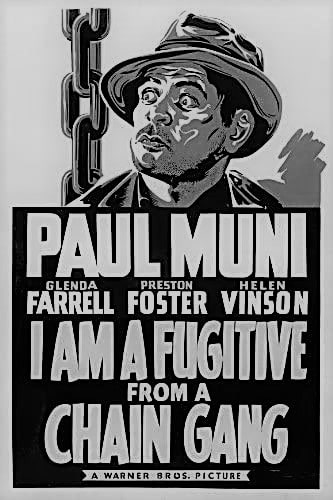 I AM A FUGITIVE FROM A CHAIN GANG (1932)
I AM A FUGITIVE FROM A CHAIN GANG (1932) (93 Min.) Genre: 1930 DRAMA, Transfer Quality: A
Warner Bros.' hard-hitting chain-gang movie was a faithful adaptation of the similarly titled autobiography of Robert Elliot Burns. Paul Muni plays World War I veteran James Allen, whose plans of becoming a master architect evaporate in the cold light of economic realities. Flat broke, Allen is forced to pawn his war medals, which have become a glut on the market. When Allen is innocently involved in a restaurant holdup, the police don't buy his story that the robber (Preston S. Foster) had forced him to clean out the cash register, and Allen is sentenced to ten years on a chain gang. The brutal scenes that follow make the later chain-gang movie Cool Hand Luke (1967) look like a picnic in the country. Unable to stand any more, Allen escapes and heads to Chicago. Using an alias, he builds a new life for himself and within five years is the respected president of a bridge-building firm. His landlady (Glenda Farrell), learning about his past, forces Allen to marry her. When he falls in love with another girl (Helen Vinson) and asks for a divorce, his wife turns him over to the authorities. The real-life Robert Elliot Burns was still a fugitive when he wrote his exposé of the chain-gang system; the publication of Burns' book led to the abolishment of that system and an erasure of Burns' sentence. — Hal Erickson
Starring: Paul Muni, Glenda Farrell, Helen Vinson, Noel Francis | Directed by: Mervyn LeRoy
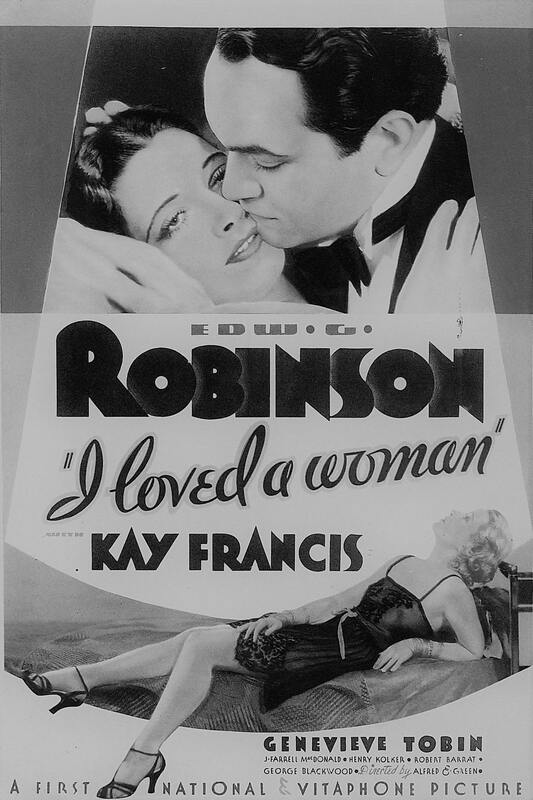 I LOVED A WOMAN (1933)
I LOVED A WOMAN (1933) (90 Min.) Genre: 1930 DRAMA, Transfer Quality: A
In this drama, the owner of a Chicago meat-packing company falls in love with a beautiful opera singer. Unfortunately, his selfish, social climbing wife refuses to divorce him. He continues the affair on the sly. As his lover's career begins to ascend, so does his business when he becomes the leader of a meat packing trust that sends cured beef to the troops fighting in Cuba. Later, the newly elected president, Theodore Roosevelt indicts him, but then the charges are dropped. By this time, the opera singer has become a star. Her lover too tries to find success, but instead, his business ends up going bankrupt. He then leaves for Greece. When his lover finds out, she too drops everything and follows him. — Sandra Brennan
Starring: Edward G. Robinson, Kay Francis, Genevieve Tobin, John Farrell MacDonald | Directed by: Alfred E. Green
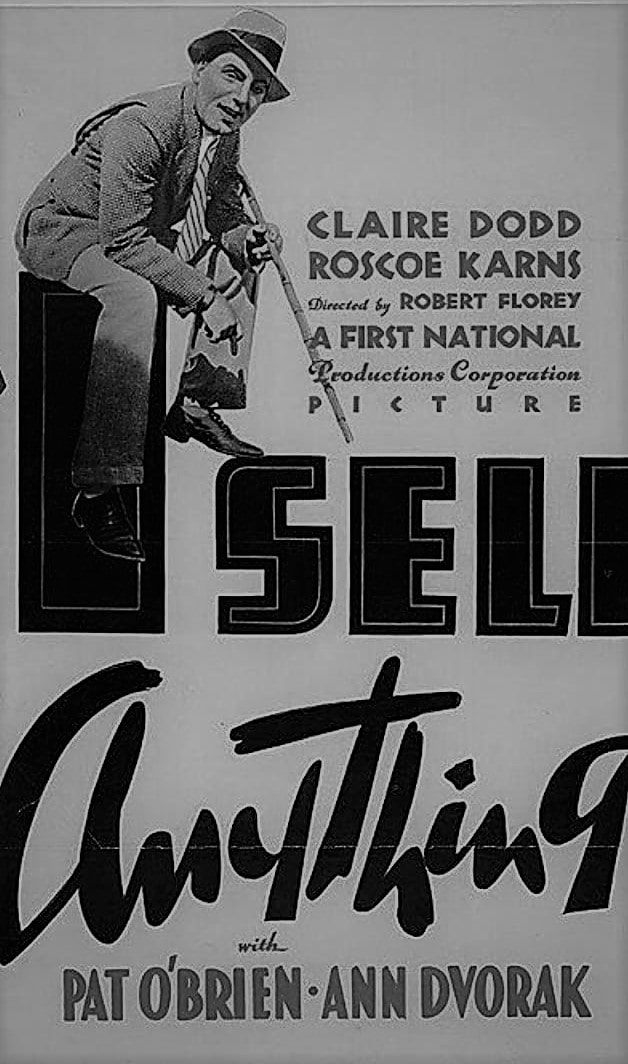 I SELL ANYTHING (1934)
I SELL ANYTHING (1934) (70 Min.) Genre: 1930 DRAMA, Transfer Quality: B
I Sell Anything is the boast of penny-ante auctioneer Spot Cash Cutler (Pat O'Brien), and he more than makes good his boast in this brisk Warner Bros. programmer. When Cutler accidentally sells a rare antique to clever Millicent Clark (Claire Dodd) for a mere 50 bucks, he demands a cut when Millicent resells the item to a museum for $5000. Instead, she talks him into utilizing his talents at a high-class Broadway auction house. This leads to a series of double- and triple-crosses as Millicent maneuvers Cutler into selling the worthless items cluttering the home of her boyfriend Smiley Thompson (Russell Hopton), leaving our hero empty-handed except for the love of his ever-patient sweetheart Barbara (Ann Dvorak). The cast of I Sell Anything lists "three stooges," but they're played by Hobart Cavanaugh, Gus Shy and Harry Tyler rather than Curly, Larry and Moe.
Starring: Pat O'Brien, Ann Dvorak, Claire Dodd, Roscoe Karns | Directed by: Robert Florey
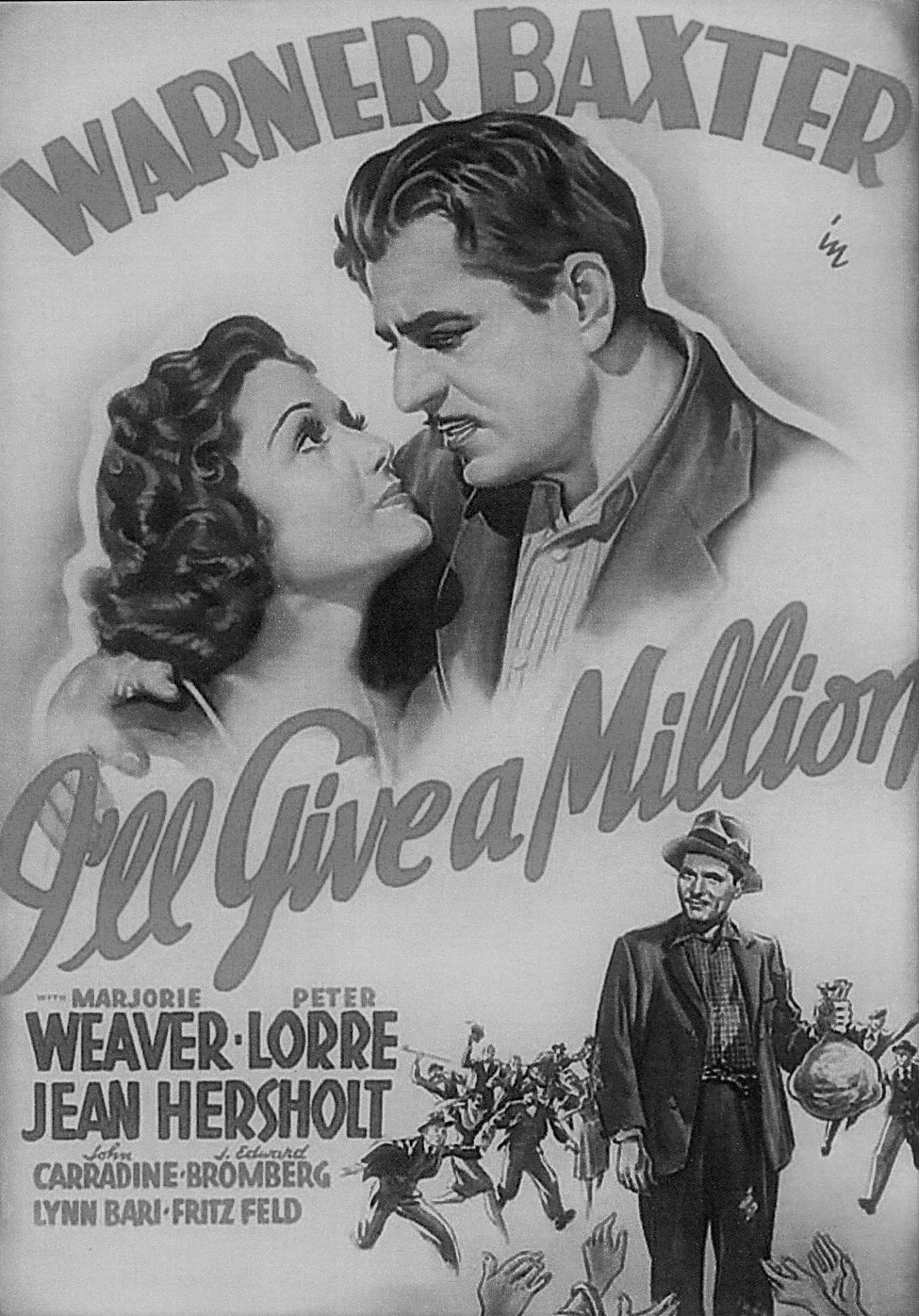 I'LL GIVE A MILLION (1938)
I'LL GIVE A MILLION (1938) (72 Min.) Genre: 1930 DRAMA, Transfer Quality: B
In this upbeat drama, a disillusioned millionaire, sick to death of the attempts of greedy friends and relatives to sponge off of him, becomes a bum to search for a decent human being. The tale begins as the wealthy man is about to commit suicide by leaping off of his yacht into the sea. He is just about to go when he spies a bum attempting suicide himself. The rich man saves the bum. He takes the bedraggled hobo and tells him his frustration. He then claims that he will give a million francs to the first person to treat him kindly without thinking about his wealth. The next day, the tramp awakens to find his raggedy old clothes have been replaced by the finest togs. Beside them is a large role of francs. The bum then begins circulating the millionaire's words around the town. As a result, people all over the country begin treating the homeless with kindness and respect. Eventually the disguised millionaire marries a circus performer and donates his million francs to the whole community.
Starring: Marjorie Weaver, Peter Lorre, Jean Hersholt, John Carradine | Directed by: Walter Lang
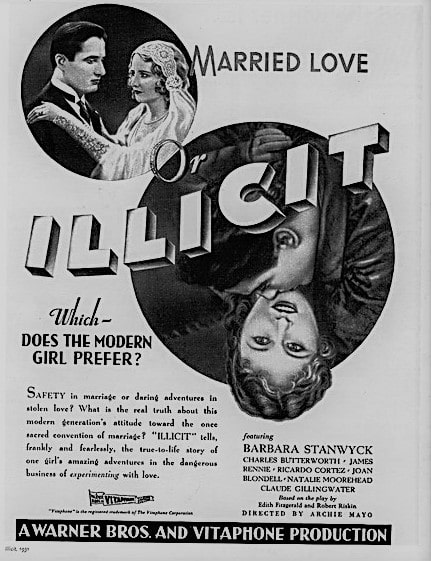 ILLICIT (1931)
ILLICIT (1931) (76 Min.) Genre: 1930 DRAMA, Transfer Quality: A
Few actresses exuded as much raw sensuality as the pre-Production Code Barbara Stanwyck. In Illicit, Anne Vincent (Stanwyck) spends most of her time dressed in a loose-fitting kimono as the mistress of Dick Ives (James Rennie). The couple lives openly in sin because Anne does not believe in marriage, convinced that she could never remain faithful to Dick if they legalized their union. Sure enough, when Annie and Dick do tie the knot, they immediately begin fooling around with others. In the end, however, morality and fidelity prevails — and about time! Illicit created quite a stir in 1931, not so much because of its half-hearted advocation of "free love," but because of its unconventionally independent heroine (of course, if it had been the hero who was opposed to marriage, no one would have said boo).
Starring: Barbara Stanwyck, James Rennie, Charles Butterworth, Joan Blondell | Directed by: Archie Mayo
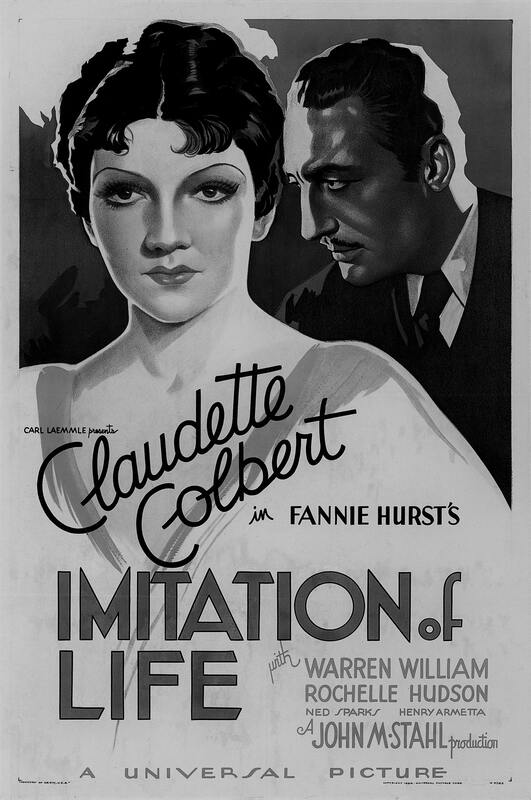 IMITATION OF LIFE (1934)
IMITATION OF LIFE (1934) (110 Min.) Genre: 1930 DRAMA, Transfer Quality: A
The first of two film version of Fannie Hurst's novel, 1934's Imitation of Life chronicles the friendship between two women—one white (Claudette Colbert), one black (Louise Beavers). Colbert is a widow with a baby daughter who hires Beavers, who also has a daughter, as a housekeeper. Colbert is a working girl who yearns to operate her own business, which she does thanks to Beavers' special pancake recipe. A family friend (Ned Sparks) suggests that the ladies form a corporation to merchandise the "Aunt Delilah" pancake mix, and within ten years both women are quite wealthy. Colbert's relationship with her teenaged daughter (Rochelle Hudson) is strained when both ladies vie for the attentions of the same man, but these problems are minor compared to the travails of Beavers, who not only must deal with the De Facto segregation of the 1930s but must also contend with her restless daughter (Fredi Washington), who resents being an African-American and attempts to pass for white. The heartbroken Beavers dies, and at her funeral her now-chastened daughter weeps out her apologies for turning her back on her mother. Imitation of Life was remade in 1959, its story glamorized and updated to accommodate star Lana Turner. — Hal Erickson
Starring: Claudette Colbert, Warren William, Ned Sparks, Louise Beavers | Directed by: John M. Stahl
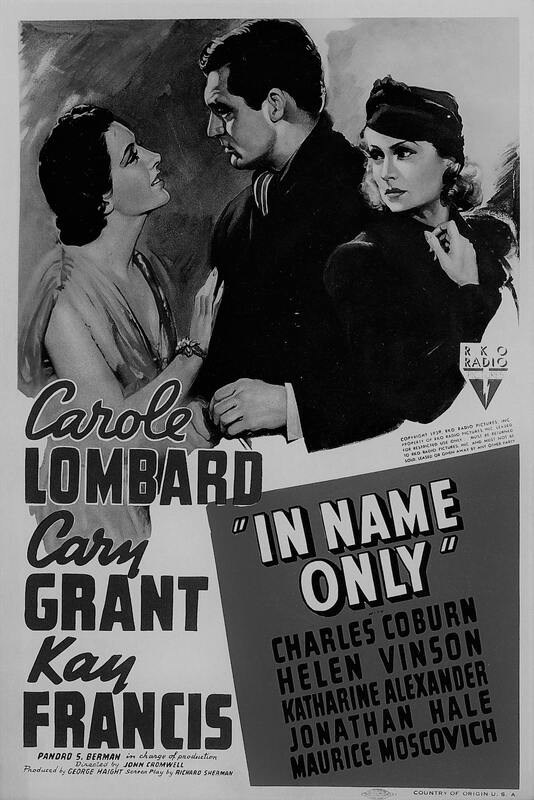 IN NAME ONLY (1939)
IN NAME ONLY (1939) (102 Min.) Genre: 1930 DRAMA, Transfer Quality: A
Based on Memory of Love, a novel by Bessie Breuer, In Name Only is soap opera par excellence, blessed with a peerless cast. Carole Lombard plays widow Julie Eden, who meets and falls in love with unhappily married Alec Walker (Cary Grant). Having married Alec solely for his wealth and family prestige, his manipulative wife Maida (Kay Francis) has managed to convince everyone-even Alec's parents!—that she is the victimized one and that Alec is an irresponsible philanderer. Making matters worse, Maida refuses to give Alec a divorce so that he can find happiness in the arms of the sweet, unassuming Julie. Almost miraculously, Maida agrees to let Alec go, only to capriciously renege at the last minute and sue Julie for alienation of affections. Disconsolately, Alec goes on a bender, falling asleep in front of an open window and contacting pneumonia. As Alec lays seriously ill in a hospital bed, Julie tearfully agrees to give him up if only Maida will try to make him happy. But Maida isn't about to give up this moment of triumph, cheerfully bragging about her underhanded methods and her intention to take Alec for every penny that he has. Without giving away the outcome, it can be noted that, figuratively speaking, loose lips sink ships. Though In Name Only could have been a wallow in bathos, the performances by the stars-and the knowing direction of John Cromwell-elevate the production to the level of "romance classic". — Hal Erickson
Starring: Carole Lombard, Cary Grant, Kay Francis, Charles Coburn | Directed by: John Cromwell
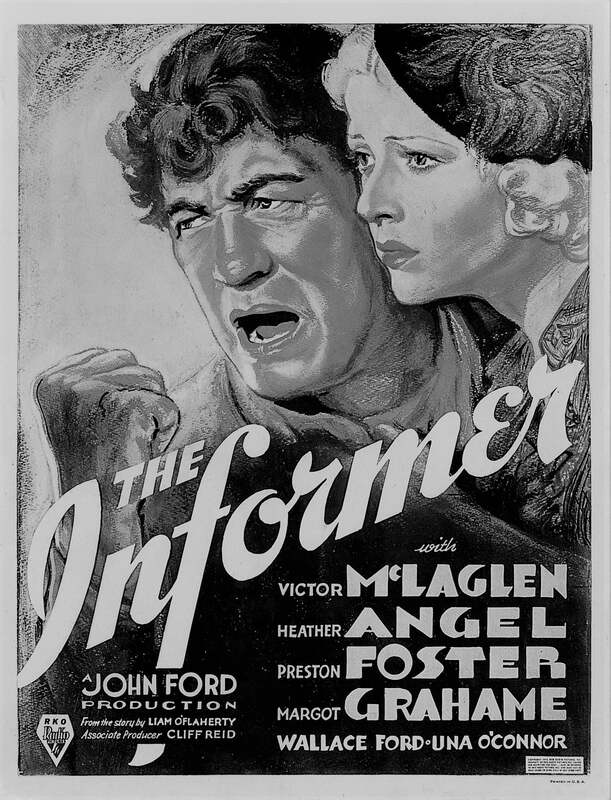 INFORMER, THE (1935)
INFORMER, THE (1935) (91 Min.) Genre: 1930 DRAMA, Transfer Quality: A
The Informer, Liam O'Flaherty's novel of the the Irish "troubles" of the early 1920s, was first filmed in England in 1929, with Cyril McLaglen in the lead. When director John Ford remade The Informer in 1935, the role of the tragic Irish roisterer Gypo Nolan went to Cyril's brother Victor McLaglen. The scene is Dublin, during the Sinn Fein rebellion. Gypo has tried to join the IRA, but has been bounced because he lacked full commitment to the cause. Gypo's best friend is Frankie McPhillip (Wallace Ford) a fugitive from the British "Black and Tans" with a price on his head. Hoping to start a new life with his streetwalker girlfriend Katie Madden (Margot Grahame), Gypo informs on Frankie, collecting the twenty-pound reward. Frankie is cornered and killed by the British troops; Gypo briefly suffers the pangs of conscience, but is too simple-minded to grasp the full impact of his betrayal. Suspecting that Gypo has turned in Frankie, IRA commander Gallegher (Preston Foster) orders his men to keep tabs on the big lout. As Gypo stupidly squanders his money on food, drink and entertainment, Gallegher's lieutenants keep tab of every penny spent. Finally dragged before the rebel court, Gypo tries to bluff his way out of trouble, fingering another man (Donald Meek) as the informer, but this subterfuge quickly falls apart. Sobbingly, Gypo confesses his treachery. Before his execution can be carried out, he escapes, but his hiding place is given away inadvertently by Katie. Regretfully, because they realize Gypo is too childish to be fully responsible for his actions, the IRA members shoot the man down. With his last ounce of strength, Gypo drags himself into the church where Frankie's mother (Una O'Connor) prays for his son's soul. "Twas I informed on your son, Mrs. McPhillip," Gypo weeps, "Forgive me." "Ah, Gypo, I forgive you," the grieving mother replies. "You didn't know what you were doing." Exultantly, Gypo looks heavenward, and, just before succumbing to his wounds, bellows "Frankie! Frankie! Your mother forgives me!" The Informer earned Victor McLaglen an Oscar, as well as several other nominations; the film did poorly at the box office, but John Ford had anticipated this reaction, reportedly waiving his considerable salary just to make certain that picture—a labor of love for the director, who was himself a native of Ireland—would be completed. The film was remade in 1968, relocated to the black ghetto of Los Angeles and retitled Uptight!. — Hal Erickson
Starring: Victor McLaglen, Heather Angel, Preston Foster, Margot Grahame, Wallace Ford | Directed by: John Ford
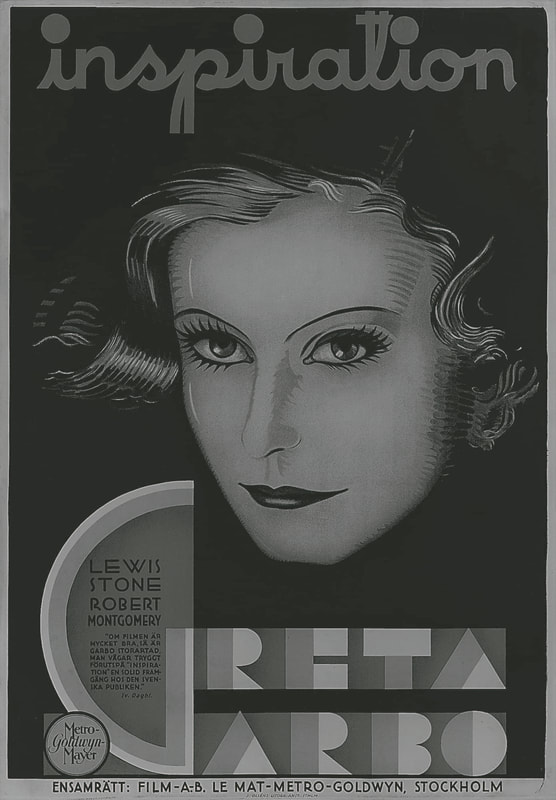 INSPIRATION (1931)
INSPIRATION (1931) (77 Min.) Genre: 1930 DRAMA, Transfer Quality: A
Not every Greta Garbo film is an imperishable classic; this was seldom truer than in the case of her repetitious 1931 vehicle Inspiration. A modernized adaptation of Alphonse Daudet's Sappho, the film casts Garbo as Yvonne, a Parisian belle with "a history." When her past returns to haunt her, she decides to walk out on her sweetheart Andre (Robert Montgomery), even though she still loves him. Eventually she returns to Andre, but this time he leaves her. Worried that Yvonne will take drastic action over his defection, Andre returns, whereupon Yvonne breaks up the romance a third time, "all for the best." Had there been a fourth breakup, the audience probably would have walked out. No matter: Garbo illuminates every scene she's in, and that's all anyone could possibly ask for. — Hal Erickson
Starring: Greta Garbo, Robert Montgomery, Marjorie Rambeau, Judith Vosselli | Directed by: Clarence Brown
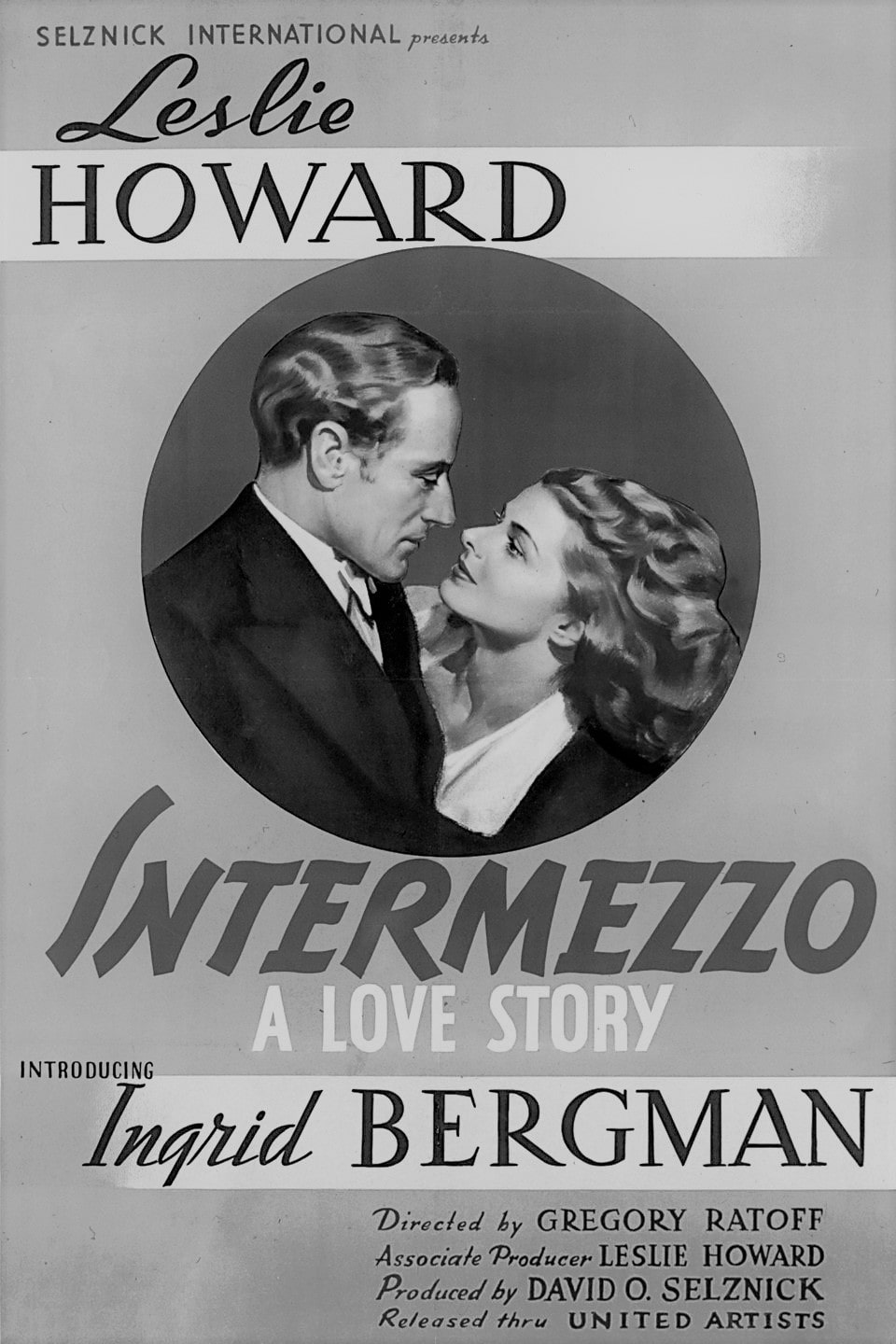 INTERMEZZO: A LOVE STORY (1939)
INTERMEZZO: A LOVE STORY (1939) (70 Min.) Genre: 1930 DRAMA, Transfer Quality: A
Gregory Ratoff directed David O. Selznick's richly produced American remake of the Swedish film directed by Gustav Molander and starring Ingrid Bergman, who re-creates her role here. The story — based on the original screenplay by Molander and Gosta Stevens — concerns a love affair played out between famed concert violinist Holger Brandt (Leslie Howard) and a young pianist, Anita Hoffman (Ingrid Bergman). Holger has just finished a grand tour and has returned to his home country of Sweden, into the arms of his wife Margit (Edna Best) and two children, Ann Marie (Ann Todd) and Eric (Douglas Scott). But soon Holger falls deeply in love with his children's piano teacher Anita. Holger asks Margit for a divorce, but she demurs, telling Holger he should take time to think the whole thing through. Holger and Anita travel abroad, and Anita becomes acclaimed as a pianist — but Holger keeps looking at other people's children and begins to wonder whether he should go back to his family. — Paul Brenner
Starring: Leslie Howard, Ingrid Bergman, Edna Best, Cecil Kellaway | Directed by: Gregory Ratoff
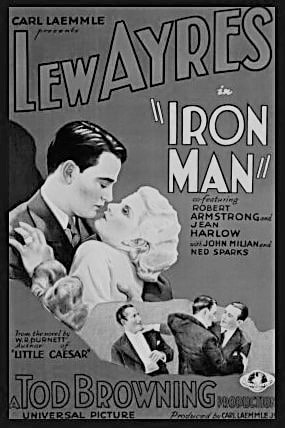 IRON MAN, THE (1931)
IRON MAN, THE (1931) (73 Min.) Genre: 1930 DRAMA, Transfer Quality: B
In this boxing drama, a prizefighter is left by his money-grubbing showgirl wife who aspires to be a movie star. The fighter's manager is tickled by the turn of events and immediately snaps the boxer out of his love-struck funk and sets him a challenging training program. Sure enough the fighter makes a strong comeback. As soon as the fame and fortune starts rolling in, the avaricious wife shows up at his door. She fires his manager and hires her secret lover in his place. Soon the fighter begins losing again. Just before the championship bout the old manager proves that his wife is being unfaithful. That is only the beginning of the end for the champ. — Sandra Brennan
Starring: Lew Ayres, Robert Armstrong, Jean Harlow, John Miljan | Directed by: Tod Browning
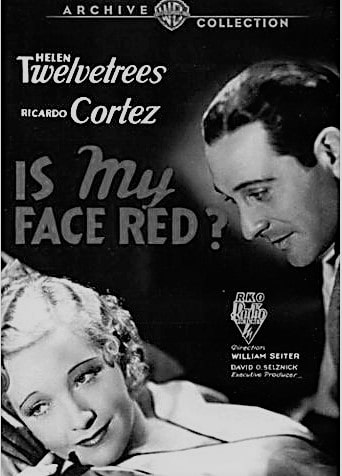 IS MY FACE RED (1932)
IS MY FACE RED (1932) (67 Min.) Genre: 1930 DRAMA, Transfer Quality: B
Ricardo Cortez plays a newspaper gossip columnist based on real-life journalist Walter Winchell (the film's title was in fact a Winchell catchphrase). Merrily dishing up innuendoes and destroying reputations, Cortez enjoys hobnobbing with the rich and powerful, including several disreputable citizens who back up their authority with bullets. He makes the error of announcing a gangland murder before the police have found the body, and in so doing is nearly rubbed out by the killers. An unregenerate louse for most of the film, Cortez finally mends his ways out of love for beautiful Helen Twelvetrees. Is My Face Red? is based on a play by Ben Markson and Allen Rivkin.
Starring: Helen Twelvetrees, Ricardo Cortez, Jill Esmond, Robert Armstrong | Directed by: William Seiter
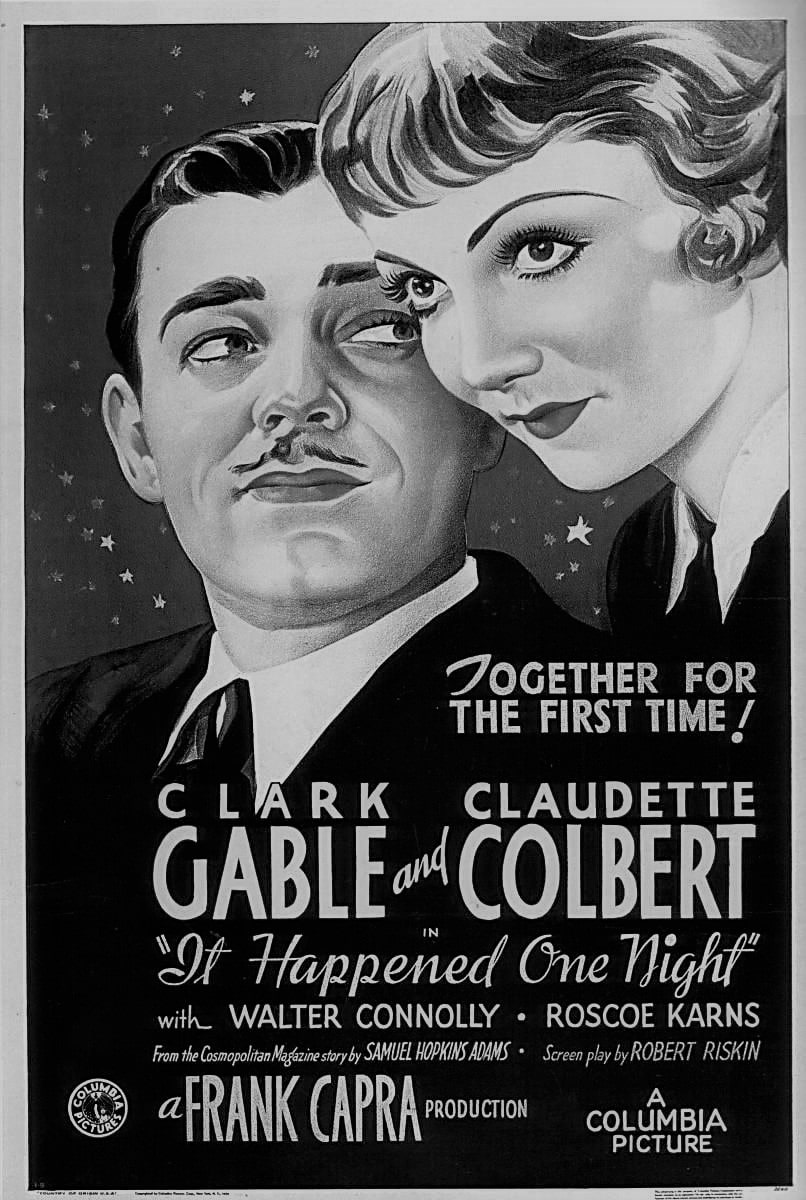 IT HAPPENED ONE NIGHT (1934)
IT HAPPENED ONE NIGHT (1934) (105 Min.) Genre: 1930 DRAMA, Transfer Quality: A
Scripted by Capra's frequent collaborator Robert Riskin, Frank Capra's It Happened One Night (1934) became the prototypical screwball comedy and elevated Columbia Pictures from Poverty Row status to respectable "major minor" studio. Starring Clark Gable, on loan from MGM as punishment, and Claudette Colbert, on loan from Paramount for twice her usual pay, Capra's and Riskin's comic romance between a down-to-earth newspaper reporter and a spoiled runaway heiress set the standard for screwball. Its fast-paced repartee, kooky heroine, witty gags, and class-crossing love story became hallmarks of the genre in such later films as My Man Godfrey (1936) and Bringing Up Baby (1938); the overt lustiness barred by the 1934 Production Code was transmuted into clever banter and the romance conveyed an ideal Depression-era fantasy. A critical and commercial hit, It Happened One Night was the first film to sweep the top five Oscars, rewarding Capra, Riskin, Gable, and Colbert, and fulfilling Columbia impresario Harry Cohn's desire to turn his B-studio into a class act. Undershirt sales reportedly plummeted when Gable revealed on screen that he wasn't wearing one. — Lucia Bozzola
Starring: Clark Gable, Claudette Colbert, Walter Connolly, Roscoe Karns | Directed by: Frank Capra
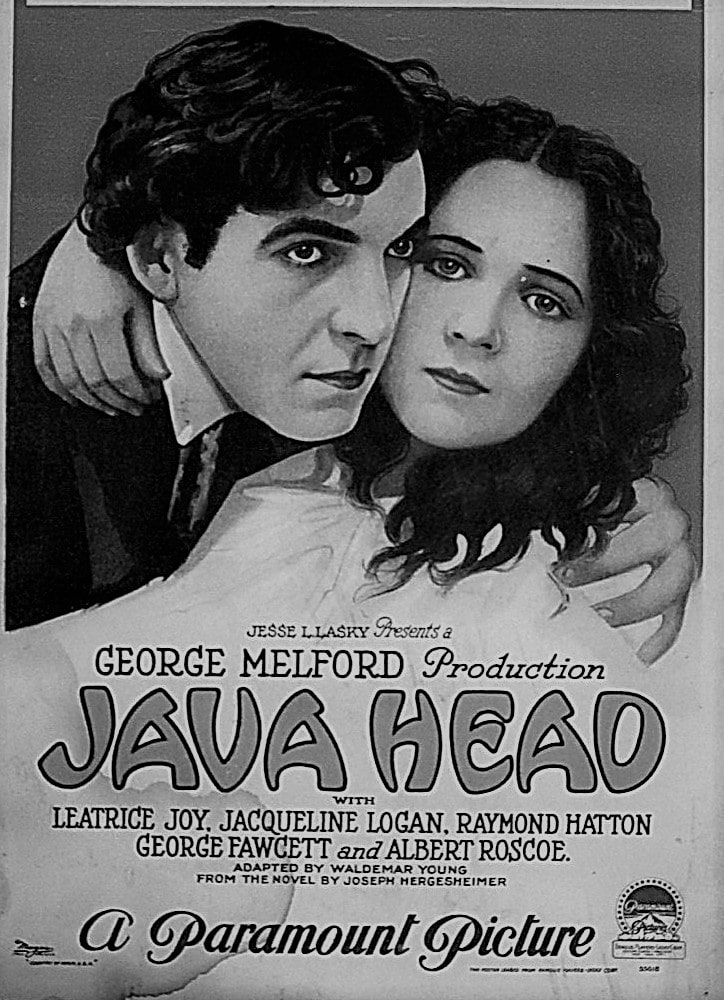 JAVA HEAD (1935)
JAVA HEAD (1935) (70 Min.) Genre: 1930 DRAMA, Transfer Quality: B
A heavy-breathing melodrama of the White Cargo school, Java Head was adapted from the novel by Joseph Hergesheimer. Anna May Wong stars as Tapu Xuen, a Chinese girl who becomes the bride of wealthy Englishman Gerritt Ammiden (John Loder). This mixed marriage earns Ammiden the cold shoulder from his society friends, but he remains faithful to his Chinese bride. Ultimately, however, Ammiden falls in love with one of his "own kind," Nettie Vollar (Elizabeth Allan). Realizing that her husband is too honorable to divorce her in favor of Nettie, Tapu does the "right thing" by considerately committing suicide. An earlier version of Java Head was filmed in 1923 with Leatrice Joy.
Starring: Anna May Wong, Elizabeth Allan, Edmund Gwenn, Ralph Richardson | Directed by: J. Walter Ruben
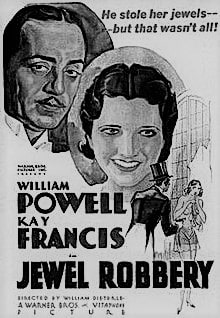 JEWEL ROBBERY (1932)
JEWEL ROBBERY (1932) (63 Min.) Genre: 1930 DRAMA, Transfer Quality: A
This imitation-Lubitsch romantic comedy stars William Powell as an elegant jewel thief plying his trade in Vienna. Powell's latest victim is bored baroness Kay Francis, who is much taken by the gentleman crook's handsomeness and poise. Since Francis is casting about for a new lover and newer thrills, Powell meets her qualifications, criminal or no. But the lady's husband (Henry Kolker) is not so easily charmed, and he sets about to bring Powell to justice. Jewel Robbery was based on a play by Ladislas Fodor, previously filmed in an Austrian version. — Hal Erickson
Starring: William Powell, Kay Francis, Helen Vinson, Hardie Albright | Directed by: William Dieterle
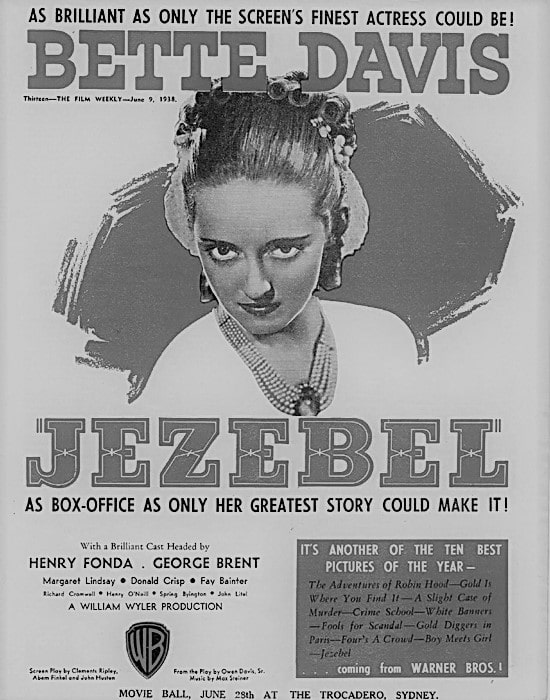 JEZEBEL (1938)
JEZEBEL (1938) (104 Min.) Genre: 1930 DRAMA, Transfer Quality: A
Jezebel was, in 1938, widely regarded as Warner Bros.' "compensation" to Bette Davis for her losing the opportunity to play Scarlett O'Hara in Gone with the Wind. Resemblances to the two properties are inescapable: Jezebel heroine Julie Morrison is a headstrong Southern belle not unlike Scarlett (Julie lives in New Orleans rather than Georgia); she foolishly loves a man (played by Henry Fonda) who is betrothed to another; and she makes a public spectacle of herself by wearing an inappropriate red dress at a ball, just as Scarlett O'Hara brazenly danced with Rhett Butler while still garbed in widow's weeds. There are several other resemblances between the two properties, but it's important to note that Jezebel is set in the 1850s, several years before Gone with the Wind's Civil War milieu; and we must observe that, unlike Scarlett O'Hara, Julie Morrison is humbled by her experiences and ends up giving of her time, energy and health during a deadly Yellow Jack outbreak. Bette Davis won an Academy Award for her portrayal of Julie Morrison; an additional Oscar went to Fay Bainter for her portrayal of the remonstrative Aunt Belle (she's the one who labels Julie a "Jezebel" at a crucial plot point). The offscreen intrigues of Jezebel, including Bette Davis' romantic attachment to director William Wyler and costar George Brent, have been fully documented elsewhere. Jezebel was based on an old and oft-produced play by Owen Davis Sr. — Hal Erickson
Starring: Bette Davis, Henry Fonda, Margaret Lindsay, Donald Crisp | Directed by: William Wyler
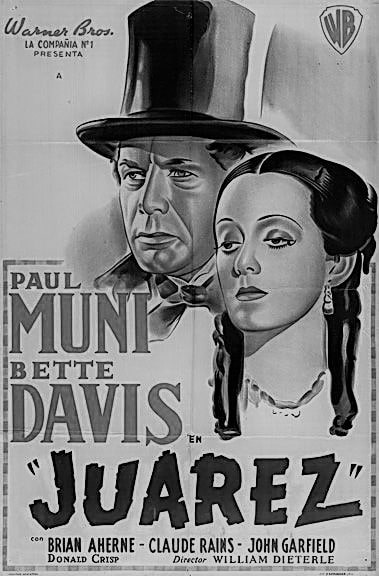 JUAREZ (1939)
JUAREZ (1939) (121 Min.) Genre: 1930 DRAMA, Transfer Quality: A
Juarez was originally designed to concentrate almost exclusively on the tragedy of Hapsburg Emperor Maximillian, whose attempts to establish a puppet government in Mexico on behalf of Napoleon III ended in disaster and death. But when Paul Muni decided that he wanted to play Zapotec-Indian-turned-Mexican President Benito Pablo Juarez, the film's emphasis perceptibly shifted — and Bette Davis, cast as Empress Carlotta, was shunted to second billing rather than first. Muni's makeup and costuming convincingly transforms him into Juarez incarnate. But unlike his other historical impersonations (Pasteur, Zola), Muni's Juarez is a one-note characterization: stoic, uncompromising, and v-e-e-r-y slow of speech. Far more exciting dramatically is Bette Davis as Empress Carlotta, whose highly stylized descent into madness is a tour de force both for the actress and for director William Dieterle. Claude Rains and Gale Sondergaard, as Napoleon III and Empress Eugenie, in essence repeat their diabolical characterizations from Anthony Adverse (1936), while John Garfield is singularly miscast as Pofirio Diaz. The best performance is delivered by Brian Aherne, whose kindly, honorable Emperor Maximillian is less a despot than a misguided political pawn. When Aherne, about to be executed at Juarez' orders, requests that his favorite Mexican song "La Paloma" be played as he is led before the firing squad, audience sympathies are 100% in Maximilian's corner—which was not quite what the filmmakers intended. Based largely on Bertita Harding's book The Phantom Crown (the film's original title), Juarez takes every available opportunity to parallel its title character's fight against foreign intervention with the then-current European situation. To protect their investment in Juarez Warner Bros. purchased outright a like-vintage Mexican film on the same subject, The Mad Empress, suppressing the latter film's release in the United States. — Hal Erickson
Starring: Paul Muni, Bette Davis, Brian Aherne, Claude Rains, John Garfield, Gale Sondergaard | Directed by: William Dieterle
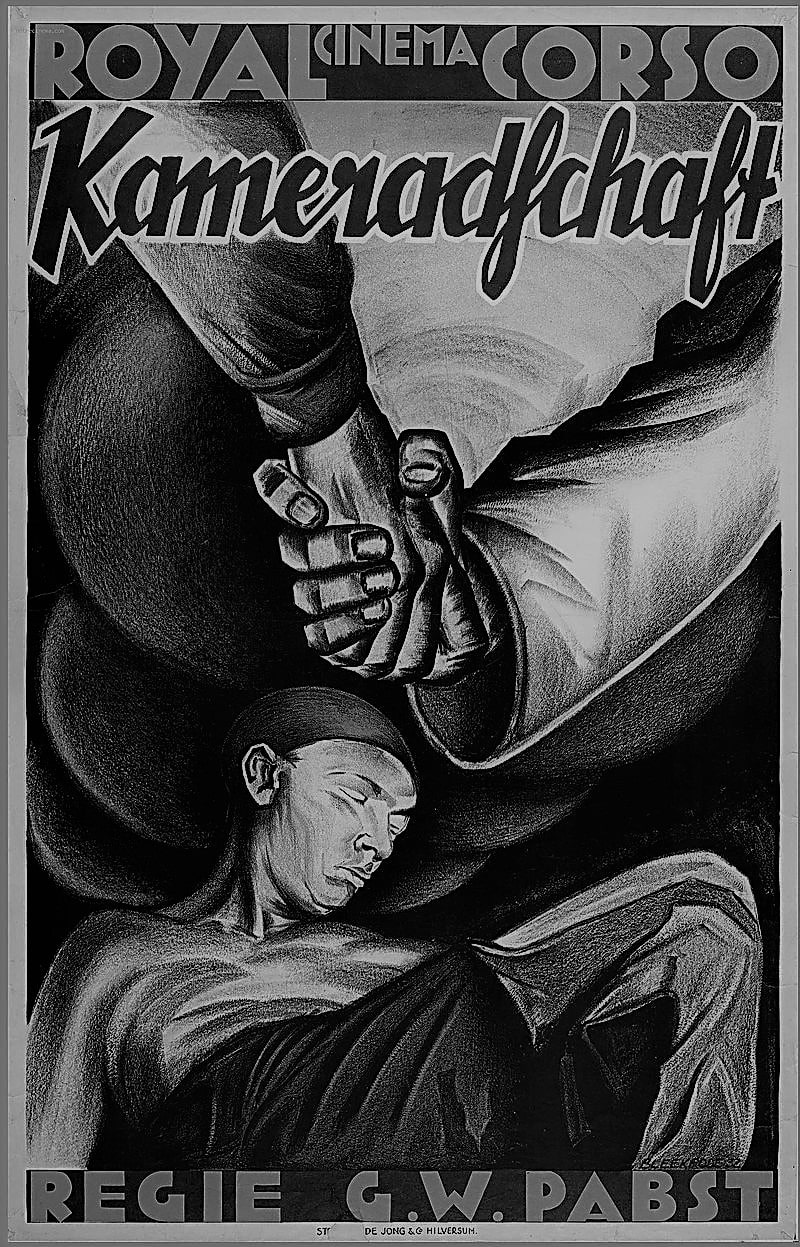 KAMERADSCHAFT (1931)
KAMERADSCHAFT (1931) (80 Min.) Genre: 1930 DRAMA, Transfer Quality: A
Kameradschaft is set in a mining community on the French/German frontier, where several French miners are trapped in a cave-in. Their only hope for rescue lies in a long-abandoned underground tunnel, buried since the First World War. Ignoring the ethnic and political differences that have long separated the two countries, a group of German miners pick their way through the old tunnel to save the entombed Frenchmen. They do this despite the reluctance of the mine owners, who'd rather keep the nationalistic lines drawn, no matter how many lives it costs. When asked why they're willing to rescue the same people who'd forced their country into bankruptcy after the war, the German workmen reply "Miners are miners." Once the Frenchmen are brought to surface, however, the owners see to it that the borders knocked down by the Germans are quickly replaced; everything has changed, yet nothing has changed. Ironically, the German public, whose decency and humanity is celebrated in Kameradschaft, tended to avoid the film. — Hal Erickson
Starring: Ernst Busch, Andrée Ducret, Helena Manson, Georges Charlia | Directed by: G.W. Pabst
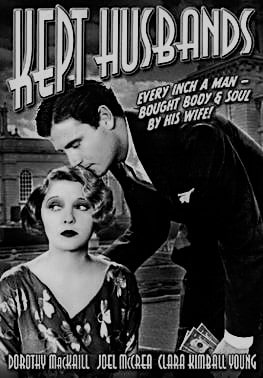 KEPT HUSBANDS (1931)
KEPT HUSBANDS (1931) (76 Min.) Genre: 1930 DRAMA, Transfer Quality: A
In this drama, a blue collar steelworker marries a wealthy socialite. It all begins after he saves two workers during a factory accident. To thank him, the boss invites him to dinner where he meets the boss's lovely daughter. She is so impressed by him that she vows that he will be hers in one month. She is correct and they marry. Unfortunately, he finds that her appetite for extravagances is insatiable. This begins to wear him down, financially and emotionally until he becomes a 'kept husband.' Eventually he convinces her to settle down, respect him, and live on his humble salary with no help from her wealthy papa. — Sandra Brennan
Starring: Dorothy Mackaill, Joel McCrea, Robert McWade, Florence Roberts | Directed by: Lloyd Bacon
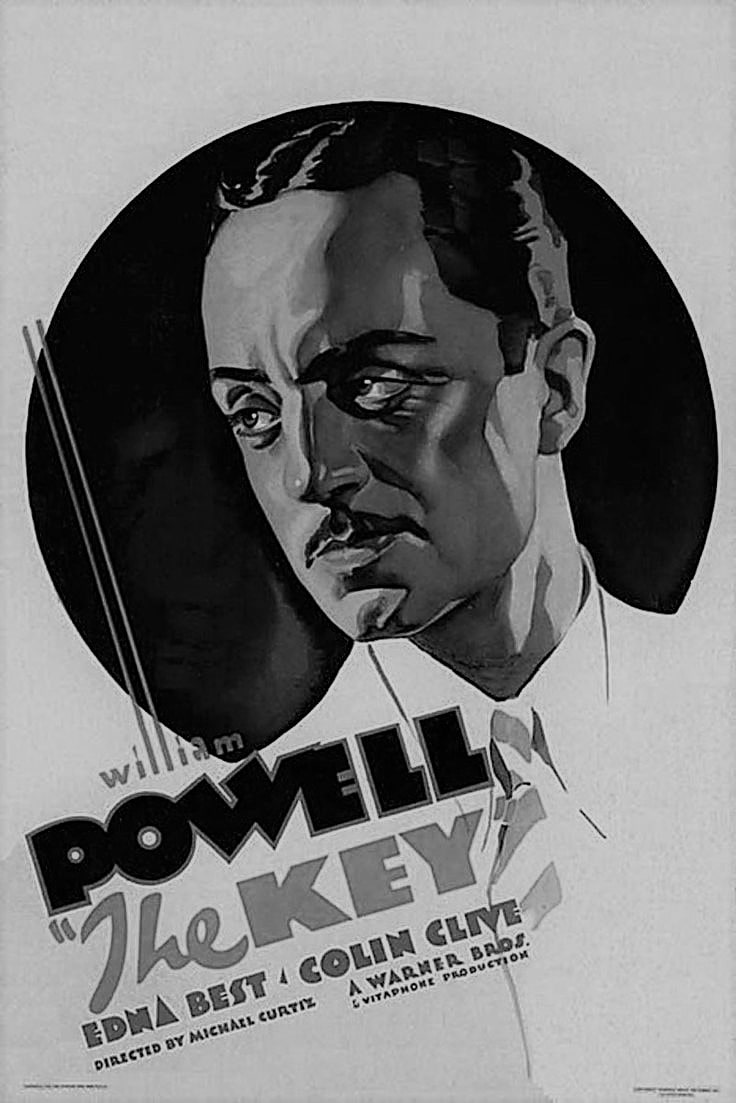 KEY, THE (1934)
KEY, THE (1934) (82 Min.) Genre: 1930 DRAMA, Transfer Quality: A
The Key is a story of the Irish "troubles" which avoids taking sides, but spends most of its screen time with the British occupation troops. William Powell stars as a soldier for hire who works on behalf of the British in the Dublin of the early 1920s. Powell is as celebrated for his boudoir antics as his bravery, so it's no surprise that he soon takes up with the wife (Edna Best) of his best friend, British intelligence officer Colin Clive. The plot thickens when Clive is captured by the Irish freedom fighters, to be released only on condition that Irish patriot Donald Crisp is not hanged. Powell makes up for his past indiscretions by rescuing Clive from his captors. — Hal Erickson
Starring: William Powell, Edna Best, Colin Clive, Hobart Cavanaugh | Directed by: Michael Curtiz
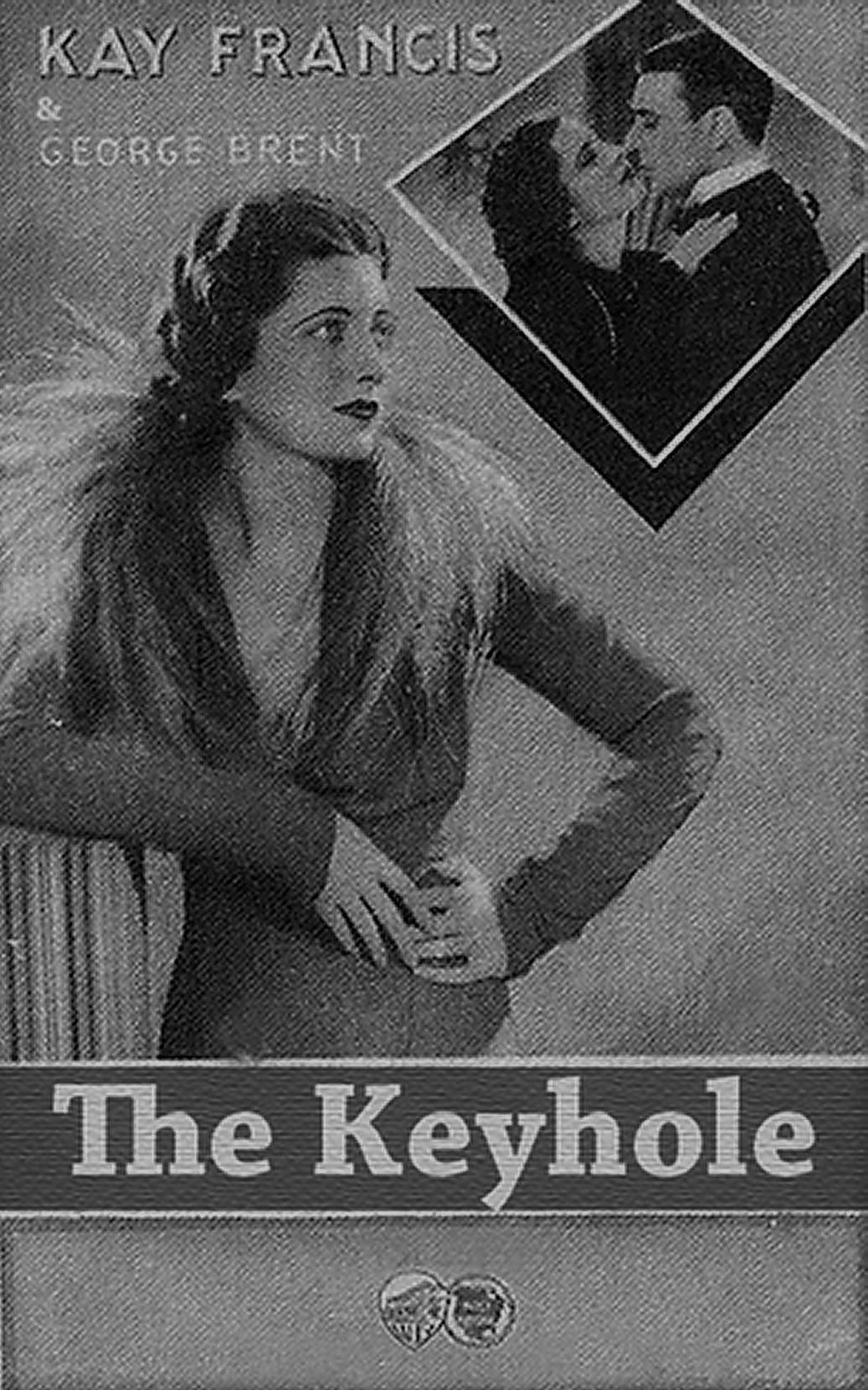 KEYHOLE, THE (1933)
KEYHOLE, THE (1933) (69 Min.) Genre: 1930 DRAMA, Transfer Quality: A
In this melodrama, the wife of a wealthy man abruptly leaves him and sets sail for Cuba leaving him to hire a gumshoe to find out why. The girl left because she was being blackmailed for $50,000 by her former ex-husband who claims that they were never legally divorced. Before heading to Cuba for a hasty divorce, the distraught wife tells all to her sister-in-law. Meanwhile the detective is aboard the same ship as the wife and as he gets to know her cannot help but fall in love with her. The detective doesn't realize that her ex-husband is also on board, but she does and is happy about it because she wants to see if she can get her ex (not a US citizen) barred from reentry. Back at home, the sister-in-law tells her increasingly suspicious brother the truth about the situation and he immediately flies to Cuba to get there just in time for the exciting conclusion. — Sandra Brennan
Starring: Kay Francis, George Brent, Glenda Farrell, Allen Jenkins | Directed by: Michael Curtiz
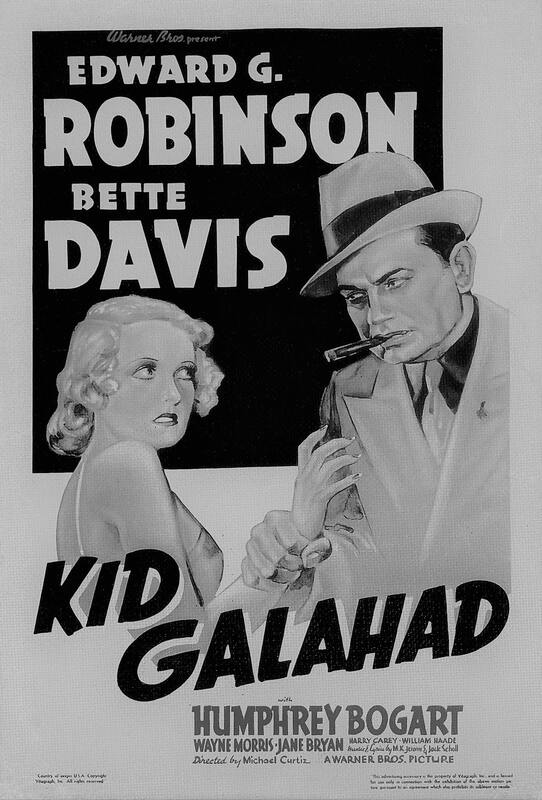 KID GALAHAD (1937)
KID GALAHAD (1937) (101 Min.) Genre: 1930 DRAMA, Transfer Quality: A
Fight manager Nick Donati (Edward G. Robinson) has just lost his best fighter to crooked promoter Turkey Morgan (Humphrey Bogart). During a party at Donati's apartment, a bellhop (Wayne Morris) kayos Morgan's boxer, who has insulted the honor of Donati's girlfriend, Louise "Fluff" Phillips (Bette Davis). Sensing a good thing when he sees it, Donati takes the bellhop under his wing, promoting the erstwhile pugilist as Kid Galahad. Morris is shipped to Donati's farm for training, where he falls in love with Donati's sheltered kid sister, Marie (Jane Bryan). Angered at this, Donati sets up Kid Galahad for a fall, ordering him to take a dive in an upcoming bout and betting his bankroll on Morgan's boy. Kid Galahad takes a terrific beating until, at the urging of Fluff and Marie, he abruptly changes his ring strategy. When Galahad wins, Morgan, feeling he's been double-crossed by Donati, shoots the latter. Morgan manages to fatally wound Morgan before expiring himself; as he breathes his last, he gives his belated blessing to Galahad and Marie's romance. To avoid confusion with Elvis Presley's 1962 remake of Kid Galahad, the earlier film was retitled The Battling Bellhop for TV. — Hal Erickson
Starring: Edward G. Robinson, Bette Davis, Humphrey Bogart, Wayne Morris | Directed by: Michael Curtiz
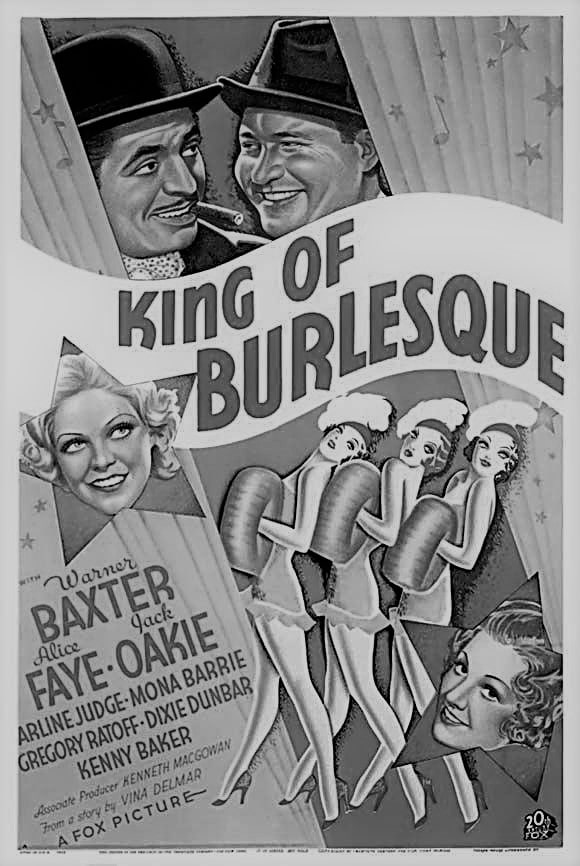 KING OF BURLESQUE (1936)
KING OF BURLESQUE (1936) (83 Min.) Genre: 1930 DRAMA, Transfer Quality: B
Warner Baxter plays the ambitious producer of a burlesque show who rises to the big time on Broadway. Alice Faye is the loyal burleycue singer who helps make Baxter a success. His head turned by sudden fame, Baxter falls under the spell of a society woman (Mona Barrie) who has theatrical aspirations of her own. She marries Baxter, then convinces him to produce a string of "artistic" plays rather than his extravagant musical revues. The plays are flops, and the woman haughtily divorces Baxter. Faithful Alice Faye, who'd gone to London when her ex-beau was married, returns to the penniless Baxter. She and her burlesque buddies team up to pull Baxter out of his rut and put him on top again.
Starring: Warner Baxter, Alice Faye, Jack Oakie, Arline Judge | Directed by: Sidney Lanfield
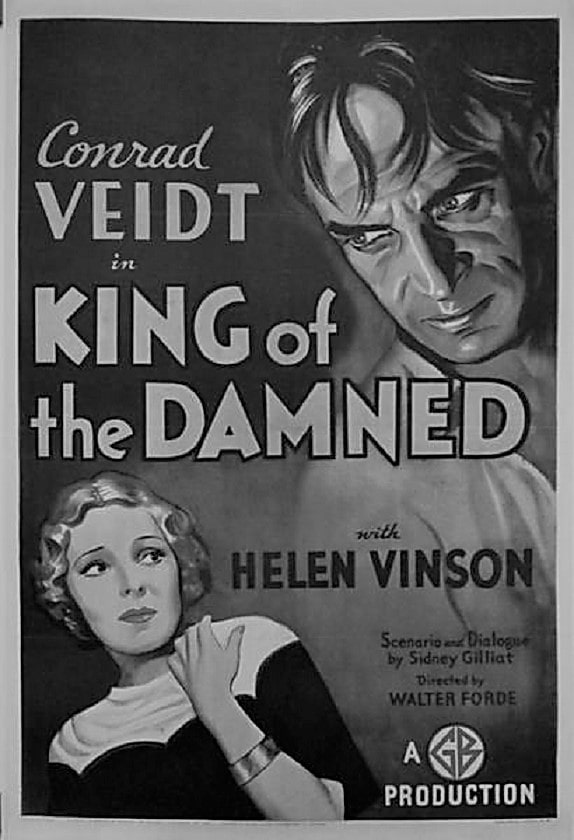 KING OF THE DAMNED (1936)
KING OF THE DAMNED (1936) (81 Min.) Genre: 1930 DRAMA, Transfer Quality: B
Based on the stage melodrama by John Chancellor, King of the Damned takes place on a brutal prison colony that makes Devil's Island look like Disneyland. Cruel governor Courvin believes in strict discipline, and isn't above breaking a few backs to get what he wants. Finally the convicts, led by Number 83 (Conrad Veidt), overpower the guards and assume control of the island. Rather than escape, however, Number 83 establishes a communal farming system, with everyone working together for the common good. He also falls in love with Anna (Helen Vinson), the slain governor's daughter. Captured by the navy, Number 83 is brought back to his own country, where he successfully pleads for humane treatment and the right to self-determination for his fellow inmates.
Starring: Conrad Veidt, Noah Beery, Sr., Helen Vinson, Cecil Ramage | Directed by: Walter Forde
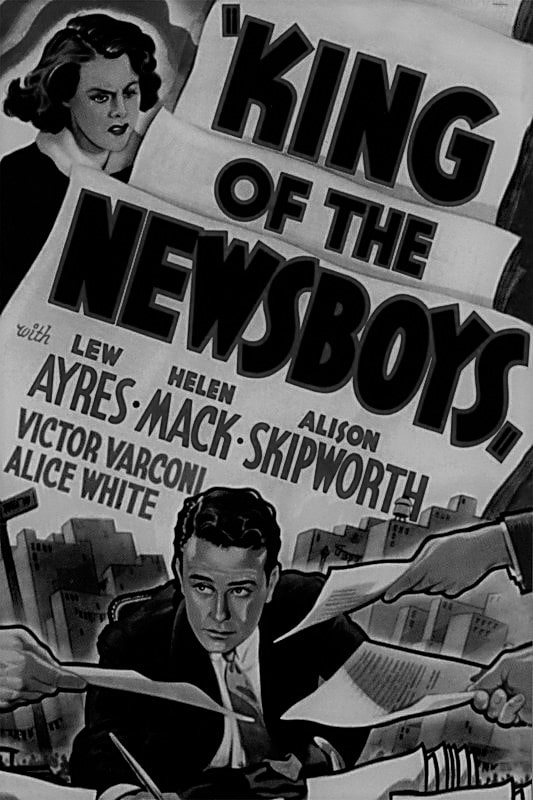 KING OF THE NEWSBOYS (1938)
KING OF THE NEWSBOYS (1938) (65 Min.) Genre: 1930 DRAMA, Transfer Quality: B
In this drama, a young man aspires to a life of wealth and power in the newspaper business. Unfortunately, it takes time and money to be successful. The young man's girl is not patient and decides to dump him in favor of a wealthy gangster. This inspires the jilted youth to achieve his dreams. He begins newspaper delivery business that becomes so successful that he can afford a penthouse on Park Avenue. Still he has not forgotten the girl he once loved. This is fortuitous as she has become fed up with the gangster. Eventually, the young man loses his business and his fancy flat, but in exchange, he regains the affections of the woman he always loved.
Starring: Lew Ayres, Helen Mack, Alison Skipworth, Victor Varconi | Directed by: Bernard Vorhaus
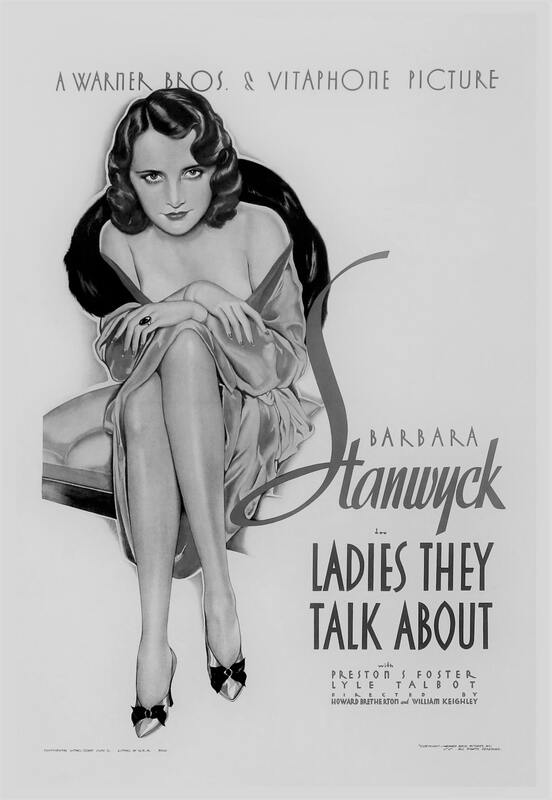 LADIES THEY TALK ABOUT (1933)
LADIES THEY TALK ABOUT (1933) (69 Min.) Genre: 1930 DRAMA, Transfer Quality: A
One of the earliest girls-in-prison yarns, Ladies They Talk About has everything but Ida Lupino as the warden—and if she had been in Hollywood at the time, she would probably be here as well. Gun moll Barbara Stanwyck is thrown into San Quentin (which looks more like a summer resort than a house of detention), thanks to the machinations of DA Preston S. Foster. It isn't political ambition that motivates Foster: he's in love with Stanwyck, and hopes that her incarceration will rehabilitate her. Instead, Stanwyck becomes a hard-bitten prison-block leader, spearheading a jailbreak. When things go awry, she holds Foster responsible. Upon her release, she goes gunning for Foster, and doesn't realize that she's really in love with him until she nearly puts him six feet under. — Hal Erickson
Starring: Barbara Stanwyck, Preston Foster, Lyle Talbot, Dorothy Burgess | Directed by: William Keighley
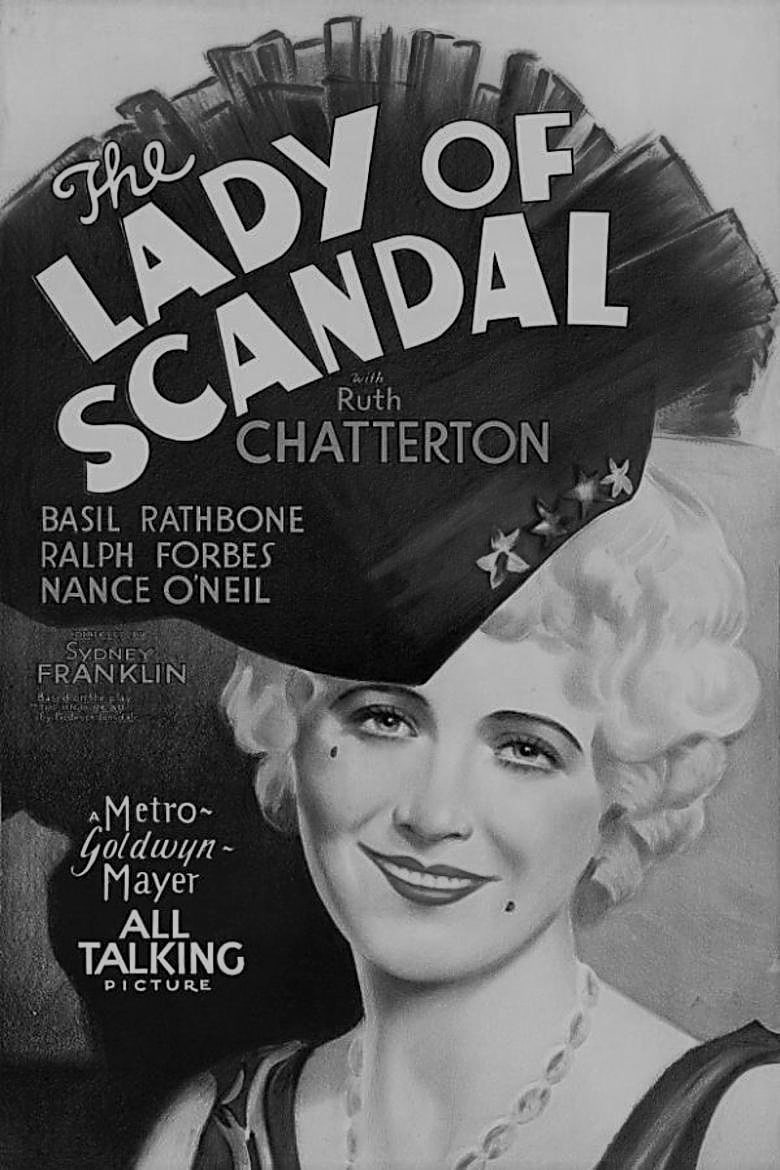 LADY OF SCANDAL, THE (1930)
LADY OF SCANDAL, THE (1930) (67 Min.) Genre: 1930 DRAMA, Transfer Quality: A
Based on Frederick Lonsdale's The High Road, The Lady of Scandal is typical of the "teacup drama" genre so prevalent during the early talkie period. It all begins when aristocratic Edward (Basil Rathbone) shocks his social set when he becomes engaged to down-to-earth musical comedy star Elsie (Ruth Chatterton). Preparing to snub Elsie during her first weekend visit to Edward's mansion, the future bridegroom's friends find themselves enchanted by his easygoing, no-nonsense fiancee. As it turns out, the only real snob of the bunch is Edward himself, but Elsie enjoys a happily-ever-after by falling in love with a likeable duke (Ralph Forbes, whom Ruth Chatterton married in real life). Though filmed like a photographed stage play, The Lady of Scandal remains fresh and lively throughout, thanks to the winning performance of its star. — Hal Erickson
Starring: Ruth Chatterton, Basil Rathbone, Ralph Forbes, Nance O'Neil | Directed by: Sidney A. Franklin
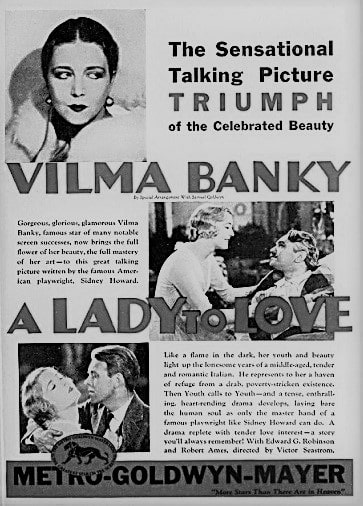 LADY TO LOVE, A (1930)
LADY TO LOVE, A (1930) (92 Min.) Genre: 1930 DRAMA, Transfer Quality: B
The odd combination of Vilma Banky and Broadway import Edward G. Robinson starred in this early sound version of Sidney Howard's 1925 play They Knew What They Wanted. California grape grower Tony (Robinson) advertises for a young wife but passes off a photograph of his handsome foreman Buck (Robert Ames) as himself. San Francisco waitress Lena (Banky) answers the add, and although disillusioned when she learns the truth, accepts Tony's proposal of marriage because of a desire to settle down. When Buck attempts to take her away, Lena realizes that she has fallen in love with her unattractive but kind husband. Howard's play was filmed again in 1940 under its original title and starred Charles Laughton as Tony and Carole Lombard as Lena. A Lady to Love proved to be Hungarian silent star Banky's final American film.
Starring: Vilma Banky, Edward G. Robinson, Robert Ames, Richard Carle, Lloyd Ingraham | Directed by: Victor Sjöström
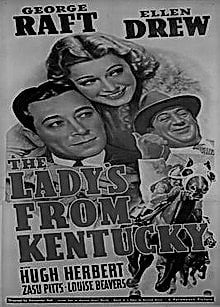 LADY'S FROM KENTUCKY, THE (1939)
LADY'S FROM KENTUCKY, THE (1939) (67 Min.) Genre: 1930 DRAMA, Transfer Quality: B
The "Lady" of the title is horse-farm owner Penelope Hollis (Ellen Drew), but during the first half of this film, bookie Marty Black (George Raft) only has eyes for Penelope's prize two-year-old. After losing his gambling joint, Marty finds himself with half ownership of the horse as his sole asset. He tries to persuade Penelope to continue racing the horse, but she will have none of this and packs the nag back to her Kentucky farm. Through Marty's persistence, the horse is entered in an important stake race, but in the process is "ridden out" and rendered useless. The enraged Penelope refuses to have anything to do with Marty again unless he changes his reckless ways-which of course he does. The best moment in The Lady's From Kentucky comes at the end, when supporting players Hugh Herbert ("Woo woo!") and ZaSu Pitts ("Oh, dear, oh, my") imitate each other's catch-phrases, a gag repeated the following year by Mae West and W.C. Fields in My Little Chickadee.
Starring: George Raft, Ellen Drew, Hugh Herbert, ZaSu Pitts | Directed by: Alexander Hall
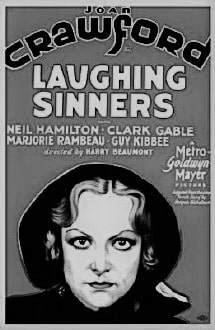 LAUGHING SINNERS (1931)
LAUGHING SINNERS (1931) (71 Min.) Genre: 1930 DRAMA, Transfer Quality: B
The Kenyon Nicholson play Torch Song was the source for the Joan Crawford vehicle Laughing Sinners. Crawford plays nightclub entertainer Ivy Stevens, who loses her zest for living when she's thrown over by her salesman sweetheart Howard Palmer (Neil Hamilton). At her lowest ebb, Ivy is befriended by Salvation Army captain Carl Loomis (yes, that's Clark Gable!). With her faith in God and Mankind renewed, Ivy becomes an "urban missionary," singing on street corners with Loomis and his flock. Alas, she falls from grace when she rekindles her romance with the now-married Howard. The conscience-stricken Ivy quits the Salvation Army, insisting that she's no longer worthy of the organization. But rather than accept her resignation, Carl turns in his uniform and collection plate and pledges eternal devotion to Ivy! And this all happens in a swift 71 minutes.
Starring: Joan Crawford, Neil Hamilton, Clark Gable, Marjorie Rambeau | Directed by: Harry Beaumont
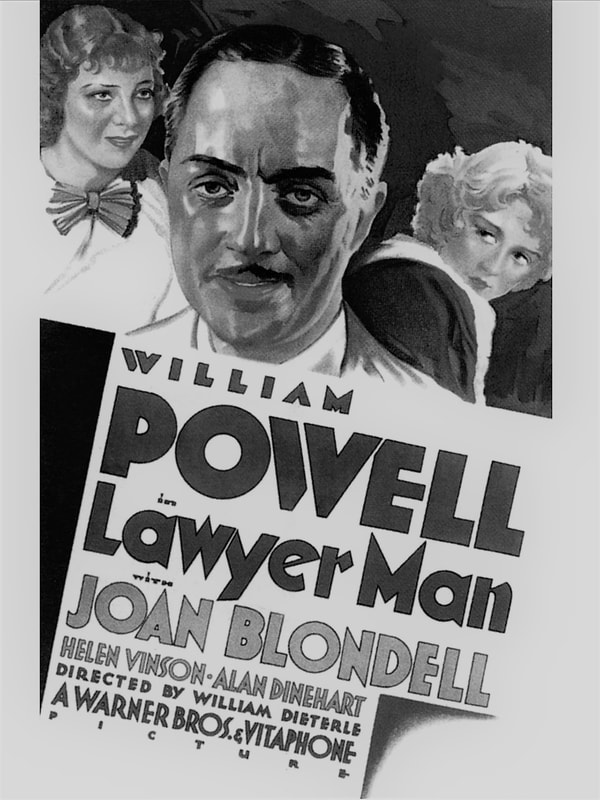 LAWYER MAN (1933)
LAWYER MAN (1933) (68 Min.) Genre: 1930 DRAMA, Transfer Quality: B
William Powell is a poor East Side lawyer who works his way up the ladder to assistant prosecutor. He isn't too particular how he uses and misuses the law, much to the dismay of his faithful secretary (Joan Blondell). Powell's downfall comes when he falls for a shady lady (Claire Dodd) who blackmails him for a past misdeed. He escapes prosecution with a hung jury, but the experience rekindles his conscience. With his loving secretary at his side, Powell returns to his old neighborhood to set up an honest legal practice.
Starring: William Powell, Joan Blondell, Helen Vinson, Alan Dinehart | Directed by: William Dieterle
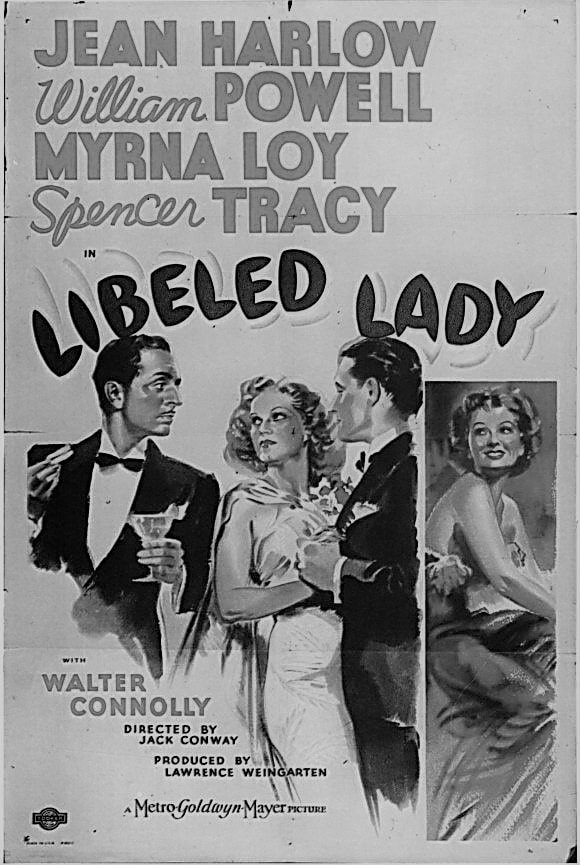 LIBELED LADY (1936)
LIBELED LADY (1936) (98 Min.) Genre: 1930 DRAMA, Transfer Quality: A
Spencer Tracy, Myrna Loy, and William Powell star in this crackling screwball comedy about a cut-throat newspaper editor's scheme to prevent a libel suit that ends up exploding in everybody's face. Tracy plays Warren Haggerty, the managing editor of a newspaper that mistakenly prints a story declaring the rich Connie Allenbury (Myrna Loy) has stolen away another woman's husband. Connie retaliates by suing the paper for $5 million. This happens right before Warren is about to marry his fiancee Gladys (Jean Harlow). As he has done several times in the past, Warren delays the wedding in order to stop the libel suit. Warren hires Bill Chandler (William Powell), a former employer who is desperate for a job, to marry Gladys in name only and then court Connie. That way, Gladys can sue Connie for alienation of affections and get Connie to agree to drop her lawsuit if Gladys will drop hers. Bill hops an ocean liner to accompany Connie and her father (Walter Connolly) back to the United States, but along the way Bill and Connie fall in love and Bill tries to convince Gladys to drop her suit so it won't hinder his relationship with Connie. — Paul Brenner
Starring: Jean Harlow, Spencer Tracy, William Powell, Mryna Loy | Directed by: Jack Conway
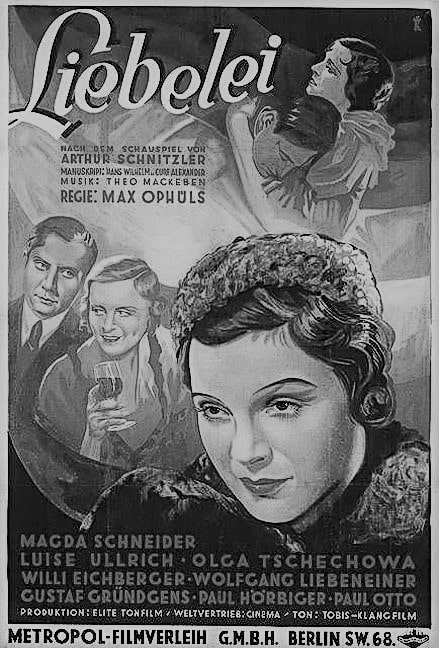 LIEBELEI (1932)
LIEBELEI (1932) (88 Min.) Genre: 1930 DRAMA, Transfer Quality: B
Liebelei is one of the earliest of the cinematic banquets directed by German filmmaker Max Ophuls. The film, set in imperial Vienna, concerns the romance between a young girl and a lieutenant. A powerful baron misreads the lieutenant's ardor, assuming that it is being directed towards his own wife. A duel follows which, no matter how it turns out, will spell tragedy for at least one of the characters we care about. The central character is portrayed by Magda Schneider, the mother of 1960s film star Romy Schneider. Liebelei was filmed in two different languages, German and French; the latter version was titled Une Histoire D'Amour.
Starring: Magda Schneider, Wolfgang Liebeneiner, Luise Ullrich, Paul Hoerbiger | Directed by: Max Ophüls
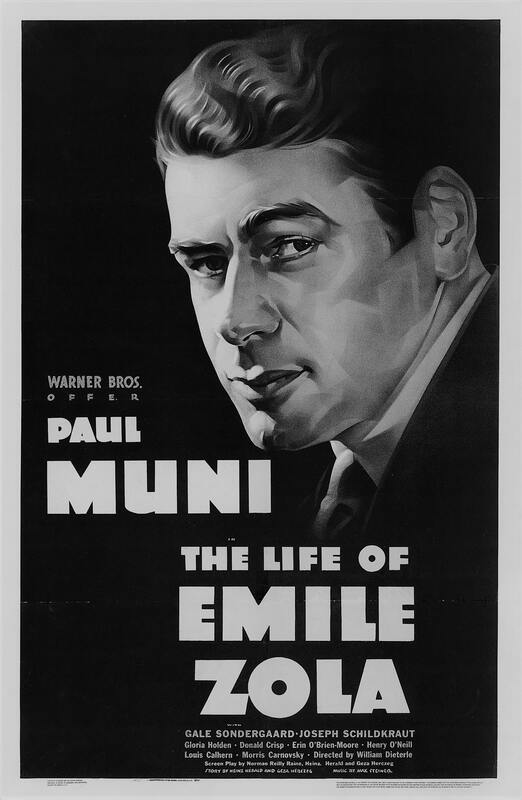 LIFE OF EMILE ZOLA, THE (1937)
LIFE OF EMILE ZOLA, THE (1937) (117 Min.) Genre: 1930 DRAMA, Transfer Quality: A
The first quarter of The Life of Emile Zola is a paint-by-numbers movie biography of the famed writer, condensing his early years into a few scenes while simultaneously providing little insight into Emile Zola the individual or explaining why we should care about him in the first place. It is only later that it becomes clear why these awkward early scenes were included; they may not have been presented in the most original fashion, but they provided necessary information to understand Zola's evolution. Once the film arrives at its true purpose, Zola's role in the historic Alfred Dreyfus affair, the film comes alive dramatically if not cinematically. The story of the Dreyfus affair is inherently compelling, and this is a solid (if not entirely factual) dramatization. From the beginning, the story leaves no doubt as to Dreyfus' innocence, and does not shy away from depicting the ruling officers as more concerned with preserving their power than with serving in the interest of France. The filmmakers do, however, shy away from pointing the finger at anti-Semitism, and that is the film's biggest failing. Only once does the film make any connection to anti-Semitism as the reason behind Dreyfus' persecution. Still, if the film is not an indictment of anti-Semitism, it is an indictment of mob mentality, as the easily manipulated nature of public opinion is ridiculed time and again. Paul Muni, acting under heavy makeup, is good as Zola, even if one never loses sight of the fact that one is watching a performance, and Joseph Schildkraut won an Oscar for playing Dreyfus. But the film is stolen by the group of actors playing the ruling officers, namely Robert H. Barrat, Louis Calhern, Robert Warwick, and especially Harry Davenport, who is cast completely against type as a scheming Chief of Staff. — Bob Mastrangelo
Starring: Paul Muni, Gloria Holden, Gale Sondergaard, Joseph Schildkraut | Directed by: William Dieterle, Irving Rapper
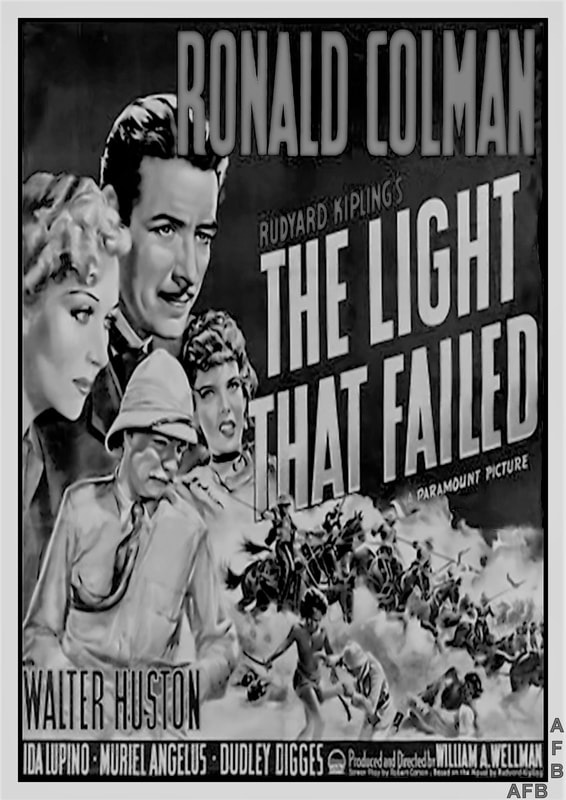 LIGHT THAT FAILED, THE (1939)
LIGHT THAT FAILED, THE (1939) (97 Min.) Genre: 1930 DRAMA, Transfer Quality: B
Based on a classic tale from Rudyard Kipling, this melodrama chronicles the desperate attempt of a painter to finish his greatest painting before he goes blind. His affliction is due to a war wound and his final project is to paint a portrait of London's most notorious prostitute. Trouble begins when the hooker falls deeply in love with the artist. Unfortunately, social mores forbid their union and this frustrates the wanton woman. Meanwhile, the artist feverishly continues to paint her. The result is exquisite. Unfortunately, by this time, the whore can no longer contain her frustrated rage, and unbeknownst to the painter whose sight is nearly gone, viciously slashes it. Later the artist takes his prized work and shows it to his best friend, a military officer, in a heartbreaking scene. Afterward the two colleagues head down to fight in the Sudan. There, the devastated painter begs the officer to allow him to participate in one final, glorious charge atop a shining white stallion. — Sandra Brennan
Starring: Ronald Colman, Walter Huston, Muriel Angelus, Ida Lupino | Directed by: William Wellman
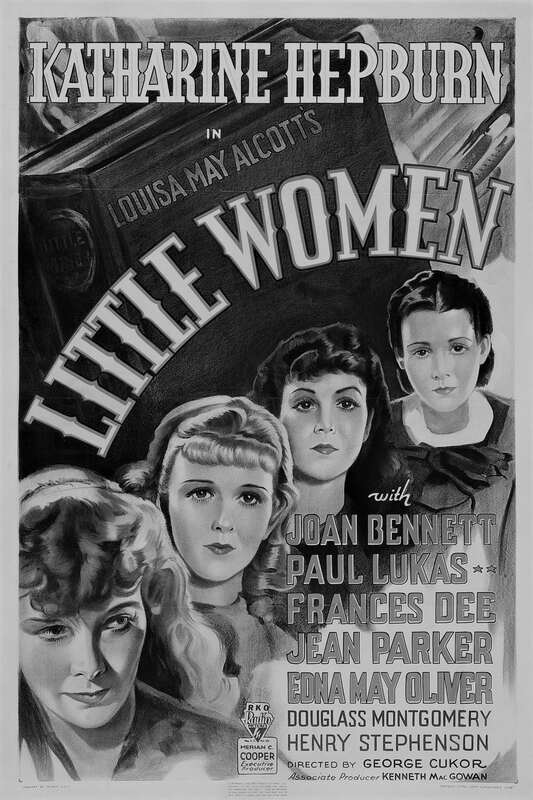 LITTLE WOMEN (1933)
LITTLE WOMEN (1933) (116 Min.) Genre: 1930 DRAMA, Transfer Quality: A
One of Hollywood's original "chick flicks," this faithful adaptation of Louisa May Alcott's Civil War-era novel focuses almost exclusively on the ambitions, desires, and emotions of the titular four sisters. The expensive and attractive production literally embodies that most manipulative of cinematic clichés, "I laughed, I cried." Little Women's first half, focused on the sisters' effervescent and fun-loving youth, gradually gives way to a melancholy, downbeat second half, in which we witness confusion, disappointment, and death. The film's willingness to concentrate almost exclusively on these four sisters, who vary from confident to reticent, was an important step forward in the cinematic treatment of women. How the "little women" hold up as they undergo their trials and tribulations is also essential, as they survive and thrive without (and occasionally despite) men, who appear only in supporting roles, a tidy inversion of Hollywood tradition. Little Women's star-making performance was that of Katherine Hepburn, whose tomboyish spunk is wonderfully endearing in the role of Jo, the embryonic writer. However, the supporting work of Joan Bennett, Jean Parker, and Frances Dee is also key to the film's enduring appeal. Nominated for three Academy Awards, including Best Picture and Best Director for George Cukor, Little Women won best adapted screenplay for Victor Heerman and Sarah Y. Mason. — Dan Jardine
Starring: Katharine Hepburn, Joan Bennett, Paul Lukas, Frances Dee | Directed by: George Cukor
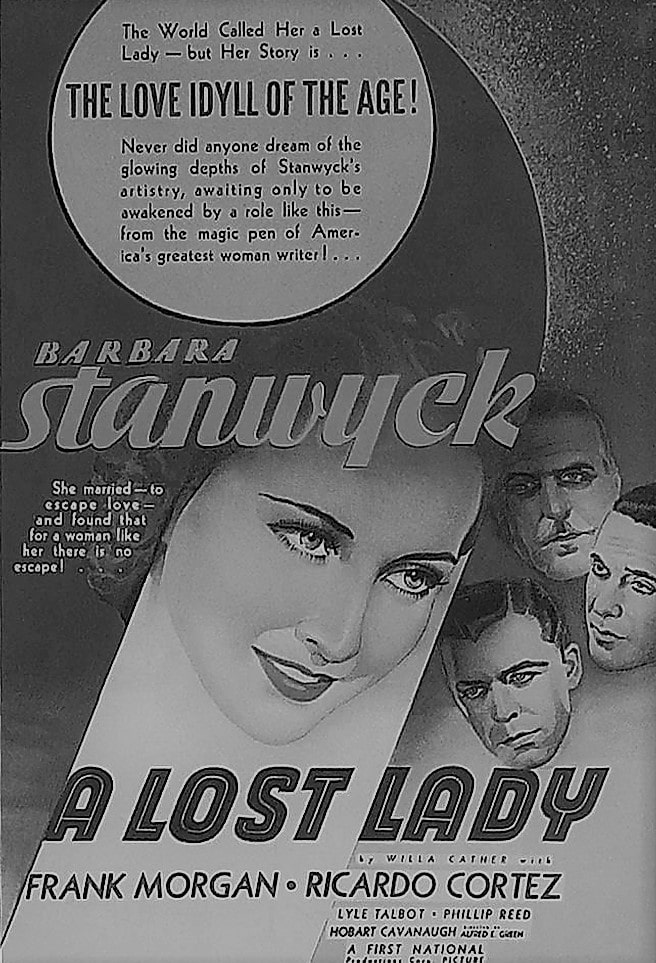 LOST LADY, A (1934)
LOST LADY, A (1934) (71 Min.) Genre: 1930 DRAMA, Transfer Quality: B
This is the second movie version of Willa Cather's Pulitzer Prize winning novel that tells the story of a bride-to-be whose fiance is near-fatally injured by the jealous husband of a woman he had an affair with. The poor young woman is so upset by the situation that she swears she will never love another and takes off to live in an isolated mountain retreat. There she feels terribly sorry for herself. One day she is moping along a rough trail, falls and hurts herself. Fortunately, she is rescued by an elderly lawyer who helps her heal both physically and psychologically. The grateful girl ends up marrying him. Unfortunately she meets a handsome young man with whom she falls passionately, but chastely in love. Now she regrets marrying the old attorney. She decides to tell the lawyer her true feelings. When she is finished he promptly keels over with a heart attack. It might be noted that after Cather saw this film, she forbade the further sale of her works to Hollywood. — Sandra Brennan
Starring: Barbara Stanwyck, Frank Morgan, Ricardo Cortez, Lyle Talbot | Directed by: Alfred E. Green
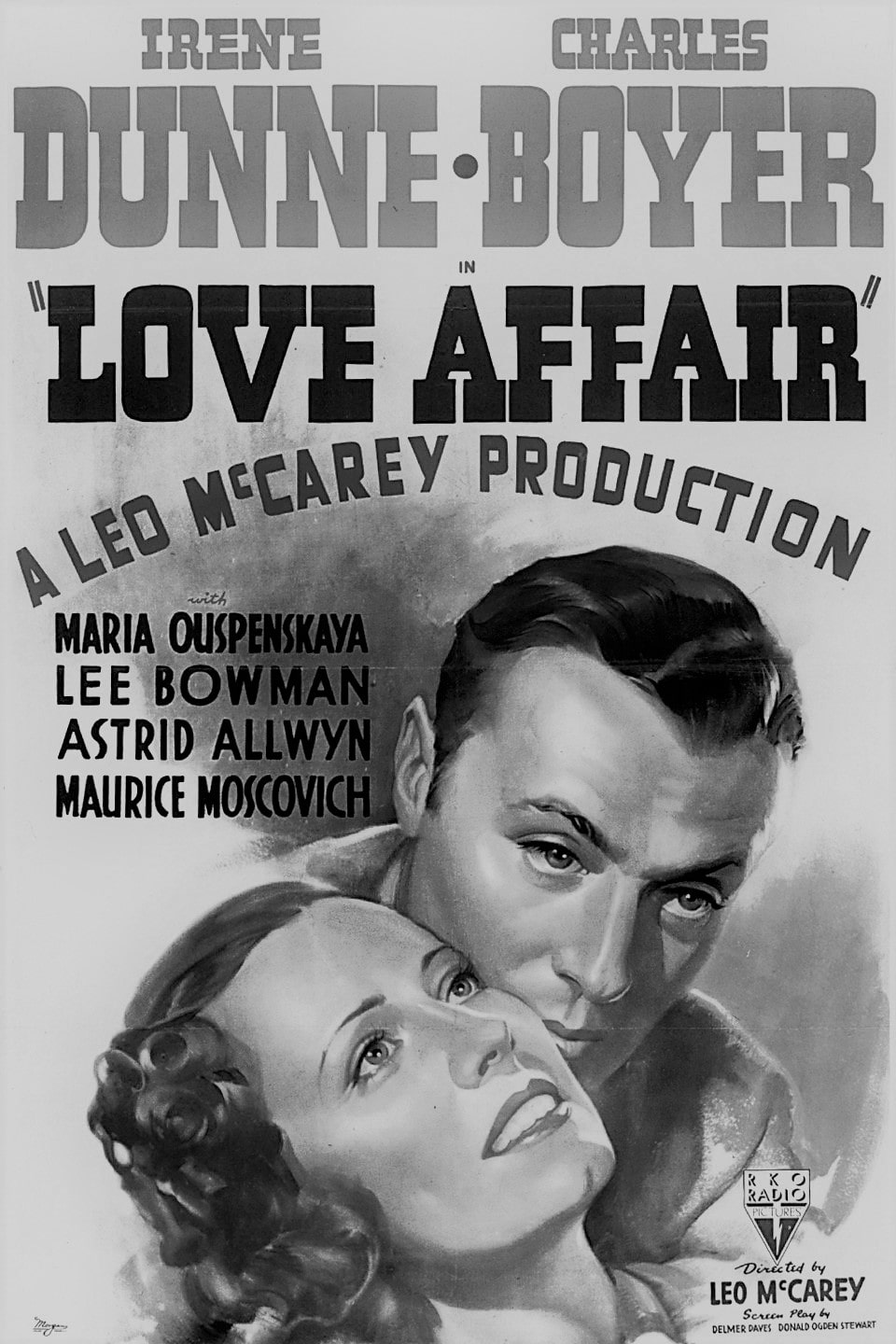 LOVE AFFAIR (1939)
LOVE AFFAIR (1939) (87 Min.) Genre: 1930 DRAMA, Transfer Quality: A
Leo McCarey's classic tale of romance stars Irene Dunne and Charles Boyer as two strangers who fall in love on an ocean voyage. Charles Boyer is Michel Marnet, engaged to be married to Lois Clarke (Astrid Allwyn). Irene Dunne is Terry McKay, also engaged to be married, in this case to Kenneth Bradley (Lee Bowman). But when Michel and Terry meet aboard a ship, they fall instantly in love. In order to prove to themselves their love affair is not just a shipboard romance, they agree to meet six months hence on the top of the Empire State Building. If they still feel the same way about each other, they will bid adieu to their fiancees and start their affair anew. Six months later, they are still thinking about each other and proceed to their meeting at the Empire State Building. Michel awaits Terry's arrival, but Terry, on the way to their meeting, is involved in a terrible car accident, leaving her a cripple. Later, by a twist of fate, they are reunited and Michel vows to stay with Terry to help her walk again. — Paul Brenner
Starring: Charles Boyer, Irene Dunne, Maria Ouspenskaya, Astrid Allwyn | Directed by: Leo McCarey
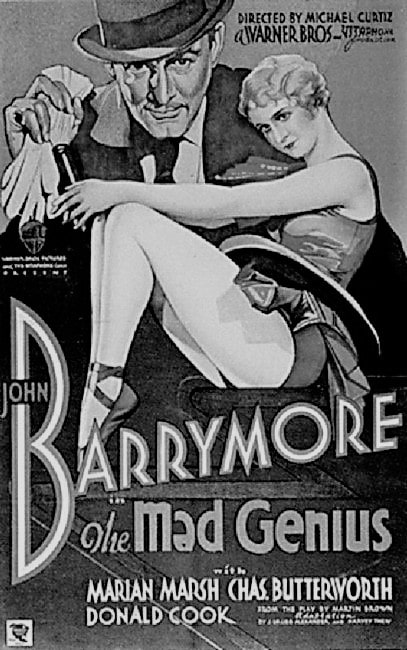 MAD GENIUS, THE (1931)
MAD GENIUS, THE (1931) (81 Min.) Genre: 1930 DRAMA, Transfer Quality: B
More of a follow-up than a sequel to 1931's popular Svengali, this drama centers on the attempts of a club-footed and insanely bitter dance instructor to cling to his protege.
Starring: John Barrymore, Marian Marsh, Donald Cook, Charles Butterworth | Directed by: Michael Curtiz
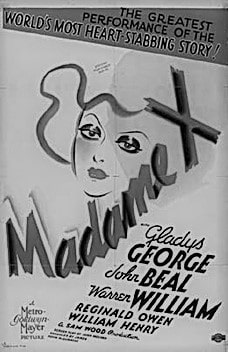 MADAME X (1937)
MADAME X (1937) (72 Min.) Genre: 1930 DRAMA, Transfer Quality: A
Sam Wood directed this fourth version of the Alexandre Bisson weeper, buffed to a high gloss by shimmering M.G.M. production values. Gladys George plays Jacqueline Fleuriot this time around, the wife of a diplomat who has an affair and is compelled to leave her husband and son. After abandoning her family, she sinks into a sea of debauchery, becoming involved in prostitution, blackmail, and eventually murder. After the murder, her son Raymond (John Beal), now a grown man and a famous lawyer, is called upon to defend her. Unaware that the woman he is defending is his long lost mother, Jacqueline tries to hide her past from her successful son. — Paul Brenner
Starring: Gladys George, John Beal, Warren William, Reginald Owen, George Zucco | Directed by: Sam Wood
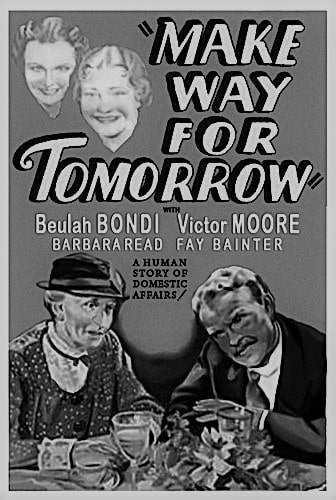 MAKE WAY FOR TOMORROW (1937)
MAKE WAY FOR TOMORROW (1937) (92 Min.) Genre: 1930 DRAMA, Transfer Quality: B
While not a box-office success, this drama, directed by Leo McCarey, developed a potent reputation among film critics and movie buffs for its sensitive and perceptive treatment of the problems of the elderly. When McCarey won the Oscar for Best Director the same year for The Awful Truth, he remarked that the Academy gave him the award for the wrong movie. Barkley and Lucy Cooper (Victor Moore and Beulah Bondi) are a couple in their late 60s who have fallen on hard times and have been given the bad news that the bank is foreclosing on their house. Barkley and Lucy turn to their five children for help, but none are willing or able to do much for them; their son George (Thomas Mitchell) says that Lucy can stay with him and his wife Anita (Fay Bainter), while Nellie (Minna Gombell) and her husband Harvey (Porter Hall) can take in Barkley, but neither couple have the space or the means to house them both. Living with their children and their new families proves stressful for everyone involved, and Lucy decides to take up residence in a home for older women. She and Barkley realize that this will probably mean a permanent separation for the two of them, and they try to enjoy one last outing together before they part. Remarkably, Beulah Bondi was only 46 years old when this film was made, making her less then ten years older than several of her on-screen children; make-up wizard Wally Westmore used his bag of tricks to age her the appropriate two decades for the role.
Starring: Victor Moore, Beulah Bondi, Fay Bainter, Thomas Mitchell, Ellen Drew, Gene Lockhart | Directed by: Leo McCarey
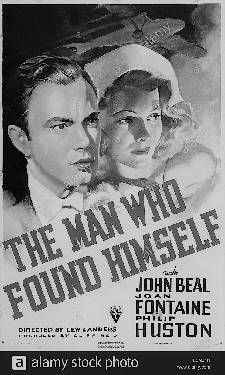 MAN WHO FOUND HIMSELF, THE (1937)
MAN WHO FOUND HIMSELF, THE (1937) (67 Min.) Genre: 1930 DRAMA, Transfer Quality: A
A doctor (John Beal) who loses faith in his skills renounces his profession and hides himself in a variety of jobs. He takes a minor job at an airfield, where he meets nurse Joan Fontaine, who works on a "flying hospital". On board the aircraft, Beal finds he is the only person who can perform a delicate operation; worse luck, the plane is about to crash! Beal finds himself, per the title, but nearly loses his life in the process. Watch for Dwight Frye, the immortal "Renfield" in Bela Lugosi's Dracula, as an hysterical patient--and seven-year-old Dwight Frye Jr. as a child rescued from a train wreck.
Starring: John Beal, Joan Fontaine, Philip Huston, Jane Walsh, George Irving | Directed by: Lew Landers
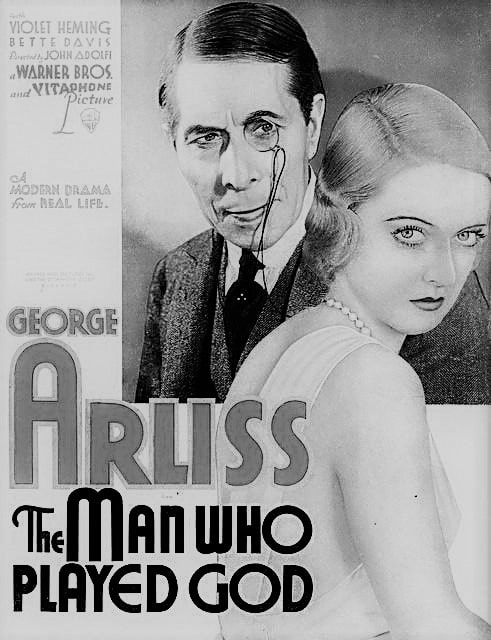 MAN WHO PLAYED GOD, THE (1932)
MAN WHO PLAYED GOD, THE (1932) (81 Min.) Genre: 1930 DRAMA, Transfer Quality: B
George Arliss is a world-renowned pianist, engaged to a young woman (Bette Davis) much younger than himself. An explosion renders Arliss completely deaf, but he soon becomes an expert lip-reader. To practice this skill, he looks out his window through binoculars, reading the lips of those who pass through the public park below. He learns that many people have problems far worse than his own, so he secretly arranges to solve the financial and emotional crises of those whose words he has read. Arliss' talent backfires on him when he spots his fiancee in the park with another man; she reveals that she does not love Arliss, but is staying with him out of loyalty. Though broken-hearted, Arliss expansively allows his fiancee to marry the man she truly loves, and even arranges for their future security. The Man Who Played God was based on a stage play also starring George Arliss, which he'd previously filmed in 1922. It was remade in 1955 as Sincerely Yours, starring the inimitable Liberace!
Starring: George Arliss, Bette Davis, Violet Heming, Donald Cook | Directed by: John G. Adolphi
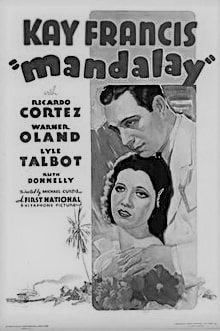 MANDALAY (1934)
MANDALAY (1934) (65 Min.) Genre: 1930 DRAMA, Transfer Quality: A
The official cast list of Warner Bros. Mandalay states that Kay Francis plays a character named Tanya. For most of the film, however, the heroine — if she can be called that — goes by the name of Spot White (or "Spot Cash," as she's cynically designated by one of the lesser characters). Betrayed by her smuggler lover Tony Evans (Ricardo Cortez), Tanya/Spot White becomes one of white slaver Nick's (Warner Oland) stable of girls in old Rangoon. She eventually escapes this sordid lifestyle, and is later instrumental in the redemption of dissolute doctor Gregory Burton (Lyle Talbot). Falling in love with Burton, Spot White resorts to drastic measure to purge the ubiquitous Tony Evans from her life. Most sources list Shirley Temple in the cast as "Betty," but her role has apparently been excised from the currently available prints of Mandalay.
Starring: Kay Francis, Lyle Talbot, Ricardo Cortez, Warner Oland | Directed by: Michael Curtiz
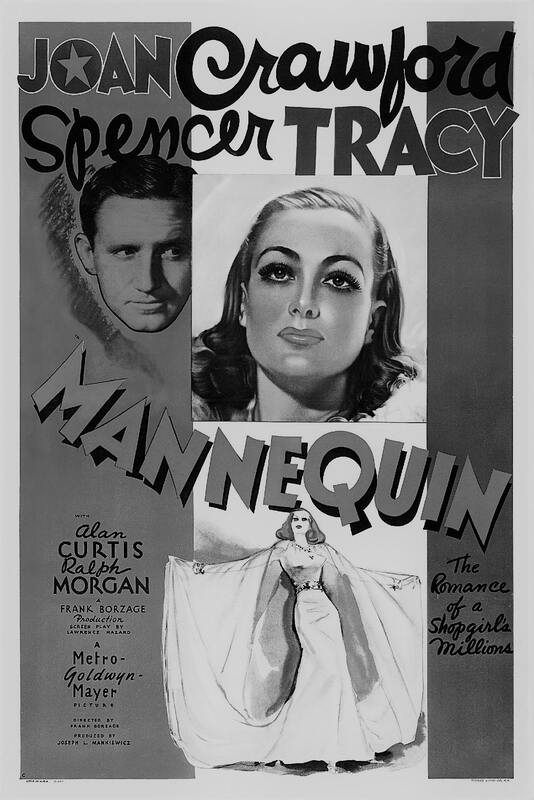 MANNEQUIN (1937)
MANNEQUIN (1937) (95 Min.) Genre: 1930 DRAMA, Transfer Quality: A
Mannequin stars Joan Crawford as Jessie Cassidy, a girl of the tenements (though this being an MGM film, her slum dwellings are cleaner and more lavish than most middle-class bungalows!) Hoping to escape her grimy surroundings, Jessie marries Eddie Miller (Alan Curtis), a childhood acquaintance who has made good with a variety of dishonest business ventures. Another refugee from Jessie's neighborhood is John Hennessy (Spencer Tracy), who has likewise worked his way up to fame and fortune, albeit more honestly than Eddie. Faced with mounting debts, Eddie callously orders Jessie to divorce him and marry John for his money — then divorce John and return to Eddie with the cash. Jessie reluctantly goes along with the scheme, but she double-crosses Eddie upon falling in love with John. Things look bad for our heroine when Eddie, with blackmail on his mind, threatens to spill the beans to John about their little "arrangement" — whereupon John solves the dilemma (and saves his marriage) by losing his own fortune. — Hal Erickson
Starring: Joan Crawford, Spencer Tracy, Alan Curtis, Ralph Morgan | Directed by: Frank Borzage
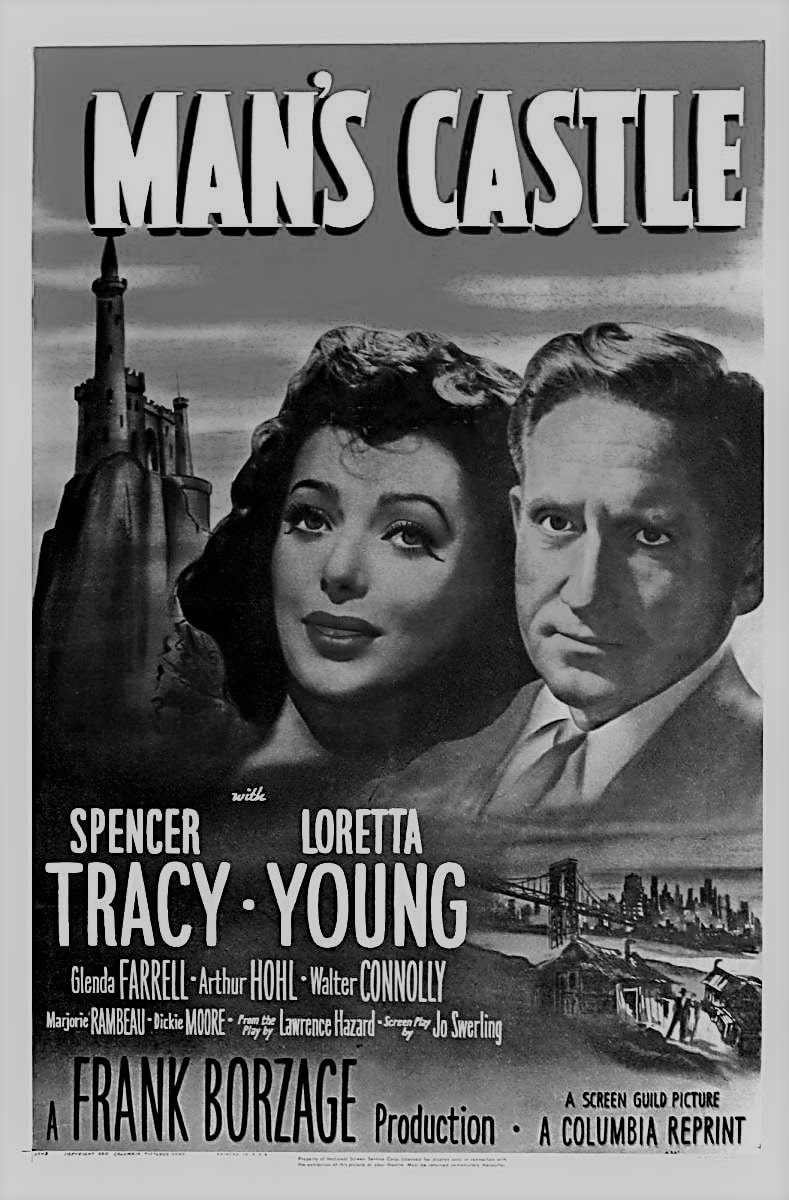 MAN'S CASTLE, A (1933)
MAN'S CASTLE, A (1933) (70 Min.) Genre: 1930 DRAMA, Transfer Quality: A
This Depression-era romantic drama, which offers a surprisingly potent and unsentimental view of the economic hardships of the time, stars Spencer Tracy as Bill, a rough-hewn laborer struggling to get by and sleeping in a Hooverville shack. Bill meets Trina (Loretta Young), a sad and desperate young woman with no prospects and nowhere to go; her plight touches his heart of stone, and he allows her to stay with him. Bill picks up work where and when he can, while Trina tries to turn their hovel into a home. Bill soon makes the acquaintance of Fay LaRue (Glenda Farrell), a brassy showgirl whose career is on the way up and wouldn't mind if Bill tagged along. But Bill learns that leaving Trina behind won't be as simple as he thought. Trina is pregnant with his child, so he ends up planning a dangerous robbery in hopes of raising enough money to provide a proper home for Trina and the baby. Dealing with tough material in an adult manner, A Man's Castle was considered quite daring in its day. A year after its release, Hollywood adopted the Production Code that prohibited the depiction of unwed cohabitation and premarital pregnancy (among many other things), which would have made this a very different film.
Starring: Spencer Tracy, Loretta Young, Marjorie Rambeau, Glenda Farrell | Directed by: Frank Borzage
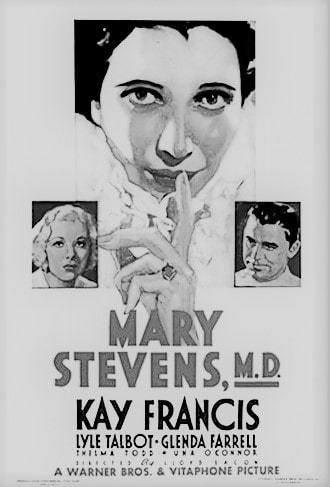 MARY STEVENS, M.D. (1933)
MARY STEVENS, M.D. (1933) (72 Min.) Genre: 1930 DRAMA, Transfer Quality: A
In this melodrama, a female physician encounters professional and personal turmoil when she finds herself having an affair with an alcoholic peer. He impregnates her and she travels to Paris to have the baby in private. As she is returning to the States, the baby dies from infantile paralysis. This does not prevent her from saving the lives of two other children aboard the same ocean liner. When she returns, she discovers that her lover has divorced his wife and wants to marry her. — Sandra Brennan
Starring: Kay Francis, Lyle Talbot, Glenda Farrell, Thelma Todd | Directed by: Lloyd Bacon
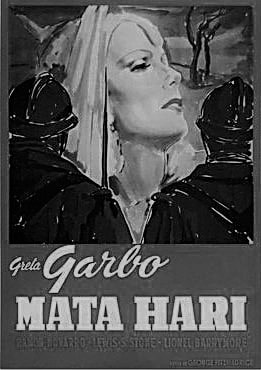 MATA HARI (1931)
MATA HARI (1931) (100 Min.) Genre: 1930 DRAMA, Transfer Quality: A
So much for Carlotta muses the head of German Espionage (Lewis Stone), shortly after secret agent Karen Morley is put to death. Morley's successor is exotic dancer Mata Hari (Greta Garbo), an enigmatic woman of Javanese-Dutch ancestry who seldom thinks twice about luring some poor swain to his doom. Assigned to intercept allied war messages, Mata Hari romances garrolous-general Lionel Barrymore. She falls in love for the first and only time in her life when she meets dazzlingly handsome lieutenant Ramon Novarro. Barrymore finds out about the affair and threatens to expose both Mata and Novarro as spies, whereupon Ms. Hari shoots Barrymore dead. She arranges for Novarro to leave the country lest he be implicated in the murder. He is subsequently blinded in an airplane crash, setting the stage for Garbo's now-famous "Let me be your eyes" scene. Mata Hari is tried and sentenced to death, but is permitted a few final precious moments with Novarro, allowing him to go on believing that he is in a military hospital rather than a prison cell, and that his beloved is dying of a mysterious ailment rather than facing a firing squad. The debate still rages among film buffs as to whether Greta Garbo does her own dancing in Mata Hari, or whether that's her double in the long shots. There is no question, however, that the condemned prisoner in the first reel who refuses to betray Mata to his captors is none other than Mischa Auer. — Hal Erickson
Starring: Greta Garbo, Ramon Navarro, Lionel Barrymore, Lewis Stone | Directed by: George Fitzmaurice
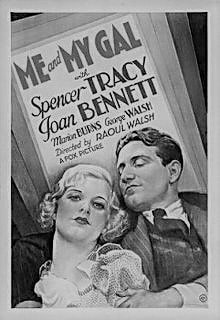 ME AND MY GAL (1932)
ME AND MY GAL (1932) (78 Min.) Genre: 1930 DRAMA, Transfer Quality: B
In this wisecracking comedy, Dan Dolan (Spencer Tracy) is a cop whose beat is the New York waterfront. Dan has a soft spot for Helen Riley (Joan Bennett), a sharp-tongued waitress at a cheap diner, while her scatter-brained sister Kate (Marion Burns) is in love with Duke Castage (George Walsh), a sleazy low-level mobster. While Duke makes a play for Kate, both Helen and Dan know that he's bad news, and Dan wants to put Duke behind bars before he can break Kate's heart. Me and My Gal was directed by Raoul Walsh, one of the great craftsmen of the studio system -- and also the brother of George Walsh, who plays the villain.
Starring: Spencer Tracy, Joan Bennett, Marion Burns, George Walsh | Directed by: Raoul Walsh
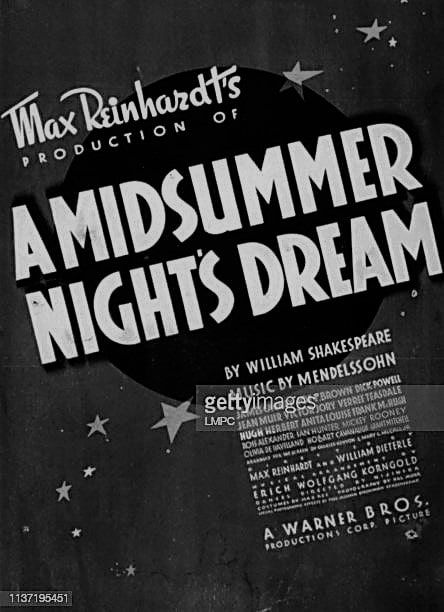 MIDSUMMER NIGHT'S DREAM, A (1935)
MIDSUMMER NIGHT'S DREAM, A (1935) (142 Min.) Genre: 1930 DRAMA, Transfer Quality: A
Cigar-chomping Jack Warner does Shakespeare? What fools these mortals be! Theatrical genius Max Reinhardt had successfully staged the play in Europe and felt that A MIDSUMMER NIGHT'S DREAM was ideal for film, because the fairy sequences offered the proper magic for celluloid. Reinhardt, though, had no idea how to shoot this masterpiece, and blurry rushes of several forest scenes suggested that entrusting him with $1.5 million was unwise. So experienced Hollywood man Dieterle and a new cinematographer were added; Hal Mohr's lensing of the film (the only time a write-in ever won an Oscar) turned out to be its one real triumph. Years later, Powell would claim that he never really understood his lines. While such a remark may be after-the-fact cynicism, it does speak to the generally strained acting from a cast of Hollywoodians unschooled in blank verse. Above all else, this play needs inspiration to fly; the acting must be daringly effortless, clownishly gossamer, and if there's one thing Cagney and pals are not, it's gossamer. One would think that de Havilland, who had played Hermia onstage, would steal it, but she's too new to films to have refined her technique, and her emoting seems as heavy as everyone else's. Rooney is one of the few who really looks like he's having fun, but he's having too much fun and it begins to grate. (Life imitates art: the high-flying youngster broke his leg tobogganing during a production break and had to be wheeled around on an unseen bicycle for much of the shoot.) Cagney, Muir and Brown have their moments, but only Hunter and a few others with classical backgrounds work against the private school class play feel to the film. Typical Warners touch: the delicate original ballet sequences by Bronislava Nijinska and Nini Theilade (the lead ballerina in the film) were cut and re-choreographed in the Busby Berkeley mold.
Starring: Ian Hunter, James Cagney, Grant Mitchell, Olivia de Havilland, Mickey Rooney, Frank McHugh | Directed by: William Dieterle, Max Reinhardt
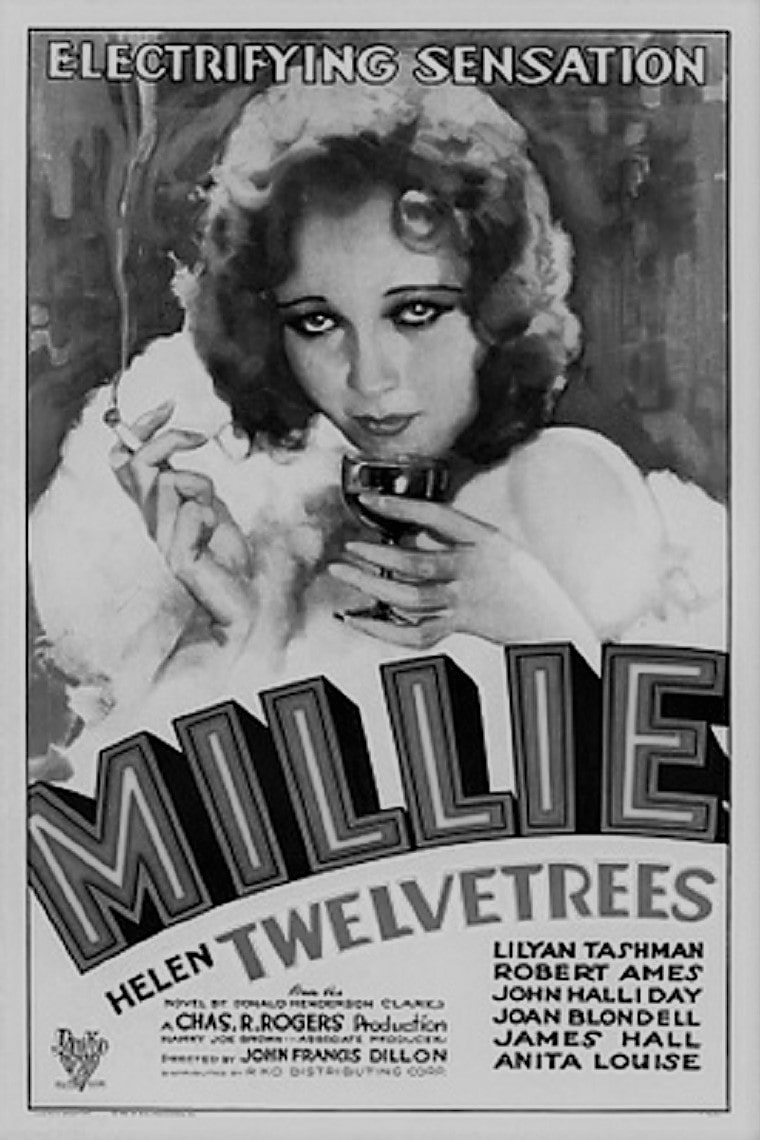 MILLIE (1931)
MILLIE (1931) (85 Min.) Genre: 1930 DRAMA, Transfer Quality: A
Yet another variation on the already then-ancient Madame X theme, this early talkie stars Helen Twelvetrees in the title role, a small-town girl marrying a New York City businessman (James Hall). The union produces a daughter, but ends when Millie catches her husband with a mistress (Marie Astaire). Attempting to make a life for herself without turning to gold-digging, like her friends, Angie (Joan Blondell) and Helen (Lilyan Tashman), Millie is once again disappointed by a man when reporter boyfriend Tommy (Robert Ames) is found in another girl's apartment. Years later, a nearly destitute and much hardened Millie discovers that an old admirer, Jimmy Damier (John Halliday), is about to seduce her now 17-year-old daughter, Connie (Anita Louise). Catching the couple almost in the act, Millie shoots and kills Jimmy, but is acquitted when the jury learns the identity of the molested girl. Millie was an independent Charles R. Rogers production sold to RKO when producer Rogers joined that company. — Hans J. Wollstein
Starring: Helen Twelvetrees, Lilyan Tashman, Robert Ames, Joan Blondell, Frank McHugh | Directed by: John Francis Dillon
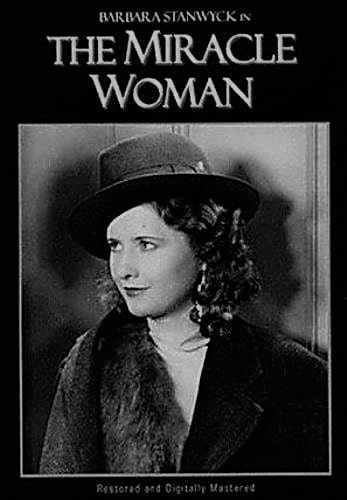 MIRACLE WOMAN, THE (1931)
MIRACLE WOMAN, THE (1931) (90 Min.) Genre: 1930 DRAMA, Transfer Quality: A
A minister's daughter finds fame as an evangelist but struggles with her own lack of faith in Frank Capra's impassioned drama. Inspired by the true story of Aimee Semple McPherson, the film follows the rise to prominence of Florence Fallon (Barbara Stanwyck). Disillusioned by the mistreatment of her dying father by his church, Florence grows cynical about religion. She nevertheless retains an intimate knowledge of the Bible and natural flair for preaching, talents put to use by promoter Bob Hornsby (Sam Hardy) in a series of phony revival meetings, complete with staged healings and other stunts. Florence plays along, but she soon comes to take her religious mission more seriously, especially after a blind songwriter John Carson (David Manners) claims that her preaching saved his life. Guilt-ridden Florence decides to go straight, but Hornsby sets out to stop her, seeing her new-found morality — and her budding romance with John — as a threat to his lucrative business. Foreshadowing many of his better-known classics, Capra addresses issues about the manipulation of the public and the importance of truth while also presenting an unlikely romance. The film's treatment of religion was considered controversial on its initial release; it now seems justifiably complex but far from critical. The film's most notable element is the intense lead performance from Stanwyck, whose combination of fiery charisma and vulnerability is magnetic and convincing, providing Capra's ambitious drama with a gripping emotional core. — Judd Blaise
Starring: Barbara Stanwyck, David Manners, Sam Hardy, Beryl Mercer | Directed by: Frank Capra
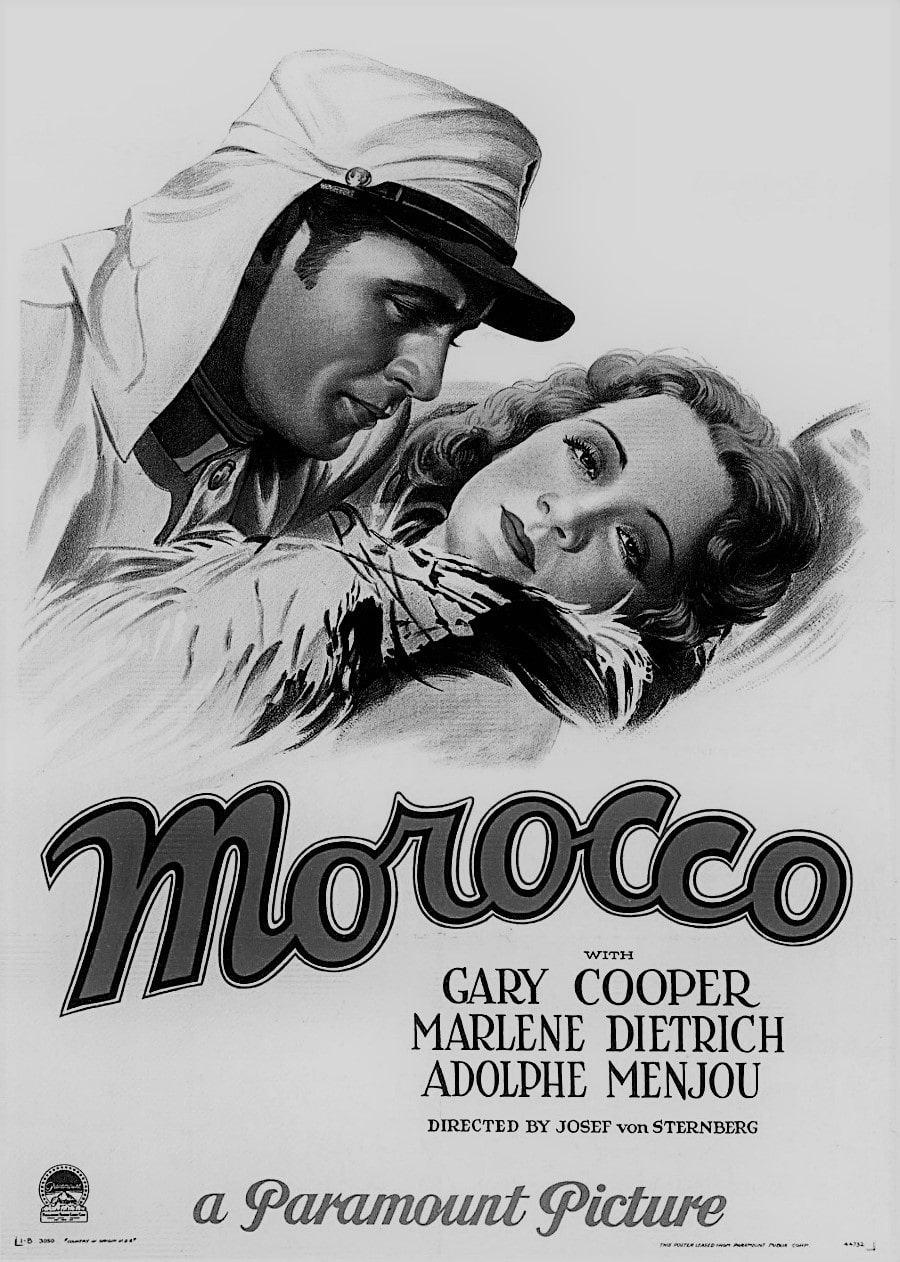 MOROCCO (1930)
MOROCCO (1930) (92 Min.) Genre: 1930 DRAMA, Transfer Quality: A
Like so many campaigners before him, Gary Cooper joins the Foreign Legion to "forget." At a smoky cabaret in Morocco, Cooper meets café entertainer Marlene Dietrich (making her American film debut). A woman with a very checkered past, Dietrich toys with the callow Cooper, but eventually falls hopelessly in love with him, even to the extent of throwing over wealthy Adolphe Menjou. The now-famous final image of Morocco finds la Dietrich, decked out in her cabaret finery and wearing high heels, heading after Cooper's regiment across the desert with the rest of the "camp followers." There is considerably more to the story than that, but these bare-bones details should be enough to entice anyone familiar with the exotic eroticism of the Josef von Sternberg/Marlene Dietrich vehicles. Should you need more enticement, let us inform you that Morocco is the film in which Marlene Dietrich, dressed in a man's tuxedo for her nightclub act, kisses a female patron squarely on the lips. — Hal Erickson
Starring: Gary Cooper, Marlene Dietrich, Adolphe Menjou, Ullrich Haupt | Directed by: Josef Von Sternberg
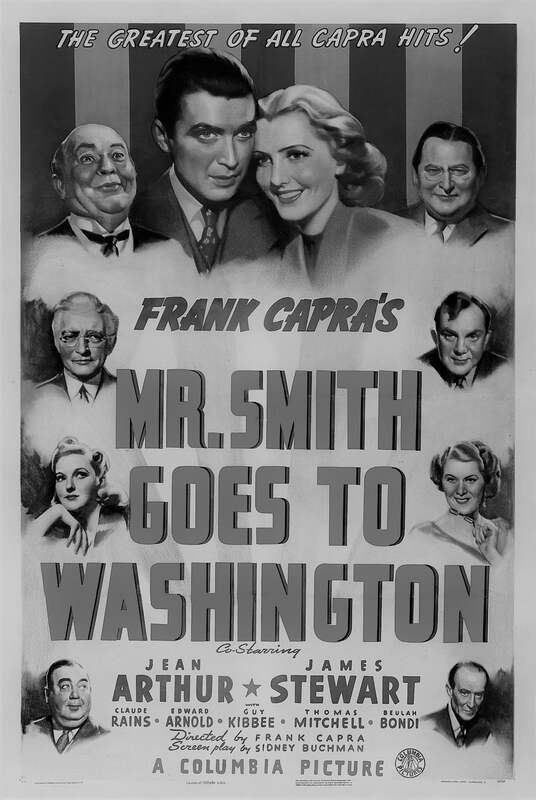 MR. SMITH GOES TO WASHINGTON (1939)
MR. SMITH GOES TO WASHINGTON (1939) (129 Min.) Genre: 1930 DRAMA, Transfer Quality: A
Frank Capra's classic comedy-drama established James Stewart as a lead actor in one of his finest (and most archetypal) roles. The film opens as a succession of reporters shout into telephones announcing the death of Senator Samuel Foley. Senator Joseph Paine (Claude Rains), the state's senior senator, puts in a call to Governor Hubert "Happy" Hopper (Guy Kibbee) reporting the news. Hopper then calls powerful media magnate Jim Taylor (Edward Arnold), who controls the state -- along with the lawmakers. Taylor orders Hopper to appoint an interim senator to fill out Foley's term; Taylor has proposed a pork barrel bill to finance an unneeded dam at Willet Creek, so he warns Hopper he wants a senator who "can't ask any questions or talk out of turn." After having a number of his appointees rejected, at the suggestion of his children Hopper nominates local hero Jefferson Smith (James Stewart), leader of the state's Boy Rangers group. Smith is an innocent, wide-eyed idealist who quotes Jefferson and Lincoln and idolizes Paine, who had known his crusading editor father. In Washington, after a humiliating introduction to the press corps, Smith threatens to resign, but Paine encourages him to stay and work on a bill for a national boy's camp. With the help of his cynical secretary Clarissa Sanders (Jean Arthur), Smith prepares to introduce his boy's camp bill to the Senate. But when he proposes to build the camp on the Willets Creek site, Taylor and Paine force him to drop the measure. Smith discovers Taylor and Paine want the Willets Creek site for graft and he attempts to expose them, but Paine deflects Smith's charges by accusing Smith of stealing money from the boy rangers. Defeated, Smith is ready to depart Washington, but Saunders, whose patriotic zeal has been renewed by Smith, exhorts him to stay and fight. Smith returns to the Senate chamber and, while Taylor musters the media forces in his state to destroy him, Smith engages in a climactic filibuster to speak his piece: "I've got a few things I want to say to this body. I tried to say them once before and I got stopped colder than a mackerel. Well, I'd like to get them said this time, sir. And as a matter of fact, I'm not gonna leave this body until I do get them said."
Starring: James Stewart, Jean Arthur, Claude Rains, Edward Arnold, Thomas Mitchell, Guy Kibbee | Directed by: Frank Capra
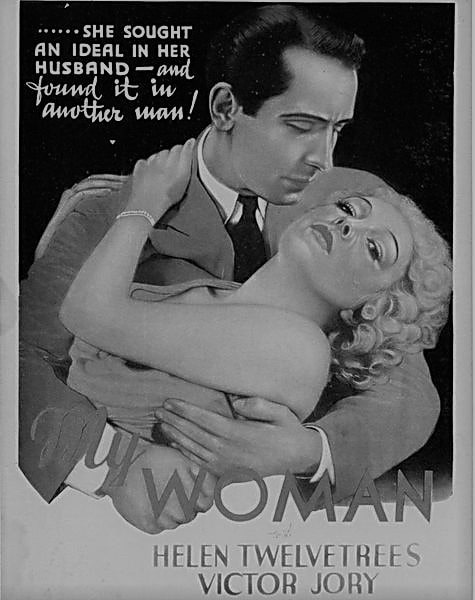 MY WOMAN (1933)
MY WOMAN (1933) (73 Min.) Genre: 1930 DRAMA, Transfer Quality: B
After suffering magnificently in picture after picture at RKO and Paramount, Helen Twelvetrees was subjected to even more agony in Columbia's My Woman. Twelvetrees is cast as Connie, the ever-lovin' wife of vaudeville hoofer Chick (Wallace Ford). After years of tanktowns and two-a-days, Chick finally hits it big as a radio star (adding what was then a "modern" twist to an old story). Success goes to his head almost immediately, whereupon he forgets all about Connie. Inevitably, Chick sabotages his own career, hits the skids, and begs forgiveness from his spouse. Present-day viewers might find it surprising that Connie would prefer the chronically unreliable Chick over her most ardent suitor, the cultured, soft-spoken radio executive Mr. Bradley (Victor Jory in a rare sympathetic role).
Starring: Helen Twelvetrees, Victor Jory, Wallace Ford, Claire Dodd | Directed by: Victor Schertzinger
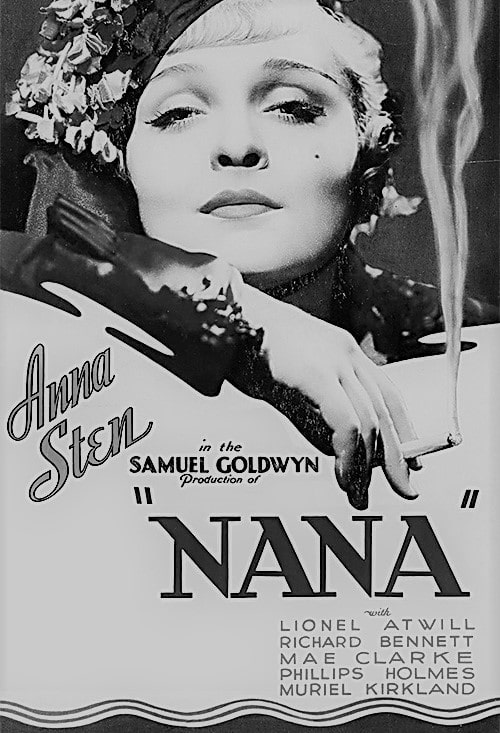 NANA (1934)
NANA (1934) (89 Min.) Genre: 1930 DRAMA, Transfer Quality: B
In this handsomely-staged adaptation of the story by Emile Zola, Anna Sten plays Nana, a woman of the streets who is spotted by noted theatrical producer Gaston Greiner (Richard Bennett). Greiner is so impressed by Nana's beauty that he gives her a part in his latest revue. Almost overnight, Nana is the toast of Paris and a star of the highest magnitude; however, fame and fortune brings her little happiness, as two brothers, Lt. George Muffat (Phillips Holmes) and Col. Andre Muffat (Lionel Atwill), both vie for her affections, leading to a bitter rivalry that ends in tragedy. Russian actress Anna Sten was brought to America as a protégé of producer Samuel Goldwyn, who sought to make Sten the "next Garbo." The resounding box office failure of Nana and Sten's next two vehicles led Goldwyn to drop her contract two years after bringing her to Hollywood, though she continued to work sporadically in films for another 25 years.
Starring: Anna Sten, Richard Bennett, Mae Clarke, Lionel Atwill | Directed by: Dorothy Arzner
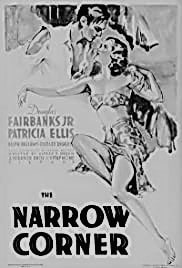 NARROW CORNER, THE (1933)
NARROW CORNER, THE (1933) (69 Min.) Genre: 1930 DRAMA, Transfer Quality: A
A Somerset Maugham story was adapted for The Narrow Corner, a film about Man's inability to escape his destiny. Douglas Fairbanks Jr. plays a fugitive from Australian justice, wanted for accidentally killing a man. He escapes to the East Indies in a ship rented by his father. Among the people Fairbanks meets and befriends are a scholar (Reginald Owen) and his daughter (Patricia Ellis). The fugitive falls in love with the girl, which prompts her fiance (the ever-jilted Ralph Bellamy) to commit suicide. Thus Fairbanks realizes that, by running from the consequences of his actions, he has brought misfortune to others. Narrow Corner was remade, with tighter censorship restrictions in effect, as Isle of Fury (36). — Hal Erickson
Starring: Douglas Fairbanks, Jr., Patricia Ellis, Dudley Digges, Ralph Bellamy | Directed by: Alfred E. Green
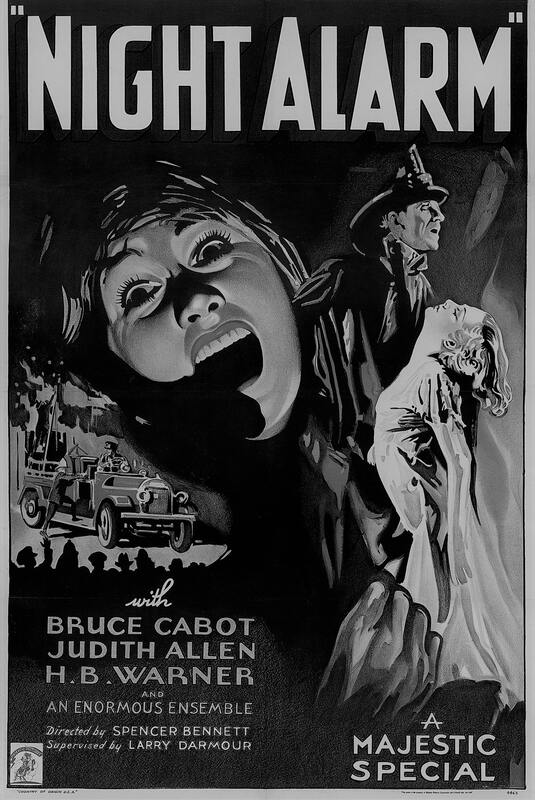 NIGHT ALARM (1934)
NIGHT ALARM (1934) (65 Min.) Genre: 1930 DRAMA, Transfer Quality: B
In this newspaper drama, a reporter known for criticizing the top city official has his column taken over by the man's daughter. As a farewell, he writes a huge attack on the man, causing friction between him and the daughter. But he rescues her when she is trapped in a fire at her father's paper factory.
Starring: Bruce Cabot, Judith Allen, H.B. Warner, Sam Hardy | Directed by: Spencer Gordon Bennet
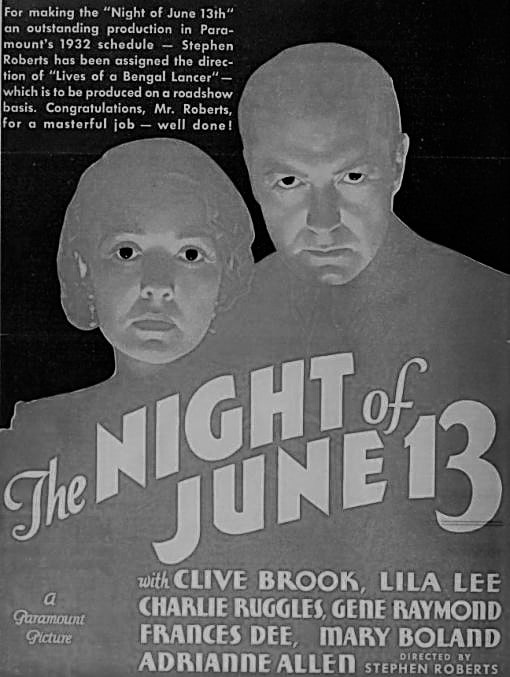 NIGHT OF JUNE 13TH, THE (1932)
NIGHT OF JUNE 13TH, THE (1932) (70 Min.) Genre: 1930 DRAMA, Transfer Quality: B
A multi-character drama set in a suburban neighborhood, The Night of June 13th takes place in four households. One of these is inhabited by unhappy husband Clive Brook, who is accused of murdering his wife. Actually, she has committed suicide, but those neighbors who could provide Brook with an alibi remain silent for selfish reasons of their own. Leavening the dramatic content is the comedy relief of Mary Boland and Charlie Ruggles as a married couple with in-law problems. Brook is saved at the last minute by an elderly neighbor who blasts the cowardice of the other suburbanites.
Starring: Clive Brook, Lila Lee, Charlie Ruggles, Gene Raymond | Directed by: Stephen R. Roberts
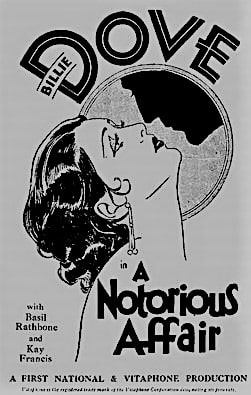 NOTORIOUS AFFAIR, A (1930)
NOTORIOUS AFFAIR, A (1930) (70 Min.) Genre: 1930 DRAMA, Transfer Quality: A
The sacrifice of a socialite is chronicled in this romantic drama. To be with her beloved musician, the wealthy woman gives up her wealth and social standing. Tragedy ensues when she discovers that he is having an affair with another noblewoman causing her to take up again with an old flame. When her music man becomes terribly ill, she returns to his side to help him back to health. He is so impressed by her caring and devotion that he swears he will never stray again.
Starring: Billie Dove, Basil Rathbone, Kay Francis, Montagu Love, Philip Strange | Directed by: loyd Bacon
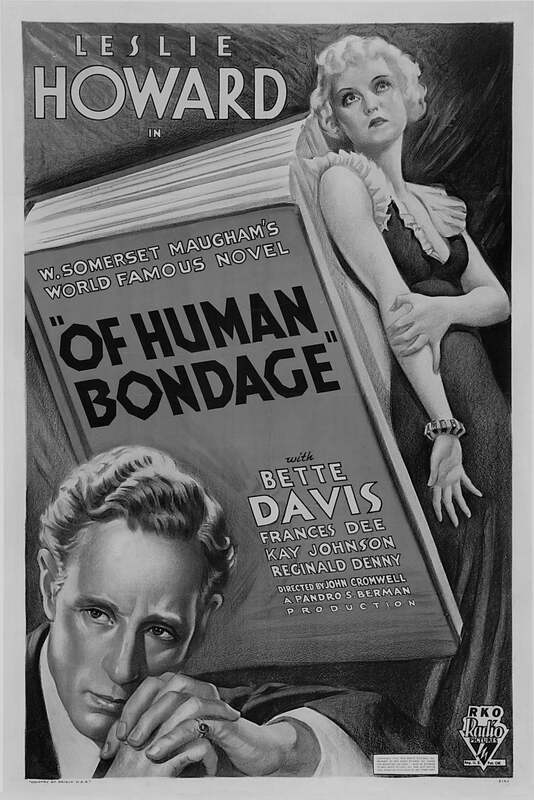 OF HUMAN BONDAGE (1934)
OF HUMAN BONDAGE (1934) (83 Min.) Genre: 1930 DRAMA, Transfer Quality: A
The first of three film versions of Somerset Maugham's Of Human Bondage stars Leslie Howard as sensitive, clubfooted artist-cum-med student Philip Carey. Despite his yearnings for the finer things in life, Carey cannot extricate himself from a mutually destructive relationship with sluttish waitress Mildred Rogers (Bette Davis). After an incredible series of emotional disasters, Carey finally finds happiness in the arms of Sally Altheny (Frances Dee). The industry buzz in 1934 indicated that Bette Davis was a shoe-in for an Academy Award for her savage portrayal of Mildred, but her home studio Warner Bros. failed to mount an adequate publicity campaign on Davis' behalf, allegedly because she'd made the film on loan-out to RKO and Warners wasn't about to heap praise upon a rival. It is now generally conceded that Davis' Oscar win for 1935's Dangerous was consolation for her losing the statuette in 1934. Long out of circulation due to the 1946 remake, the 1934 Of Human Bondage has since slipped into the public domain, and is now seen more often than either of the subsequent remakes (the last was in 1964). — Hal Erickson
Starring: Leslie Howard, Bette Davis, Frances Dee, Kay Johnson | Directed by: John Cromwell
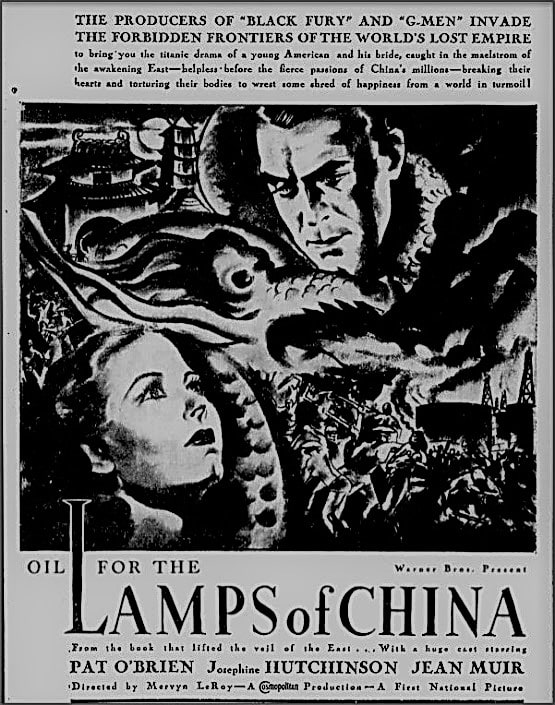 OIL FOR THE LAMPS OF CHINA (1935)
OIL FOR THE LAMPS OF CHINA (1935) (110 Min.) Genre: 1930 DRAMA, Transfer Quality: A
This drama about corporate treachery was based on the best-selling novel by Alice Tisdale Hobart. Stephen Chase (Pat O'Brien) is a salesman and inventor with an American oil company who is sent to China to reach that nation's untapped market. While Stephen is often told that his company looks after their own and he's selflessly devoted to his job, it becomes evident with time that they're treating him with disrespect. After his fiancée leaves him, Stephen marries a woman he's only just met, Hester (Josephine Hutchinson), because he's already arranged to bring a wife to China. Stephen has designed a new kerosene lamp for the Chinese market, but his rival Swaley (William B. Davidson) is given credit for the product. When Stephen is transferred to another part of China, he accepts even though his wife is expecting a baby; the physical toll of the journey causes Hester to lose the child. Stephen and Hester become close to another American couple, Don and Alice Wellman (John Eldredge and Jean Muir), but when Stephen is ordered to fire Don, he unhesitatingly agrees. After communist forces nationalize the oil firm's holdings, Stephen risks his life to protect $15,000 in company funds. But when he is released from the hospital, Stephen learns that instead of being rewarded, he's been demoted — and another man was promoted in his place. — Mark Deming
Starring: Pat O'Brien, Josephine Hutchinson, Jean Muir, Lyle Talbot | Directed by: Mervyn LeRoy
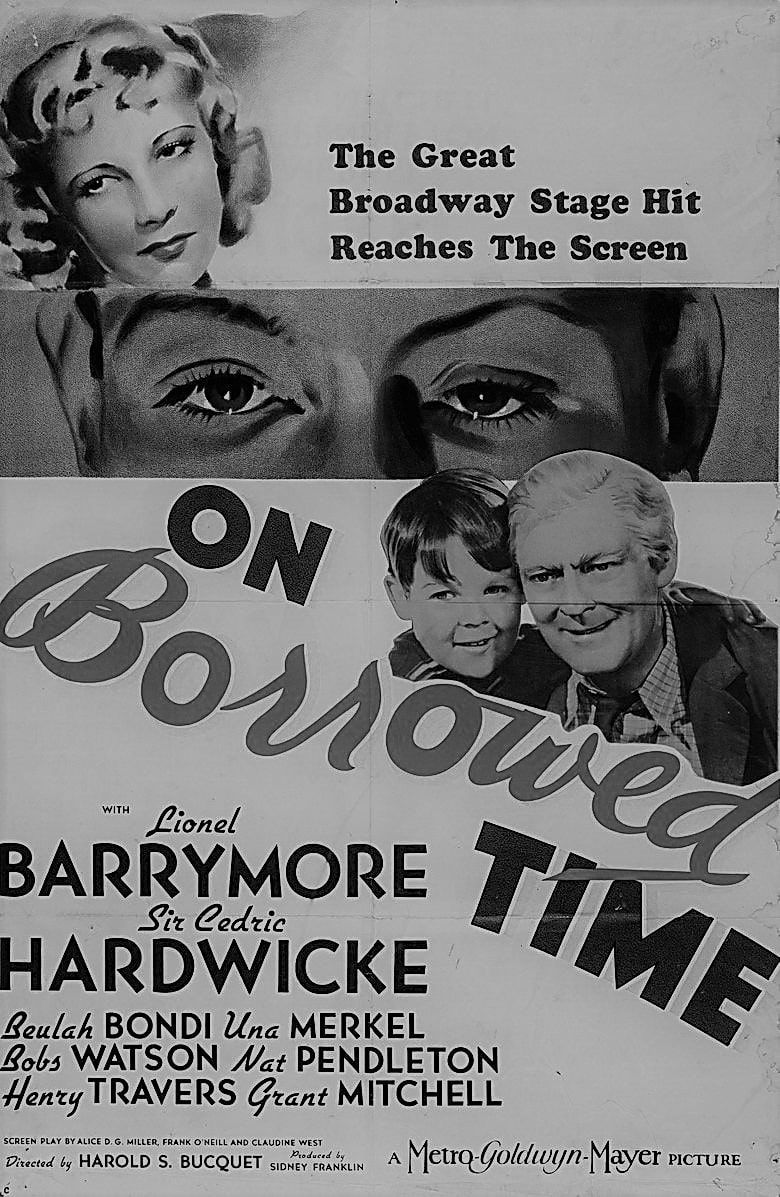 ON BORROWED TIME (1939)
ON BORROWED TIME (1939) (99 Min.) Genre: 1930 DRAMA, Transfer Quality: A
Old Gramps (Lionel Barrymore) is not about to go gentle into that good night when Mr. Brink (Cedric Hardwicke), who sometimes travels under the name of the Grim Reaper, comes calling. Through a ruse, Gramps chases Brink up a tree in his garden, rendering the mysterious stranger helpless. As a result, no one dies throughout the world, and disease and misery runs rampant. Dispassionately, Mr. Brink decides to "reach" Gramps through his beloved grandson (Bobs Watson). He talks the boy into climbing the tree and then suffering a crippling fall. Realizing that the only way he can stem his grandson's pain is by surrendering to Mr. Brink, Gramps does so—and discovers that Crossing Over wasn't as painful as he thought. Together with his grandson, who has likewise expired, Gramps joyfully strolls into a most pastoral-looking Heaven. The final shots of Lionel Barrymore walking into Paradise under his own power represent a triumph of misdirection and special effects. In truth, the wheelchair-confined Barrymore was placed on a treadmill, and merely simulated his walking movements as a process screen enhanced the illusion; for long shots, a double was used. While Barrymore's performance naturally dominates On Borrowed Time, Cedric Hardwicke is equally effective in the role of Mr. Brink (his favorite role). A great early vignette finds a consumptive motorist (Hans Conried) offering Brink a lift; the latter waves the motorist on, politely saying "No, not yet." On Borrowed Time was based on the novel by Lawrence Edward Watkin and the popular Broadway play version by Paul Osborne. — Hal Erickson
Starring: Lionel Barrymore, Cedric Hardwicke, Una Merkel, Beulah Bondi | Directed by: Harold S. Bucquet
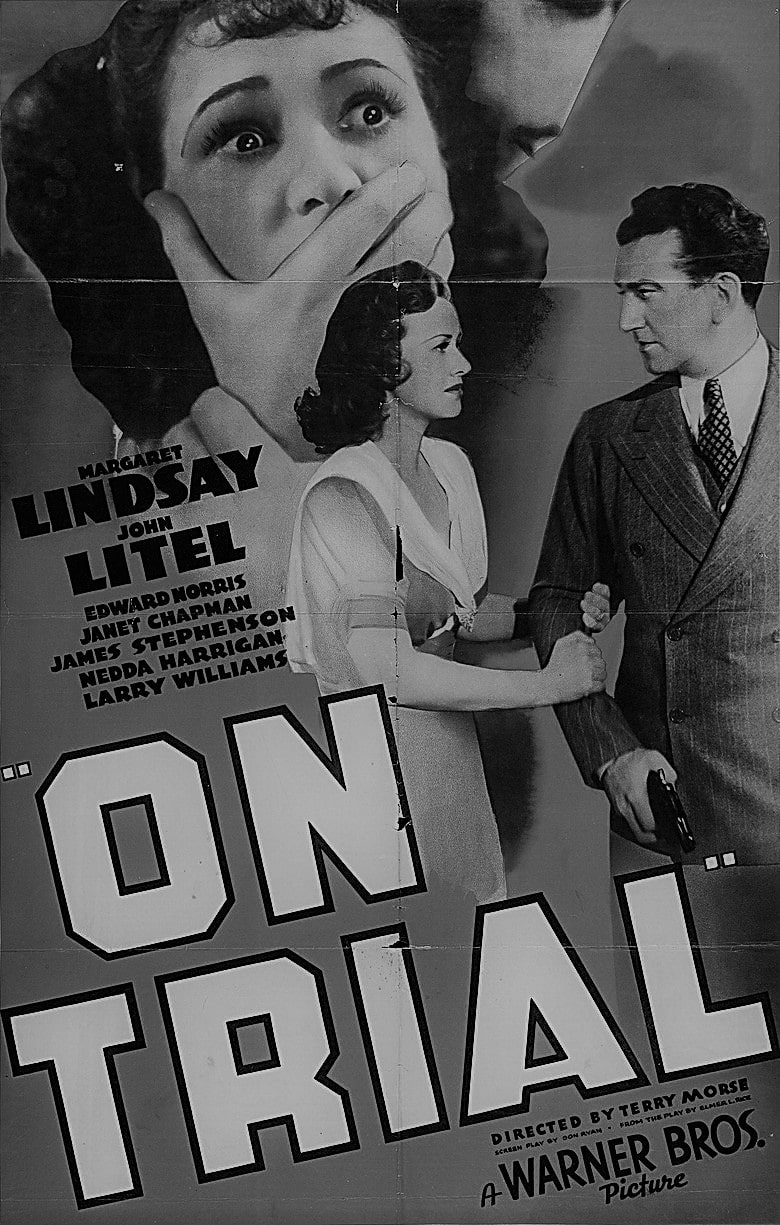 ON TRIAL (1939)
ON TRIAL (1939) (61 Min.) Genre: 1930 DRAMA, Transfer Quality: B
This second film version of Elmer Rice's play On Trial stars Edward Norris as a green lawyer on his first case. He is assigned to defend alleged killer John Litel, who makes Norris' job doubly hard by refusing to defend himself. Through flashbacks, Norris discovers the reason behind Litel's recalcitrance. The young attorney also reunites the convicted man with his missing wife (Margaret Lindsay) and his little daughter (Janet Chapman). The original Broadway production of On Trial gained a near-legendary reputation through its ground breaking use of flashbacks and its surprise ending; these elements aren't quite as innovative in the film version, but they still retain their effectiveness.
Starring: John Litel, Margaret Lindsay, Edward Norris, Janet Chapman | Directed by: Terrell O. Morse
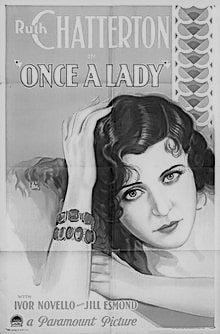 ONCE A LADY (1931)
ONCE A LADY (1931) (80 Min.) Genre: 1930 DRAMA, Transfer Quality: B
In this drama, a Russian woman marries a British aristocrat, bears him a daughter, and is forced to abandon them by his snooty family when he decides to run for Parliament because constituents would disapprove of her eccentric Russian ways. The poor wife moves to Paris and many years pass. The daughter travels to Paris, and there unknowingly meets her mother who gives her some sage advice when the young woman falls in love with a man her father disapproves of.
Starring: Ruth Chatterton, Ivor Novello, Jill Esmond, Geoffrey Kerr | Directed by: Guthrie McClintic
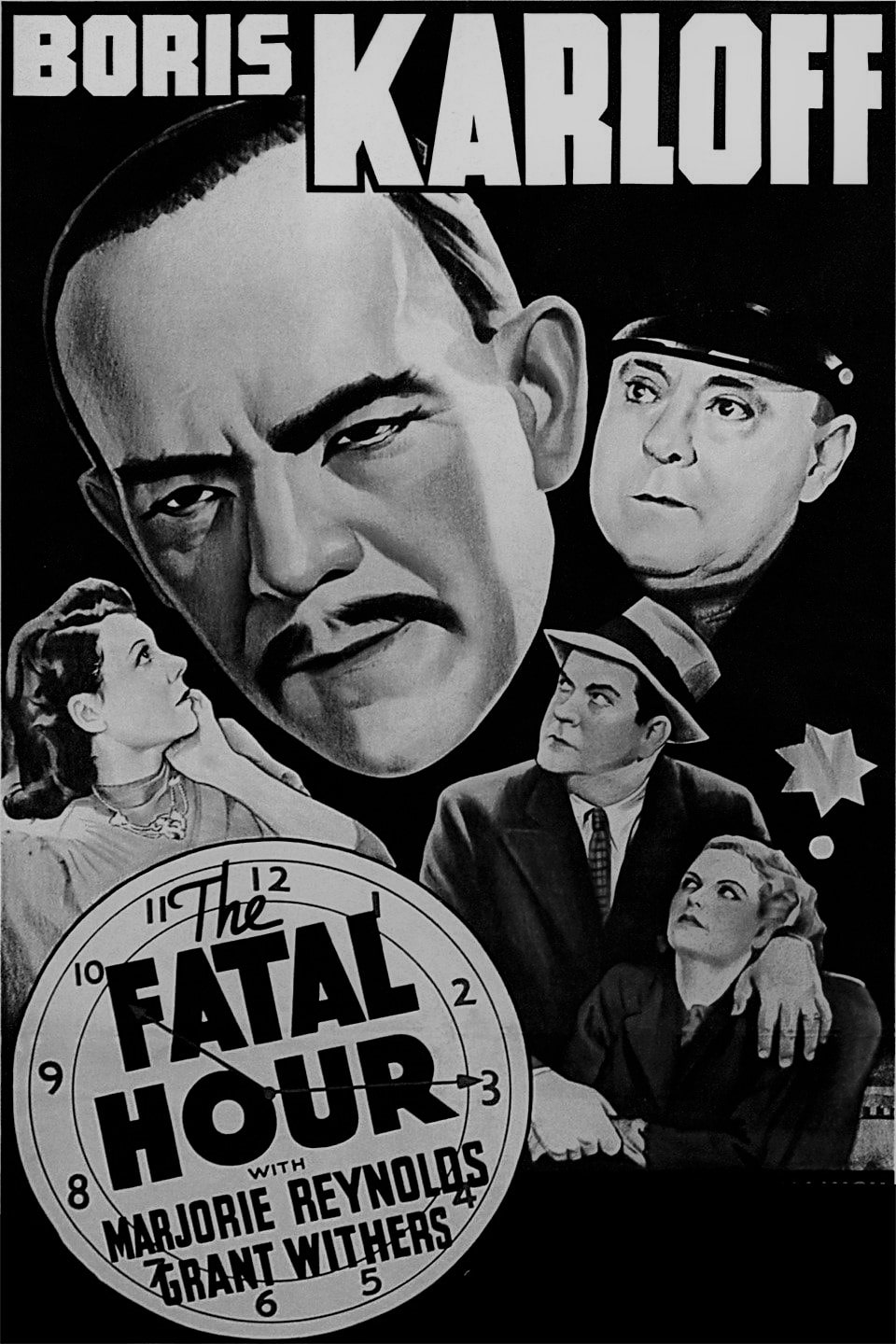 ONE FATAL HOUR (1936)
ONE FATAL HOUR (1936) (64 Min.) Genre: 1930 DRAMA, Transfer Quality: A
This drama is set at a struggling radio station. To drum up more listeners, the station owner dredges up an old mystery and tells her announcer to make it into a serial. He and his secretary are against the idea because the story is true. The broadcasts create problems for the woman originally acquitted of the charge. Over the last two decades, she has married and raised a daughter who is getting ready to marry the son of a prominent industrialist. The airing of her mother's old dirty laundry threatens to destroy her upcoming nuptials. The mother and her husband are so distraught that they kill themselves. The bereaved daughter, blaming the radio station for her parents' demise, goes there to kill the announcer. Her fiancé follows and mayhem ensues. The story is also called One Fatal Hour. — Sandra Brennan
Starring: Humphrey Bogart, Beverly Roberts, Linda Perry, Carlyle Moore, Jr. | Directed by: William McGann
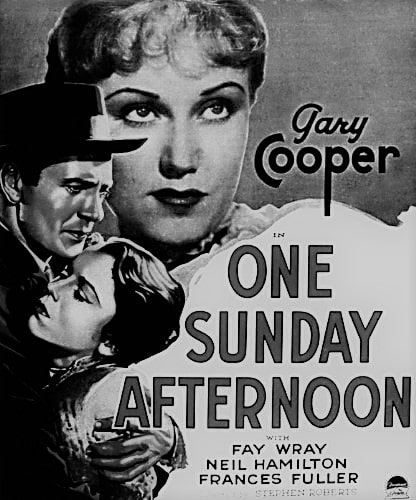 ONE SUNDAY AFTERNOON (1933)
ONE SUNDAY AFTERNOON (1933) (69 Min.) Genre: 1930 DRAMA, Transfer Quality: A
Gary Cooper is a small town dentist dissatisfied with his lot. Though married to the lovely and affectionate Frances Fuller, Cooper still carries a torch for his former sweetheart, Fay Wray. Years earlier, Cooper had lost Wray to his old friend Neil Hamilton, and is consumed with the desire to get even with his rival. The now-wealthy Hamilton comes to visit Cooper, with Wray in tow. Seeking to rekindle his old romance, Cooper discovers that Wray has become cruel and hard, and has made the "lucky" Hamilton's life miserable. Realizing that he'd married the right girl all along, Cooper embraces his loving wife. Based on the stage play by James Hagan (which starred Lloyd Nolan on Broadway), One Sunday Afternoon was remade with James Cagney as Strawberry Blonde (41), then reworked as a musical with Dennis Morgan under its original title in 1948. — Hal Erickson
Starring: Gary Cooper, Fay Wray, Neil Hamilton, Francis Fuller | Directed by: Stephan Roberts
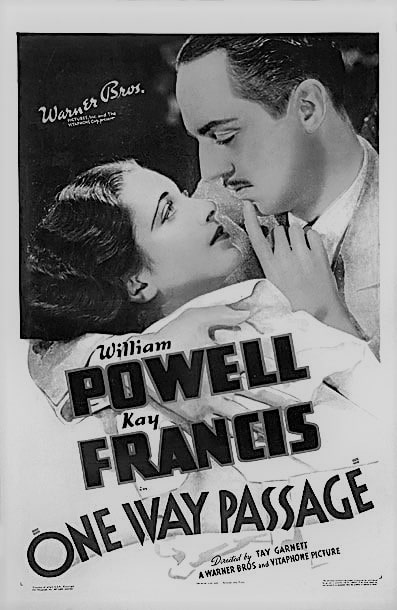 ONE WAY PASSAGE (1932)
ONE WAY PASSAGE (1932) (69 Min.) Genre: 1930 DRAMA, Transfer Quality: A
William Powell plays a condemned murderer who is being transported from Hong Kong to San Quentin by way of a luxury liner. Also on board is the lovely Kay Francis, who is suffering from a fatal heart condition. The sympathetic detective (Warren Hymer) escorting Powell allows the prisoner to roam the decks without handcuffs, an opportunity Powell exploits by arranging an escape with two of his old cronies (Frank McHugh and Aline MacMahon). But when he meets Francis, Powell falls in love. Francis is equally smitten, and the two conduct an exquisite shipboard affair, neither telling the other of their impending doom. Powell makes his escape, but is halted in mid-flight when Francis has a heart attack. He rushes Francis back on board ship to her doctor, knowing full well that this will mean his recapture. As they bid goodbye, Powell and Francis promise to meet again one year later in Agua Caliente—a rendezvous that neither will survive to keep. A year passes. At a bar in Agua Caliente, two cocktail glasses suddenly shatter, as if having been joined in a toast by unseen hands. One Way Passage was remade in 1940 as 'Til We Meet Again. — Hal Erickson
Starring: William Powell, Kay Francis, Frank McHugh, Aline MacMahon | Directed by: Tay Garnett
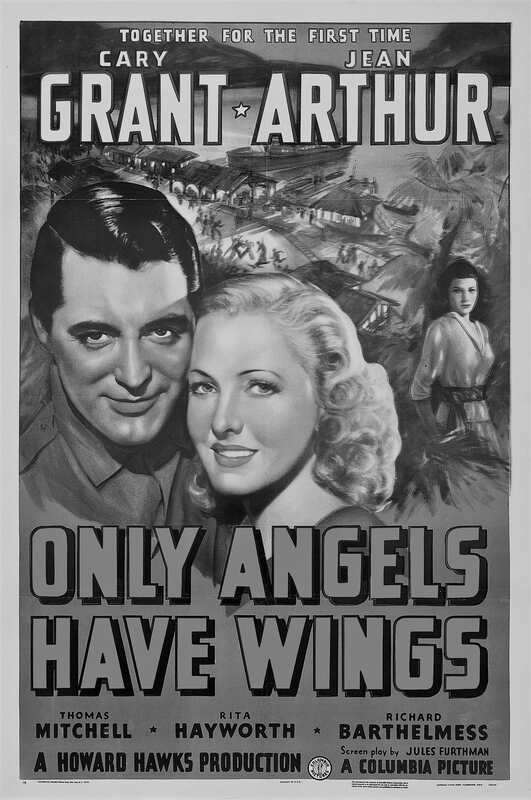 ONLY ANGELS HAVE WINGS (1939)
ONLY ANGELS HAVE WINGS (1939) (123 Min.) Genre: 1930 DRAMA, Transfer Quality: A
Virtually a textbook example of Howard Hawks' "macho" mode, Only Angels Have Wings takes place high in the Peruvian Andes. Cary Grant heads a ramshackle airmail and freight service, forced to fly in the most perilous of weather conditions to the most treacherous of destinations. Facing death on a near-hourly basis, Grant and his flyers have adopted a casual, all-in-day's-work attitude towards mortality. If a pilot cracks up and dies, it's simply because he didn't have what it took, and that's that. Stranded showgirl Jean Arthur can't stand this cavalier attitude at first, but before long she becomes, in true Hawksian fashion, "one of the guys". Complicating the story is the presence of Richard Barthelmess, who has been persona non grata with the other pilots ever since his carelessness cost the life of one of their number. In addition to a surfeit of guilt, Barthelmess is saddled with a faithless wife, played by Rita Hayworth in her first important A-picture role. Hayworth makes a play for Grant, but he spurns her, finally realizing that, in spite of himself, he's in love with Arthur. Grant himself is riddled with guilt when near-blind pilot Thomas Mitchell insists upon taking on one final flight. Having lost his best friend, Grant drops his hard-bitten shell, and for the first time opens himself up emotionally to Arthur-which of course leads to a nail-biting climax wherein Arthur suffers mightily as Grant faces certain death. Scripted by Jules Furthman from a story by Hawks, Only Angels Have Wings is a treasure trove of terse, pithy dialogue: our favorite scene occurs when, upon discovering that he's about to die, Thomas Mitchell says he's often wondered how he'd react to imminent death-and, now that death is but a few moments away, he'd rather that no one else be around to witness his reaction. Though sometimes laid low by obvious miniatures, the aerial scenes in Only Angels Have Wings are by and large first-rate, earning a first-ever "best special effects" Oscar nomination for Roy Davidson and Edwin C. Hahn. — Hal Erickson
Starring: Cary Grant, Jean Arthur, Rita Hayworth, Richard Barthelmess | Directed by: Howard Hawks
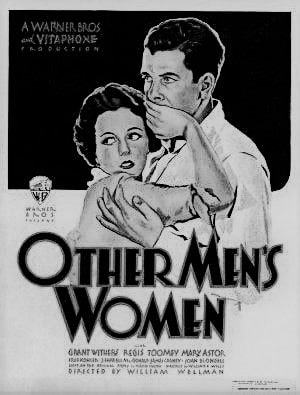 OTHER MEN'S WOMEN (1931)
OTHER MEN'S WOMEN (1931) (70 Min.) Genre: 1930 DRAMA, Transfer Quality: A
William A. Wellman's triangle melodrama "The Steel Highway" — a title referring to the film's railroad setting — was changed to the more suggestive Other Men's Women shortly before it's April 19, 1931 New York premiere. Grant Withers and Regis Toomey played lifelong friends and co-workers in love with the same woman, Mary Astor). She, unfortunately, is also Toomey's wife and the two friends have a blow-out on the job. The train derails and Toomey is blinded for life. When the river floods, the repentant Withers concocts a scheme to save an important railroad bridge by driving his engine across, thus stabilizing the construction. Believing his blindness makes him a burden to Astor, Toomey sacrifices himself instead. The ploy fails and Toomey is killed. Toomey and Astor, who had replaced James Hall and Marian Nixon, and Grant Withers were all fine under Wellman's crisp direction but the film was stolen outright by supporting players James Cagney and Joan Blondell, the latter as Wither's former girlfriend. With typical pre-production code frankness, Blondell's tough-talking waitress advises a fresh customer that she is "A.P.O." What does this "A.P.O. means?" the customer asks. Blondell: "Ain't puttin' out!" Blondell and Cagney, who had appeared together in the Broadway play Penny Arcade and its subsequent film version, Sinner's Holiday (1930), would reach stardom in their third film together, the gangster classic The Public Enemy (1931). Overly static at times, Other Men's Women was livened considerably by the climactic bridge collapse, a successful use of miniatures. — Hans J. Wollstein
Starring: Grant Withers, Mary Astor, Regis Toomey, James Cagney, Joan Blondell | Directed by: William Wellman
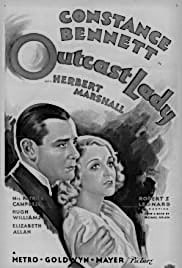 OUTCAST LADY (1934)
OUTCAST LADY (1934) (80 Min.) Genre: 1930 DRAMA, Transfer Quality: A
Outcast Lady is a heavily censored version of Michael Arlen's once-notorious novel The Green Hat, previously filmed by Greta Garbo as A Woman of Affairs. Constance Bennett is Iris March, a woman cursed by her beauty, doomed to drive everyone around her — including herself — to destruction. When her new husband Boy Fenwick (Ralph Forbes) commits suicide on their wedding night, Iris, who's been unfaithful to him, is held responsible, especially when the reason for Fenwick's demise is kept a secret by his snobbish family (He had contacted syphilis in the Arlen original; in the film, he fears exposure of a previous prison term). Realizing that she has brought nothing but sorrow to the Fenwick family, Iris nobly steps into her fashionable touring car and smashes it into a tree. Oddly enough, Iris' death is amusing in retrospect, inasmuch as Constance Bennett would suffer a similar demise at the beginning of 1937's Topper, thereby allowing her to cavort through the rest of the picture as a ghost. — Hal Erickson
Starring: Constance Bennett, Herbert Marshall, Mrs. Patrick Campbell, Hugh Williams | Directed by: Robert Z. Leonard
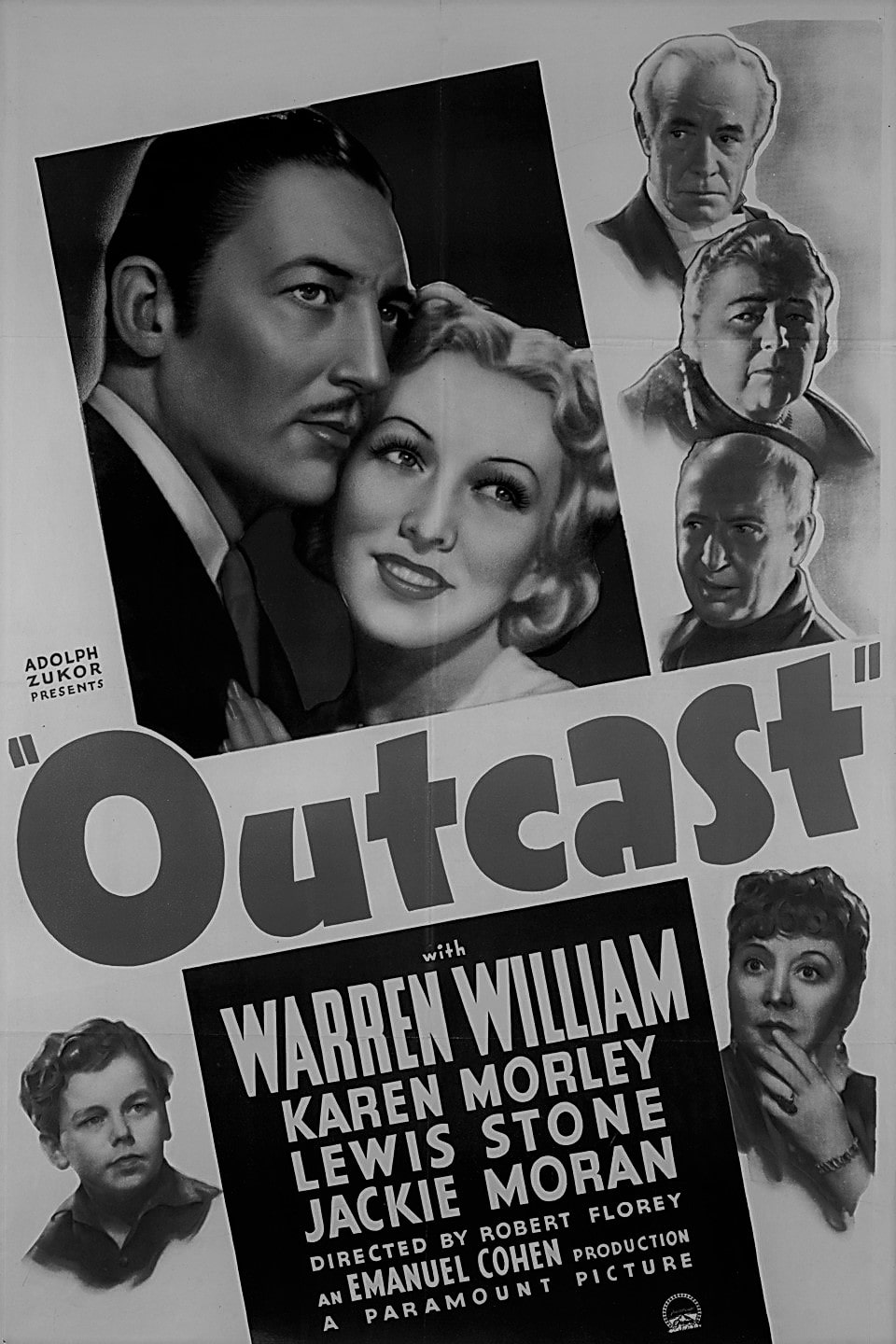 OUTCAST, THE (1937)
OUTCAST, THE (1937) (77 Min.) Genre: 1930 DRAMA, Transfer Quality: B
Warren William stars as Dr. Phillip Wendel Jones, a doctor whose patient dies under questionable circumstances. He is acquitted of murder, but is discredited in the eyes of his community. Dr. Jones settles in another town under an assumed name, where he sets up practice and falls in love with Margaret Stevens (Karen Morley). When his past is revealed, Dr. Jones is rescued from a angry mob by cantankerous old lawyer Anthony Abbott (Lewis Stone). The Outcast is a minor entry given major treatment through the ever-fascinating direction of Robert Florey.
Starring: Warren William, Karen Morley, Richard Carle, Jackie Moran | Directed by: Robert Florey
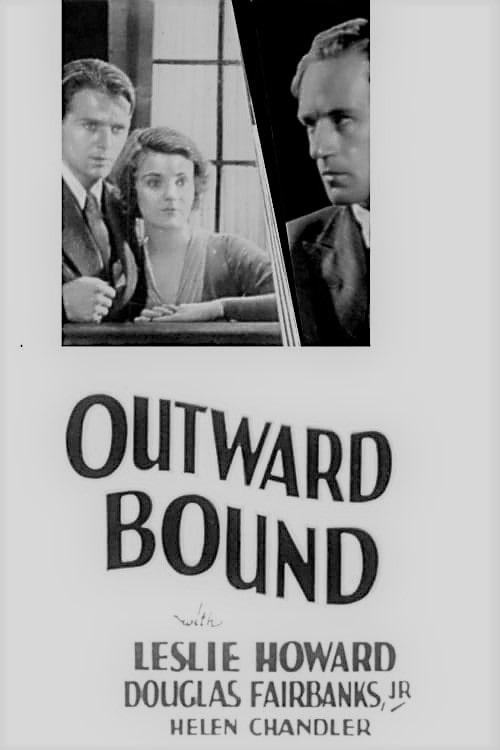 OUTWARD BOUND (1930)
OUTWARD BOUND (1930) (83 Min.) Genre: 1930 DRAMA, Transfer Quality: A
This unusual supernatural drama, based on a 1924 Broadway stage hit, concerns a disparate group of people who find themselves sailing to an unknown destination on a ship constantly shrouded in fog. Tom Prior (Leslie Howard) discovers that he's travelling with his ex-boss Mr. Lingley (Montagu Love); Mrs. Cliveden-Banks (Alice Skipworth) chats with the steward Scrubby (Alec B. Francis); Mrs. Midget (Beryl Mercer) is curious about how her son is doing; and a young couple, Henry (Douglas Fairbanks, Jr.) and Ann (Helen Chandler), wonder if they'll be together forever. In time, the passengers slowly realize what's going on — they're in limbo between this life and the next, and Thompson (Dudley Digges), the "examiner," is determining what will happen with them in the next world, except for Henry and Ann, who unsuccessfully committed suicide and now hover between life and death. Outward Bound was later remade as Between Two Worlds, and again as The Flight that Disappeared. — Mark Deming
Starring: Leslie Howard, Douglas Fairbanks, Jr., Beryl Mercer, Dudley Digges | Directed by: Robert Milton
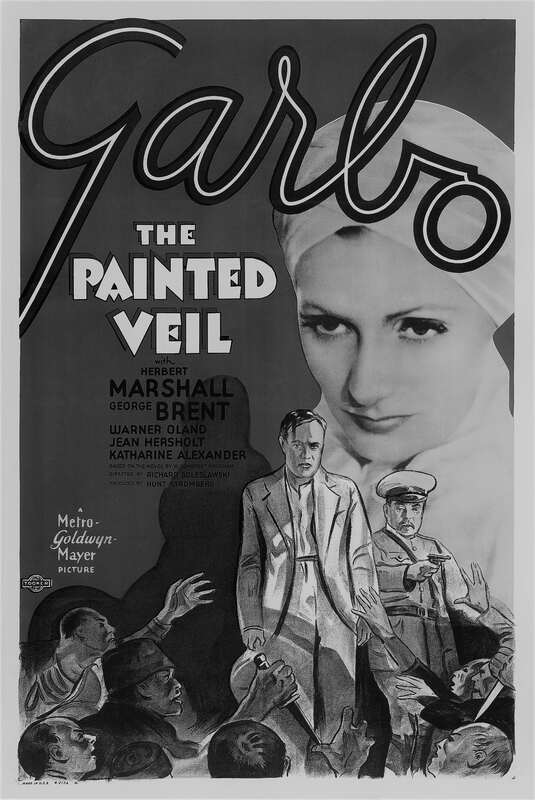 PAINTED VEIL, THE (1934)
PAINTED VEIL, THE (1934) (83 Min.) Genre: 1930 DRAMA, Transfer Quality: A
A W. Somerset Maugham novel was the source for the fair-to-middling Greta Garbo vehicle The Painted Veil. In a situation comparable to the plotlines of most of her silent films, Garbo is lovelessly married to Herbert Marshall, but carries a flaming torch for George Brent (also harking back to Garbo's silent days is the fact that neither one of the men in her life is particularly interesting!) Marshall, a brilliant physician, is compelled to go into the interior regions of China to quell a cholera epidemic. He knows that Garbo has been having an affair with politician Brent, and chivalrously gives her the choice of remaining with Brent or accompanying him. Fearing a scandal, Brent bids farewell to Garbo. Once they're in the midst of the epidemic, Garbo tirelessly works by her husband's side; eventually she falls in love with him for the first time. Seriously injured in a peasant uprising, Marshall hovers near death. Brent reappears, offering to take Garbo back with him. She refuses, electing to stay with her husband no matter what the future brings. Among the supporting players in The Painted Veil are Warner Oland and Keye Luke, one year away from their memorable pairing in Fox's Charlie Chan films. — Hal Erickson
Starring: Greta Garbo, Herbert Marshall, George Brent, Warner Oland | Directed by: Richard Boleslawski
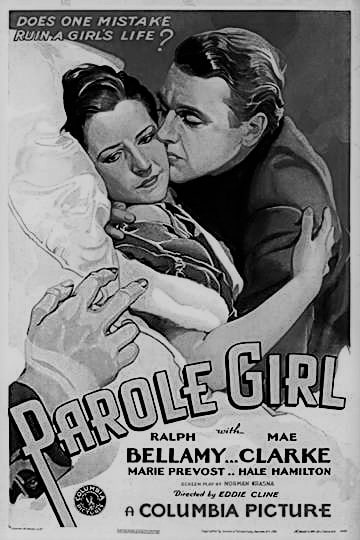 PAROLE GIRL (1933)
PAROLE GIRL (1933) (67 Min.) Genre: 1930 DRAMA, Transfer Quality: B
In this romantic drama, a woman inadvertently assists a con artist in his scheme to rob a store manager and ends up in prison. After helping to put out the very fire she herself started in the prison shop, the woman receives early parole and heads back to the con-artist. She then returns to the store manager to make peace, but finds herself falling in love with him. Unfortunately their affair is interrupted when the manager's wife is also sprung from prison. The girl immediately bows out, but when the wife tells him that she divorced him in prison, the girl comes running back, and happiness ensues.
Starring: Mae Clarke, Ralph Bellamy, Marie Prevost, Hale Hamilton | Directed by: Edward F. Cline
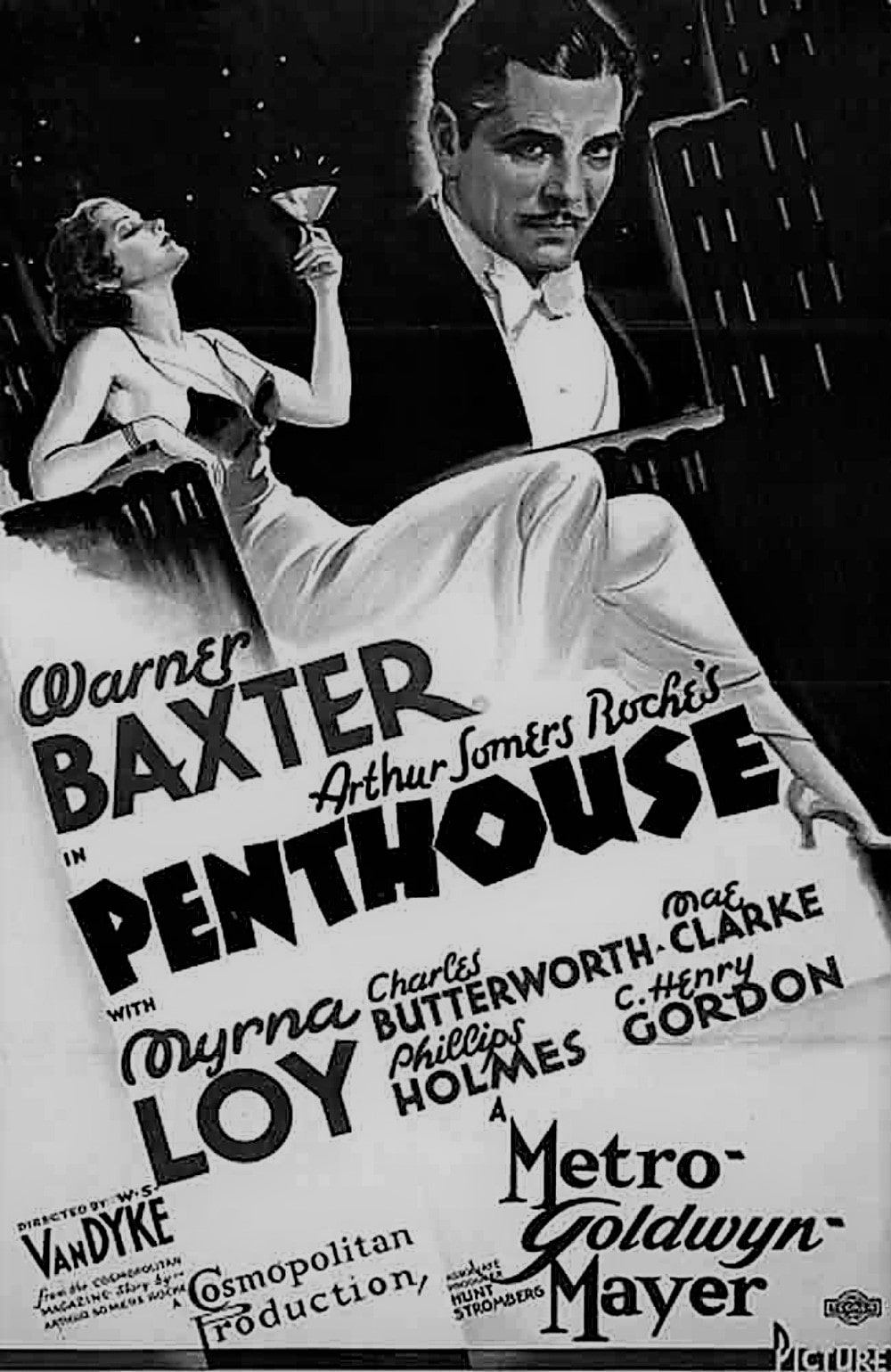 PENTHOUSE (1933)
PENTHOUSE (1933) (90 Min.) Genre: 1930 DRAMA, Transfer Quality: A
Society-lawyer Warner Baxter loses his prestige in the legal community when he successfully defends gangster boss Nat Pendleton. Later on, the soft-hearted Pendleton gets the opportunity to "do right" by saving Baxter's life. This redemptive move comes at the end of a complicated plot involving Baxter's efforts to save Phillips Holmes, who has been framed by nasty mobster C. Henry Gordon, from the hot seat. He is aided in this effort by Gordon's former mistress Myrna Loy, who has all of the film's best lines (When her protecter Baxter falls asleep on a couch, Loy complains "A few more nights like this and I'll be out of condition.") Also in the cast of Penthouse is crime-movie perennial Mae Clarke, here cast as the murder victim. Penthouse was later remade (and highly sanitized in the process) as Society Lawyer, with Walter Pidgeon in the Warner Baxter part. — Hal Erickson
Starring: Myrna Loy, Warner Baxter, Charles Butterworth, Mae Clarke | Directed by: W.S. Van Dyke
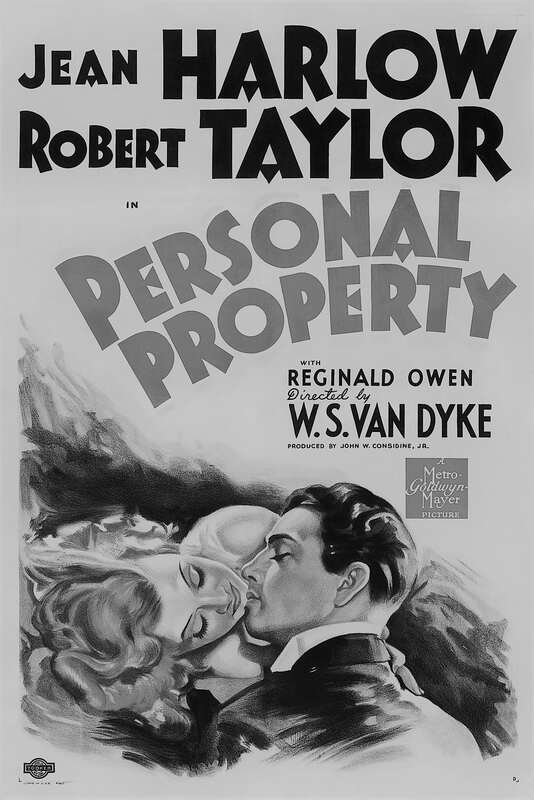 PERSONAL PROPERTY (1937)
PERSONAL PROPERTY (1937) (85 Min.) Genre: 1930 DRAMA, Transfer Quality: A
A golddigger finds that romance doesn't always equal finance in this comedy. Crystal Wetherby (Jean Harlow) is an American widow left stranded in London with a stack of debts incurred by her late husband and barely a shilling to her name. Raymond Dabney (Robert Taylor) is the black sheep of a formerly wealthy family who has just been released from prison for fraud and is looking for work. Crystal hires Raymond to watch over her home so that her creditors won't repossess her belongings; Raymond soon learns that Crystal is being courted by his brother Claude (Reginald Owen), much to Raymond's amusement, since both Crystal and Claude are motivated less by love than the mistaken belief that the other has money. However, Crystal and Raymond become increasingly fond of each other, even though they know they're both flat broke. The supporting cast features two of Old Hollywood's favorite U.K. expatriates, E.E. Clive and Una O'Connor. — Mark Deming
Starring: Jean Harlow, Robert Taylor, Reginald Owen, Una O'Connor | Directed by: W.S. Van Dyke
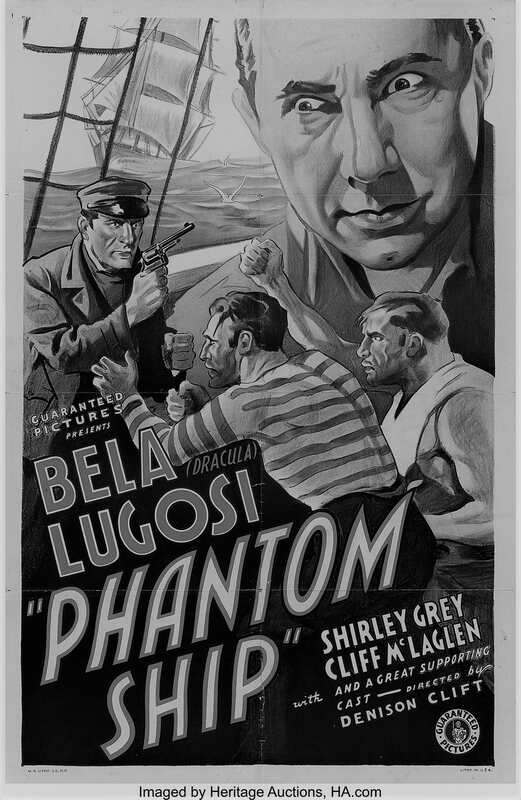 PHANTOM SHIP, THE (1935)
PHANTOM SHIP, THE (1935) (61 Min.) Genre: 1930 DRAMA, Transfer Quality: B
This chiller speculates upon a haunting real-life mystery that occurred off the English coast on December 5, 1872 where the American ship Marie Celeste was found drifting with her sails set at half-mast with absolutely no one on board. According to the film, the crewmen were murdered by captain Anton Lorenzen, whose lust for vengeance against a mutinous first mate six years before drives him insane. The film is also titled Mystery of the Marie Celeste. — Sandra Brennan
Starring: Bela Lugosi, Shirley Grey, Arthur Margetson, Edmund Willard | Directed by: Denison Clift
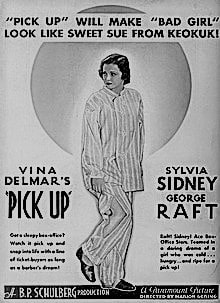 PICKUP (1933)
PICKUP (1933) (80 Min.) Genre: 1930 DRAMA, Transfer Quality: B
In this romantic drama, an ex-con conceals her criminal past and starts a new life with a kindly cab driver. Together, the two friends leave the city and move to the suburbs where she helps him set up an auto mechanic business. Though they are in love, they cannot marry for she is still legally the wife of her incarcerated ex-crime partner. Things get more sticky when a seductive socialite attempts to steal the cabbie from the ex-con. More trouble follows when her husband busts out of jail and she is blamed with helping him escape.
Starring: Sylvia Sidney, George Raft, William Harrigan, Lillian Bond | Directed by: Marion Gering
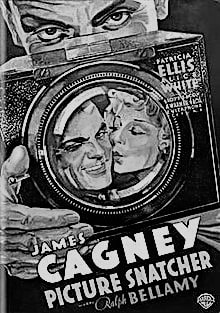 PICTURE SNATCHER (1933)
PICTURE SNATCHER (1933) (77 Min.) Genre: 1930 DRAMA, Transfer Quality: A
An admirably tough B-picture enlivened by an energetic James Cagney performance, Picture Snatcher stars Cagney as Danny Kean, a former gangster who has decided to go straight after a stretch in the big house. Danny has fallen for Patricia (Patricia Ellis), the daughter of the cop who put him away (Robert Emmett O'Connor). Dad isn't convinced that Danny has left his life of crime behind him, and he isn't too impressed with his new career taking pictures for a sleazy tabloid newspaper. Between getting a lurid photo of a fireman in front of a burning building (where his wife and her lover met their fate) and a daring shot of a woman being executed (based an actual incident when a New York Daily News photographer got a photo of Ruth Snyder in the electric chair), Danny's work is selling papers but hardly making Officer O'Connor think his daughter is in good hands (especially since he was in charge of press security for the execution). Short, sweet and sassy, Picture Snatcher is the sort of gutsy fare Warner Bros. did best in the 1930's; Ralph Bellamy turns in a great supporting performance as Danny's boozy editor. — Mark Deming
Starring: James Cagney, Ralph Bellamy, Alice White, Patricia Ellis | Directed by: Lloyd Bacon
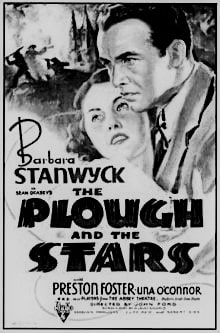 PLOUGH AND THE STARS, THE (1936)
PLOUGH AND THE STARS, THE (1936) (78 Min.) Genre: 1930 DRAMA, Transfer Quality: B
John Ford, whose fierce pride in his Irish heritage often manifested itself in his work, directed this historical drama which uses as its backdrop the 1916 Easter Rebellion of Irish patriots against British rule. Nora Clitheroe (Barbara Stanwyck) runs a rooming house in Dublin and tries to stay away from the political turmoil raging around her, so she becomes quite upset when she learns that her husband Jack (Preston S. Foster) has joined a militia of Irish rebels trying to drive out the British. Nora fears for Jack's safety and begs him to keep his distance from the revolutionary forces. Jack assures her that he'll step back from their activities, but it's not until it's too late that Nora learns that Jack has done just the opposite — and has become a commander with the Irish Citizen Army as they plan an ill-fated raid on the Dublin Post Office. John Ford had several bitter disputes with RKO Pictures while making The Plough and the Stars, especially after the studio re-shot several scenes with another director to tone down the film's politics; while he distributed several independent productions through the studio, he never shot another picture for RKO.
Starring: Barbara Stanwyck, Preston S. Foster, Barry Fitzgerald, Denis O'Dea | Directed by: John Ford
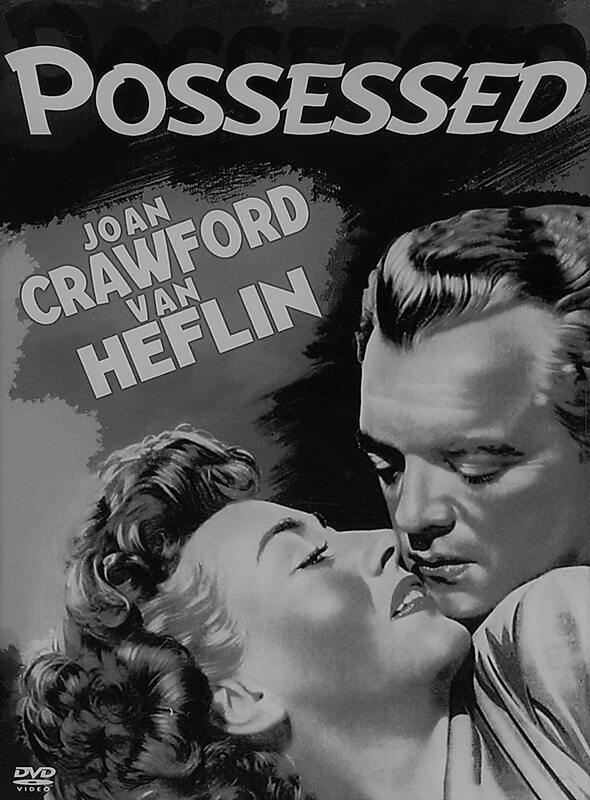 POSSESSED, THE (1931)
POSSESSED, THE (1931) (78 Min.) Genre: 1930 DRAMA, Transfer Quality: A
Joan Crawford is her usual upwardly mobile self in this melodrama co-starring Clark Gable. She plays Marian Martin, a cynical small-town girl determining to give up the idea of marriage. Kept by wealthy attorney Mark Whitney (Gable), Marian assumes a new identity as a divorced woman of the world, but her newfound life of luxury comes crashing down when Mark decides to run in the gubernatorial race. A rival leaks her real identity and Marian is forced to defend herself at one of Mark's election rallies. Her story brings the crowd to tears, however, and a relieved Mark proposes marriage. Based on a 1920 play by Edgar Selwyn, Possessed had been filmed previously in 1924 as The Mirage, a vehicle for silent star Florence Vidor. — Hans J. Wollstein
Starring: Joan Crawford, Clark Gable, Wallace Ford, Frank Conroy | Directed by: Clarence Brown
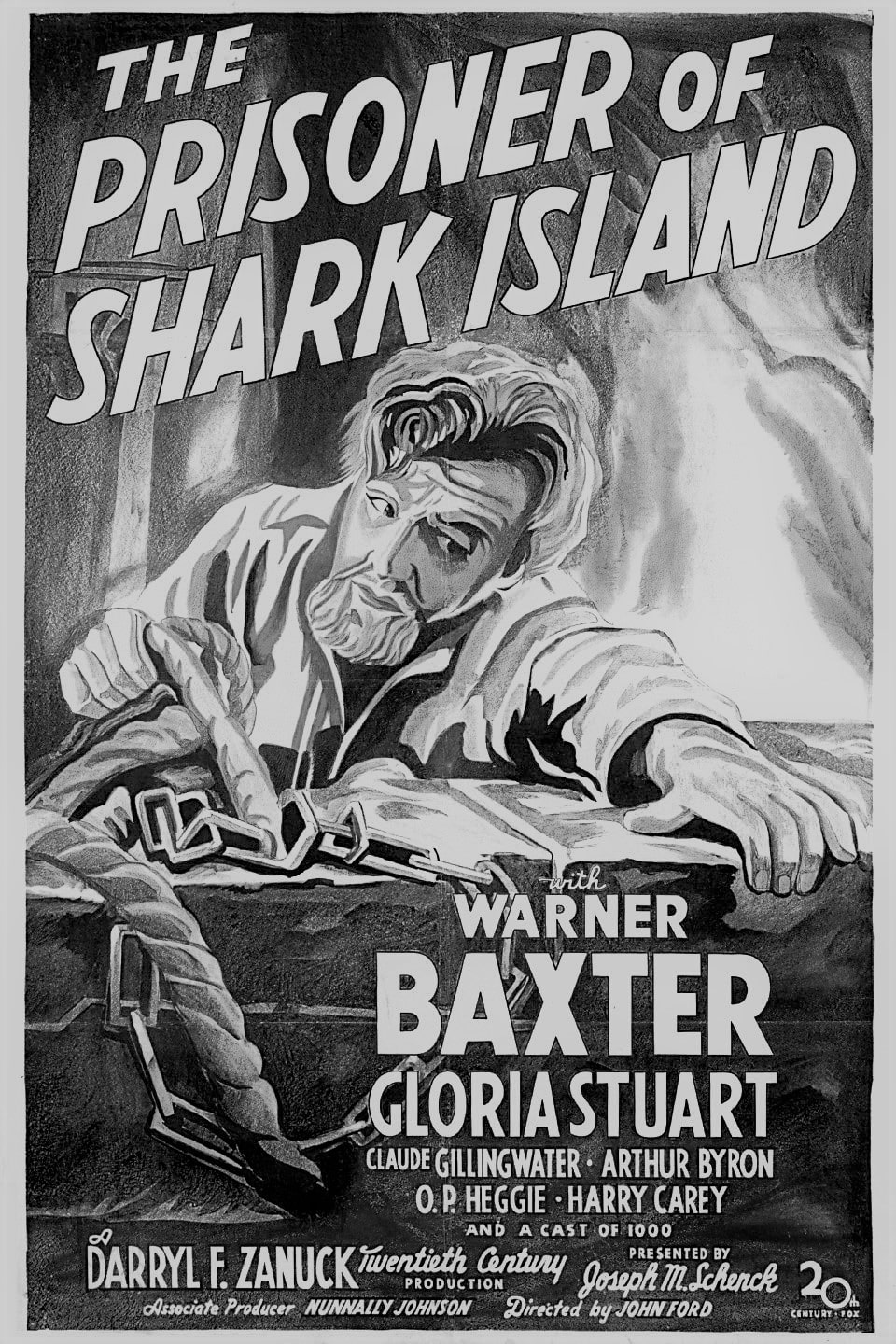 PRISONER OF SHARK ISLAND, THE (1936)
PRISONER OF SHARK ISLAND, THE (1936) (95 Min.) Genre: 1930 DRAMA, Transfer Quality: A
Warner Baxter plays Dr. Samuel Mudd, American history's most famous victim of circumstance. In 1865, Dr. Mudd, a known Confederate sympathizer, sets the broken leg of a mud-caked stranger who stumbles into his home. The injured man turns out to be John Wilkes Booth, and Mudd is accused of conspiring to murder President Lincoln. Sentenced to hang with the genuine conspirators, Mudd finds his sentence commuted to life imprisonment at the very last moment. He is shipped to Shark Island, a brutal penal colony. Subject to the cruelties of a guard (John Carradine) who hates Mudd because of his "complicity" in Lincoln's death, the doctor suffers the torments of the damned, while outside Shark Island his wife (Gloria Stuart) campaigns desperately to get her husband pardoned. During a Yellow Fever breakout on Shark Island, Dr. Mudd performs heroically to save the survivors. For his humanitarian efforts, Mudd is finally released and reunited with his wife. While the script glosses over the fact that Dr. Mudd had never been officially pardoned by the US government (the pardon wouldn't be granted until years after this film was made), Prisoner of Shark Island strives long and hard to exonerate the man for whom the phrase "your name is mud!" was coined. Dr. Samuel Mudd's story was retold in the 1952 feature Hellgate, with Sterling Hayden as a (fictional) doctor, and in the 1980 TV movie The Ordeal of Dr. Mudd, starring Dennis Weaver in the title role. — Hal Erickson
Starring: Warner Baxter, Gloria Stuart, John Carradine, Harry Carey | Directed by: John Ford
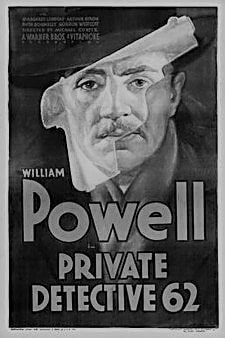 PRIVATE DETECTIVE 62 (1933)
PRIVATE DETECTIVE 62 (1933) (67 Min.) Genre: 1930 DRAMA, Transfer Quality: B
Romance throws a spanner into the works of a con game in this light drama. Donald Free (William Powell) is a private detective whose career in on the skids. Dan Hogan (Arthur Holh) is another, less scrupulous shamus who persuades Free to help him frame Janet Reynolds (Margaret Lindsay), a wealthy woman with a taste for gambling living in Paris. Free goes along with the scheme, but things become complicated when he begins falling in love with her.
Starring: William Powell, Margaret Lindsay, Ruth Donnelly, Gordon Westcott | Directed by: Michael Curtiz
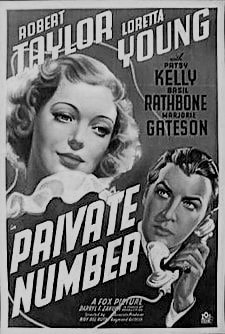 PRIVATE NUMBER (1936)
PRIVATE NUMBER (1936) (80 Min.) Genre: 1930 DRAMA, Transfer Quality: A
Private Number is the old saw about the wealthy young man who marries his family's serving girl. This time Richard Winfield (Robert Taylor) is the handsome, aristocrat hero, while Ellen Neal (Loretta Young) is the gorgeous, low-born heroine. Though they oppose the match, Richard's parents cope with the situation as best they can, but arrogant family butler Wroxton (Basil Rathbone) works overtime to break up the happy couple. Wroxton, of course, is not entirely motivated by snobbery — he has a craving for Ellen himself. Private Number is based on Cleave Kinkead's stage play Common Clay, previously filmed twice under that title. — Hal Erickson
Starring: Robert Taylor, Loretta Young, Patsy Kelly, Basil Rathbone | Directed by: Roy Del Ruth
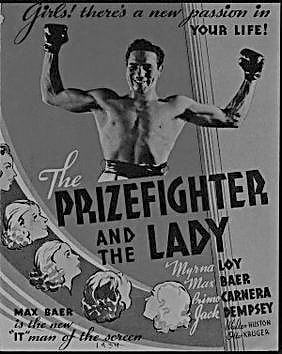 PRIZEFIGHTER AND THE LADY, THE (1933)
PRIZEFIGHTER AND THE LADY, THE (1933) (102 Min.) Genre: 1930 DRAMA, Transfer Quality: A
One woman helps make an unknown boxer a star, but could a handful lead him back to obscurity again? Steve Morgan (Max Baer) is a ex-sailor tending bar in a seedy dive when The Professor (Walter Huston), a boxing coach, sees Morgan make short work of a troublesome customer. The Professor convinces Morgan that he has what it takes to be a successful prizefighter, and takes him under his wing. One day, while Morgan is jogging, he's nearly hit by a car operated by an attractive woman named Belle (Myrna Loy), who is making a name for herself as a nightclub singer. Belle has been dating underworld kingpin Willie Ryan (Otto Kruger), but before long Morgan is able to win her away from Ryan, and they get married. Morgan's marriage to Belle turns out to be god for publicity, and soon he's racked up an impressive string of victories, but Morgan can't keep his eyes off other women, and she has reason to believe he's been unfaithful. Belle, despondent, goes back to Ryan, while Morgan starts hitting the bottle, just as he's lined up a championship fight with Primo Carnera. The Prizefighter and the Lady gave heavyweight contender Max Baer his first leading role; a year after the film was released, Baer faced off against Carnera in a real championship bout, which Baer won by a knockout. — Mark Deming
Starring: Myrna Loy, Max Baer, Otto Kruger, Walter Huston, Jack Dempsey | Directed by: W.S. Van Dyke
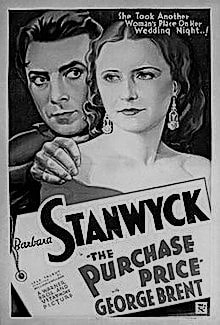 PURCHASE PRICE, THE (1932)
PURCHASE PRICE, THE (1932) (68 Min.) Genre: 1930 DRAMA, Transfer Quality: A
Barbara Stanwyck, displayed in all her pre-Code glory, once again plays "damaged goods" in Warner Bros.' The Purchase Price. Hard-boiled nightclub singer Joan Gordon (Stanwyck) gets fed up being the kept woman of her married boss, bootlegger Ed Fields (Lyle Talbot). Fleeing New York, she ends up in Montreal, where after buying a hotel maid's credentials from a marriage-licence bureau, is shipped out to North Dakota as a mail-order bride. Her new husband is wheat farmer Jim Gilson (George Brent), who is every bit as honest and upright as Fields was not. Eventually, Gordon's ex-lover catches up with her, but instead of staking his claim he secretly advances Gordon $800 to save her husband's farm. This is the first of several surprising (and sometimes calamitous) plot twists which ultimately transform our heroine from a big-city trollop to a provincial paragon of virtue. Years after co-starring in The Purchase Price, Lyle Talbot would recall with great amusement how he nearly lost several teeth when George Brent "forgot himself" during their fight scene. — Hal Erickson
Starring: Barbara Stanwyck,George Brent, Lyle Talbot, Hardie Albright | Directed by: William Wellman
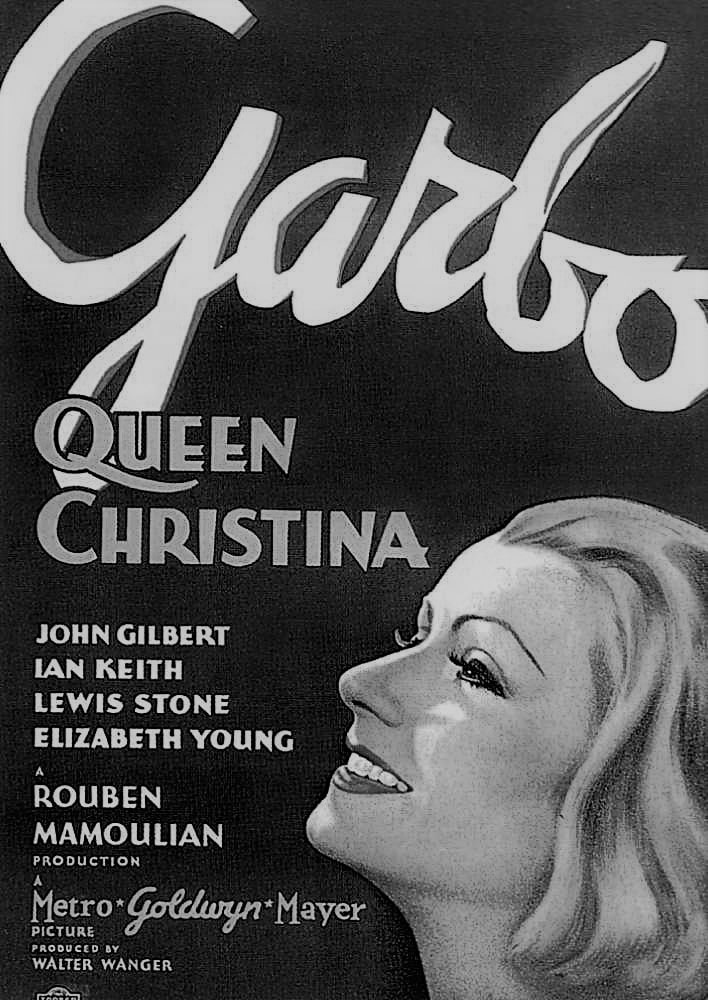 QUEEN CHRISTINA (1933)
QUEEN CHRISTINA (1933) (99 Min.) Genre: 1930 DRAMA, Transfer Quality: A
If Queen Christina is not the best of Greta Garbo's films (as many Garbo fanatics insist), it is certainly the most luxuriously romantic of her talkie features. The star is cast as 17th-century Swedish queen Christina, who feels that she can best function in a male-dominated world by adopting men's clothes and attitudes (this cross-dressing element adds a subliminally gay subtext which curiously makes the subsequent events all the more poignant). Fiercely devoted to her country and the welfare of her people, Christina has long since abandoned all thoughts of pursuing any kind of a romance — but changes her mind when she meets and falls in love with Spanish envoy Antonio (John Gilbert). After an idyllic night together, Christina and Antonio are compelled to part, but the Queen vows then and there to relinquish her throne in favor of marriage to the envoy. Alas, the complex political machinations between their two countries permanently separate the two lovers, leaving Christina more alone in the world than ever. The chemistry between Garbo and Gilbert — who as the whole world knew in 1933 had once been real-life lovers — is positively mesmerizing, especially in the classic scene wherein Christina, after consummating their passion, walks dreamily around their room, touching and memorizing every detail (so persuasive is her pantomime in this scene that her last-minute explanation as to what she is doing is not only unnecessary, but downright jarring). Equally unforgettable is the final shot of Garbo staring enigmatically past the camera, allowing the viewer to "fill in" her thoughts (director Rouben Mamoulian always claimed that he ordered Garbo to think about "absolutely nothing," but one wonders). While some of Garbo's earliest talkies tend to creak a bit, Queen Christina is as fascinating today as it was nearly seven decades ago, and will undoubtedly continue to remain just as fascinating for the next seven decades. — Hal Erickson
Starring: Greta Garbo, John Gilbert, Lewis Stone, Ian Keith | Directed by: Rouben Mamoulian
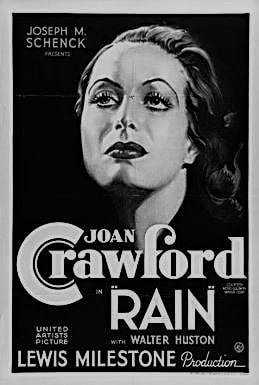 RAIN (1932)
RAIN (1932) (92 Min.) Genre: 1930 DRAMA, Transfer Quality: A
The pleasures of the flesh confront the discipline of the Lord's teachings in this screen adaptation of W. Somerset Maugham's story Miss Sadie Thompson. Sadie Thompson (Joan Crawford) is a sassy streetwalker who lands in Pago Pago in the South Pacific after an epidemic grounds the ship on which she's booked passage. Sadie's shapely legs, free spirit, and quick wit soon attract the attention of a group of American soldiers stationed on the island; while most are motivated by simple lust, the naive Sgt. O'Hara (William Gargan) falls head over heels for Sadie, thoroughly unaware of her checkered past and shameful profession. Rev. Alfred Davidson (Walter Huston), a fire-and-brimstone preacher bent on bringing salvation to the soldiers, is fully aware of Sadie's occupation and moral code, and is determined to convince her to change her ways. Sadie slowly but surely is softened by Davidson's conviction, but the preacher soon finds himself affected by her sensual presence; O'Hara also learns the truth about Sadie, but hatches his own plan to reform her — marriage. While a box office failure in 1932, Rain has gone on to become a cult favorite, thanks to Crawford's vivid performance as Sadie and director Lewis Milestone's adventurous visual style. — Mark Deming
Starring: Joan Crawford, Walter Huston, William Gargan, Guy Kibbee | Directed by: Lewis Milestone
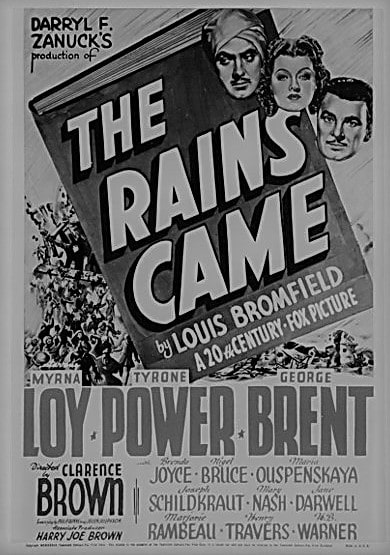 RAINS CAME, THE (1939)
RAINS CAME, THE (1939) (104 Min.) Genre: 1930 DRAMA, Transfer Quality: A
Myrna Loy stars in Clarence Brown's sumptuous and exotic romance, based upon the novel by Louis Bromfield. Loy plays Lady Edwina Esketh, the unhappily married wife of Lord Albert Esketh (Nigel Bruce), a dumpy middle-aged English businessman. Edwina escapes her loneliness by engaging in ephemeral love affairs. When Lord Albert travels to the Indian province of Ranchipur, Edwina encounters one of her past lovers, Tom Ransome (George Brent). Tom wants to renew his acquaintance with Edwina, but she has set her sights on a young Indian doctor, Major Rama Safti (Tyrone Power), the court favorite of the reigning maharajah (H.B. Warner) who may inherit the throne one day. Rama is dedicated to helping the poor and, as Edwina falls deeply in love with him, she begins to notice of the plight of the poverty stricken. When a terrible earthquake decimates Ranchipur, Edwina joins with Rama to help tend to the victims of this tragedy. — Paul Brenner
Starring: Myrna Loy, Tyrone Power, George Brent, Brenda Joyce | Directed by: Clarence Brown
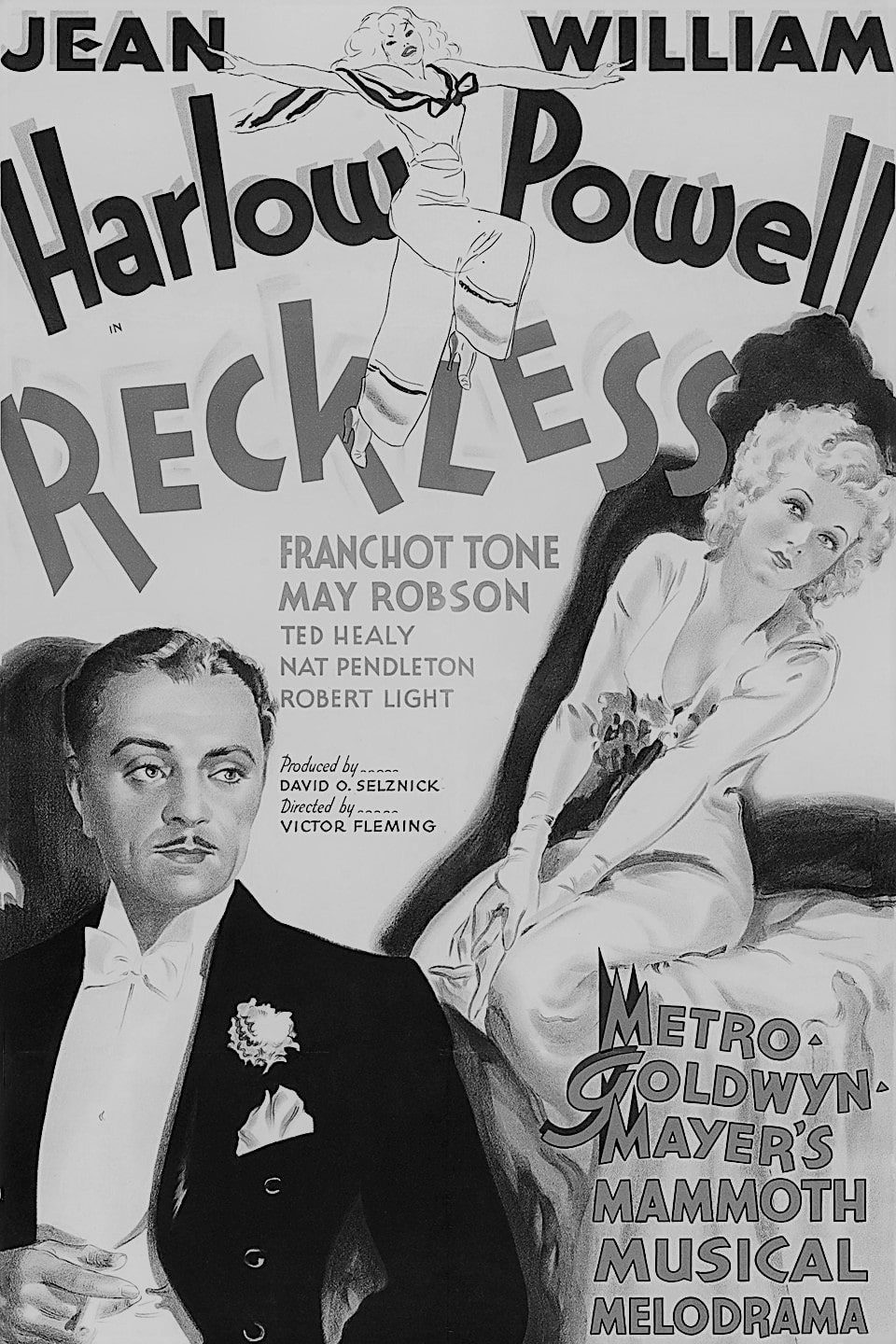 RECKLESS (1935)
RECKLESS (1935) (97 Min.) Genre: 1930 DRAMA, Transfer Quality: A
MGM's Reckless was inspired by the notorious and tragic romance between torch singer Libby Holman and tobacco heir Smith Reynolds (which also provided fodder for such a clef films as Brief Moment, Sing, Sinner, Sing and Written on the Wind). Jean Harlow stars as Mona, an ambitious chorus girl who becomes romantically involved with philanthropist Ned Riley (William Powell) and jaded socialite Bob Harison (Franchot Tone). Unable to marry Mona because of their "stations in life," the headstrong Bob solves this dilemma by committing suicide. Disgraced in the eyes of everyone, Mona stages a comeback through the auspices of Ned Riley, who has loved her all along. Among the songwriters involved in this heady blend of backstage musical and romantic melodrama are Jerome Kern, Oscar Hammerstein II, Burton Lane and Harold Adamson. Reckless was heralded as Harlow's "singing and dancing" debut, but her singing was obviously dubbed and her dancing even more obviously doubled. — Hal Erickson
Starring: Jean Harlow, William Powell, Franchot Tone, May Robson, Rosalind Russell | Directed by: Victor Fleming
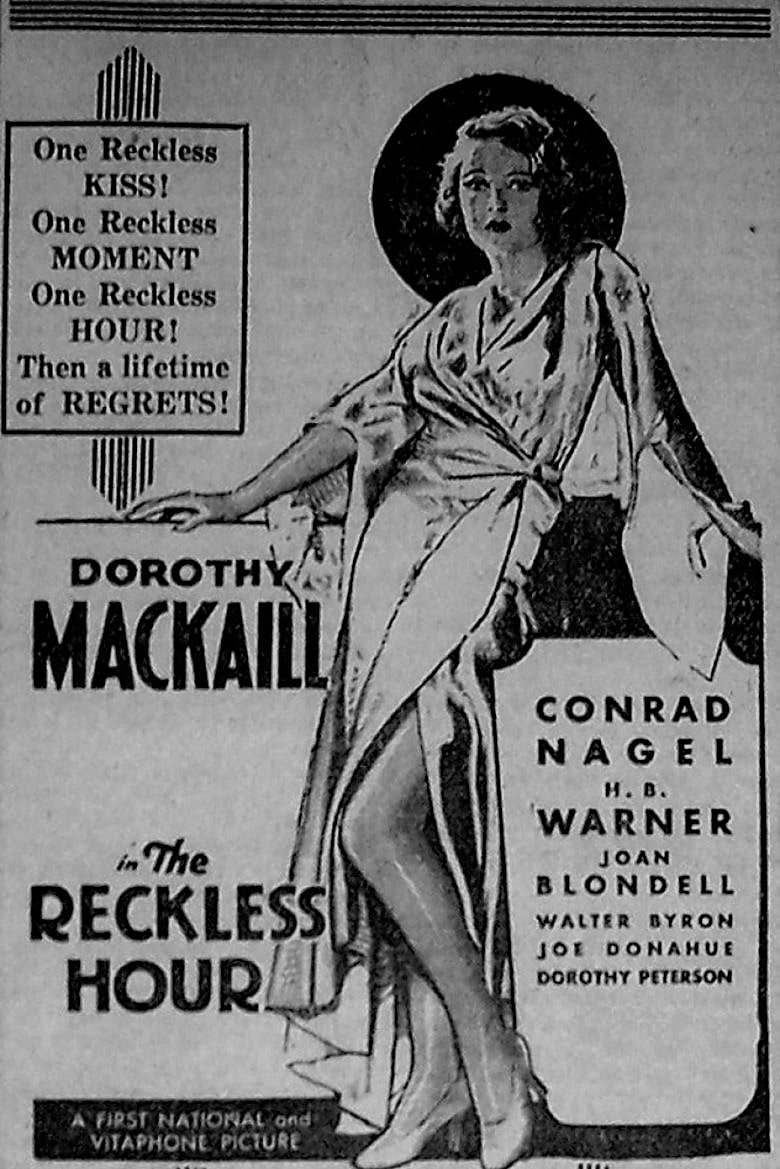 RECKLESS HOUR, THE (1931)
RECKLESS HOUR, THE (1931) (70 Min.) Genre: 1930 DRAMA, Transfer Quality: A
In this drama, a hard-working New York model abandons her family values for the love of a suave, handsome man who offers her the moon, but ends up leaving her with a baby and a very bitter aftertaste. She then becomes cynical, and angry at all men until a sensitive, gentle artist helps her through the hurt shows her a less self-destructive path for her life.
Starring: Dorothy Mackaill, Conrad Nagel, H.B. Warner, Joan Blondell | Directed by: John Francis Dillon
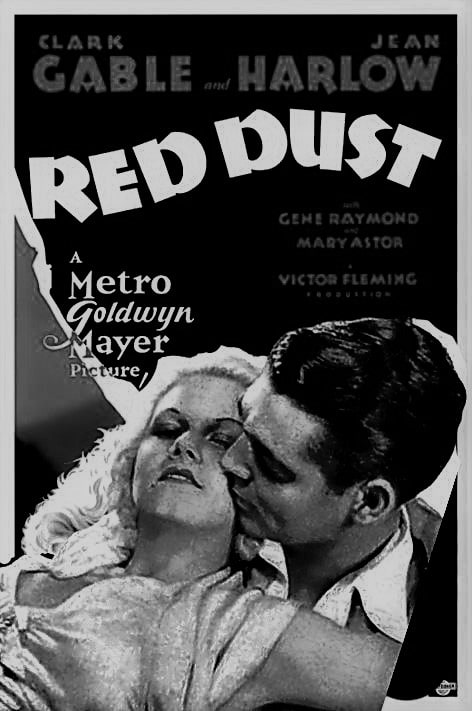 RED DUST (1932)
RED DUST (1932) (83 Min.) Genre: 1930 DRAMA, Transfer Quality: A
Red Dust was lensed almost entirely on MGM's back lot; even so, we are utterly convinced that the film takes place in Indochina (never mind that everyone pronounces "Saigon" as Say-gone). Even more importantly, the audience never doubts for one moment that the relationship between "hero" Clark Gable and "heroine" Jean Harlow has gone far beyond the meaningful-glances stage. Gable plays the overseer of a rubber plantation, whiling away the hot, lonely nights with his drunken assistant Tully Marshall. Donald Crisp, another of Gable's cohorts, arrives by boat with stranded prostitute Jean Harlow in tow. Gable wants no part of Harlow at first, telling her that she's history the moment the next boat to Saigon shows up. But Gable and Harlow are, in the parlance of the time, made for each other. After the inevitable affair, Harlow leaves, just as engineer Gene Raymond shows up to participate in the construction of a bridge. Raymond has brought along his seemingly proper wife Mary Astor; it isn't long, however, before Astor is throwing herself at the not altogether unwilling Gable. Raymond is such a good egg that Gable feels ashamed of himself for enjoying Astor's favors. When Harlow returns, Gable goes back to her, which drives the already unstable Astor completely off her trolley. She shoots Gable in a fit of jealous rage. Hearing the shot, Raymond rushes in. Proving that she's "aces," Harlow quickly covers up for Astor, insisting that it was she who shot Gable. None the wiser, Raymond returns to the mainland with Astor, while Gable and Harlow end up in each other's arms for keeps. Fairly "hot" even by pre-code standards, Red Dust has gained legendary status thanks to rumors concerning Jean Harlow's famous bathing scene in a shaved barrel; according to rumor, footage still exists of Harlow totally au naturel (some stories go as far as to claim that the overseas version of Red Dust shows Gable and Harlow "doing it".) For all the sexual badinage, our favorite bit occurs when Harlow, cleaning out a parrot's cage, mutters "Watcha been eatin', cement?" A heavily laundered remake of Red Dust, Mogambo, appeared in 1954, again with Clark Gable in the lead, but this time with Ava Gardner and Grace Kelly in the Harlow and Astor roles, respectively. — Hal Erickson
Starring: Clark Gable, Jean Harlow, Mary Astor, Donald Crisp, Gene Raymond | Directed by: Victor Fleming
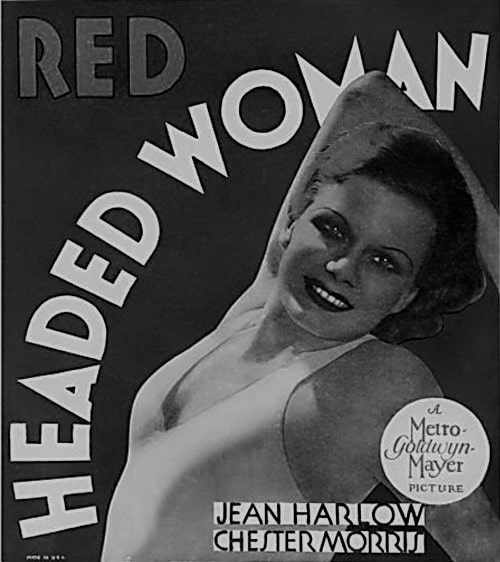 RED-HEADED WOMAN (1932)
RED-HEADED WOMAN (1932) (79 Min.) Genre: 1930 DRAMA, Transfer Quality: A
Jack Conway complained about being assigned to direct this comedy, claiming that a woman like the title character had almost ruined his own marriage. In a way he had a point , but only Jean Harlow could have made gold digger Lil Andrews a sympathetic protagonist. And Katherine Brush's racy novel (which first appeared, serial-fashion, in the Saturday Evening Post) could only have been filmed in the pre-Code days of the early 1930s. Helping both star and story is the snappy dialogue written by Anita Loos. Lil is the classic girl "from the wrong side of the tracks" — she's a secretary with a bootlegger boyfriend and a wisecracking roommate named Sal (Una Merkel, who was a delightful foil to Harlow in several films). But Lil has ambitions — she's "strictly on the level, like a flight of stairs," as one character says. She plans to snag Bill Legendre (Chester Morris), son of the venerable company head (Lewis Stone) — no matter that he's happily married to his childhood sweetheart, Irene (Leila Hyams). Lil throws herself at Legendre until he can resist no longer and she snares him. But things don't work out as planned. Instead of making a big splash in society, she bombs — so she casts her attention ever upwards to Gaersate, a coal king (Henry Stephenson). But a wrench is thrown into her scheme when she goes mad for his French chauffeur (Charles Boyer). "I've fallen in love and I'm going to be married!" she gleefully tells Sal, before explaining that it's the chauffeur she loves and Gaersate whom she will marry. However, Legendre Sr. has put a detective on Lil's trail and he shows Gaersate a handful of compromising photos. It looks like her game is up, but the last we see of the mercenary miss, she's leaving a fashionable Paris racetrack with a bearded old sugar daddy — and her beloved chauffeur driving them away. In spite of all her blatant manipulations, Harlow gives Lil a childlike appeal, which makes her actions nearly forgivable (it also helps that the men are such dolts). But not everyone was able to accept a movie bad-girl who did not pay for her sins and, in fact, actually benefited from them — the film was banned in Germany and England. It may not have gotten much play in France either, but certainly not because of Lil's wantonness. Charles Boyer, who was a star in his native country, was embarrassed at his failure to make a splash in America and didn't want his fellow Frenchmen to see him play a tiny bit-part. Depending on the source, he reportedly convinced MGM to either 1) release the film in France with his parts edited out (which would have made it quite confusing) or 2) not release the film there at all. — Janiss Garza
Starring: Jean Harlow, Chester Morris, Una Merkel, Lewis Stone | Directed by: Jack Conway
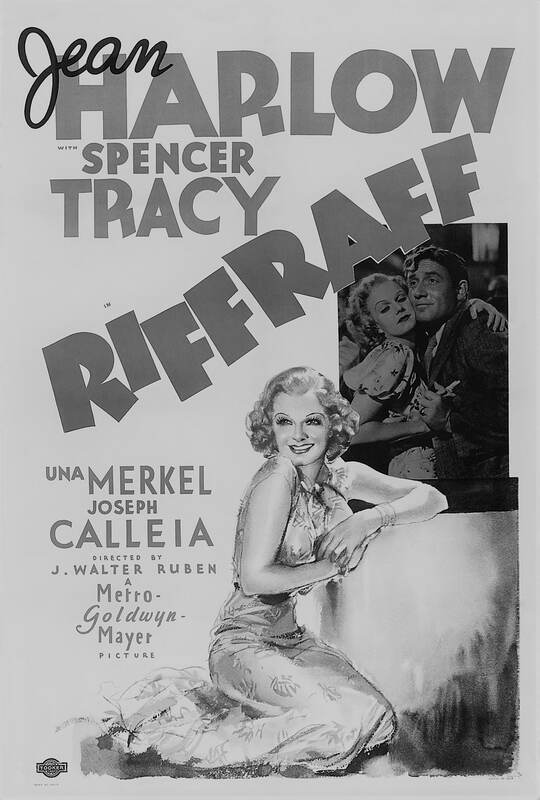 RIFF RAFF (1935)
RIFF RAFF (1935) (94 Min.) Genre: 1930 DRAMA, Transfer Quality: A
Riff-Raff begins riff-raffing when boastful fisherman Dutch (Spencer Tracy) marries down-to-earth cannery worker Hattie (Jean Harlow). Their happiness is marred by Dutch's egomania, which results in the loss of his job and the alienation of his friends. Eventually he deserts Hattie, but she remains in love with him, even going to jail on a theft charge after trying to supply him with money. Reels and reels later, Dutch makes up for his past misdeeds by foiling a plot to sabotage a huge fishing vessel. Unfortunately, his reunion with Hattie is delayed when she tries to break out of prison, earning her an extended sentence, but he magnanimously promises to wait for her. Hard to believe that so sensible a heroine would put up with so much from a guy who's frankly not worth the trouble, but the chemistry between Spencer Tracy and Jean Harlow compensates for the film's Grand Canyon-sized logic holes. — Hal Erickson
Starring: Jean Harlow, Spencer Tracy, Una Merkel, Joseph Calleia | Directed by: J. Walter Ruben
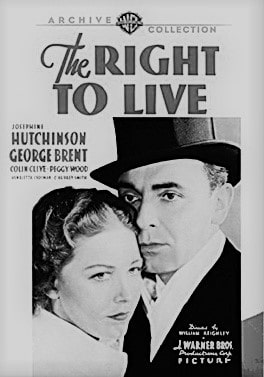 RIGHT TO LIVE, THE (1935)
RIGHT TO LIVE, THE (1935) (75 Min.) Genre: 1930 DRAMA, Transfer Quality: A
The Right to Live was the second film version of Somerset Maugham's The Sacred Flame (the first, produced in 1929, starred Conrad Nagel), which in its original form posed the question "Can there truly be such a thing as a mercy killing?" Put simply, it is the tragic tale of two brothers: Colin Trent (George Brent), strong and virile, and Maurice Trent (Colin Clive), crippled and bedridden. Though there's no hope for Maurice's recovery, his wife Stella (Josephine Hutchinson) has vowed -- publicly at least -- to remain faithfully by his side until the bitter end. When that end finally comes, the family doctor declares that Maurice has died a natural death. But Nurse Weyland (Peggy Wood), who has long suspected that something has been going on between Stella and her healthy brother-in-law Colin, believes that Maurice was murdered. Her insistence upon an autopsy is as much a product of her dedication to duty as to her own silent yearning for Colin. Thanks to the newly-strengthened Production Code, Maugham's powerful ending could not be used, thereby watering down what might have been a truly compelling and controversial film.
Starring: George Brent, Colin Clive, Josephine Hutchinson, Peggy Wood, C. Aubrey Smith, Leo G. Carroll | Directed by: William Keighley
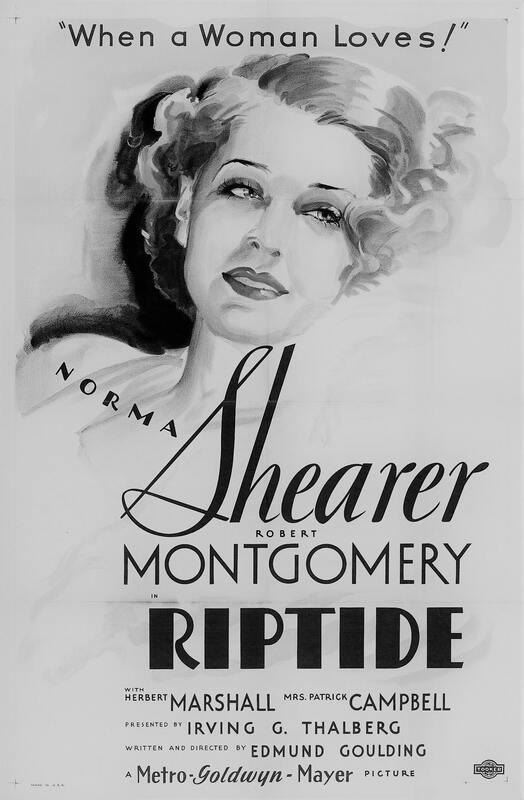 RIPTIDE (1934)
RIPTIDE (1934) (90 Min.) Genre: 1930 DRAMA, Transfer Quality: A
A few unique touches aside — notably the opening costume-party scene, in which the revellers are dressed as insects — Rip Tide is a standard-issue Norma Shearer soap opera. Shearer plays Mary, a footloose and fancy-free American heiress who weds British nobleman Lord Rexford (Herbert Marshall). Five years later, Rexford embarks upon a business trip to New York, while Mary, urged on by her fun-loving aunt, vacations on the Riviera. Here she is reacquainted with her ex-boyfriend Tommie (Robert Montgomery), whose drunken misbehavior causes scandal to befall them both. Refusing to hear Mary's side of the story, Rexford begins divorce proceedings, but a happy ending finally manifests itself after reels and reels of endless high-toned dialogue. Legendary stage star Mrs. Patrick Campbell makes her Hollywood film debut in Rip Tide as Shearer's all-knowing Aunt Hetty, while Walter Brennan and Bruce Bennett show up in microscopic bit roles. — Hal Erickson
Starring: Norma Shearer, Robert Montgomery, Herbert Marshall, Mrs. Patrick Campbell | Directed by: Edmund Goulding
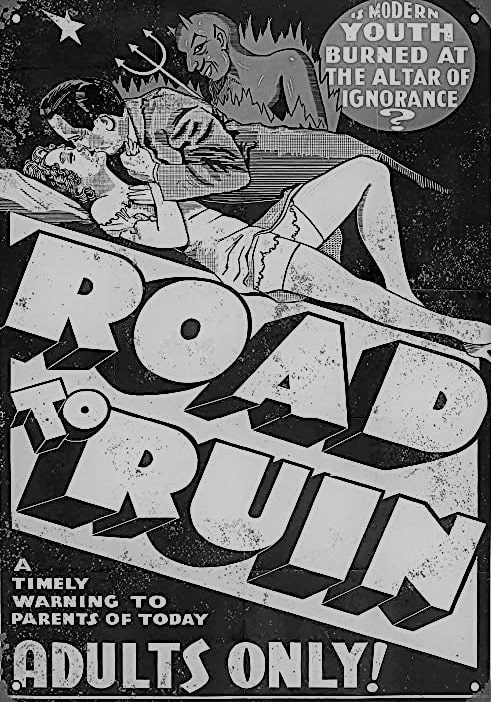 ROAD TO RUIN, THE (1934)
ROAD TO RUIN, THE (1934) (62 Min.) Genre: 1930 DRAMA, Transfer Quality: B
The Road to Ruin is a remake of notorious 1928 exploitationer of the same name, courtesy of the fly-by-night firm of True Life Photoplays (aka Willis Kent Productions). Neglected by her parents, a feisty teenager falls into a bad crowd. She ends up working for a call-girl operation, "servicing" wild parties. Imagine her dismay when, on one assignment, the heroine finds herself in a compromising situation with her own father (Richard Tucker)! — Hal Erickson
Starring: Glen Boles, Paul Page, Virginia True Boardman, Mae Busch | Directed by: Dorothy Reid, Melville Shyer
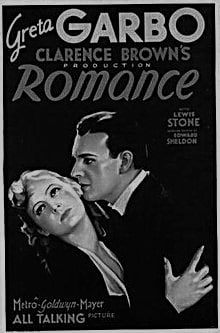 ROMANCE (1930)
ROMANCE (1930) (76 Min.) Genre: 1930 DRAMA, Transfer Quality: A
Greta Garbo appears here (in her second talking film) as an Italian singer who seduces a young priest into falling for her. She admits that she had been the kept woman of an older man and when she returns to her former lover (to tell of her new love) her visit is misinterpreted by the priest as a liaison, prompting the priest to cast her affections aside. The film is told in narrative fashion, through the eyes of the priest when looking back to an early portion of his life. Garbo and director Clarence Brown earned Oscar nominations for their respective roles in the making of the film. — All Movie Guide
Starring: Greta Garbo, Gavin Gordon, Elliott Nugent, Florence Lake | Directed by: Clarence Brown
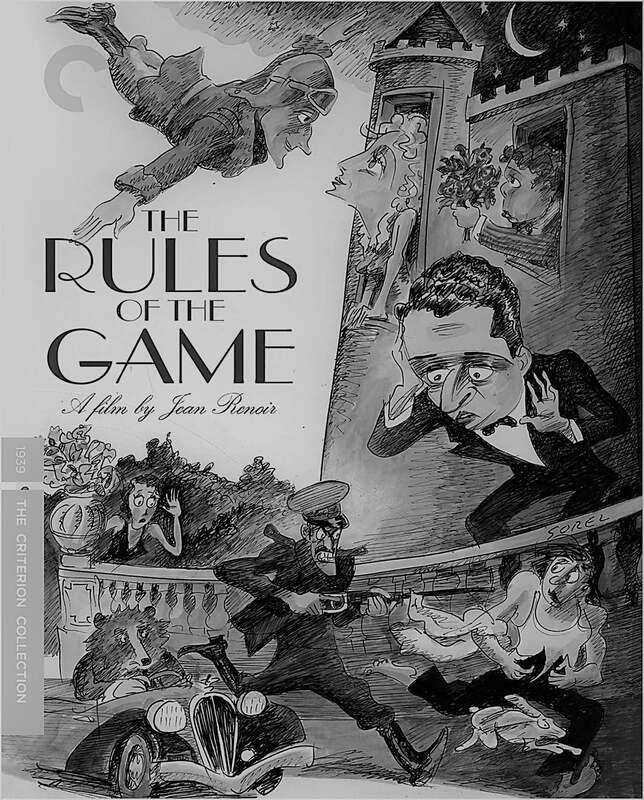 RULES OF THE GAME (1939)
RULES OF THE GAME (1939) (106 Min.) Genre: 1930 DRAMA, Transfer Quality: A
Now often cited as one of the greatest films ever made, Jean Renoir's La Règle du jeu/Rules of the Game was not warmly received on its original release in 1939: audiences at its opening engagements in Paris were openly hostile, responding to the film with shouts of derision, and distributors cut the movie from 113 minutes to a mere 80. It was banned as morally perilous during the German occupation and the original negative was destroyed during WWII. It wasn't until 1956 that Renoir was able to restore the film to its original length. In retrospect, this reaction seems both puzzling and understandable; at its heart, Rules of the Game is a very moral film about frequently amoral people. A comedy of manners whose wit only occasionally betrays its more serious intentions, it contrasts the romantic entanglements of rich and poor during a weekend at a country estate. André Jurieu (Roland Toutain), a French aviation hero, has fallen in love with Christine de la Chesnaye (Nora Gregor), who is married to wealthy aristocrat Marquis Robert de la Chesnaye (Marcel Dalio). Robert, however, has a mistress of his own, whom he invites to a weekend hunting party at his country home, along with André and his friend Octave (played by Jean Renoir himself). Meanwhile, the hired help have their own game of musical beds going on: a poacher is hired to work as a servant at the estate and immediately makes plans to seduce the gamekeeper's wife, while the gamekeeper recognizes him only as the man who's been trying to steal his rabbits. Among the upper classes, infidelity is not merely accepted but expected; codes are breached not by being unfaithful, but by lacking the courtesy to lie about it in public. The weekend ends in a tragedy that suggests that this way of life may soon be coming to an end. Renoir's witty, acidic screenplay makes none of the characters heroes or villains, and his graceful handling of his cast is well served by his visual style. He tells his story with long, uninterrupted takes using deep focus (cinematographer Jean Bachelet proves a worthy collaborator here), following the action with a subtle rhythm that never calls attention to itself. The sharply-cut hunting sequence makes clear that Renoir avoided more complex editing schemes by choice, believing that long takes created a more lifelike rhythm and reduced the manipulations of over-editing. Rules of the Game uses WWI as an allegory for WWII, and its representation of a vanishing way of life soon became all too true for Renoir himself, who, within a year of the film's release, was forced to leave Europe for the United States.. — Mark Deming
Starring: Nora Gregor, Jean Renoir, Marcel Dalio, Roland Toutain | Directed by: Jean Renoir
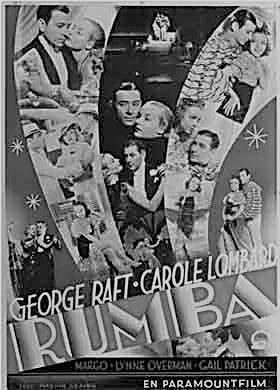 RUMBA (1935)
RUMBA (1935) (77 Min.) Genre: 1930 DRAMA, Transfer Quality: C
A follow-up to the highly successful Bolero, this lively romantic drama stars George Raft as Joe Martin, a Cuban-American dancer who lives and works in Havana with his lovely partner Goldie Allen until a bad case of varicose veins forces impacts his career. One night, the beauteous gringa heiress Diane Harrison (Carole Lombard) comes to the club. Joe is immediately smitten. His interest takes a less fleshly turn when he learns that she owns a yacht. When Diane compliments Joe on his moves, her escort gets jealous and a fight ensues. Joe finds himself jobless and flees to the jungle where he learns the rumba from the exotic Carmelita (Margo). He loves the dance and predicts that it will be the next fad. To promote it, he and Margo open a new club in Havana. The place is a smash. Diane returns, is wowed by both Joe and the dance and offers to bring back to his native New York. But Joe came to Havana after ratting on a gangster and if he returns, will surely die. Still, he and Margo decide to take the risk and their choice results in romance. The spectacular dance numbers were choreographed by the famed dance team Veloz and Yolanda.
Starring: George Raft, Carole Lombard, Lynne Overman, Margo, Gale Patrick | Directed by: Marion Gering
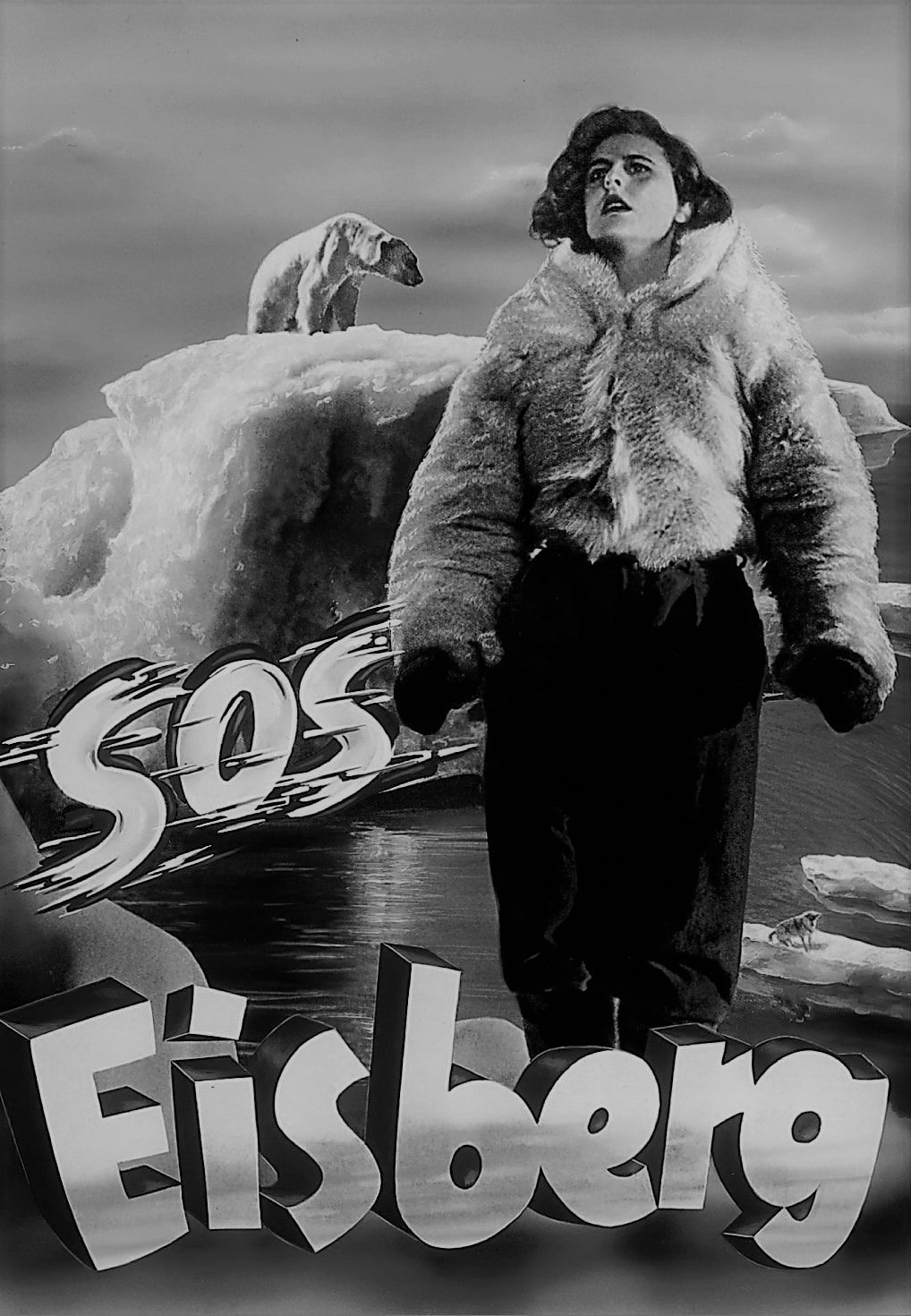 S.O.S. ICEBERG (1933)
S.O.S. ICEBERG (1933) (77 Min.) Genre: 1930 DRAMA, Transfer Quality: A
In the same year that she directed Victory of the Faith (1933), her first of several famous cinematic projects for the Nazi Party, German actress and filmmaker Leni Riefenstahl played a supporting role in this epic adventure, co-written and co-directed by her frequent "mountain film" collaborator Dr. Arnold Fanck. Rod La Rocque stars as Dr. Carl Lawrence, leader of a mission to Greenland to recover the lost records of the ill-fated, real-life Alfred Lothar Wegener polar expedition of 1929-30. Lawrence's party includes experienced explorer/guides, as well as an adventure-seeking financier, who is in over his head and slowly driven mad by the perils of the voyage. When Lawrence's band is trapped on an iceberg, Lawrence's wife Ellen (Riefenstahl) — a famous female pilot fashioned after Amelia Earhart — takes off on a rescue mission, but she crashes her aircraft upon landing and is stranded along with the others. Before total disaster claims the Lawrence party, however, native eskimos and Major Ernst Udet (playing himself) arrive via kayak to save the day. Two surviving members of the Wegener party served as advisors for this well-received Man vs. Nature treatise, filmed on location in Greenland. — Karl Williams
Starring: Rod La Rocque, Leni Riefenstahl, Sepp Rist, Gibson Gowland | Directed by: Tay Garnett, Arnold Fanck
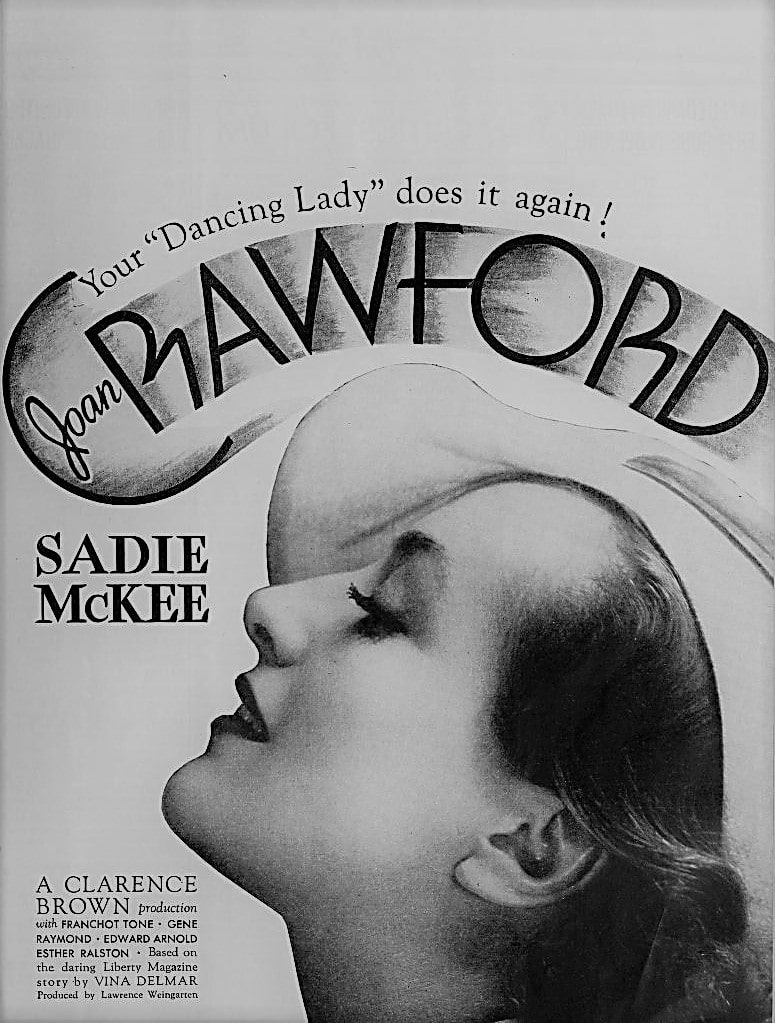 SADIE MCKEE (1934)
SADIE MCKEE (1934) (93 Min.) Genre: 1930 DRAMA, Transfer Quality: A
MGM's Sadie McKee is a superb example of how the "committee" system of moviemaking in the 1930s could sometimes yield unexpected delights. It all begins when Sadie McKee (Joan Crawford) is brought to big bad old New York by glib vaudevillian Tommy (Gene Raymond), only to be unceremoniously dumped in favor of actress Dolly (Esther Ralston). Cast adrift, our Sadie lands a nightclub job, where she meets genially intoxicated millionaire Brennan (Edward Arnold). Accepting his drunken marriage proposal, Sadie must endure the slings and arrows of Brennan's friends and family, who consider her a gold-digger. Meanwhile, Sadie's former boss Michael (Franchot Tone), the one true love of her life, waits and waits and waits to see what's really on the girl's mind! And as a bonus, this is the film that introduced the peppy ditty "All I Do Is Dream of You". The labyrinth plotline of Sadie McKee is proof enough that more than one screenwriter had a hand in its creation: but instead of chaos, the film is irresistibly watchable, full of unexpected plot twists and marvelous little surprises. — Hal Erickson
Starring: Joan Crawford, Gene Raymond, Franchot Tone, Edward Arnold, Esther Ralston | Directed by: Clarence Brown
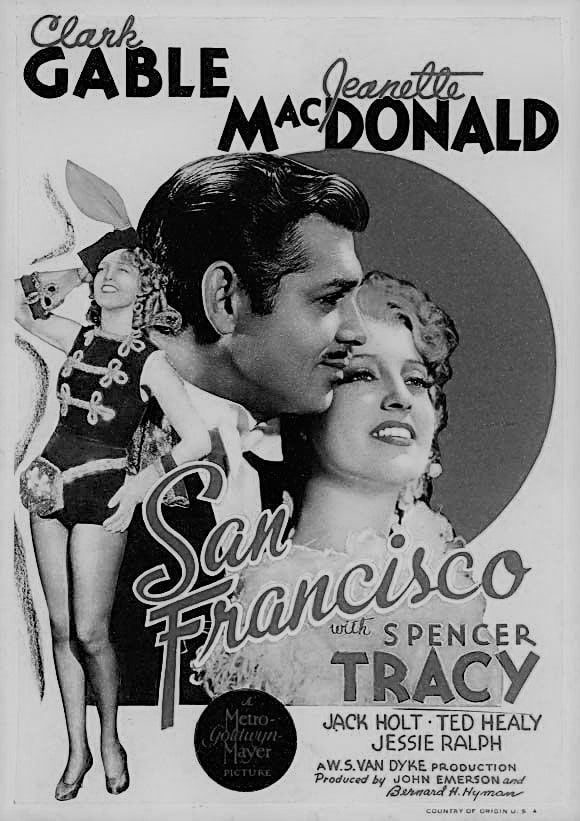 SAN FRANCISCO (1936)
SAN FRANCISCO (1936) (115 Min.) Genre: 1930 DRAMA, Transfer Quality: A
The MGM historical "spectacular" San Francisco was allegedly based on a three-sentence synopsis, submitted verbally to producer B.F. Zeidman by studio troubleshooter Bob Hopkins. The story begins on the Barbary Coast on New Year's Eve, 1906, as rakish but likeable political boss Blackie Norton (Clark Gable) hires demure young singer Mary Blake (Jeanette MacDonald) to perform at his rowdy Paradise gambling house. Local priest Father Mullin (Spencer Tracy), Blackie's best friend, disapproves of the exploitation of the lovely Mary, feeling that she's suited for classier surroundings. Jack Hurley (Jack Holt), Nob Hill socialite and Blackie's political rival, agrees with Father Mullin and offers the girl the opportunity to sing with the San Francisco Opera. Blackie, who's fallen in love with Mary but won't admit it to himself, jealously holds on to her contract, forcing Mary to walk out on him. For the rest of the film, Mary is torn between the "respectable" lifestyle offered her by Hurley and the baser creature comforts provided by Blackie. It looks for a while that Hurley has won out, but fate takes a hand in the form of the devastating San Francisco Earthquake of April 18, 1906 (a special effects tour de force for art directors Arnold Gillespie and his uncredited associate James Basevi). Hurley is killed in the holocaust, while Blackie, desperately searching for Mary in the rubble, at long last finds religion and prays to God for his sweetheart's salvation. At the end, an unidentified bit player shouts defiantly "We'll build a new San Francisco!" — and by golly, they do! The Hollywood censors were not so much bothered by the sexual subtext of San Francisco or its harrowing earthquake finale as they were by a scene in which Father Mullin is knocked down by an unrepentant Blackie. To "purify" this potentially blasphemous sequence, screenwriter Anita Loos quickly added an earlier scene in which Mullin and Blackie, both dressed in turtleneck sweaters, genially duke it out at an exercise gym, whereupon the priest cold-cocks Blackie with the greatest of ease. By establishing that Mullin could have punched out Blackie, but chooses not to in the controversial later scene, not only allows that scene to pass, but also strengthened the priest's character. San Francisco proved to be one of MGM's biggest hits, remaining in almost constant reissue for the next three decades. — Hal Erickson
Starring: Clark Gable, Jeanette MacDonald, Spencer Tracy, Jack Holt, Erich Von Stroheim | Directed by: W.S. Van Dyke
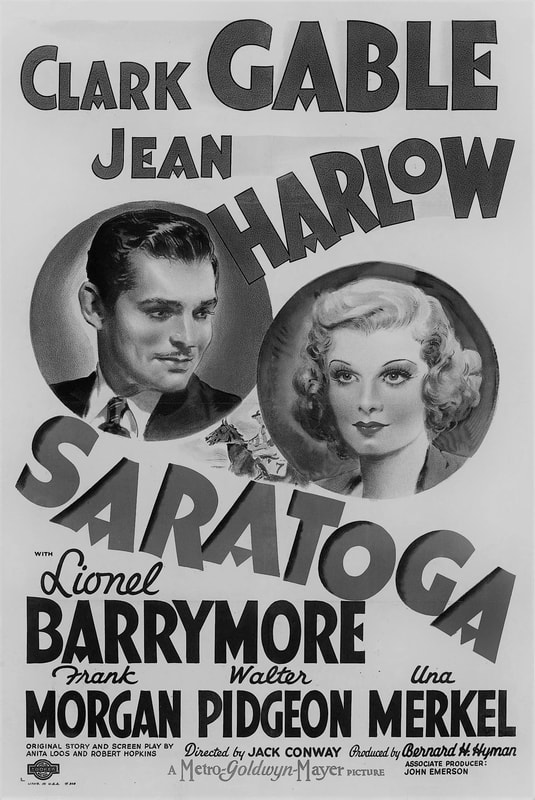 SARATOGA (1937)
SARATOGA (1937) (92 Min.) Genre: 1930 DRAMA, Transfer Quality: A
Jean Harlow offers her final screen performance in this witty and — in retrospect — quite moving racetrack comedy-drama co-starring Clark Gable and Walter Pidgeon. When her father dies shortly after losing his horse farm to Duke Bradley (Gable), Carol Clayton (Harlow) refuses the handsome bookmaker's offer to forget the debt and instead vows to pay him back in full. She even forbids her stockbroker fiancé, Harley Madison (Pidgeon), to make wagers that may benefit Duke, but promises to marry him once her champion horse wins at Saratoga. But against all the odds, Carol falls in love with Duke and when he appears in danger of ruination, she finds herself rooting for the competitor to win the all-important race. Saratoga, which was finished using both onscreen and voice doubles for Jean Harlow, was partially filmed on-location at Lexington and Louisville, KY, and in Saratoga Springs, NY. — Hans J. Wollstein
Starring: Jean Harlow, Clark Gable, Lionel Barrymore, Frank Morgan | Directed by: Jack Conway
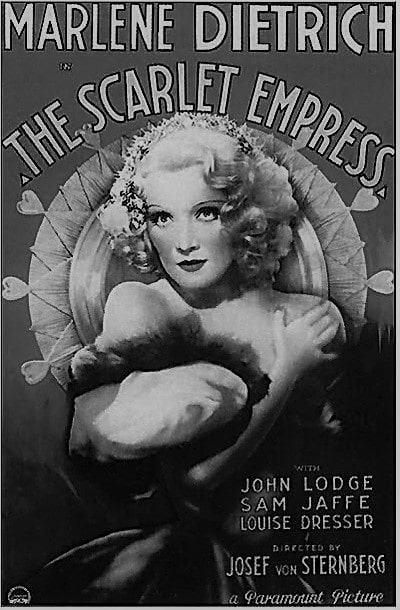 SCARLET EMPRESS, THE (1934)
SCARLET EMPRESS, THE (1934) (110 Min.) Genre: 1930 DRAMA, Transfer Quality: A
Of the two 1934 film versions of the life of Russia's Catherine the Great, Josef von Sternberg's The Scarlet Empress was the most opulent and exotic. Marlene Dietrich plays the German-born Catherine, who is required to marry Russia's mad Grand Duke Peter (Sam Jaffe, decked out in a Harpo Marx wig). As if her joke of a marriage isn't torment enough, Catherine must endure the excesses of her new mother-in-law, Empress Elizabeth (Louise Dresser). Eventually, Catherine finds solace — and romance — in the form of Count Alexei (John Lodge). But even this balm is denied her when the ambitious Alexei begins wooing the much-older Elizabeth. When the old Empress dies, Catherine ascends to the Russian throne, knowing full well that her addled husband would kill her at the slightest provocation. Soon her power outstrips Peter's, and the opportunistic Alexei now comes back into her life. The finale finds Catherine emerging triumphant over all her enemies — and, in the film's least subtle sequence (which is saying a lot!), the new Empress is shown astride a horse, to whom she displays far more affection than any of her human compatriots. The Scarlet Empress has even less to do with accuracy than Paul Czinner's Catherine the Great of the same year, which starred Elizabeth Bergner. Watch for Dietrich's real-life daughter Maria Sieber (aka Maria Riva) as the 7-year-old Catherine in the early scenes. — Hal Erickson
Starring: Marlene Dietrich, John Lodge, Sam Jaffe, Louise Dresser | Directed by: Josef von Sternberg
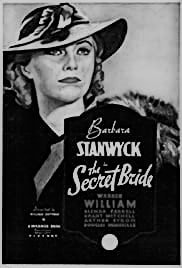 SECRET BRIDE, THE (1934)
SECRET BRIDE, THE (1934) (61 Min.) Genre: 1930 DRAMA, Transfer Quality: B
The Secret Bride is Ruth Vincent (Barbara Stanwyck), the daughter of Governor Vincent (Arthur Byron). Attorney general Robert Sheldon (Warren William) falls in love with Ruth and they marry, but Sheldon insists that their marriage be kept secret. It seems that the Governor has been accused of accepting $10,000 in bribes, and Sheldon doesn't want to be accused of complicity while he investigates the matter. In the course of events, two murders occur, and it's up to Ruth to straighten the mess out. But how will she be able to manage this without involving herself or her secret husband in the scandal? It's funny how the various TV cable services tend to trot out The Secret Bride whenever a real-life political scandal bursts onto the scene.
Starring: Barbara Stanwyck, Warren William, Glenda Farrell, Grant Mitchell | Directed by: William Dieterle
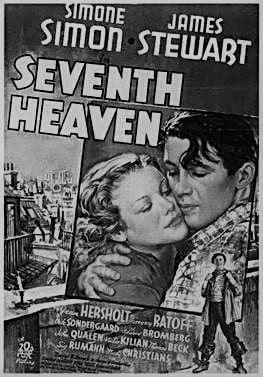 SEVENTH HEAVEN, THE (1937)
SEVENTH HEAVEN, THE (1937) (102 Min.) Genre: 1930 DRAMA, Transfer Quality: B
This romantic tearjerker was the second film based on the popular 1922 stage play. James Stewart stars as Chico, a lowly Paris sewer worker who has abandoned his faith in God and any hope for a brighter future or romance when his prayers go unanswered. Chico meets Diane (Simone Simon), a prostitute who lives under the thumb of her cruel sister, Nana (Gale Sondergaard). When Nana kicks Diane out on the street, Chico rescues her from the authorities and gives his new friend shelter in his run-down, seventh floor slum apartment. Although Diane begins to develop feelings for him, the cynical Chico feels nothing in return until Father Chevillon (Jean Hersholt), a local priest, intervenes to get him a better job. Now working as a street cleaner, Chico's self-respect improves, and he considers marrying Diane. WWI intervenes, however, and Chico is sent off to fight, though he and Diane vow to think of each other every night at eleven o'clock. — Karl Williams
Starring: Simone Simon, James Stewart, Jean Hersholt, Gale Sondergaard | Directed by: Henry King
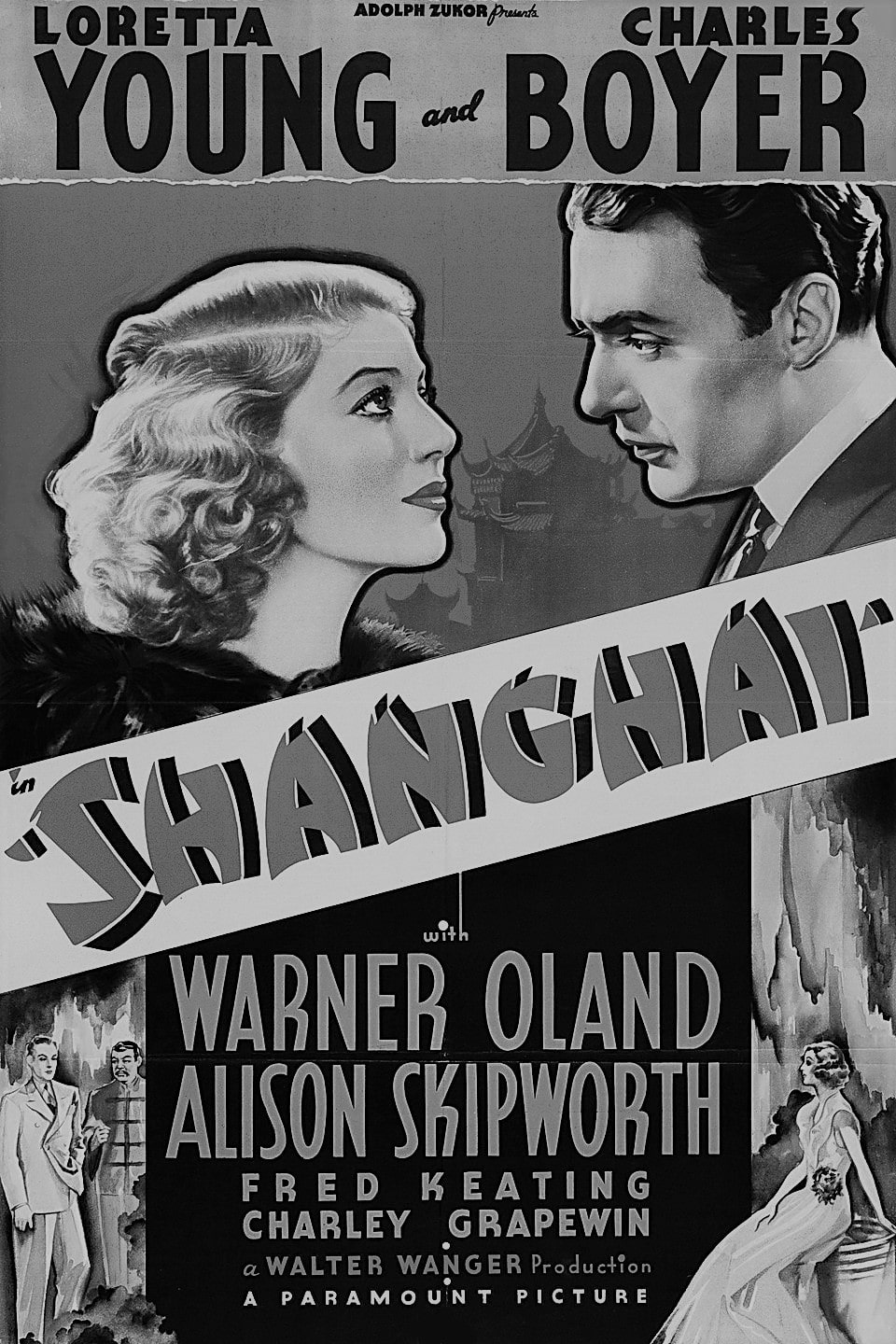 SHANGHAI (1935)
SHANGHAI (1935) (75 Min.) Genre: 1930 DRAMA, Transfer Quality: C
The stigma of miscegenation (horrors!) is at the base of this very dated romantic melodrama. Charles Boyer stars as Dmitri Koslov, an enterprising Eurasian who rises from rickshaw driver to powerful industrialist, all the while concealing his mixed parentage. Koslov falls in love with beautiful American Barbara Howard (Loretta Young), but dares not propose marriage because he is half-Chinese. Even so, Barbara insists upon trailing after the elusive Koslov into the mountainous regions of China, symbolically shedding all her valued possessions to finance her odyssey. But East is East and West is West, thus the "forbidden" alliance between hero and heroine must end on an unhappy note. Swedish-born Warner Oland once again convincingly impersonates an Asian as a Chinese ambassador.
Starring: Loretta Young, Charles Boyer, Warner Oland, Fred Keating | Directed by: James Flood
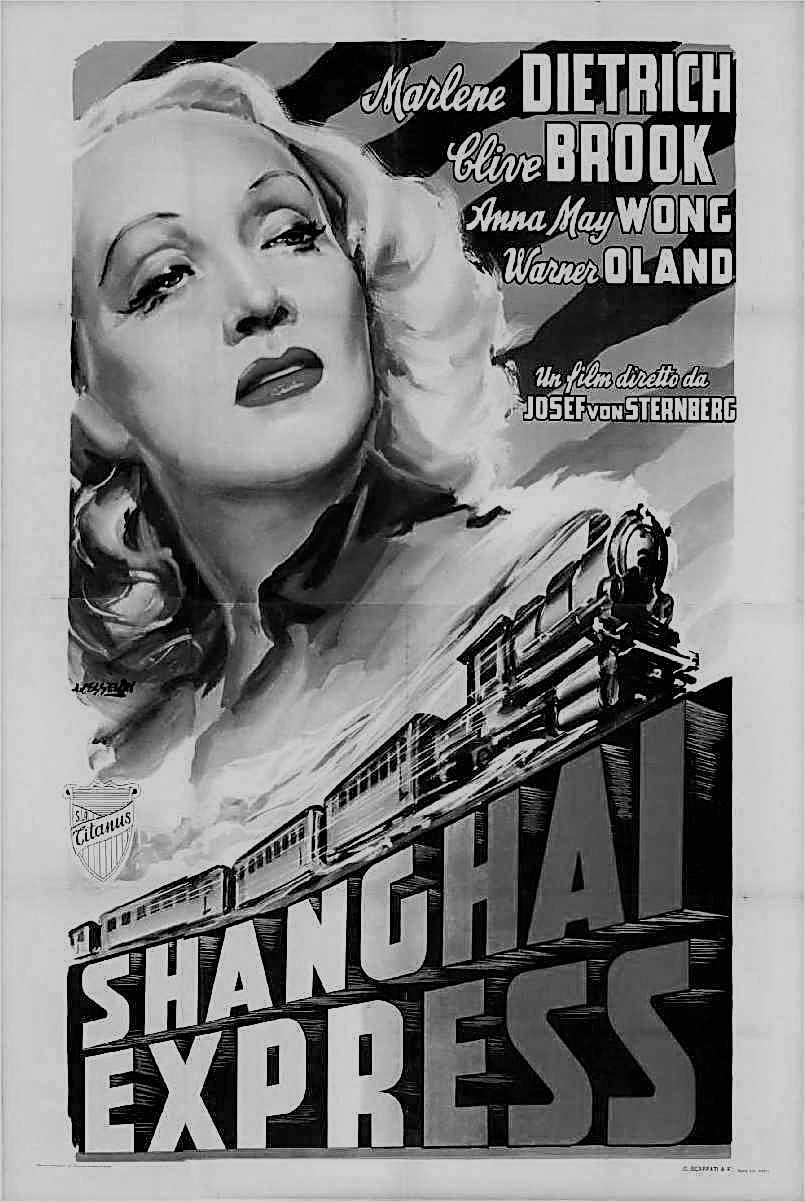 SHANGHAI EXPRESS (1932)
SHANGHAI EXPRESS (1932) (82 Min.) Genre: 1930 DRAMA, Transfer Quality: A
It took more than one man to change my name to Shanghai Lily, purrs Marlene Dietrich in Shanghai Express. She certainly has her well-manicured hands full with more men than she can count in this exotic far-Eastern adventure. Among her fellow passengers on the Shanghai Express are her disillusioned former fiance, stalwart British medical corps officer Clive Brook; overfervent missionary Lawrence Grant; dope smuggler Gustav von Seyffertitz; and mysterious Eurasian businessman Warner Oland. As the train chugs through the more treacherous passages of war-torn China, Oland reveals himself as the leader of a rebel group, who plans to hold the passengers hostage to secure the release of his imprisoned followers. In Boule de Suif fashion, Dietrich, who is a notorious "Chinese coaster" but who has remained sexually aloof throughout the trip, gives herself to Oland to save the life of Brook, the man she truly loves. Directed by Josef von Sternberg at his most orgiastic (love those long, lingering dissolves!), Shanghai Express is 80% style and 20% substance, as proven by two less stylish remakes, Night Plane to Chungking and Peking Express. — Hal Erickson
Starring: Marlene Dietrich, Clive Brook, Anna May Wong, Warner Oland | Directed by: Josef Von Sternberg
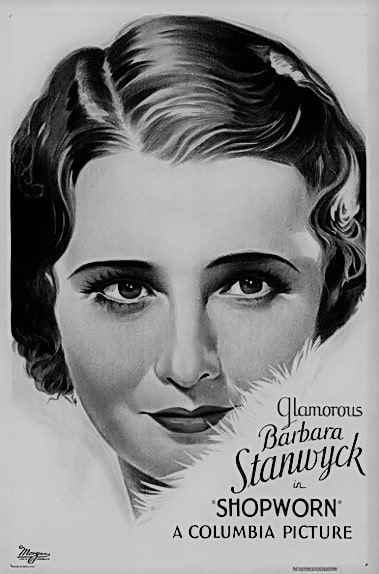 SHOPWORN (1932)
SHOPWORN (1932) (72 Min.) Genre: 1930 DRAMA, Transfer Quality: B
Barbara Stanwyck overcomes a veritable ocean of clichés and manages to make her "shopworn" heroine come to life in this old-fashioned but rather poignant melodrama. A waitress in her aunt and uncle's café, orphaned Kitty Lane falls in love with society scion Dave Livingston (Regis Toomey). Much to Mrs. Livingston's regret, Dave is equally smitten and the society matron (Clara Blandick) has Kitty convicted on a trumped up charge of prostitution. While Dave accompanies his mother on a long trip to Europe, Kitty serves her time in reform school and later becomes a successful showgirl. Reunited after several years, Dave and Kitty resume their romance and Mrs. Livingston once again attempts to talk Kitty out of marrying her son, this time by brandishing a firearm. Like Marguerite Gautier had before her, Kitty is about to sacrifice her love when Dave's mother suddenly has a change of heart.
Starring: Barbara Stanwyck, Regis Toomey, Zasu Pitts, Lucien Littlefield | Directed by: Nick Grinde
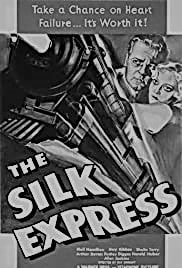 SILK EXPRESS, THE (1933)
SILK EXPRESS, THE (1933) (61 Min.) Genre: 1930 DRAMA, Transfer Quality: A
This drama is set aboard a cross-country train bound for New York. Aboard this train is a silk manufacturer from Seattle who is going to the Big Apple to deliver a valuable shipment. Unfortunately, an avaricious rival is also on board. Fortunately, a railroad detective is also aboard the train as are a sickly professor and his daughter. The foursome join forces and stop the rival. — Sandra Brennan
Starring: Neil Hamilton, Sheila Terry, Guy Kibbee, Dudley Digges | Directed by: Ray Enright
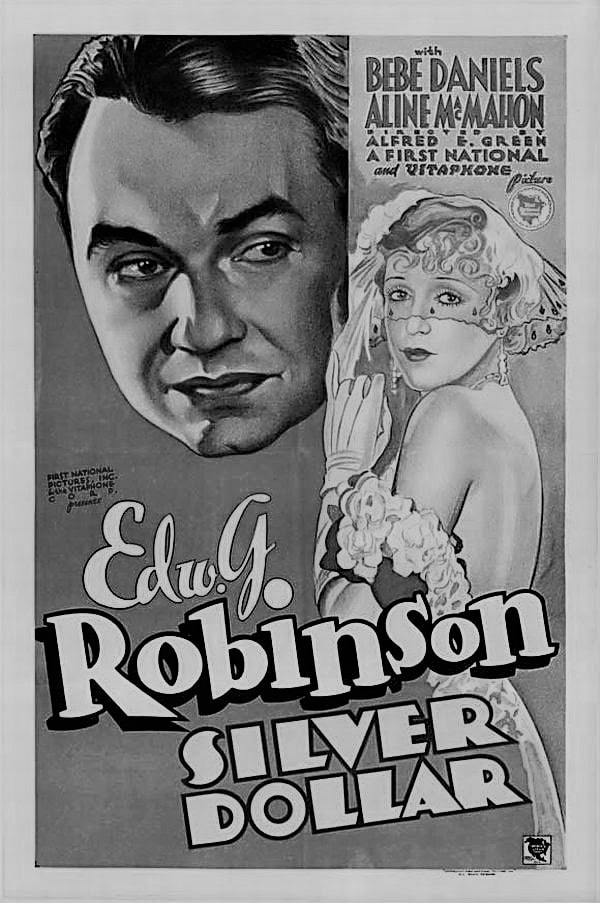 SILVER DOLLAR (1932)
SILVER DOLLAR (1932) (83 Min.) Genre: 1930 DRAMA, Transfer Quality: A
The factual story of H.A.W. Tabor and "Baby Doe" was the inspiration of Silver Dollar. Edward G. Robinson plays the Tabor counterpart, a prospector who strikes it rich with a silver mine. Robinson establishes the city of Denver, strongarms his way into political power, buys every creature comfort he can get his hands on, and deserts his faithful wife (Aline McMahon) for a flashy younger woman (Bebe Daniels, playing the character based on Tabor's mistress "Baby Doe"). Robinson is ruined by the decline of the silver market, spending his last days in near-madness planning and dreaming for a return to his glory days. In real life, it was Baby Doe who went insane, living (and dying) in a tiny shack near the once-prosperous silver mine. Stodgily directed, Silver Dollar isn't nearly as surrealistic as the true story it's based on.
Starring: Edward G. Robinson, Bebe Daniels, Aline MacMahon, Charles B. Middleton, Robert Warwick | Directed by: Alfred E. Green
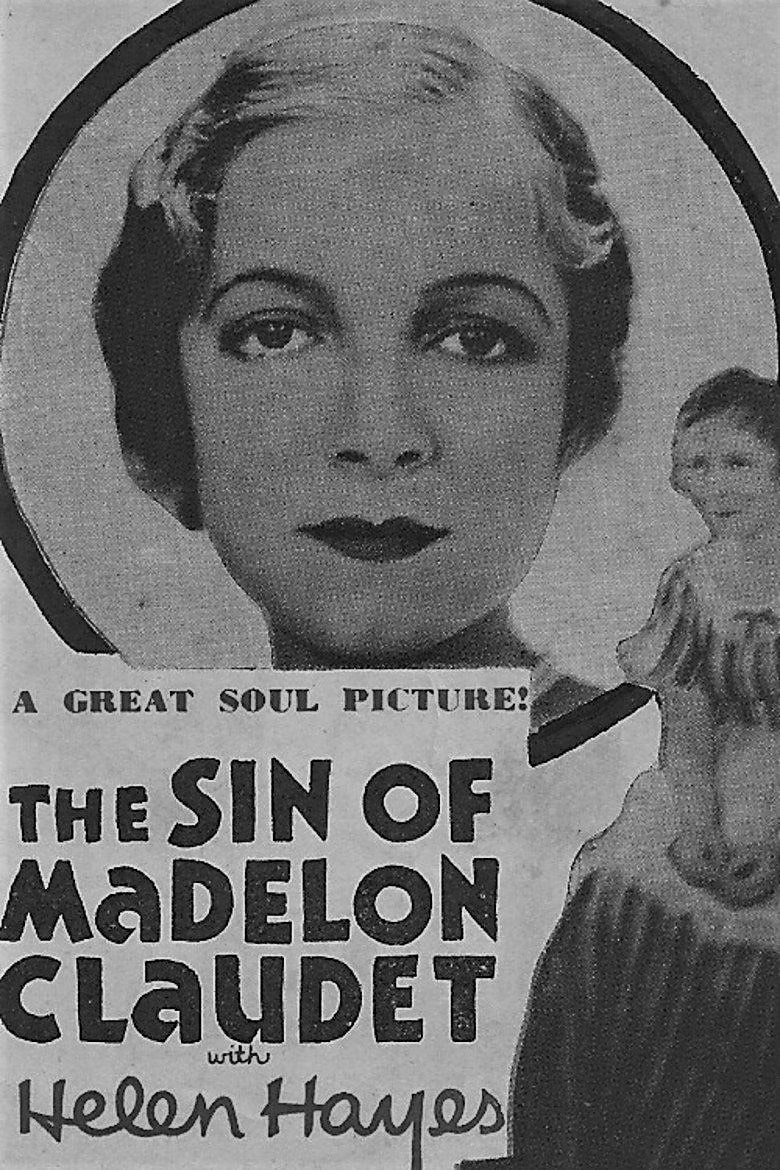 SIN OF MADELON CLAUDET, THE (1931)
SIN OF MADELON CLAUDET, THE (1931) (75 Min.) Genre: 1930 DRAMA, Transfer Quality: A
In the space of 74 minutes, Helen Hayes goes from naïve French country lass to elderly harridan in Sin of Madelon Claudet. Is it any wonder that she won an Academy Award? (She truly deserved this Oscar; the jury is still out concerning her cutesy supporting turn in 1969's Airport, which also copped her the gold statuette). Betrayed by artist Neil Hamilton, Hayes moves on to jewel thief Lewis Stone, who commits suicide to avoid arrest, leaving Hayes to her fate. After ten years in jail for her complicity in Stone's crimes, Hayes turns to the only profession open to her. She walks the streets to raise enough money to support her illegitimate son, who grows up to be Robert Young and who has no idea that Hayes is his mother. Thanks to his mother's anonymous financial support, Young is able to attend medical school, eventually becoming a wealthy doctor. Even allowing for the illogical nature of the plotline and the lachrymose dialogue, the heartrending final scenes of Sin of Madelon Claudet can still raise a lump in the throat after 65 years. — Hal Erickson
Starring: Helen Hayes, Neil Hamilton, Robert Young, Cliff Edwards | Directed by: Edgar Selwyn
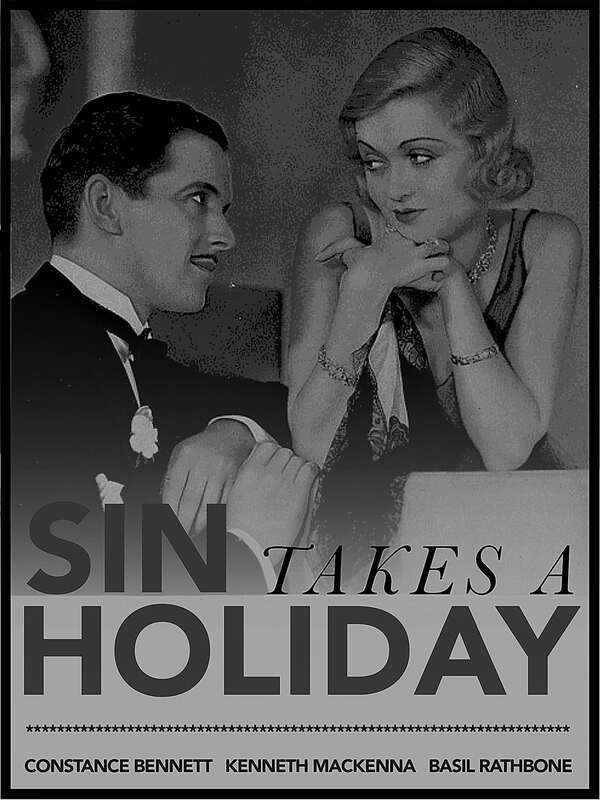 SIN TAKES A HOLIDAY (1930)
SIN TAKES A HOLIDAY (1930) (81 Min.) Genre: 1930 DRAMA, Transfer Quality: A
Ahead of its time for liberated thinking, this is still really just a classic romance with a love triangle thrown in on the side. While on a trip to Paris, a woman meets a man that makes her reconsider her marriage of convenience (she had married her boss to save him from his girlfriend!). — Tana Hobart
Starring: Constance Bennett, Basil Rathbone, Kenneth MacKenna, ZaSu Pitts | Directed by: Paul Stein
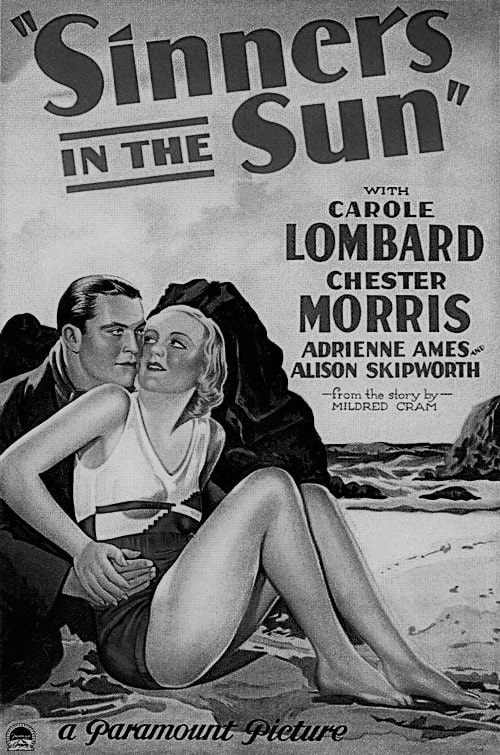 SINNERS IN THE SUN (1932)
SINNERS IN THE SUN (1932) (70 Min.) Genre: 1930 DRAMA, Transfer Quality: B
Paramount Pictures seldom fully utilized the talents of contract player Carole Lombard, as witness such tedious programmers as Sinners in the Sun. Lombard plays Doris Blake, an elegant fashion model who spurns her auto-mechanic suitor Jimmy Martin (Chester Morris) in favor of married millionaire Eric Nelson (Walter Byron). Securing a job as a chauffeur, Jimmy marries his employer, wealthy heiress Claire (Adrienne Ames), on the rebound. Ultimately, both hero and heroine realize that (here comes the message) MONEY ISN'T EVERYTHING, whereupon both turn their backs on money and creature comforts to find happiness with each other. Somewhere near the bottom of the cast list is Cary Grant, who would later co-star with Carole Lombard in the infinitely better romantic drama In Name Only.
Starring: Carole Lombard, Chester Morris, Adrienne Ames, Alison Skipworth | Directed by: Alexander Hall
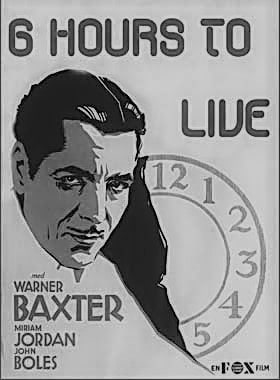 SIX HOURS TO LIVE (1932)
SIX HOURS TO LIVE (1932) (78 Min.) Genre: 1930 DRAMA, Transfer Quality: A
In this off-beat sci-fi film, an outspoken diplomat is murdered during an international trade conference. This is a terrible blow for his native country because the ambassador had come to stop his country from signing a treaty that would allow their enemy to exploit them. To prevent this from happening, a helpful scientist offers to temporarily revive the diplomat—the catch is that the ambassador can only remain resuscitated for six hours. During his precious last hours, the man not only manages to save his country, he also introduces his lover to a new man to replace him. — Sandra Brennan
Starring: Warner Baxter, John Boles, Beryl Mercer, Irene Ware | Directed by: William Dieterle
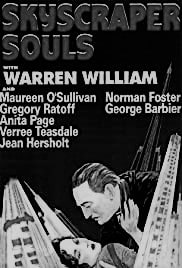 SKYSCRAPER SOULS (1932)
SKYSCRAPER SOULS (1932) (100 Min.) Genre: 1930 DRAMA, Transfer Quality: A
Produced by William Randolph Hearst's Cosmopolitan Production for MGM, this well made Grand Hotel clone was based on a 1931 novel by Faith Baldwin. Warren William stars as David Dwight, a building and bank magnate who not only attempts to double-cross his backers but is two-timing both his wife (Hedda Hopper) and devoted secretary/mistress (Verree Teasdale). Threatened with losing his conglomeration in general and the 100 stories Dwight Building in particular to Hamilton (Arnold Lucy), David's cynical manipulations end up backfiring with unforeseen tragedy
Starring: Warren William, Maureen O' Sullivan, Gregory Ratoff, Anita Page, Wallace Ford | Directed by: Edgar Selwyn
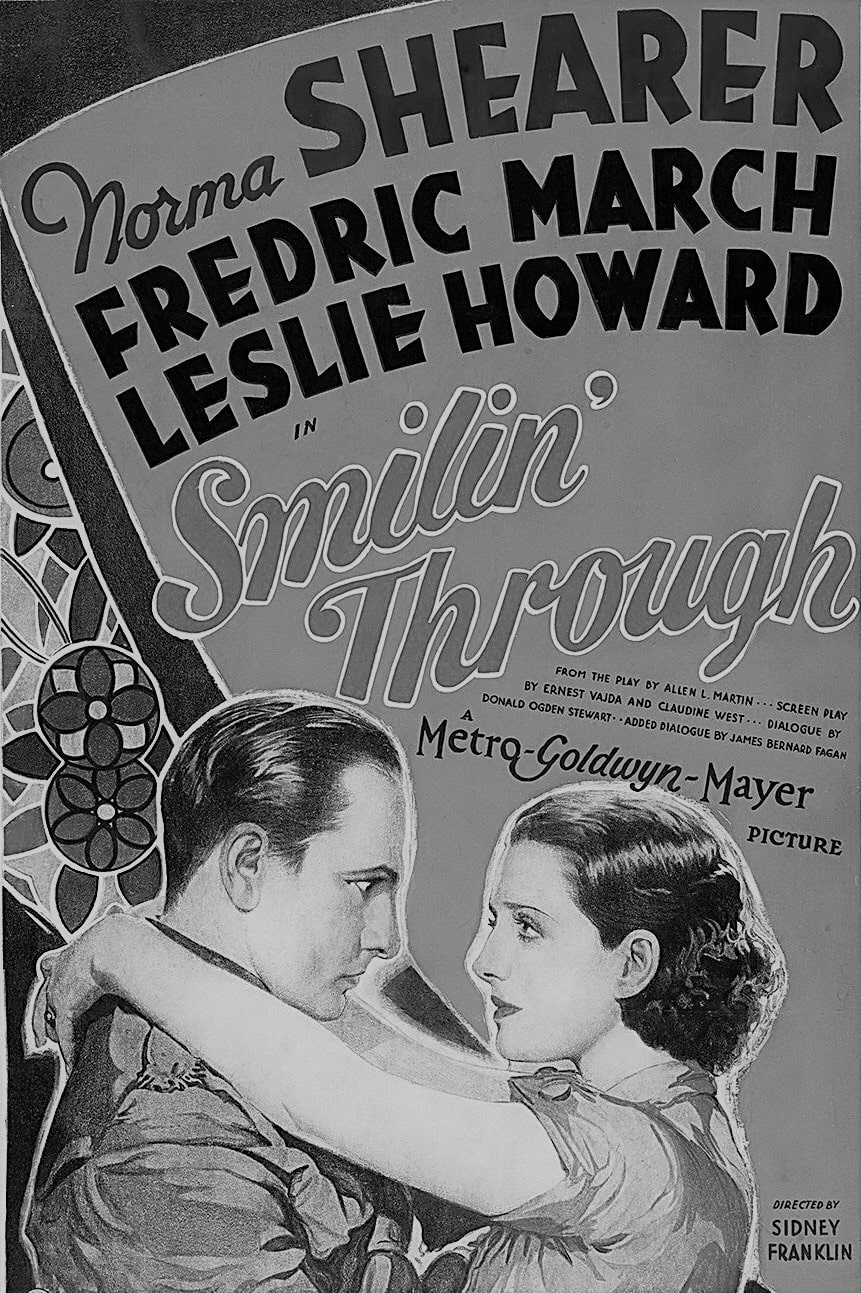 SMILIN' THROUGH (1932)
SMILIN' THROUGH (1932) (98 Min.) Genre: 1930 DRAMA, Transfer Quality: A
Director Sidney Franklin originally adapted Jane Murfin and Jane Cowl's play Smilin' Through for the silver screen in a 1922 silent film starring Norma Talmadge and (the other) Harrison Ford. Remaking his own film, Franklin directed Norma Shearer in this 1932 talkie. Leslie Howard plays John Carteret, an old man whose fiancée (Shearer) was killed on their wedding day by her jilted former suitor (Fredric March). Years later, Carteret is forced to take care of his orphaned niece Kathleen (also Shearer), who looks exactly like his his former betrothed. The niece soon falls in love with Kenneth Wayne (also March), the son of the jilted suitor. Filled with bitterness and resentment about the past, Carteret does all that he can to stand in the way of the blossoming romance. Smilin' Through was once again adapted in a 1941 version directed by Frank Borzage and starring Jeanette MacDonald. — Matthew Tobey
Starring: Norma Shearer, Fredric March, Leslie Howard, O.P. Heggie, Gene Lockhart | Directed by: Sidney A. Franklin
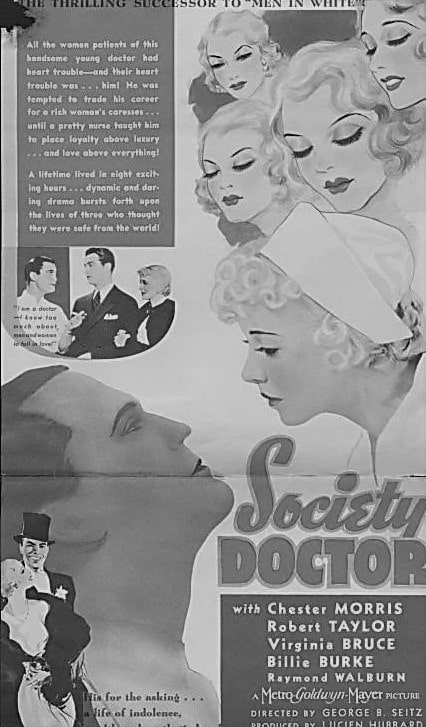 SOCIETY DOCTOR (1935)
SOCIETY DOCTOR (1935) (67 Min.) Genre: 1930 DRAMA, Transfer Quality: B
A crusading physician supervises his own life-threatening operation in this farfetched potboiler from MGM, which marked Robert Taylor's first co-starring assignment. Taylor plays handsome Dr. Tommy Ellis, whose proposal of marriage is at first turned down by surgical nurse Madge Wilson (Virginia Bruce). But when Madge's paramour, the upstanding young Dr. Bill Morgan (Chester Morris), takes a leave of his principles to cater to a rich hypochondriac (Billie Burke), she gives Tommy her "yes." Shot by an escaping convict (Arthur Vinton), Bill survives a risky operation conducted by Tommy under his own guidance, and when he recovers, he finally pops the question to Madge. With Tommy's blessing, the nurse agrees to become Mrs. Morgan. Society Doctor, which was originally reviewed as Under Eight Hours, was directed by George B. Seitz, the veteran craftsman who later helmed MGM's "Dr. Kildare" films.
Starring: Chester Morris, Virginia Bruce, Robert Taylor, Billie Burke | Directed by: George B. Seitz
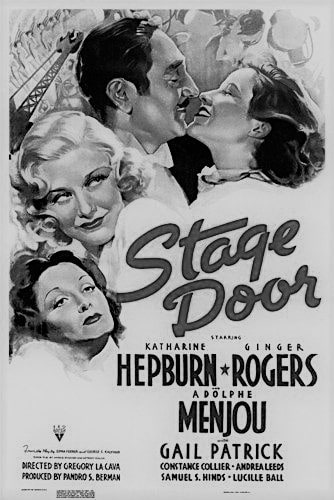 STAGE DOOR (1937)
STAGE DOOR (1937) (92 Min.) Genre: 1930 DRAMA, Transfer Quality: A
Adapted from the Edna Ferber and George S. Kaufman play, Stage Door is a comedic portrait of the theatrical community in New York. Katharine Hepburn stars as Terry Randall a young woman who comes from a wealthy, socially connected family. Aspiring for a career on the stage, Terry opts to see if she can make it on her own gumption and moves into a boarding house with several other wannabe Broadway starlets attempting to make a mark for themselves in show business. Terry's sassy roommate Jean (Ginger Rogers) just might get the opportunity to do that when she meets a lecherous producer, but at what cost? Unamused by Terry's attempts to pull herself up by her bootstraps, her father offers her an opportunity for a starring role in a show that's sure to fail. Lucille Ball, Eve Arden, and Ann Miller are among the other residents of the boarding house. — Matthew Tobey
Starring: Katharine Hepburn, Ginger Rogers, Adolphe Menjou, Lucille Ball, Gale Patrick | Directed by: Gregory La Cava
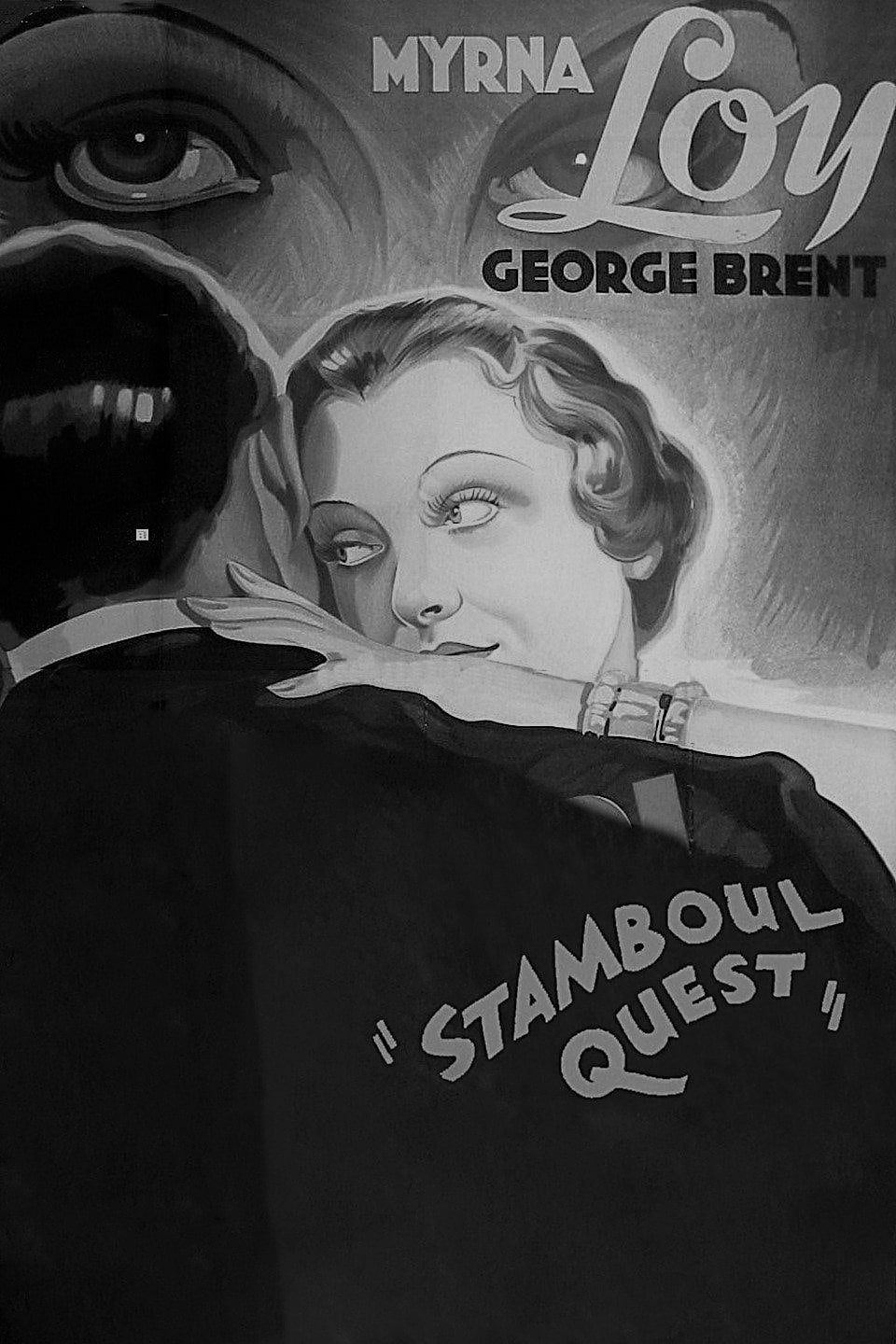 STAMBOUL QUEST (1934)
STAMBOUL QUEST (1934) (88 Min.) Genre: 1930 DRAMA, Transfer Quality: A
The real-life career of the notorious female spy known as "Fraulein Doktor" inspired several films of the 1930s. Stamboul Quest stars Myrna Loy as a seductive espionage agent, working on behalf of the Kaiser in 1915 Istanbul. American medical student George Brent crosses Loy's path, and the two fall in love. Divided between romance and duty, Loy opts for the latter, and apparently causes Brent's death. She goes mad with grief, and is packed away to a mental institution, where her fevered reminiscences provide the lengthy flashback sequences in this film. — Hal Erickson
Starring: Myrna Loy, George Brent, Lionel Atwill, Mischa Auer | Directed by: Sam Wood
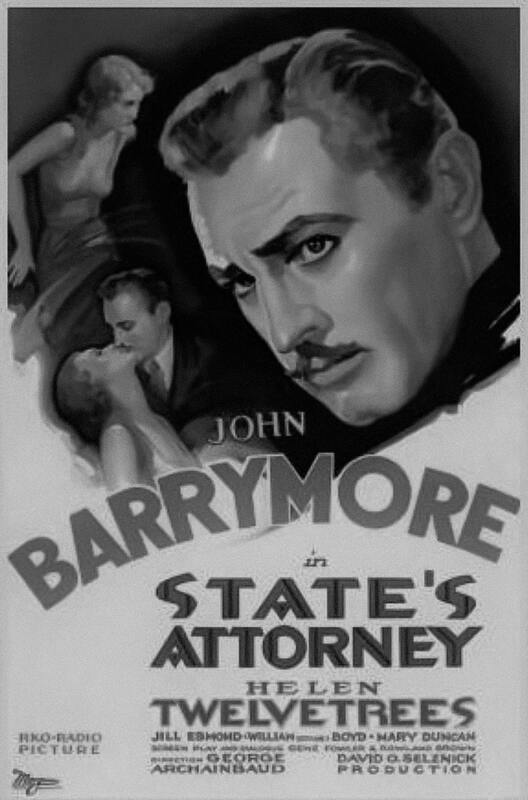 STATES ATTORNEY (1932)
STATES ATTORNEY (1932) (80 Min.) Genre: 1930 DRAMA, Transfer Quality: A
John Barrymore is the "State's Attorney" in the RKO picture of the same name. A brilliant criminal lawyer, Barrymore counts on his underworld connections to climb the ladder of success to the Governor's chair. "Humanized" by his girlfriend Helen Twelvetrees, a former streetwalker, Barrymore decides at long last to go straight, making mincemeat of his one-time mob patron William "Stage" Boyd in a thrilling courtroom finale. Barrymore's longtime drinking crony Gene Fowler collaborated on the script of State's Attorney with gangster-saga scrivener Rowland Brown. The film was remade (and extensively sanitized) as Criminal Lawyer in 1937
Starring: John Barrymore, Helen Twelvetrees, William "Stage" Boyd, Ralph Ince | Directed by: George Archainbaud
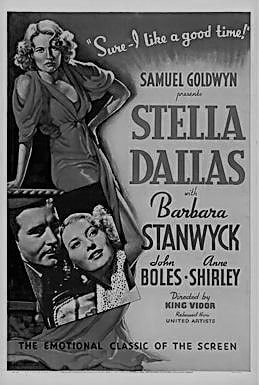 STELLA DALLAS (1937)
STELLA DALLAS (1937) (106 Min.) Genre: 1930 DRAMA, Transfer Quality: A
Produced by Sam Goldwyn, this second film version of Olive Higgins Prouty's Stella Dallas is by far the best. The combined talents of Goldwyn, director King Vidor and star Barbara Stanwyck lift this property far above the level of mere soap opera. Stanwyck is perfectly cast as Stella Martin, the loud, vulgar factory-town girl who snares wealthy husband Stephen Dallas (John Boles). When Stephen is offered a job in New York, Stella stays behind, knowing that she'll never be part of her husband's social circle. She pals around platonically with her old beau, the cheap and tasteless Ed Munn (Alan Hale), a fact that drives yet another wedge between Stella and her husband. The final straw is daughter Laurel's (Anne Shirley) birthday party, which is boycotted by the local bluenoses. Though she would like to remain part of her daughter's life, Stella knows that she and she alone is the reason that Laurel is shunned by the rest of the community. — Hal Erickson
Starring: Barbara Stanwyck, John Boles, Anne Shirley, Barbara O'Neil, Alan Hale | Directed by: King Vidor
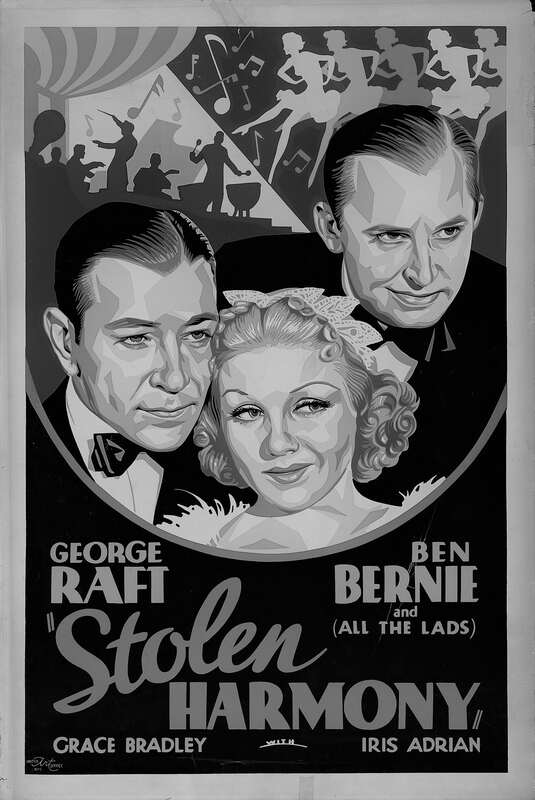 STOLEN HARMONY (1935)
STOLEN HARMONY (1935) (74 Min.) Genre: 1930 DRAMA, Transfer Quality: B
In this bouncy musical, a sax-playing ex-convict joins a swing band and embarks upon a cross-country tour. He does really well until an old friend tries to tempt him into becoming a criminal again. The convict refuses the offer so the "friend" retaliates by doing the job anyway and leaving the con to take the rap. Then the band is kidnapped by a powerful person desiring a private concert. The ex-con saves the band by informing on the crook. He is then allowed to play with them again and musical happiness ensues. Songs include: "Would There Be Love," "Let's Spill the Beans," "I Never Had a Man to Cry Over," and "Fagin Youse is a Viper" (Mack Gordon, Harry Revel). — Sandra Brennan
Starring: George Raft, Ben Bernie, Grace Bradley, Goodee Montgomery | Directed by: Alfred L. Werker
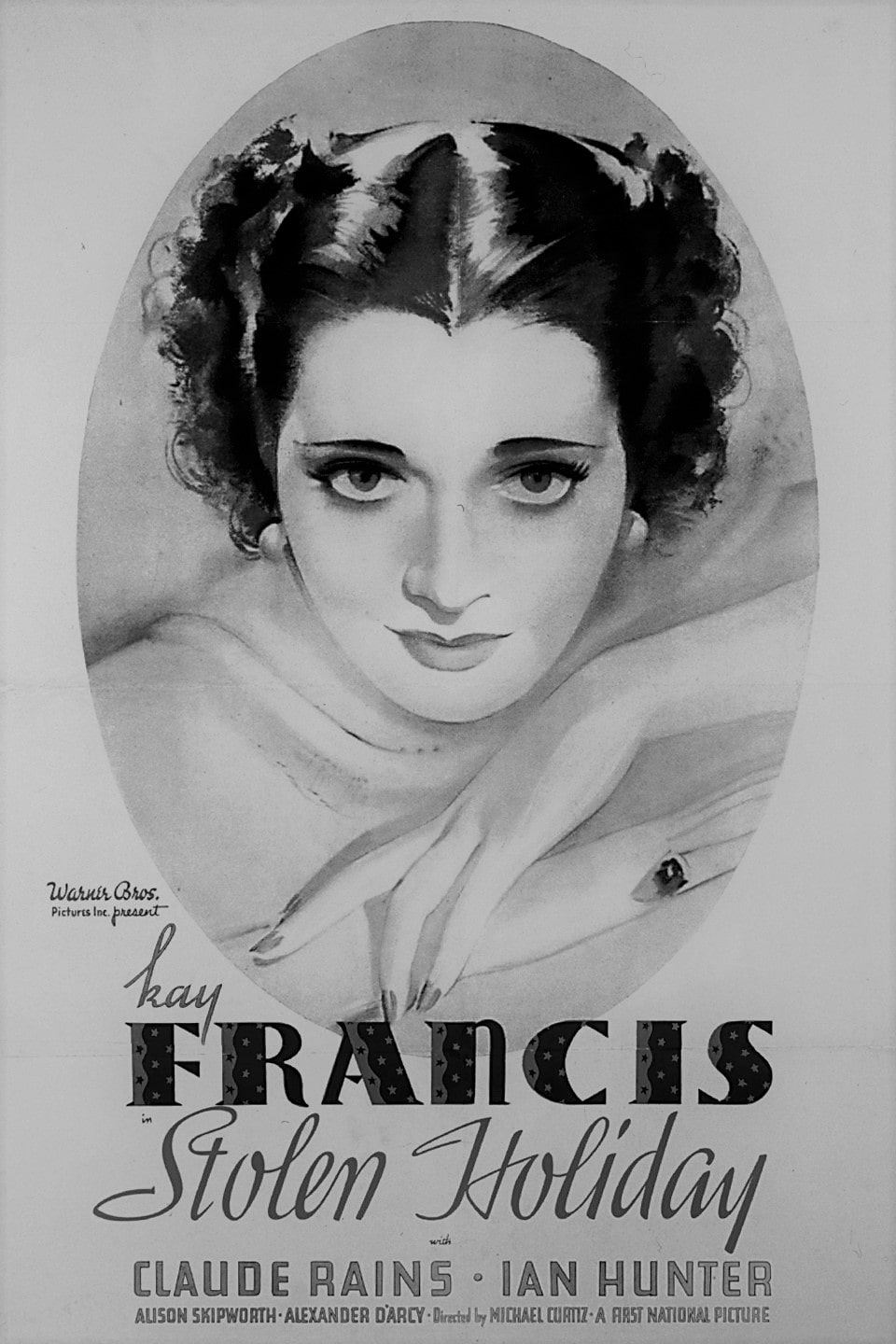 STOLEN HOLIDAY (1936)
STOLEN HOLIDAY (1936) (80 Min.) Genre: 1930 DRAMA, Transfer Quality: A
The "Stavisky Affair," a high-level swindling scandal which all but destroyed the French government in the early 1930s, was the unofficial inspiration for Stolen Holiday. Claude Rains plays a suave confidence artist who has wormed his way into top European social and financial circles. When faced with exposure, Rains is protected by governmental and business higher-ups lest they be arrested for complicity in his crimes. Kay Francis plays an ambitious model who marries Rains, but regrets it when she falls in love with Ian Hunter. The real Alexander Stavisky ultimately avoided prosecution by committing suicide. The Hays Office wouldn't stand for that, so Claude Rains' character in Stolen Holiday is conveniently murdered. — Hal Erickson
Starring: Kay Francis, Claude Rains, Ian Hunter, Alison Skipworth | Directed by: Michael Curtiz
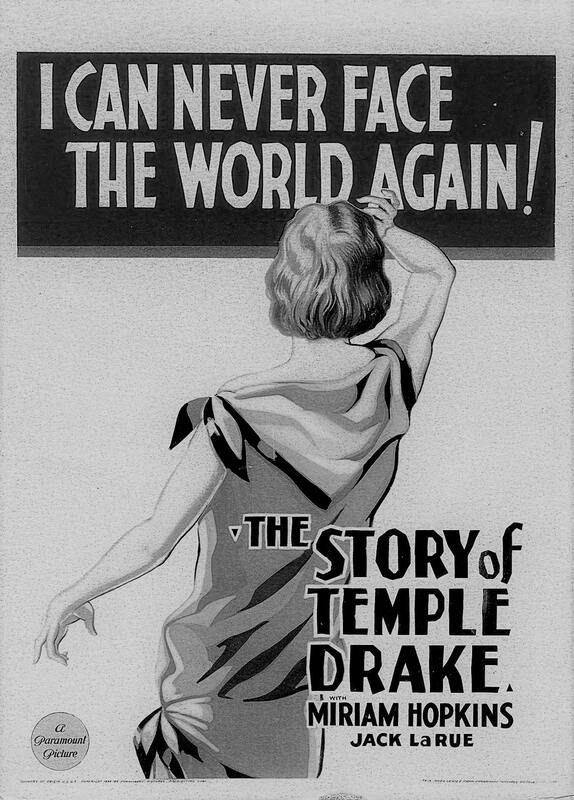 STORY OF TEMPLE DRAKE, THE (1933)
STORY OF TEMPLE DRAKE, THE (1933) (70 Min.) Genre: 1930 DRAMA, Transfer Quality: B
William Faulkner's bestseller Sanctuary was so taboo in some circles that Hollywood couldn't even use the title when making the first film version. Thus, Paramount's adaptation of Sanctuary went out as The Story of Temple Drake, fooling no one who could read. Miriam Hopkins plays the title role, the promiscuous daughter of a Southern judge. Temple will do anything for a thrill, which plays right into the hands of a gang of kidnappers. Coerced into a pickup date at a roadhouse, Temple is held for ransom by the lascivious Trigger (Jack LaRue) and his mob. She is raped by Trigger, whereupon she kills him. One of Trigger's earlier murders is pinned on a hapless half-wit (Irving Pichel). Called to testify in the murder trial by her former boyfriend (William Gargan), the prosecuting attorney, Temple not only confesses to Trigger's killing, but proclaims to one and all that she secretly enjoyed the rape. Even though this hot material was considerably toned down from the novel (where the villain raped Temple with a corncob!), The Story of Temple Drake was one of many films responsible for incurring the wrath of the "clean up Hollywood" brigades—resulting in the restrictive Production Code of 1934. Sanctuary was remade under its original title in 1961.
Starring: Miriam Hopkins, Jack LaRue, William Gargan, William Collier, Jr. | Directed by: Stephen R. Roberts
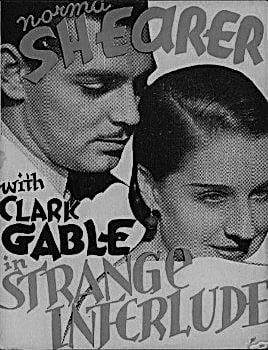 STRANGE INTERLUDE (1932)
STRANGE INTERLUDE (1932) (110 Min.) Genre: 1930 DRAMA, Transfer Quality: A
A remarkably smooth 110-minute adaptation of Eugene O'Neill's marathon eight-hour play, Strange Interlude was advertised as "the picture in which you hear the characters think," a nod to O'Neill's technique of having the characters speak their innermost thoughts out loud between dialogue passages (on stage, the actors stood stock still while delivering their soliloquies; in the film, their thoughts are heard on the soundtrack). Norma Shearer plays Nina Leeds, who during WWI is talked out of marrying her soldier sweetheart Gordon Shaw (Robert Young by her professor father (Henry B. Walthall). When Gordon dies two days before the Armistice, the embittered Nina rebels against her father, escaping his dominance by marrying faithful Sam Evans (Alexander Kirkland). Upon discovering that there is a strain of insanity in the Evans family, Nina, desperate to have children, enters into a romance with Dr. Ned Darrell (Clark Gable). She bears his child, a son named Gordon (Tad Alexander as a child, Robert Young as an adult), assuring Evans that the baby is his. Gordon grows up idolizing Evans and despising Darrell, even though the boy is unaware of the circumstances of his birth or his true parentage. Her love for her son bordering on the obsessive, Nina does everything she can to dominate the boy even into adulthood, trying to scare away her son's fiancee Madeline (Maureen O'Sullivan) by bringing up the insanity issue. Hoping to make up for past misdeeds, Darrell orders Nina to stop poisoning Madeline's mind against Gordon. By the time Evans suffers a fatal heart attack, Nina and Darrell have lost whatever love they shared between them. Through it all, Charlie Marsden (Ralph Morgan), a family friend who has long harbored an unrequited love for Nina, stands on the sidelines vicariously living his life through Nina and Darrell. Of necessity severely cut due to time and censorial constrictions, Strange Interlude still manages to distill the essence of the O'Neill play in its comparative brief running time. The film's major flaw can also be found in the original play: Though the characters age only 25 years or so in the course of the story, by film's end they are seen doddering around like nonagenarians. The "speaking one's thoughts" gimmick in Strange Interlude was parodied in such comedy films as Animal Crackers, Me and My Gal, So This is Africa, and even the Walter Catlett 2-reeler Get Along Little Hubby
Starring: Norma Shearer, Clark Gable, May Robson, Maureen O'Sullivan, Robert Young | Directed by: Robert Z. Leonard
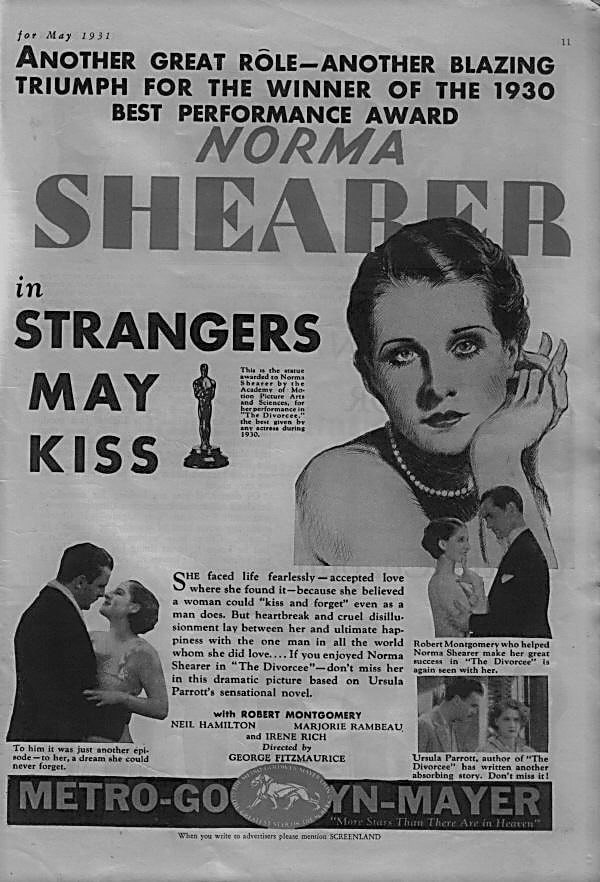 STRANGERS MAY KISS (1931)
STRANGERS MAY KISS (1931) (85 Min.) Genre: 1930 DRAMA, Transfer Quality: A
Norma Shearer stars in this pre-Code melodrama as Lisbeth Corbin, who is in love with Alan (Neil Hamilton), a globe-trotting newspaper reporter, but also strings along Steve (Robert Montgomery), a well-mannered local boy who is good friends with Lisbeth, even though she doesn't love him. When Alan is sent to Mexico to cover a story, love-struck Lisbeth goes with him, but when he's next sent to China, Alan leaves Lisbeth behind. Heartbroken, she heads for Europe, where she tries to forget Alan with a series of short-term love affairs. Try as she might, Lisebth can't forget Alan, but when she returns home, lonely and desperate, she finally agrees to marry Steve. Alan picks this moment to return, but just as she's thrown over Steve for her true love, Alan learns of Lisbeth's escapades in Europe and breaks off the engagement, sending her to the brink of suicide. Keep an eye peeled for an early appearance by Ray Milland as one of Lisbeth's suitors. — Mark Deming
Starring: Norma Shearer, Robert Montgomery, Neil Hamilton, Marjorie Rambeau | Directed by: George Fitzmaurice
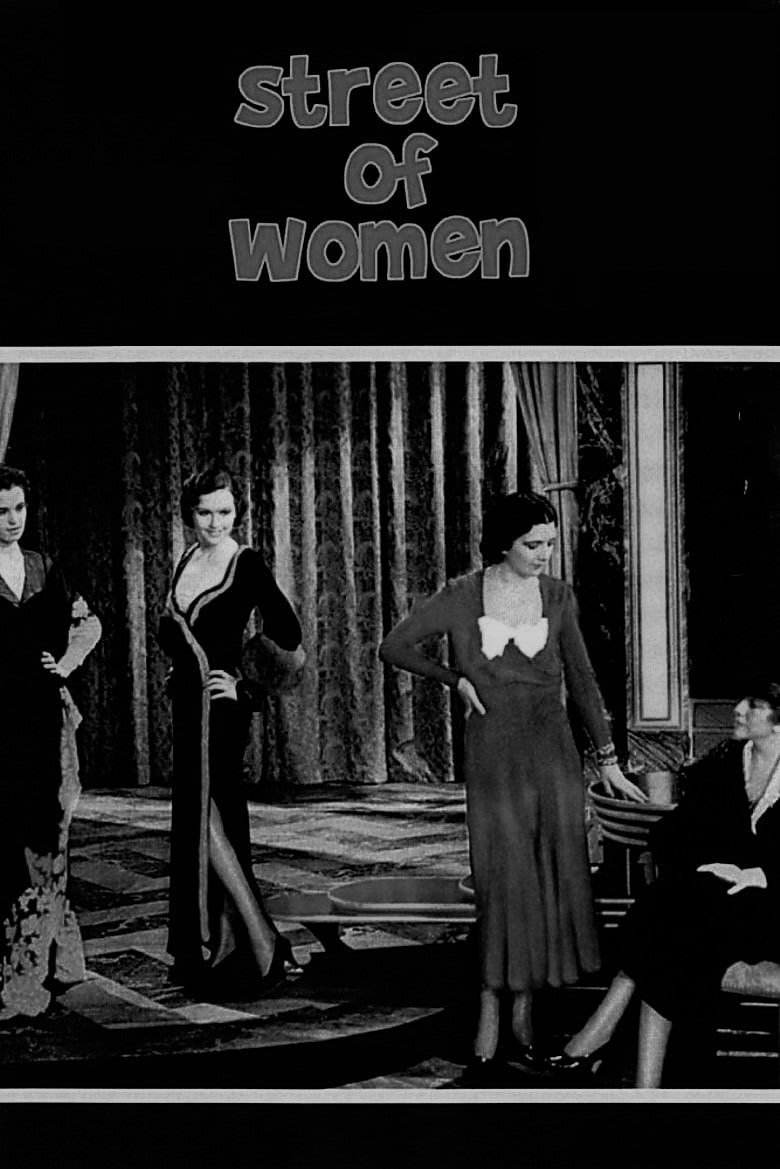 STREET OF WOMEN (1932)
STREET OF WOMEN (1932) (70 Min.) Genre: 1930 DRAMA, Transfer Quality: A
In this complicated drama, a husband begins an affair. His new mistress has a handsome brother who ends up falling for the husband's daughter. Mayhem ensues until the husband's wife learns of the affair and decides to free him by getting a divorce. This frees the husband to marry the mistress and his daughter to marry her brother.
Starring: Kay Francis, Alan Dinehart, Marjorie Gateson, Roland Young, Gloria Stuart | Directed by: Archie Mayo
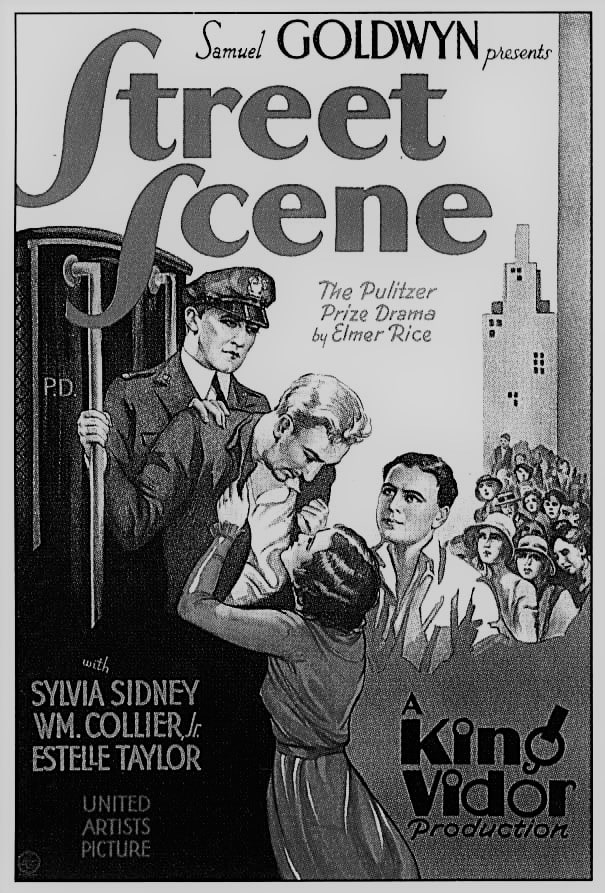 STREET SCENE (1931)
STREET SCENE (1931) (80 Min.) Genre: 1930 DRAMA, Transfer Quality: A
Elmer Rice's Pulitzer Prize-winning play Street Scene was purchased for the screen by producer Samuel Goldwyn in 1931. The entire story takes place on the street in front of a foreboding old New York brownstone, between one evening and the next afternoon. The individual fates of eight neighboring Manhattan families intertwine during this brief stretch of time. Special emphasis is given the Maurrant family: the philandering mother (Estelle Taylor), the drink-sodden husband (David Landau) and long-suffering daughter Rose (Sylvia Sidney). When the husband catches the wife "in the act" with bill-collector Russell Hopton, the resulting tragedy is not shown, but reflecting in the wildly varying reactions of neighbors and passersby. Though resisting the temptation to "open up" the play, director King Vidor nonetheless injects his cinematic know-how into the proceedings, by utilizing an entirely different camera setup or angle for each individual "take." The cast of Street Scene includes several carry-overs from the Broadway original, including David Landau, Max Montor, Matt McHugh (brother of Frank), John Qualen, George Humbert, Tom H. Manning, and Anna Konstant (Sidebar: Shirley Kaplan, the role played by Ms. Konstant, was portrayed in the London production of Street Scene by Greer Garson). Unavailable for TV for many years due to legal tangles, Street Scene was freed up for the small screen when it lapsed into public domain in the early 1980s. — Hal Erickson
Starring: Sylvia Sidney, William Collier Jr., David Landau, Estelle Taylor, Beulah Bondi | Directed by: King Vidor
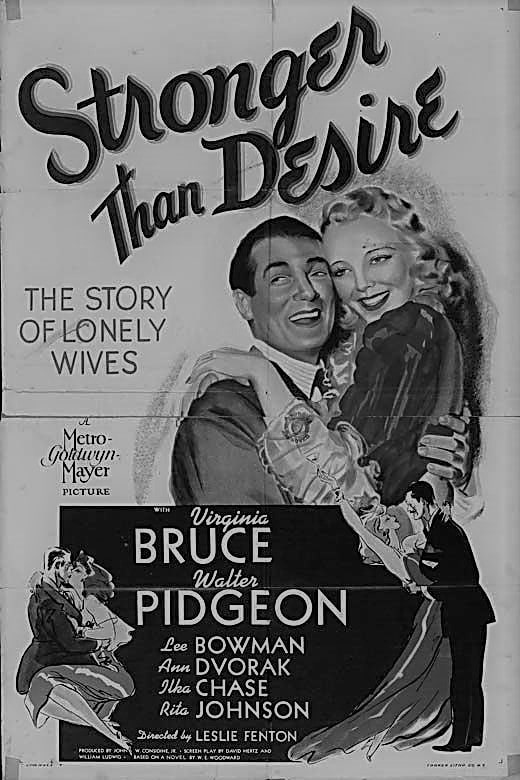 STRONGER THAN DESIRE (1939)
STRONGER THAN DESIRE (1939) (78 Min.) Genre: 1930 DRAMA, Transfer Quality: A
Stronger Than Desire is a streamlined remake of 1934's Evelyn Prentice. Instead of the earlier film's William Powell and Myrna Loy, we are offered Walter Pidgeon and Virginia Bruce in the roles of a dynamic attorney and his wife. Little has changed storywise from Evelyn Prentice: Bruce kills (or thinks she kills) a man who is blackmailing her; another woman is accused of the crime; and as luck would have it, Pidgeon defends the accused woman. The remake is inferior to the original, save for the presence of child actress Ann Todd, who as the couple's daughter is a lot more appealing than Evelyn Prentice's nails-on-the-blackboard moppet Cora Sue Collins. Sidebar: Ann Dvorak, playing an "other woman" role originated by Rosalind Russell in Evelyn Prentice, is directed in Society Lawyer by her then-husband, Leslie Fenton. — Hal Erickson
Starring: Walter Pidgeon, Virginia Bruce, Ann Dvorak, Tom Neal | Directed by: Leslie Fenton
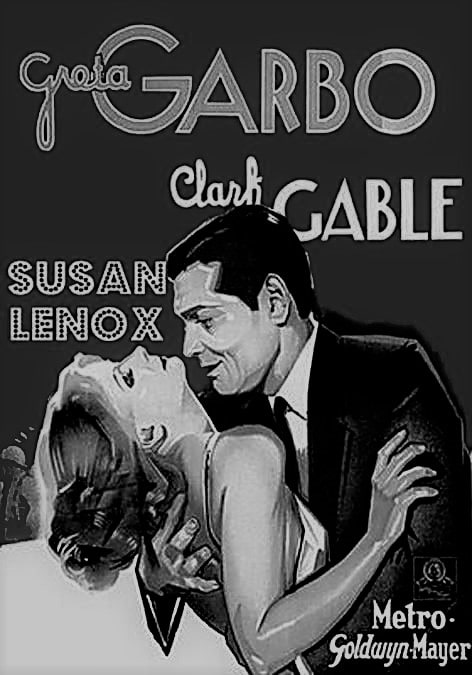 SUSAN LENOX: HER FALL AND RISE (1931)
SUSAN LENOX: HER FALL AND RISE (1931) (84 Min.) Genre: 1930 DRAMA, Transfer Quality: A
It was once theorized by critic Andrew Sarris that this 1931 Greta Garbo vehicle was subtitled "Her Fall & Rise" rather than the expected "Rise & Fall," because Hollywood—and by extension, the public—could not tolerate a failure. Whatever the case, modern audiences will latch onto Susan Lennox not because of its cumbersome title but because of its one-time-only pairing of Garbo and Clark Gable. Fleeing an arranged marriage, Swedish farmer's daughter Garbo takes temporary refuge in a ship's cabin occupied by engineer Gable. Though it is love at first sight, Garbo hastily runs out of Gable's life when her villainous father (Jean Hersholt) shows up. Again a fugitive, Garbo joins a seedy carnival, becoming the kept woman of carney owner John Miljan. By chance, she is reunited with Gable, who spurns her because of her tawdry station in life. Years pass: Garbo has worked her way up the courtesan ladder, becoming the mistress of politician Hale Hamilton. This relationship comes to a sudden halt thanks to Hamilton's muckraking enemies, so it's back to the road for Garbo, who by now will settle for no man but her long-lost Gable. The protagonists finally manage bury the past in the jungle community where the drink-sodden Gable has retreated to "lose himself." Greta Garbo's performance in Susan Lennox: Her Fall and Rise is up to standard, but Clark Gable seems extremely uncomfortable, almost as if suffering an impacted molar. The film was adapted by four screenwriters from a novel by David Graham Phillips. — Hal Erickson
Starring: Greta Garbo, Clark Gable, Jean Hersholt, John Miljan, Alan Hale | Directed by: Robert Z. Leonard
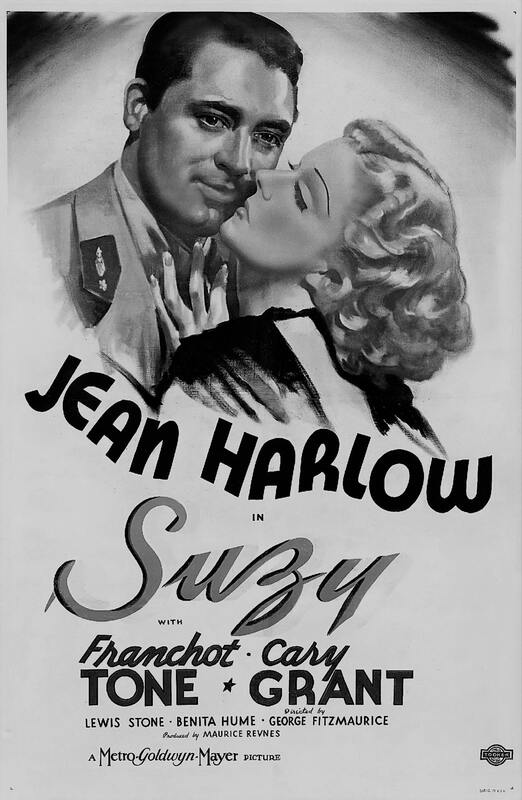 SUZY (1936)
SUZY (1936) (93 Min.) Genre: 1930 DRAMA, Transfer Quality: A
Suzy is the film in which Cary Grant, overcome by the beauty and vivacity of Jean Harlow, sings her a love ballad! This lighthearted moment aside, Suzy, adapted from a novel by Herbert Gorman is a standard-issue love triangle, set against the tapestry of World War I. Harlow plays a London showgirl, married to Irish engineer Franchot Tone. When foreign spy Benita Hume shoots Tone, mistaking him as a threat against her mission, the terrified Harlow flees into the night, certain that she will be accused of her husband's murder. After the war breaks out, Harlow, believing herself a widow, falls in love with handsome aviator Cary Grant. She marries the well-bred but irresponsible young ace, only to discover that Tone has not been killed after all! This being an idealized World War I film, somebody is going to end up sacrificing his/her life on behalf of somebody else, but we're not about to reveal any more. — Hal Erickson
Starring: Jean Harlow, Franchot Tone, Cary Grant, Benita Hume | Directed by: George Fitzmaurice
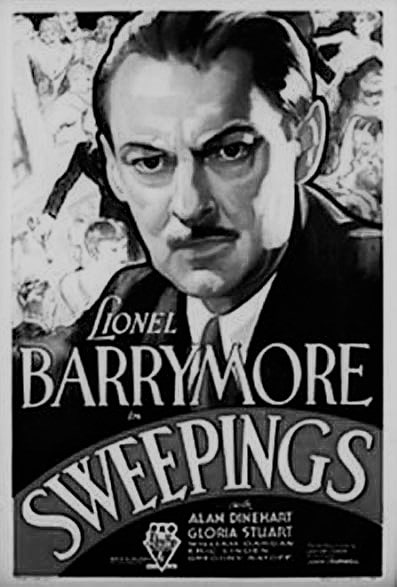 SWEEPINGS (1933)
SWEEPINGS (1933) (80 Min.) Genre: 1930 DRAMA, Transfer Quality: A
Lionel Barrymore plays a Marshall Field-like Chicago businessman who emerges from the wreckage of the 1871 fire to build a department-store empire. Barrymore is aided by his Jewish manager Gregory Ratoff, who despite his business acumen is never made a full partner. The store magnate's four children grow up to be disappointments, preferring to squander dad's money and refusing to enter his business. Manager Ratoff realizes that Barrymore's offspring are worthless, and quietly buys up their shares of the store in order to save the business from ruin, emerging with full charge of Barrymore's empire. Only when Barrymore is on the verge of death do his children rally around him and promise to make something of themselves. A well-made 20th century equivalent to King Lear, Sweepings was remade less effectively as Three Sons in 1939. — Hal Erickson
Starring: Lionel Barrymore, William Gargan, Alan Dinehart, Eric Linden | Directed by: John Cromwell
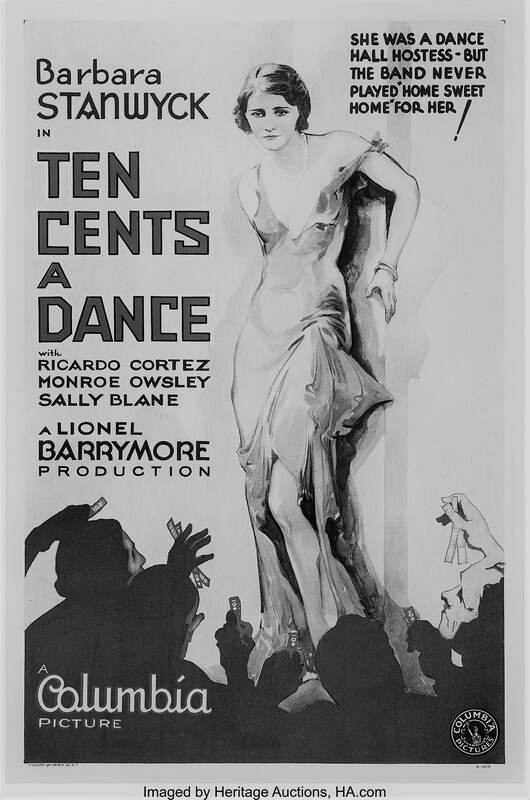 TEN CENTS A DANCE (1931)
TEN CENTS A DANCE (1931) (80 Min.) Genre: 1930 DRAMA, Transfer Quality: B
Ten cents a dance, that's what they pay her — "her" being downtrodden taxi dancer Barbara (Barbara Stanwyck). The only thing Barbara sells is her time, or at least that's the story she gives her jellyfish husband Eddie (Monroe Owsley). But when wealthy Carlton (Ricardo Cortez) starts making goo-goo eyes at Barbara, Eddie accuses his wife of infidelity. This, in Eddie's mind, provides him with an adequate excuse to steal money from Carlton, which action leads to the no-good husband's downfall. Barbara's fate is more merciful: she ends up with Carlton, with whom she has fallen in love.
Starring: Barbara Stanwyck, Ricardo Cortez, Monroe Owsley, Sally Blane | Directed by: Lionel Barrymore, Will Jason
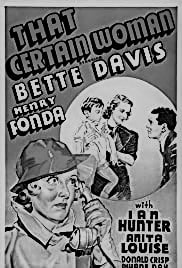 THAT CERTAIN WOMAN (1937)
THAT CERTAIN WOMAN (1937) (94 Min.) Genre: 1930 DRAMA, Transfer Quality: A
Edmund Goulding directed this remake of his own 1929 The Trespasser, which starred Gloria Swanson. Here Bette Davis assumes the lead role of Mary Donnell, a young innocent married to a bootlegger. When her husband is killed, she decides to pursue a better life and gets a job as a secretary to attorney Lloyd Rogers (Ian Hunter). Lloyd falls in love with Mary but stoically keeps his feelings hidden from her. One of Lloyd's clients is the millionaire Merrick (Donald Crisp), whose playboy son Jack (Henry Fonda) falls in love with Mary. The two elope and take off on their honeymoon, but Merrick, who feels that Mary is not good enough for Jack, asks that the marriage be annulled. Jack reluctantly agrees and Mary goes back to her old job with Lloyd. But Mary finds that she is pregnant and has a baby boy. She swears Lloyd to secrecy concerning her child and Lloyd agrees. Meanwhile, Jack marries a woman of his own class, Flip (Anita Louise), but she is fatally injured in an automobile accident. Lloyd also falls ill and dies at Mary's feet —but not before confessing his love for Mary. When his will is read, it reveals that he has left Mary and her child a vast fortune. Lloyd's wife (Katherine Alexander) believes the baby boy is Lloyd's illegitimate child, and she tries to overturn the terms of the will. Jack hears about Mary's child, and she confesses that the child is actually his. Merrick then tries to have the baby taken away from Mary, contending that she is unfit to raise the baby. Unable to withstand Merrick's legal hammering, Mary offers the child to Jack and Flip. Mary, distraught after abandoning her baby, leaves on a European trip. While she is gone, Flip dies and Jack leaves for Europe to try to find her. — Paul Brenner
Starring: Bette Davis, Henry Fonda, Ian Hunter, Anita Louise | Directed by: Edmund Goulding
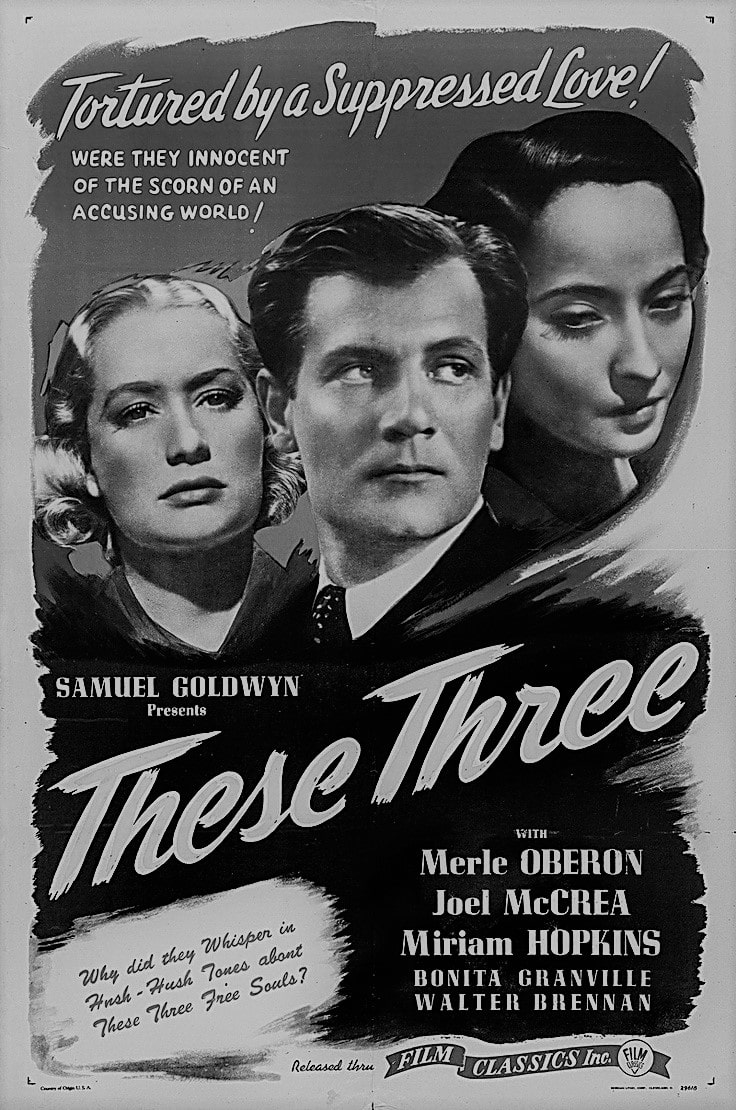 THESE THREE (1936)
THESE THREE (1936) (93 Min.) Genre: 1930 DRAMA, Transfer Quality: A
Lillian Hellman's 1934 Broadway play The Children's Hour was such a hot potato that film producer Samuel Goldwyn was denied Production Code permission to use the play's original title. The reason was the story's lesbian theme, a factor that also blocked The Children's Hour from winning a Pulitzer Prize. In the original story, lifelong friends Martha Dobie and Karen Wright manage an exclusive girl's boarding school. Spoiled-rotten student Mary Tilford, angered at being disciplined, fabricates a story that casts a questionable light on the women's friendship. In attempting to defend themselves against the accusations of the little girl's wealthy and powerful aunt, Martha and Karen lose everything in court. By the time the girl has admitted her lie and the aunt has come to apologize, it is too late: After confessing that she has harbored "unnatural" feelings towards Martha, Karen commits suicide. In adapting her play to the screen, Lillian Hellman expertly weeded out all hints of lesbianism, and also eliminated Karen's self-inflicted death ("suicide as a plot solution" was another Production Code no-no). In the revised version, Mary Tilford (played with unbridled venom by Bonita Granville) spreads a rumor that Martha (Miriam Hopkins) has been carrying on an illicit affair with doctor Joseph Cardin (Joel McCrea), the boyfriend of Karen (Merle Oberon). The end result is essentially the same—the school is destroyed, along with Martha and Karen's reputation—but Karen manages to survive to fade-out time. In defending the "evisceration" of her play, Hellman defended herself by noting that her original point was not to force a lesbian subtext down the throats of the audience, but to show how a vicious lie—any vicious lie—can have disastrous consequences. While it makes a good story, it is probably not true that, when informed that the leading characters in The Children's Hour were lesbians, producer Goldwyn replied "Who cares? We'll make them Americans." These Three was refilmed in 1961 by its director William Wyler, under its original title The Children's Hour, with Hellman's original text—lesbianism and all—intact; ironically, the censor-ridden earlier film is the far superior version. — Hal Erickson
Starring: Miriam Hopkins, Merle Oberon, Joel McCrea, Bonita Granville | Directed by: William Wyler
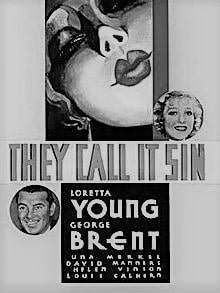 THEY CALL IT SIN (1932)
THEY CALL IT SIN (1932) (68 Min.) Genre: 1930 DRAMA, Transfer Quality: B
Though only 19, Loretta Young was an established Hollywood star in 1932, appearing in six films in that year alone. In They Call It Sin, Young plays Marion, a church organist in a picturesque Kansas village. She falls in love with visiting city slicker Jimmy (David Manners) -- who, worse luck, is already married to Enid (Helen Vinson). Arriving in New York to try her luck as a songwriter, Marion continues to be strung along by Jimmy, while faithful Tony (George Brent), who has loved her all along, suffers in stoic silence. All the various plot strands are neatly tied up when Humphries (Louis Calhern), a cagey theatrical producer with evil designs on Marion, takes a headlong plunge from his penthouse apartment. They Call It Sin was based on a novel by Alberta Stedman Eagan.
Starring: Loretta Young, George Brent, David Manners, Louis Calhern | Directed by: Thornton Freeland
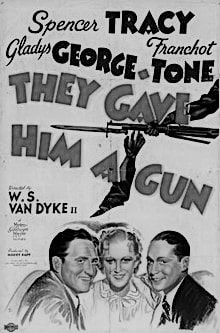 THEY GAVE HIM A GUN (1937)
THEY GAVE HIM A GUN (1937) (95 Min.) Genre: 1930 DRAMA, Transfer Quality: A
In this WW II era drama, a timid, pacifistic clerk is befriended by a gutsy circus barker while they are in the military. Tensions arise between the friends after they fall for the same woman. The circus man is captured by the Germans and shortly thereafter, the clerk marries the girl. In time, the clerk finds courage he never knew he had and becomes a legendary hero. The war ends, but by the time, the clerk is returned to civilian life, he has come to like killing others. Unable to adjust, he becomes a gangster, something he conceals from his wife. Years pass and he runs into his old friend the circus barker, who has become the owner of his own circus. By this time the gangster's wife has learned of his profession and she teams up with the ringmaster to help straighten him out. When all else fails, she turns him into the cops. To earn money while he serves his time, the woman joins the other man's circus. It's all innocent, but the gangster, having just busted out of prison, doesn't realize this. — Sandra Brennan
Starring: Spencer Tracy, Gladys George, Franchot Tone, Edgar Dearing | Directed by: W.S. Van Dyke
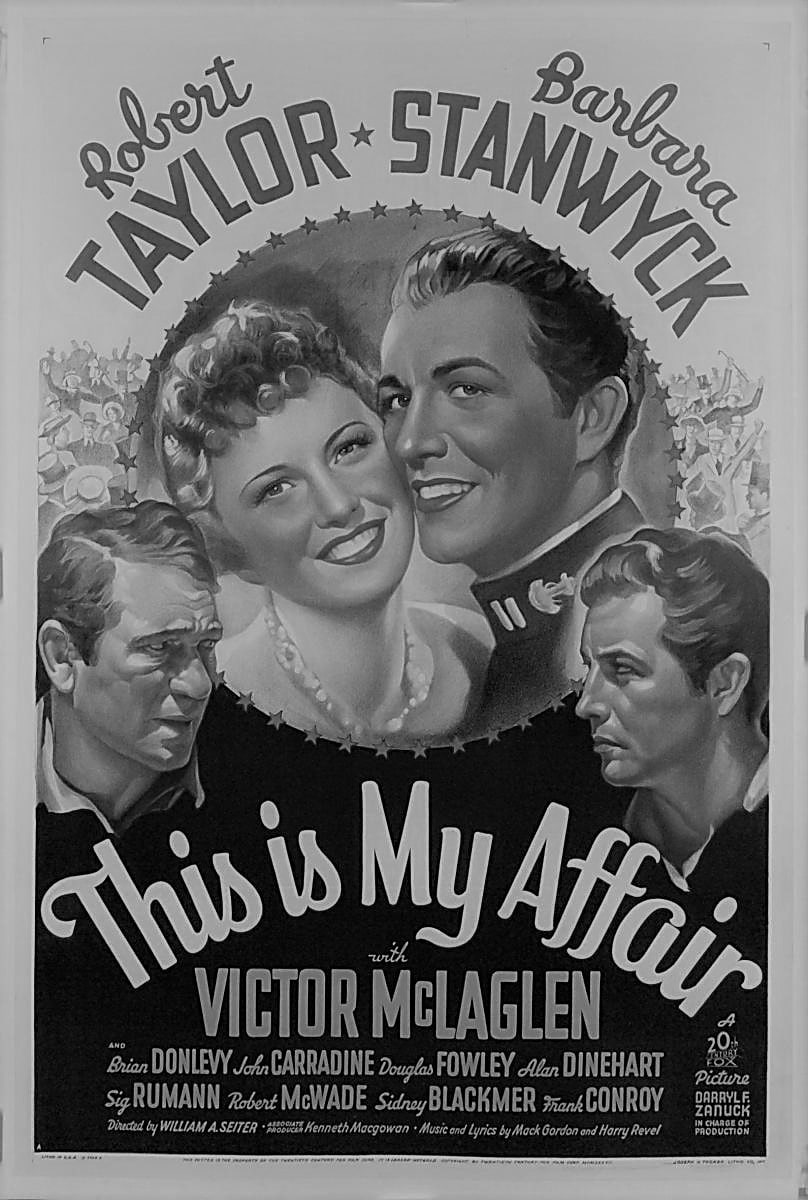 THIS IS MY AFFAIR (1937)
THIS IS MY AFFAIR (1937) (101 Min.) Genre: 1930 DRAMA, Transfer Quality: B
Based on fact, this turn-of-the-century crime drama stars Robert Taylor and Barbara Stanwyck (husband and wife at the time). Taylor plays a seemingly disreputable young man who joins a gang of murderous bank robbers, headed by Victor McLaglen. Stanwyck is a beer-hall entertainer, who disapproves of Taylor's activities and tries to reform him. She needn't bother: Taylor is in reality an undercover detective, on a top secret mission for President William McKinley. So anxious is Taylor to bring McLaglen to justice that he allows himself to be convicted of murder. The agent is confident that the president will keep him from hanging—but McKinley is assassinated before he can intervene. Stanwyck rescues Taylor by pleading his case with McKinley's successor, Teddy Roosevelt (Sidney Blackmer). The plot of This is My Affair was impressive enough to inspire at least one imitation: Night Riders, a 1939 Republic western wherein the martyred president who shares the hero's secret is James A. Garfield.
Starring: Robert Taylor, Barbara Stanwyck, Victor McLaglen, Brian Donlevy | Directed by: William Seiter
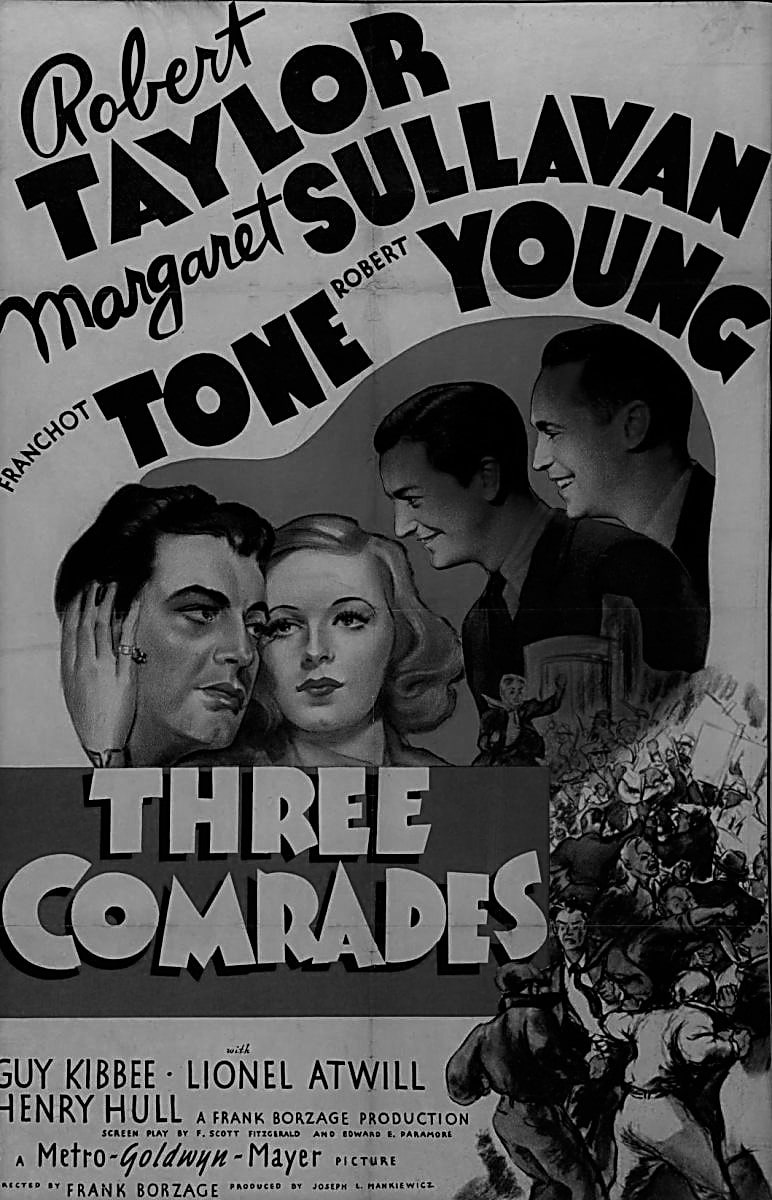 THREE COMRADES (1938)
THREE COMRADES (1938) (98 Min.) Genre: 1930 DRAMA, Transfer Quality: A
Based on a novel by Erich Maria Remarque, Three Comrades represented one of the few successful screenwriting efforts of F. Scott Fitzgerald. Set in Germany in the years just following World War I, the film stars Robert Taylor, Franchot Tone and Robert Young as three battle-weary, thoroughly disillusioned returning soldiers. The three friends pool their savings and open an auto-repair shop, and it is this that brings them in contact with wealthy motorist Lionel Atwill—and with Atwill's lovely travelling companion Margaret Sullavan. Taylor begins a romance with Sullavan, who soon joins the three comrades, making the group a jovial, fun-seeking foursome (this plot element bears traces of Hemingway's The Sun Also Rises, as well as the 1931 film The Last Flight). Though Sullavan suffers from tuberculosis (her shady past is only alluded to), she is encouraged by her male companions to fully enjoy what is left of her life. This becomes increasingly difficult when one of the comrades, Young, is killed during a political riot (it's a Nazi riot, though not so-labelled by ever-careful MGM). In the end, the four comrades are only two in number, with nothing but memories to see them through the cataclysmic years to come. Despite its Hollywoodized bowdlerization of the Remarque original, Three Comrades remains a poignant, haunting experience. — Hal Erickson
Starring: Robert Taylor, Robert Young, Margaret Sullavan, Franchot Tone, George Zucco | Directed by: Frank Borzage
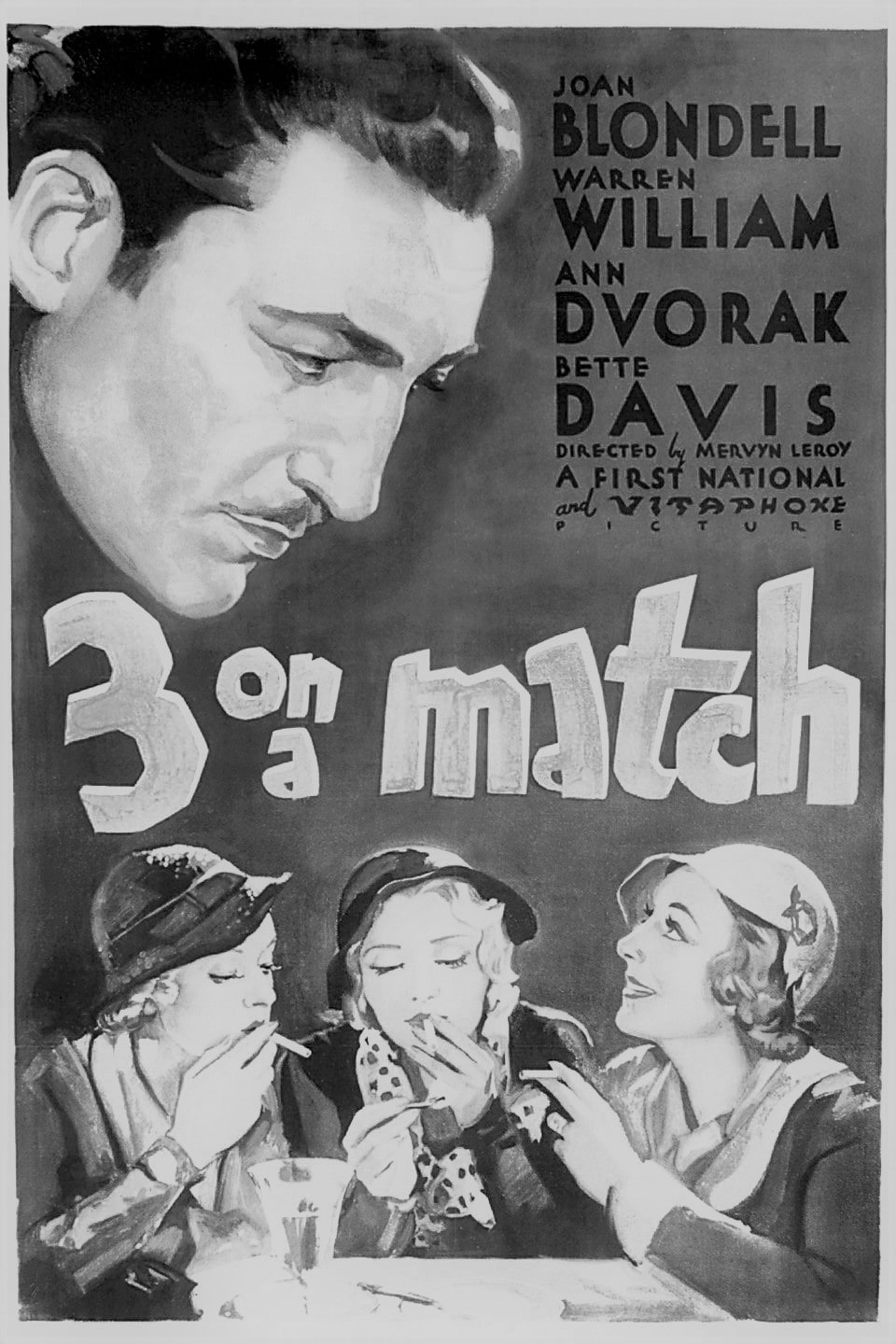 THREE ON A MATCH (1932)
THREE ON A MATCH (1932) (64 Min.) Genre: 1930 DRAMA, Transfer Quality: A
Three on a Match covers approximately 13 years in the lives of girlhood chums Mary Keaton (Joan Blondell), Ruth Wescott (Bette Davis) and Vivian Deverse (Ann Dvorak). Having graduated from grammar school together in 1919, the girls stage a reunion ten years later. Hard-boiled Mary is now a chorus girl, level-headed Ruth has a steady job as a secretary, and vixenish Vivian is on the verge of capriciously deserting her wealthy husband Henry Kirkwood (Warren William) and their baby in favor of sexy mob-boss Mike (Lyle Talbot). Several more years pass, during which Mary marries Henry, Ruth is hired as governess for Henry, and Vivian's son and a drug-addicted Vivian become fatally enmeshed in a kidnapping plot involving her own child. In his second Warner Bros. film, tenth-billed Humphrey Bogart essays his first sneering-gangster role. Three on a Match was remade (and considerably laundered) in 1938 as Broadway Musketeers. — Hal Erickson
Starring: Warren Wiliam, Joan Blondell, Bette Davis, Ann Dvorak, Humphrey Bogart, Lyle Talbot, Glenda Farrell, Edward Arnold | Directed by: Mervyn LeRoy
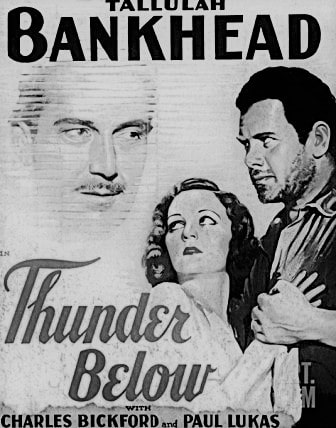 THUNDER BELOW (1932)
THUNDER BELOW (1932) (67 Min.) Genre: 1930 DRAMA, Transfer Quality: B
Tallulah Bankhead's first Hollywood movie was this romantic-drama weepie, in which she plays Susan, the unhappy wife of oil rigger Walt (Charles Bickford), who labors in a Central American oil field. The bored Susan falls in love with Walt's good friend Ken (Paul Lukas) but keeps her husband in the dark about her feelings — until he's plunged into darkness for real when he loses his eyesight. Susan finds her attentions then wandering yet another man, Davis (Ralph Forbes), and Ken urges her to return to Walt. Unable to reconcile her emotions and ashamed of her faithlessness, Susan throws herself from a high cliff.
Starring: Tallulah Bankhead, Charles Bickford, Paul Lukas, Eugene Pallette | Directed by: Richard Wallace
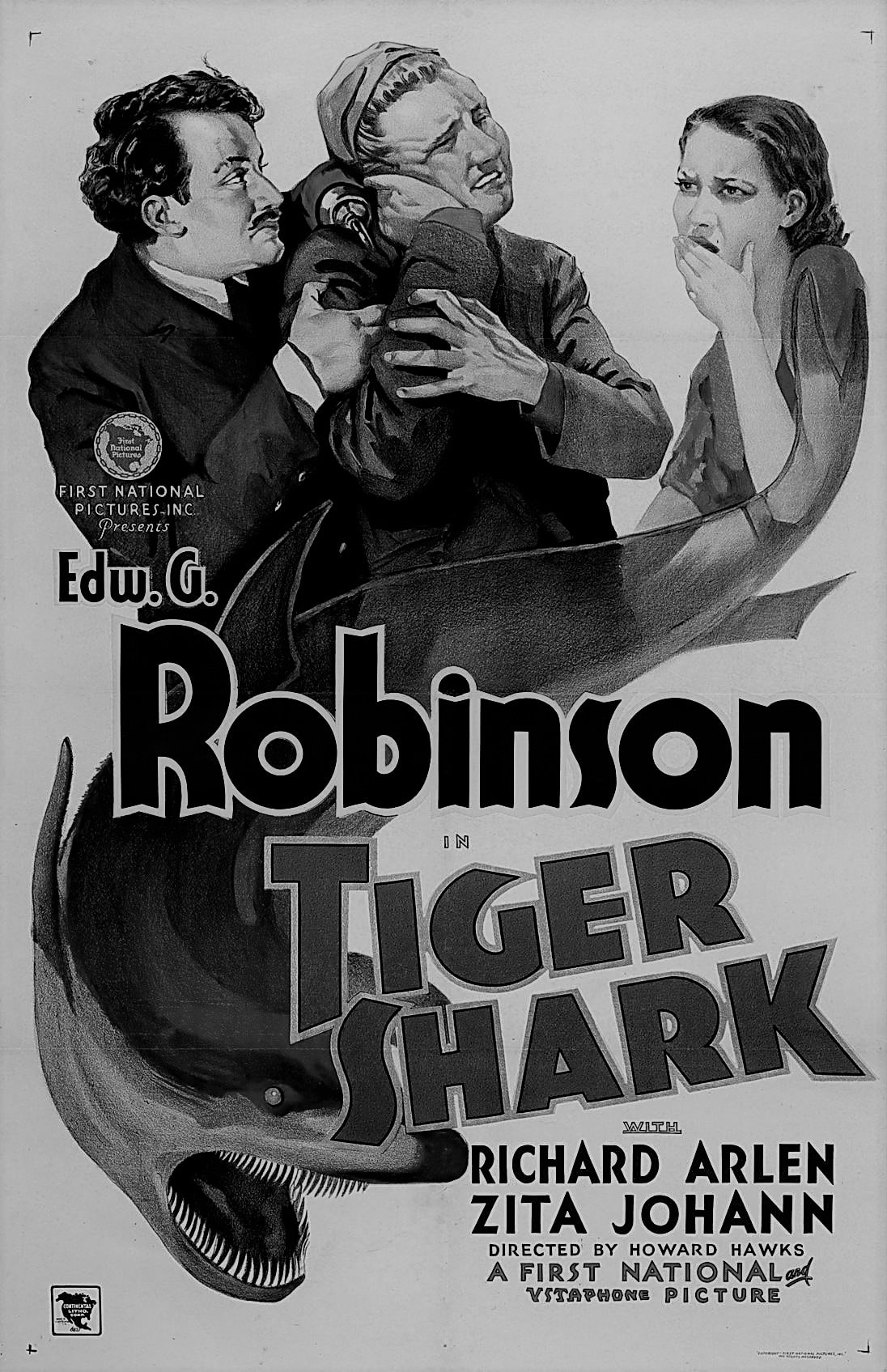 TIGER SHARK (1932)
TIGER SHARK (1932) (80 Min.) Genre: 1930 DRAMA, Transfer Quality: A
It is difficult to determine who is the more ferocious character in this film: The real shark seen in the underwater sequences, or star Edward G. Robinson. Robinson plays a Portuguese tuna boat skipper—the self-styled "best dam' fisherman in the Pacific"—who years earlier had lost his hand to a shark while rescuing best friend Richard Arlen. Robinson promises to look after the daughter (Zita Johann) of a recently deceased crew member. He proposes marriage; she accepts, more out of gratitude than love. The girl eventually falls for Robinson's pal Arlen, who wants to break off the relationship before Robinson gets hurt. But Robinson catches the lovers together, and vows to kill Arlen. In attempting to throw his ex-friend to the sharks, Robinson is accidentally pulled overboard to his own death. Warner Bros. would unofficially remake Tiger Shark several times over the next ten years; while the professions of the two leading male characters would change, the basic "triangle" plot remained the same. — Hal Erickson
Starring: Edward G. Robinson, Richard Arlen, Zita Johann, Leila Bennett, J. Carrol Naish | Directed by: Howard Hawks
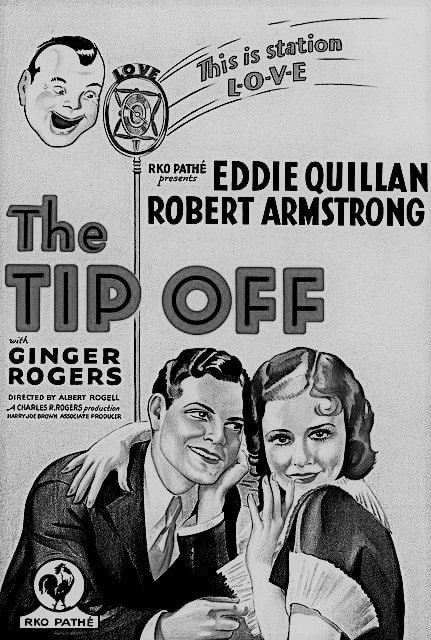 TIP-OFF, THE (1931)
TIP-OFF, THE (1931) (75 Min.) Genre: 1930 DRAMA, Transfer Quality: B
Cowboy star Bill Cody essays a contemporary role in Universal's The Tip-Off. Cody is cast as Jimmy LaMarr, a gentleman burglar who is shot while escaping his latest caper. Jimmy hides out in the home of Crystal Annie (Duane Thompson), a phony fortune teller who nurses our hero back to health. Annie's crooked boyfriend The Shrimp (George Hackathorne) assumes that there's hanky-panky afoot between his girl and Jimmy, thus he tips off the cops as to the time and location of Jimmy's next heist. But Annie, who as it turns out really can foretell the future, gloms on to the Shrimp's scheme and rescues Jimmy.
Starring: Eddie Quillan, Robert Armstrong, Ginger Rogers, Joan Peers | Directed by: Albert Rogell
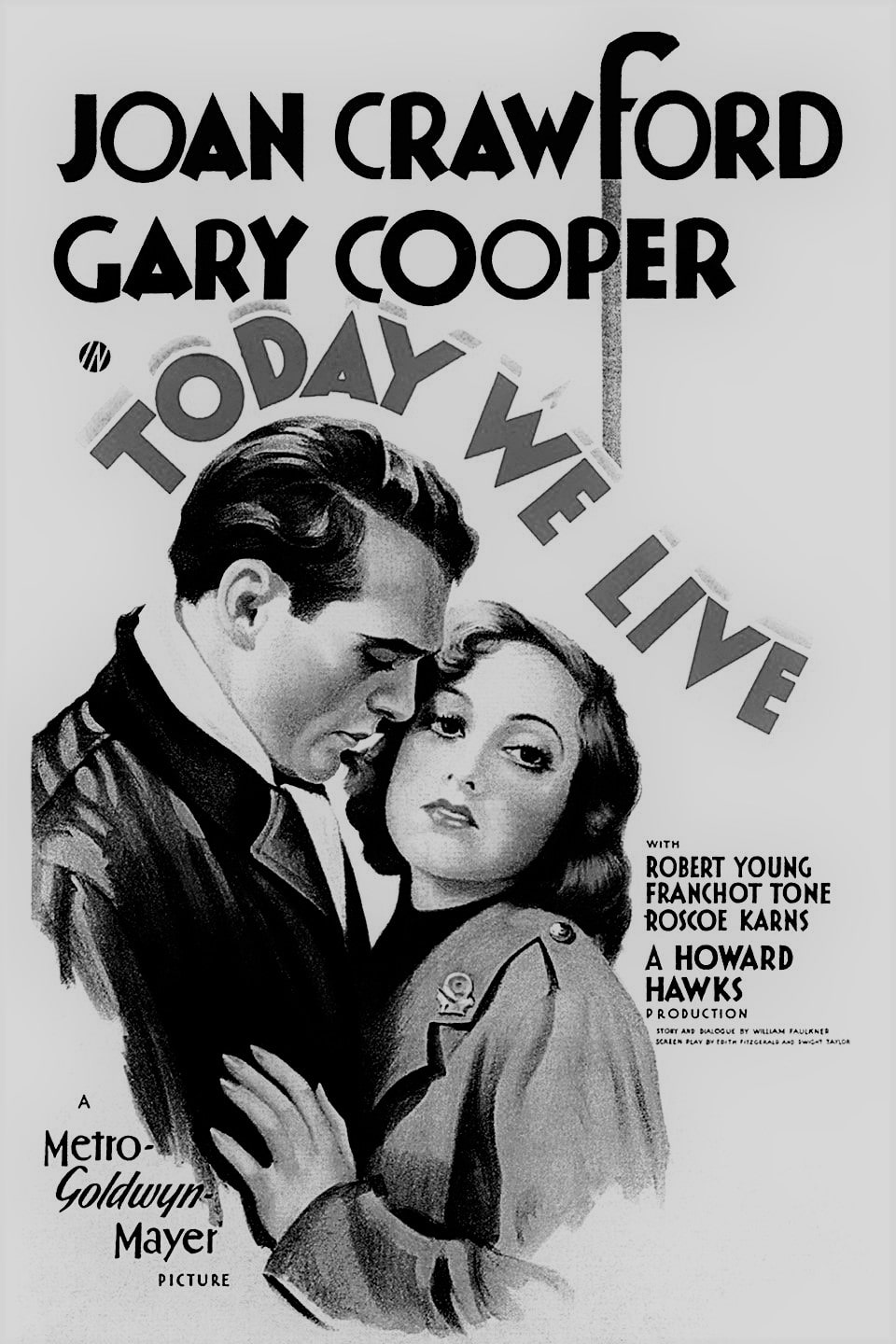 TODAY WE LIVE (1933)
TODAY WE LIVE (1933) (113 Min.) Genre: 1930 DRAMA, Transfer Quality: A
A love triangle forms the basis of this drama set during WWI. The screenplay was written by the story's original author William Faulkner. It centers on a pleasure-seeking British girl who is romantically involved with her brother's naval buddy. She then sees and falls for an American pilot. He leaves to fly a combat mission over France and is later listed as dead, causing her to return to the sailor. Fortunately, the flyer didn't actually die and eventually the two are joyfully reunited. — Sandra Brennan
Starring: Joan Crawford, Gary Cooper, Franchot Tone, Roscoe Karns | Directed by: Howard Hawks
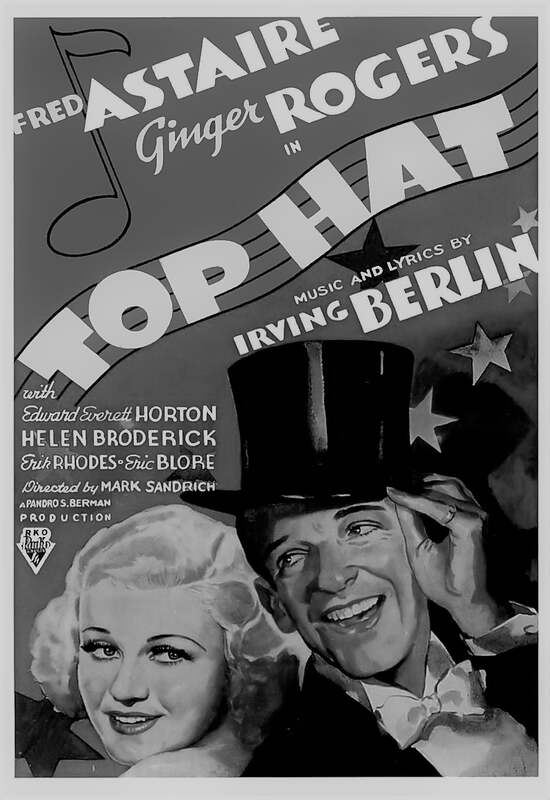 TOP HAT (1935)
TOP HAT (1935) (97 Min.) Genre: 1930 DRAMA, Transfer Quality: A
One of the best of the Fred Astaire-Ginger Rogers musicals, Top Hat centers on a typical mistaken-identity plot, with wealthy Dale Tremont (Rogers), on holiday in London and Venice, assuming that American entertainer Jerry Travers (Astaire) is the husband of her friend Madge (Helen Broderick) — who's actually the wife of Jerry's business manager Horace Hardwick (Edward Everett Horton). Complicating matters is Dale's jealous suitor Beddini (Erik Rhodes), whose motto is "For the woman the kiss — for the man the sword." Beddini is disposed of by some last-minute chicanery on the part of Jerry's faithful valet Bates (Eric Blore), paving the way for the happy ending everyone knew was coming from the opening scene. The Irving Berlin score includes "Cheek to Cheek," "Isn't it a Lovely Day?," and the jaunty title song. The charisma of the stars, the chemistry of the supporting players, the white-telephone art direction of Van Nest Polglaise, the superlative choreography by Astaire and Hermes Pan, and the effervescent direction of Mark Sandrich all combine to make Top Hat a winner. Originally released at 101 minutes, the film was for many years available only in its 93-minute reissue form; it has since been restored archivally to 99 minutes. — Hal Erickson
Starring: Fred Astaire, Ginger Rogers, Edward Everett Horton, Helen Broderick | Directed by: Mark Sandrich
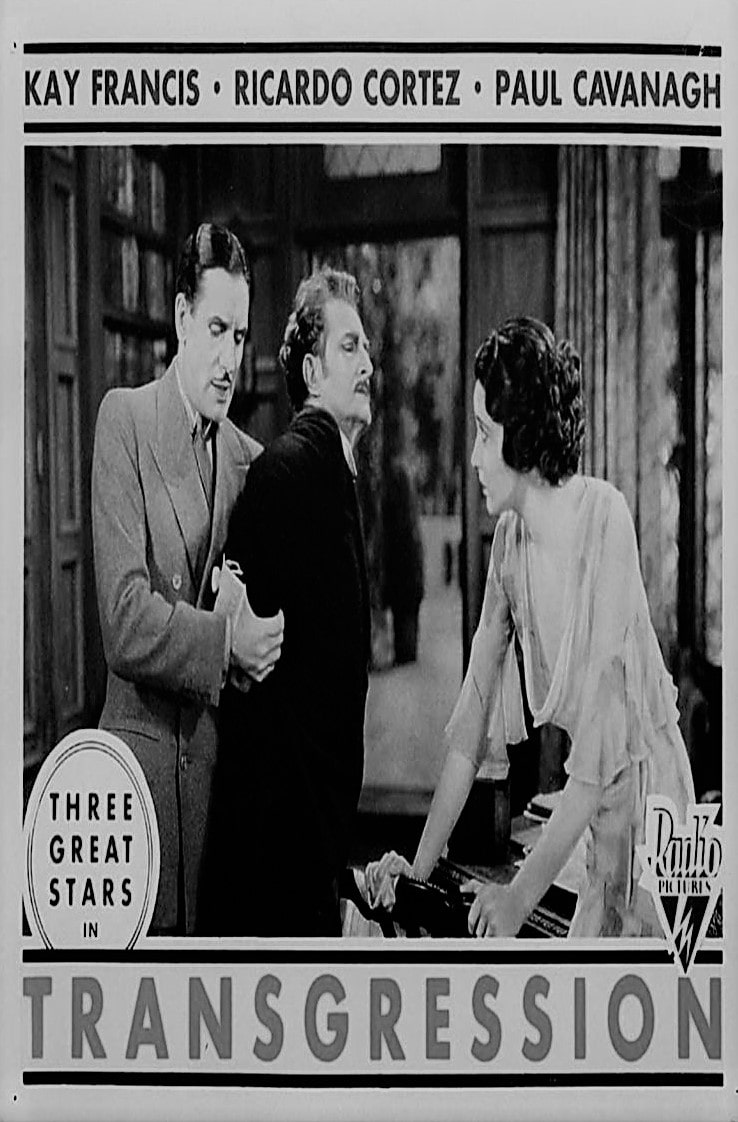 TRANSGRESSION (1931)
TRANSGRESSION (1931) (70 Min.) Genre: 1930 DRAMA, Transfer Quality: A
In this drama, a bored wife amuses herself with a lover from Spain. Later she writes a letter to her spouse explaining her actions. As she posts the letter, she learn that her lover is also involved with a peasant girl. Later the girl's irate father shoots the Spaniard and the wife decides to mend her ways. First she needs to stop that letter, unfortunately she finds herself being blackmailed. Mayhem ensues until at last she confesses all to her husband. Fortunately he forgives her and all is well. — Sandra Brennan
Starring: Kay Francis, Ricardo Cortez, Paul Cavanagh, Nance O'Neil | Directed by: Herbert Brenon
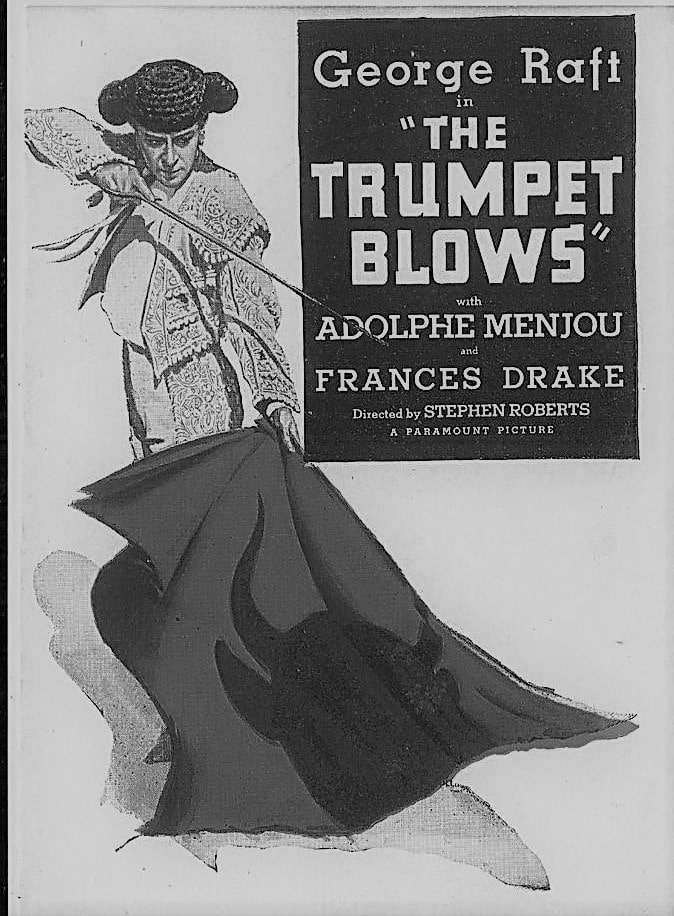 TRUMPET BLOWS, THE (1934)
TRUMPET BLOWS, THE (1934) (72 Min.) Genre: 1930 DRAMA, Transfer Quality: B
Once the audience accepts the notion than George Raft and Adolphe Menjou are Mexican brothers, the rest of Paramount's Trumpet Blows is easy to take. A retired bandit, Pancho Montez (Menjou) wants to settle down to a quiet life. This proves impossible when his headstrong young sibling Manuel (Raft) insists upon trying to become a bullfighter. Manuel also falls in love with Pancho's fiancee Chulita (Frances Drake), but she renounces both of them, calling them cowards. By film's end, of course, both Manuel and Pancho have proven Chulita wrong — and one of them (guess which one?) has claimed her for his wife. Beyond its romantic-triangle intrigues, Trumpet Blows was the first major talkie treatment of the bullfighting mystique.
Starring: George Raft, Adolphe Menjou, Frances Drake, Sidney Toler | Directed by: Stephen R. Roberts
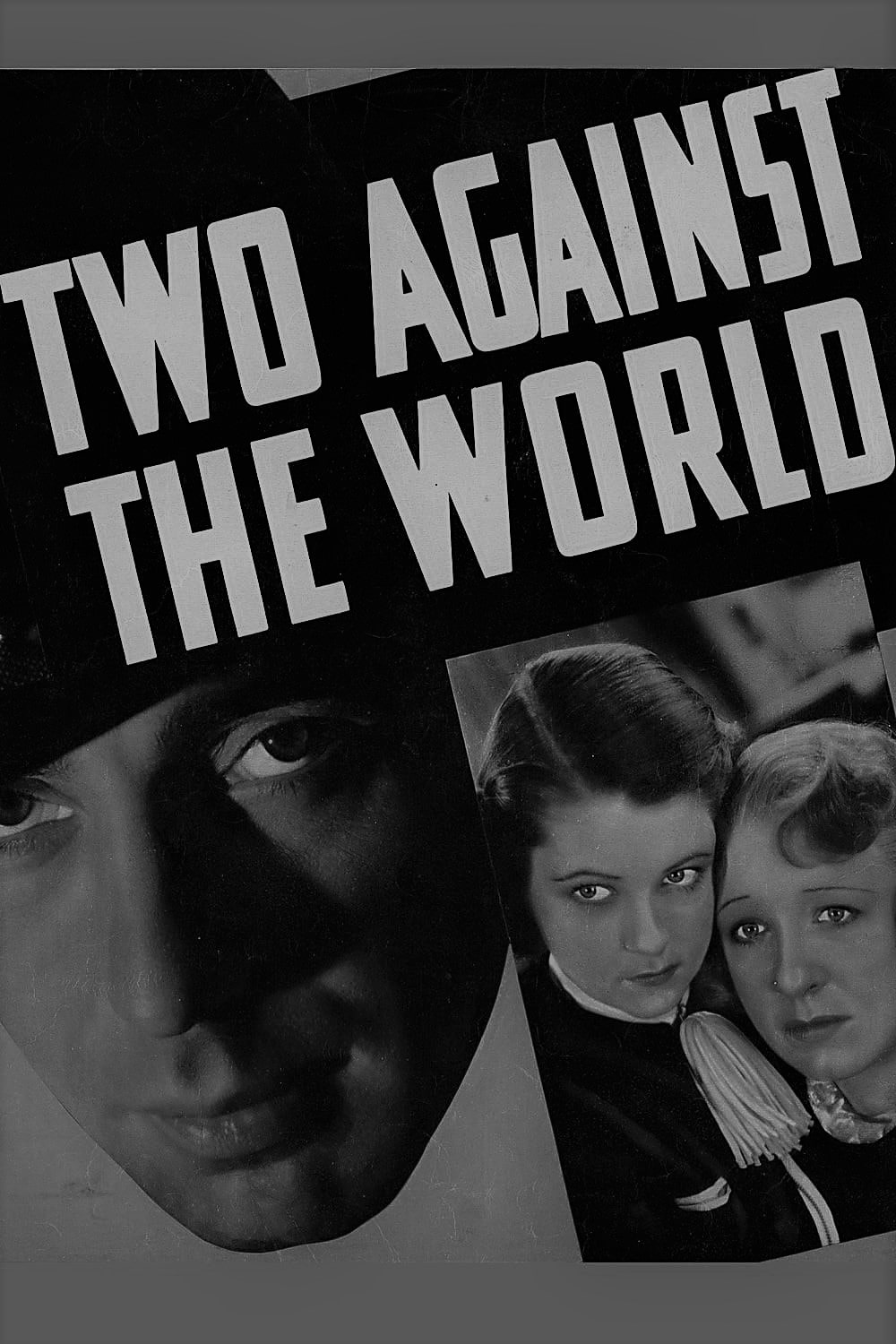 TWO AGAINST THE WORLD (1932)
TWO AGAINST THE WORLD (1932) (80 Min.) Genre: 1930 DRAMA, Transfer Quality: A
Constance Bennett suffers nobly in this outdated but fairly engrossing melodrama in which a seemingly hardened debutante takes the blame for the mistakes of her siblings. When her sister Corinne (Helen Vinson) gets in trouble with a married man (Gavin Gordon), Ardell Hamilton (Bennett) accepts culpability in her stead. She performs the same service for ne'er-do-well brother Bob (Allen Vincent) when he is accused of murdering the philanderer, and who should be the prosecuting attorney in the case but honest, hardworking David Norton (Neil Hamilton), with whom Ardell has fallen in love. — Hans J. Wollstein
Starring: Constance Bennett, Neil Hamilton, Helen Vinson, Allen Vincent, Claire Dodd | Directed by: Archie Mayo
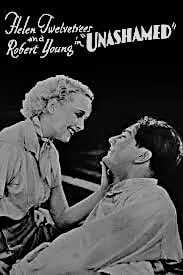 UNASHAMED (1932)
UNASHAMED (1932) (75 Min.) Genre: 1930 DRAMA, Transfer Quality: A
Directed by Harry Beaumont, the courtroom drama Unashamed stars Robert Young as Dick Ogden, who will do anything to protect his sister Jean (Helen Twelvetrees). Unfortunately, Jean is in love with the sleazy Harry Swift (Monroe Owsley), who is only interested in her fortune. After Harry (Owsley) manipulated Jen (Twelvetrees) into spending the night alone with him, Mr. Odgen (Robert Warwick) refused to give them permission to marry. A furious Harry threatens to ruin Jean's reputation, but is shot by Dick (Young) before he can say anything. Heartbroken, Jean does not forgive her father or brother and plans to testify against Dick even if it means the death penalty. It looks as if Dick will be sent to the gas chamber until the very end, when his sister suddenly has a change of heart. — Tracie Cooper
Starring: Helen Twelvetrees, Robert Young, Jean Hersholt, John Miljan | Directed by: Harry Beaumont
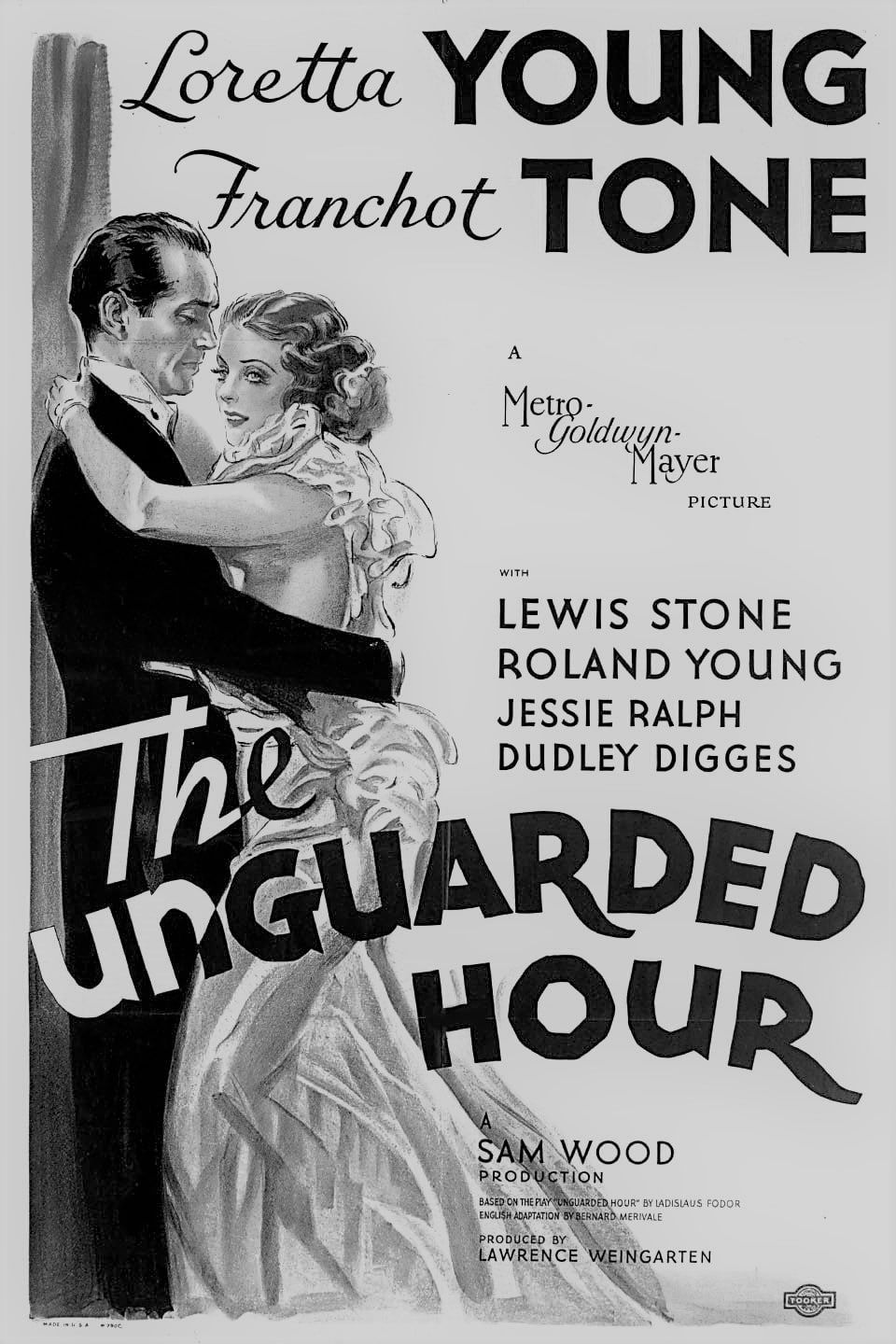 UNGUARDED HOUR, THE (1936)
UNGUARDED HOUR, THE (1936) (90 Min.) Genre: 1930 DRAMA, Transfer Quality: A
The Unguarded Hour opens with prosecutor Sir Alan Deardon (Franchot Tone) in the midst of a murder trial. He gets his conviction, while his wife, Lady Helen (Loretta Young), sits furrow-browed on the sidelines. Helen had witnessed the murder and thus can prove that the condemned man (Dudley Digges) is innocent. But she cannot come forth with this information without revealing a past indiscretion in her husband's life, for which she is being blackmailed. To make a long story short, which MGM didn't, Sir Alan ends the film not as a prosecutor in a murder case, but as the prosecuted. Based on a play by Ladislas Fodor and Bernard Merivale, The Unguarded Hour represented the Hollywood debut of that splendidly satanic villain Henry Daniell, cast to type as the blackmailer. — Hal Erickson
Starring: Loretta Young, Franchot Tone, Lewis Stone, Roland Young | Directed by: Sam Wood
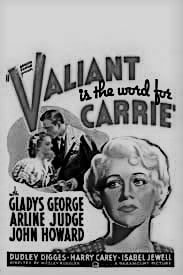 VALIANT IS THE WORD FOR CARRIE (1936)
VALIANT IS THE WORD FOR CARRIE (1936) (110 Min.) Genre: 1930 DRAMA, Transfer Quality: B
Gladys George, a superlative actress often wasted in secondary roles, carries her starring assignment in Valiant is the Word for Carrie with singular brilliance. George plays the town trollop, who for the love of two orphaned children sets up a successful dry-cleaning business. Her past comes back to haunt her, but she perseveres, giving up all thoughts of personal happiness to provide a decent upbringing for her adopted family. A real four-hanky film, Valiant is the Word for Carrie might never have been made if it hadn't been for Mae West. Paramount had signed Gladys George to star in a filmization of her stage hit Personal Appearance, but this property was deflected to Ms. West and retitled Go West, Young Man. As compensation, Gladys George was offered Carrie—and she certainly made the most of this rebound opportunity.
Starring: Gladys George, Arline Judge, John Howard, Dudley Digges | Directed by: Wesley Ruggles
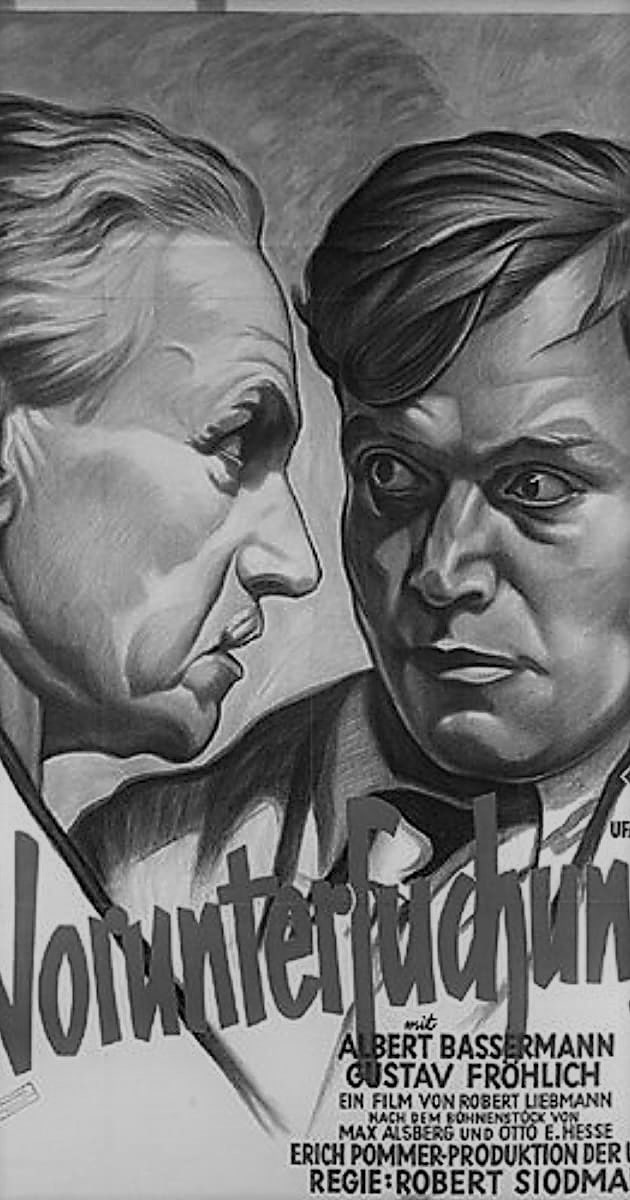 VORUNTERSUCHUNG (1931)
VORUNTERSUCHUNG (1931) (95 Min.) Genre: 1930 DRAMA, Transfer Quality: B
The directorial career of Robert Siodmak continue to gain momentum with his third solo effort, Voruntersuchung (Inquest) When a prostitute is murdered, suspicion falls on Gustav Froelich, the son of a magistrate. A victim of circumstantial evidence, Froelich must endure the hell of a preliminary hearing, where he is subjected to the gloves-off approach of the deceptively avuncular prosecuting attorney Albert Basserman. Voruntersuchung was based on a novel by real-life Berlin lawyer Dr. Max Alsberg. It was filmed simultaneously by director Henri Chanotte (under Siodmak's supervision) in a French-language version, Auteur d'une Etiquette.
Starring: Albert Basserman, Hans Brausewetter, Charlotte Ander, Edith Meinhard | Directed by: Robert Siodmak
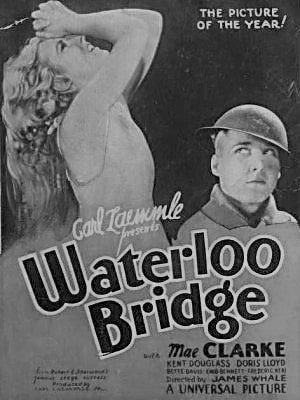 WATERLOO BRIDGE (1931)
WATERLOO BRIDGE (1931) (81 Min.) Genre: 1930 DRAMA, Transfer Quality: A
Mae Clarke had the best role of her career as the heroine of Waterloo Bridge, the first of three filmizations of Robert L. Sherwood's play. Douglass Montgomery (here credited as Kent Douglass) plays a young American soldier who, while on leave from World War I, meets Myra (Clarke) during an air raid in London and falls in love with her, unaware she is a prostitute. Directed with a delicate mixture of realism and impressionism by James Whale, the 1931 Waterloo Bridge is head and shoulders above its heavily laundered 1940 remake — which in turn is vastly superior to the 1956 re-remake, Gaby.
Starring: Mae Clarke, Kent Douglass, Doris Lloyd, Ethel Griffies | Directed by: James Whale
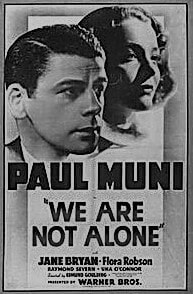 WE ARE NOT ALONE (1939)
WE ARE NOT ALONE (1939) (112 Min.) Genre: 1930 DRAMA, Transfer Quality: B
A violin-playing British doctor's life changes forever after he takes in a distraught Austrian ballerina who tries to kill herself after breaking her wrist. He hires the sad girl as a nanny for his bright son, whom he wants to keep away from his neurotic, overbearing wife. The trouble starts when the doctor and the nanny become genuinely attracted to each other. The wife learns of the nanny's former career and suicide attempt and orders her fired. This causes the doctor to take action on behalf of his son. This in turn causes a downward spiral into tragedy involving an accidental death.
Starring: Paul Muni, Jane Bryan, Flora Robson, Raymond Severn | Directed by: Edmund Goulding
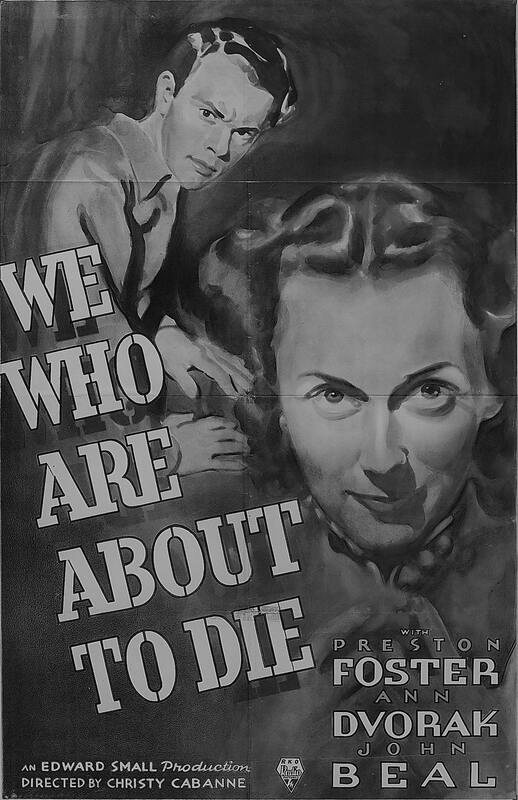 WE WHO ARE ABOUT TO DIE (1936)
WE WHO ARE ABOUT TO DIE (1936) (81 Min.) Genre: 1930 DRAMA, Transfer Quality: A
Its title notwithstanding, We Who Are About to Die has nothing to do with Roman Gladiators. Rather, the film is based on the true story of San Quentin inmate David Lamson, who spent 13 agonizing months on Death Row before the Supreme Court reversed his conviction. Renamed John (and played by John Beal), the Lamson character knows he's innocent but also knows that the date of his execution is drawing ever nearer. Meanwhile, his sweetheart Connie (Ann Dvorak), in collaboration with private eye Matthews (Preston S. Foster), races against time to unearth new evidence and expose the guilty party. Rather pokey for the most part, We Who Are About to Die turns into a real nail-biter during the final 15 minutes.
Starring: Preston S. Foster, Ann Dvorak, John Beal, Ray Mayer, J. Carrol Naish | Directed by: William Christy Cabanne
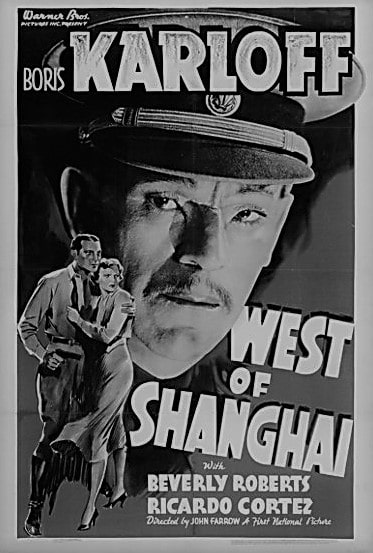 WEST OF SHANGHAI (1937)
WEST OF SHANGHAI (1937) (64 Min.) Genre: 1930 DRAMA, Transfer Quality: A
In this drama, the third remake of a popular play by Porter Emerson Browne, General Wu Yen Fang, "the White Tiger," is an outlaw general who controls the bulk of northern China. The story begins as he invades the village in which two fighters work to prevent avaricious Americans from foreclosing on their oil interests. The lover of one of these men is romantically involved with the estranged wife of one of the foreclosers. Because he once saved Gen. Wu's life, the officer returns the favor by killing the evil oil man. This causes the government to sentence the general to death. He willingly sacrifices his life and is at peace knowing that his friend can now marry the woman he loves. — Sandra Brennan
Starring: Boris Karloff, Beverly Roberts, Ricardo Cortez, Gordon Oliver | Directed by: John Farrow
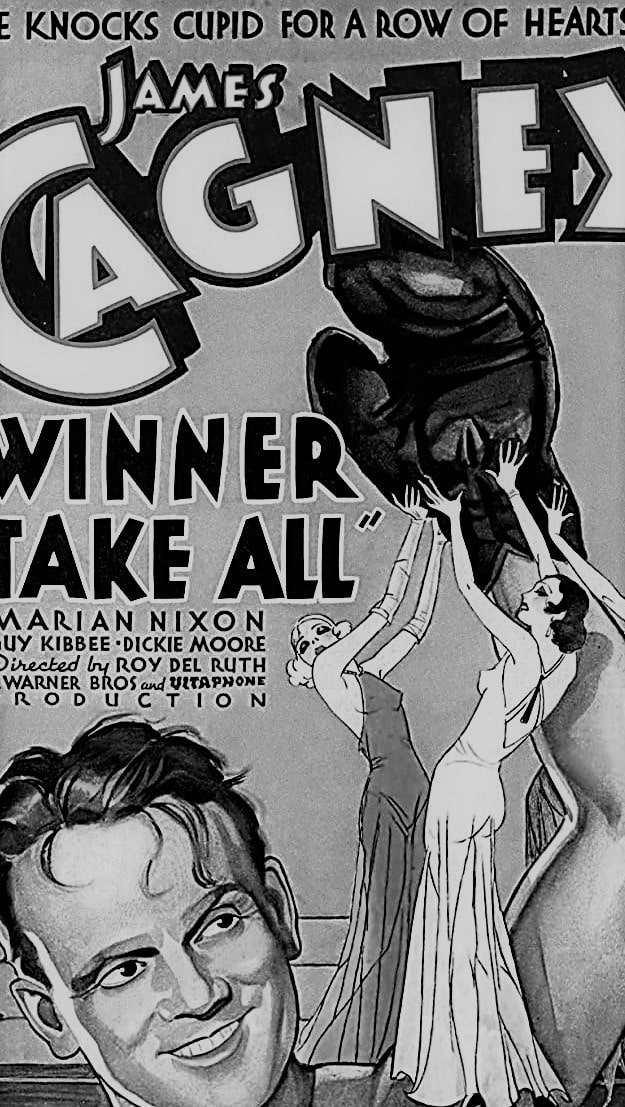 WINNER TAKE ALL (1932)
WINNER TAKE ALL (1932) (68 Min.) Genre: 1930 DRAMA, Transfer Quality: A
James Cagney stars as a popular prizefighter who loses his winnings through too much partying and too many women. Cagney's fans finance the boxer's regenerative stay at a New Mexico health resort. For the sake of pretty, poverty-stricken Marian Nixon, Cagney enters into a return bout. He splits his winnings with Nixon, then goes back to his old skirt-chasing pattern with fickle society girl Virginia Bruce. Having had his nose broken, Cagney fixes it up to please Bruce, and stops taking chances in the ring lest his beezer get smashed again. It doesn't take long for Cagney to plummet from popularity, but true-blue Nixon is there for him when he gets wise to himself. The beautifully staged fight scenes in Winner Take All, wherein James Cagney disdains the use of a double, were later excerpted in Cagney's last-ever film, 1985's Terrible Joe Moran.
Starring: James Cagney, Virginia Bruce, Marian Nixon, Guy Kibbee, Gloria Stuart | Directed by: Roy Del Ruth
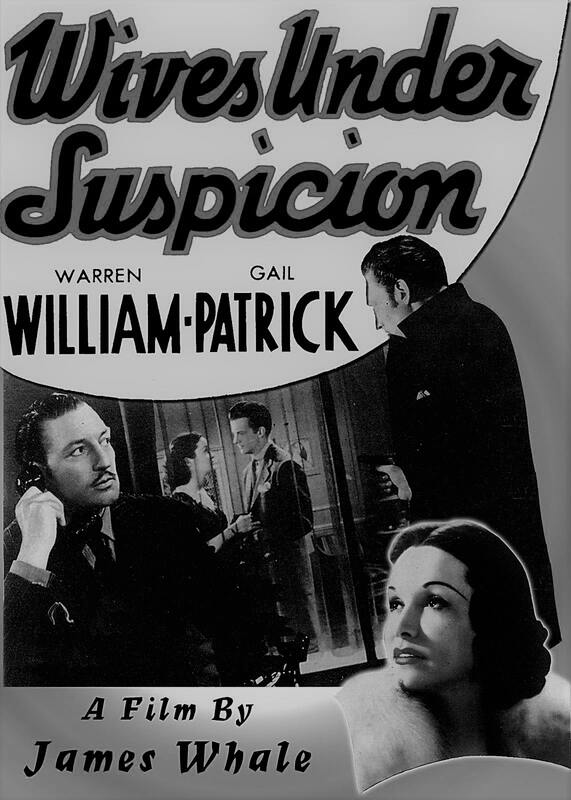 WIVES UNDER SUSPICION (1938)
WIVES UNDER SUSPICION (1938) (69 Min.) Genre: 1930 DRAMA, Transfer Quality: A
James Whale's Wives Under Suspicion is remake of Whale's own 1933 production A Kiss Before the Mirror, with a few noticeable concessions for the more militant censors of 1938. District attorney Jim Stowell (Warren William) is convinced that every murder should be sentenced to the electric chair, regardless of motive or circumstances. He remains steadfast in this belief as he prosecutes an elderly professor (Ralph Morgan) for murdering his wife in a fit of jealous rage. But while relaxing at home one evening in the company of his lovely but somewhat neglected young wife Lucy (Gail Patrick), Stowell's own jealousy is aroused by Lucy's response to the innocent attentions of young family friend Phil (William Lundigan). As the days pass, Stowell cannot suppress his own urge to kill his wife and her supposed lover. An eleventh-hour plot twist prevents him from making the same mistake as the old professor-and also gives him a new perspective on the quality of mercy. — Hal Erickson
Starring: Warren William, Gail Patrick, William Lundigan, Constance Moore | Directed by: James Whale
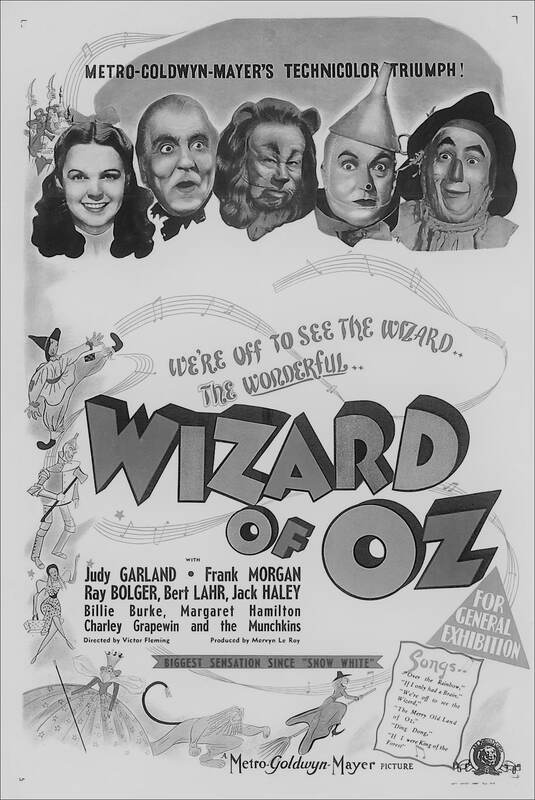 WIZARD OF OZ, THE (1939)
WIZARD OF OZ, THE (1939) (101 Min.) Genre: 1930 DRAMA, Transfer Quality: A
The third and definitive film adaptation of L. Frank Baum's 1900 children's fantasy, this musical adventure is a genuine family classic that made Judy Garland a star for her heartfelt performance as Dorothy Gale, an orphaned young girl unhappy with her drab black-and-white existence on her aunt and uncle's dusty Kansas farm. Dorothy yearns to travel "over the rainbow" to a different world, and she gets her wish when a tornado whisks her and her little dog Toto to the Technicolorful land of Oz. Having offended the Wicked Witch of the West (Margaret Hamilton), Dorothy is protected from the old crone's wrath by the ruby slippers that she wears. At the suggestion of Glinda, the Good Witch of the North (Billie Burke), Dorothy heads down the Yellow Brick Road to the Emerald City, where dwells the all-powerful Wizard of Oz, who might be able to help the girl return to Kansas. En route, she befriends a Scarecrow (Ray Bolger), a Tin Man (Jack Haley), and a Cowardly Lion (Bert Lahr). The Scarecrow would like to have some brains, the Tin Man craves a heart, and the Lion wants to attain courage; hoping that the Wizard will help them too, they join Dorothy on her odyssey to the Emerald City. Garland was MGM's second choice for Dorothy after Shirley Temple dropped out of the project; and Bolger was to have played the Tin Man but talked co-star Buddy Ebsen into switching roles. When Ebsen proved allergic to the chemicals used in his silver makeup, he was replaced by Haley. Gale Sondergaard was originally to have played the Wicked Witch of the West in a glamorous fashion, until the decision was made to opt for belligerent ugliness, and the Wizard was written for W.C. Fields, who reportedly turned it down because MGM couldn't meet his price. Although Victor Fleming, who also directed Gone With the Wind, was given sole directorial credit, several directors were involved in the shooting, included King Vidor, who shot the opening and closing black-and-white sequences. Harold Arlen's and E.Y. Harburg's now-classic Oscar-winning song "Over the Rainbow" was nearly chopped from the picture after the first preview, because it "slowed down the action." The Wizard of Oz was too expensive to post a large profit; and, after a disappointing reissue in 1955, it was sold to network television, where its annual showings made it a classic. — Hal Erickson
Starring: Judy Garland, Frank Morgan, Ray Bolger, Bert Lahr, Jack Haley | Directed by: Victor Fleming
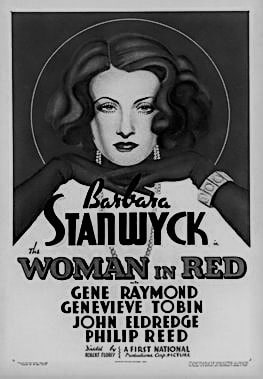 WOMAN IN RED, THE (1935)
WOMAN IN RED, THE (1935) (68 Min.) Genre: 1930 DRAMA, Transfer Quality: B
In this romantic drama, a horsewoman is forced to work in a society dame's stable. There she meets and falls in love with a destitute polo-player who has curried the favor of his lovely employer. The matron gets jealous of the budding relationship between the horsewoman and the player. A wealthy man, who wants the stable girl, also gets jealous. Fortunately, the young lovers are able to withstand the ensuing turmoil and they elope. A while later, the other man attends a lively party aboard a yacht. There a drunken chorine falls overboard and drowns. One of the ship's officers blames the wealthy man and says he saw him leaving with a mysterious "woman in red." During the ensuing trial, the horsewoman clears his name by admitting that he was with her. It is a difficult admission because she knows she is risking her marriage. Fortunately, her husband and his family support her all the way and the marriage is strengthened.
Starring: Barbara Stanwyck, Gene Raymond, Genevieve Tobin, Phillip Reed, Nan Grey, Arthur Treacher | Directed by: Robert Florey
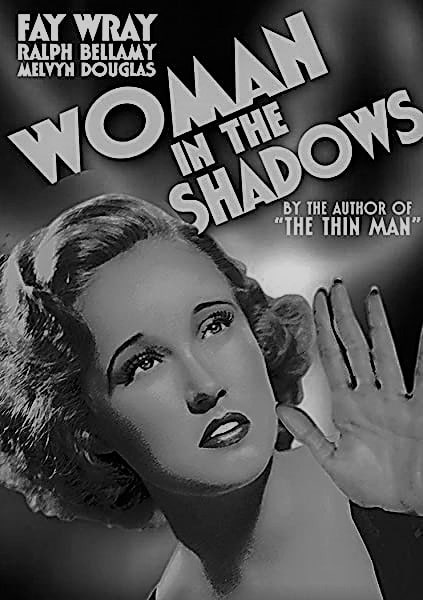 WOMAN IN THE SHADOWS (1934)
WOMAN IN THE SHADOWS (1934) (68 Min.) Genre: 1930 DRAMA, Transfer Quality: B
This drama was adapted from a minor story by Dashiell Hammett and chronicles the attempts of an ex-con to stay on the straight and narrow. It's difficult for he is volatile and tends to get into fistfights when riled. It is his explosive temper that got him put away for three years after he accidentally killed a man while fighting over a woman. His newest troubles also center upon a woman. She bursts into his cabin one day as she tries to run from her abusive, obsessive partner who is pursing her. When he shows up, the young man tries to defend her. He hits an accomplice of the abuser and the abuser gets a warrant for the ex-con's arrest. He and the girl become fugitives from the law.
Starring: Fay Wray, Ralph Bellamy, Melvyn Douglas, Roscoe Ates | Directed by: Phil Rosen
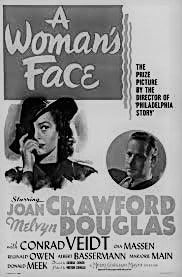 WOMAN'S FACE, A (1938)
WOMAN'S FACE, A (1938) (101 Min.) Genre: 1930 DRAMA, Transfer Quality: A
French playwright Francis de Croiset's heavily plotted Il Etait Une Fois formed the basis of the Swedish A Woman's Face (En Kvinnas Ansikte). Ingrid Bergman plays a woman embittered by the horrible scar on her face, the result of a childhood mishap. Feeling unworthy of the "good" world, Bergman becomes a criminal. Given a new countenance by plastic surgeon Anders Hendrikson, Bergman decides to start life all over again, only to become enmeshed in a complicated crooked scheme, engineered by smarmy aristocrat Georg Rydenberg. A Woman's Face was purchased by MGM and remade in 1941, with Joan Crawford in the lead; most cineastes consider the Swedish version as the better of the two by far-and what a terrific ending! — Hal Erickson
Starring: Ingrid Bergman, Anders Henrikson, Erik Berglund, Gösta Cederlund | Directed by: Gustaf Molander
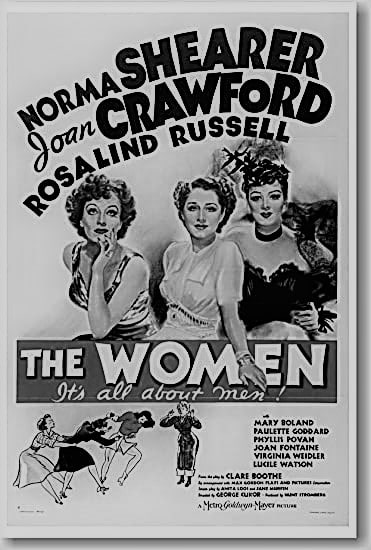 WOMEN, THE (1939)
WOMEN, THE (1939) (133 Min.) Genre: 1930 DRAMA, Transfer Quality: A
Based on the Clare Booth Luce play of the same name, this MGM comedy is justly famous for its all-female cast and deft direction by George Cukor. The plot centers on a group of gossipy, high-society women who spend their days at the beauty salon and haunting fashion shows. The sweet, happily-wedded Mary Haines (Norma Shearer) finds her marriage in trouble when shopgirl Crystal Allen (Joan Crawford) gets her hooks into Mary's man. Naturally, this situation becomes the hot talk amongst Mary's catty friends, especially the scandalmonger Sylvia Fowler (Rosalind Russell), who has little room to talk — she finds herself on a train to Reno and headed for divorce right after Mary. But with a bit of guts and daring, Mary snatches her man right back from Crystal's clutches. Snappy, witty dialogue, much of it courtesy of veteran screenwriter Anita Loos, helps send this film's humor over the top. So do the characterizations — Crawford is as venomous as they come, and this was Russell's first chance to show what she could do as a comedienne. And don't discount Shearer — her portrayal of good-girl Mary is never overpowered by these two far-flashier roles. The only part of The Women that misses is the fashion show sequence. It was shot in color — an innovative idea in its day — but now both concept and clothes are dreary and archaic. Do keep an eye on the supporting players, though, especially Mary Boland as the Countess DeLave. The role was based on a cafe society dame of that era, the Countess DiFrasso, who had a wild affair with Gary Cooper. That romance is satirized here. — Janiss Garza
Starring: Joan Crawford, Norma Shearer, Rosalind Russell, Joan Fontaine | Directed by: George Cukor
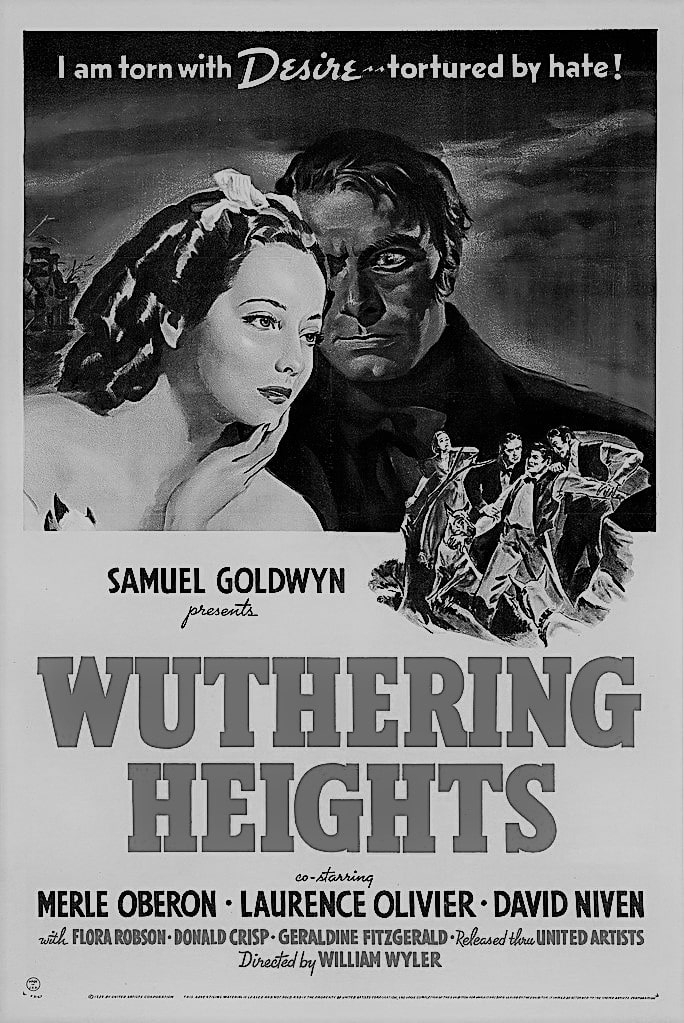 WUTHERING HEIGHTS (1939)
WUTHERING HEIGHTS (1939) (105 Min.) Genre: 1930 DRAMA, Transfer Quality: A
William Wyler's Wuthering Heights is one of the earliest screen adaptations of the classic Emily Brontë novel. A traveler named Lockwood (Miles Mander) is caught in the snow and stays at the estate of Wuthering Heights, where the housekeeper, Ellen Dean (Flora Robson), sits down to tell him the story in flashback. In the early 19th century, the original owner of Wuthering Heights, Mr. Earnshaw (Leo G. Carroll), brings home an orphan from Liverpool named Heathcliff (Rex Downing). Though son Hindley Earnshaw despises the boy, daughter Catherine develops a close kinship with Heathcliff that blossoms into love. When Mr. Earnshaw dies, Cathy and Heathcliff grow up together on the Moors and seem destined for happiness, even though Hindley forces Heathcliff to work as a stable boy. When Cathy (Merle Oberon) meets wealthy neighbor Edgar Linton (David Niven), Heathcliff (Laurence Olivier) gets jealous and leaves. Cathy marries Edgar, and Heathcliff returns with his own wealth and sophistication. He buys Wuthering Heights from the alcoholic Hindley (Hugh Williams) and marries Edgar's sister, Isabella Linton (Geraldine Fitzgerald), out of spite. Still obsessively in love with each other, Cathy gets deathly ill while Heathcliff grows into a bitter old man. Ellen continues telling Lockwood the story as Dr. Kenneth (Donald Crisp) enters and reveals the fateful ending. — Andrea LeVasseur
Starring: Laurence Olivier, Merle Oberon, David Niven, Flora Robson, Geraldine Fitzgerald | Directed by: William Wyler
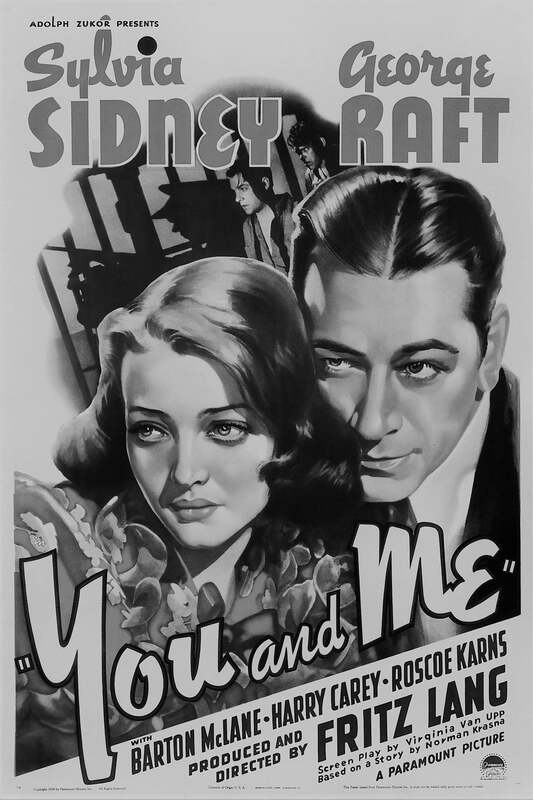 YOU AND ME (1938)
YOU AND ME (1938) (90 Min.) Genre: 1930 DRAMA, Transfer Quality: B
This film is one of acclaimed director Fritz Lang's less noted achievements, a mixture of romance, comedy, drama, and satire. It includes three songs by the famed Kurt Weill, including "The Right Guy for Me." George Raft plays Joe Dennis, an ex-convict working in a department store. The store's boss, Mr. Morris (Harry Carey), likes to hire ex-cons. Joe falls in love with Helen (Sylvia Sidney), who hides the fact that she is on parole until after they marry. Since parolees can't wed, the marriage is illegal. Distraught, Joe organizes a gang to rob Morris' store. Helen intervenes and tries to convince the gang members that the potential take isn't worth the risk of returning to prison.
Starring: Sylvia Sidney, George Raft, Robert Cummings, Barton MacLane, Ellen Drew | Directed by: Fritz Lang
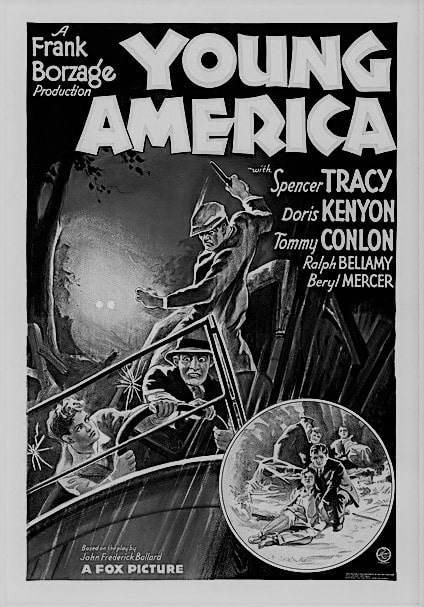 YOUNG AMERICA (1932)
YOUNG AMERICA (1932) (70 Min.) Genre: 1930 DRAMA, Transfer Quality: B
Though Spencer Tracy is top-billed in Young America, the film is by no means a star vehicle. Tommy Conlon and Raymond Borzage (the son of director Frank Borzage) play budding juvenile delinquents Arthur and Nutty. After their latest misdemeanor, the boys are paroled by Judge Blake (Ralph Bellamy) in the custody of Arthur's nasty aunt Mrs. Taylor (Sarah Padden), who treats them atrociously. When Arthur's grandma (Beryl Mercer) falls ill, the boys are unable to awaken pharmacist Jack Doray (Spencer Tracy) and are forced to break into Doray's drugstore to steal the necessary medicine. Touched by the boys' plight, Doray's wife Edith (Doris Kenyon) assumes custody of Arthur, who demonstrates his unbounded gratitude by rescuing the druggist from a gang of homicidal burglars.
Starring: Spencer Tracy, Doris Kenyon, Ralph Bellamy, Beryl Mercer | Directed by: Frank Borzage
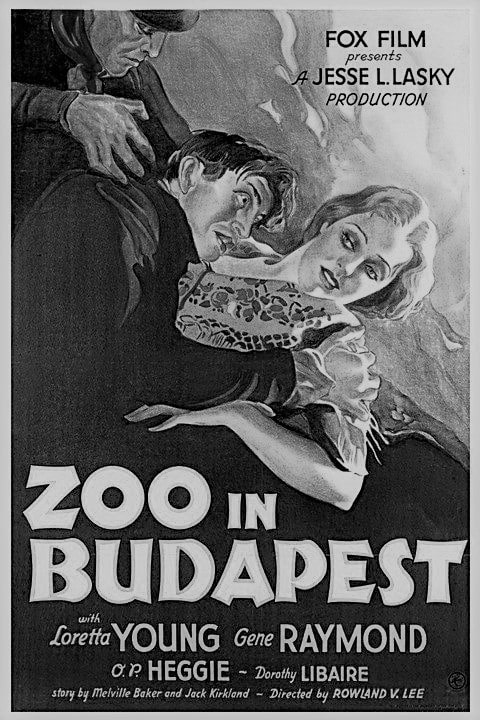 ZOO IN BUDAPEST (1933)
ZOO IN BUDAPEST (1933) (85 Min.) Genre: 1930 DRAMA, Transfer Quality: D
A beautiful orphan girl, faced with the prospect of being forced to work as an indentured servant (more like a slave) until she grows up, runs away to the zoo. There she encounters a kindly zookeeper who has been chastised by his boss for being too nice to the animals. He becomes a fugitive after stealing a wealthy woman's fur coat. He and the girl meet while hiding out in the zoo. Later he saves her from an attack by a vicious co-worker. More scuffles ensue and they result in many dangerous animals being freed from their cages. The errant zookeep later redeems himself by saving a young child from a hungry tiger.
Starring: Loretta Young, Gene Raymond, O.P. Heggie, Wally Albright | Directed by: Rowland V. Lee

